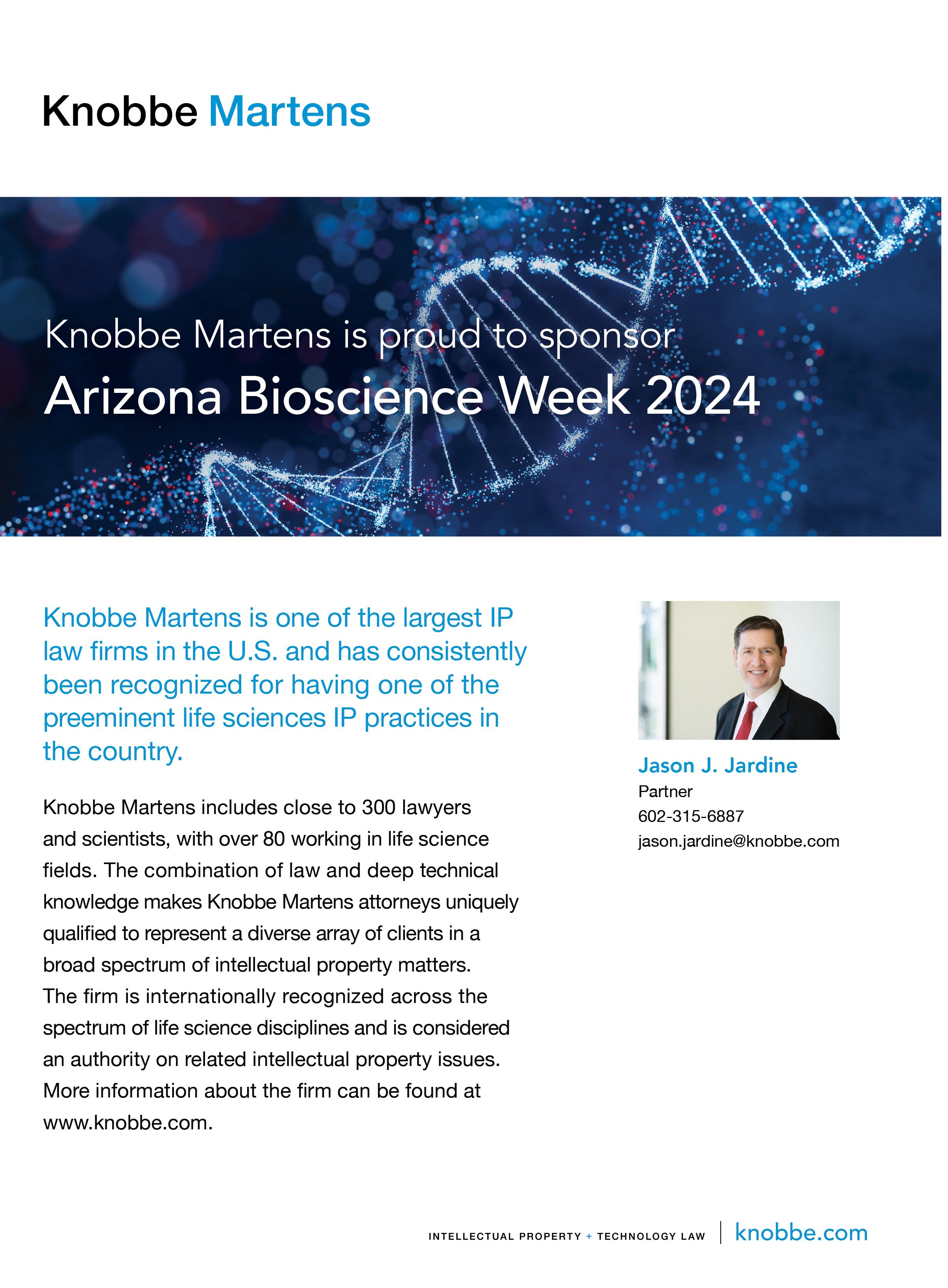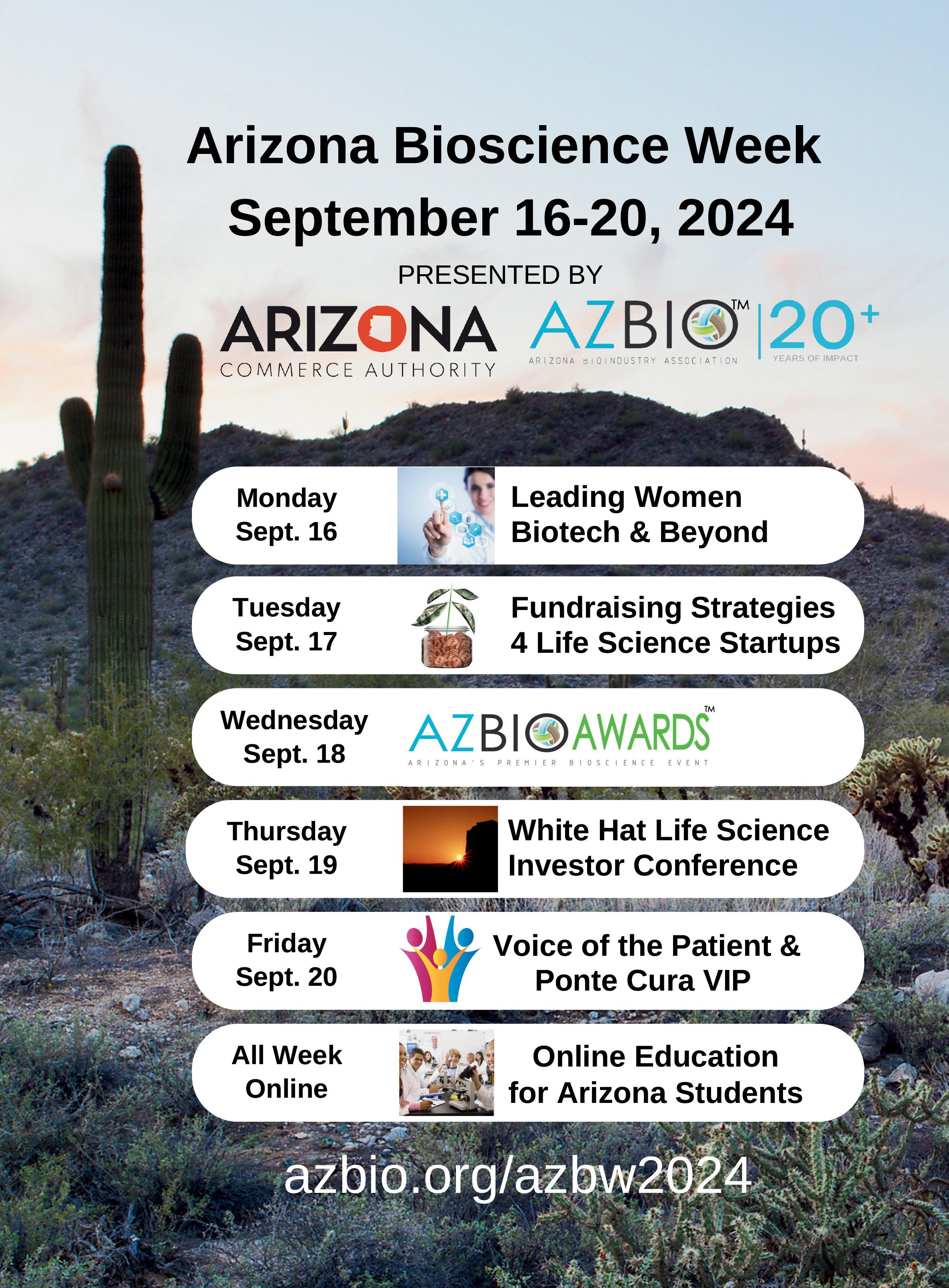






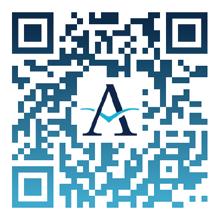


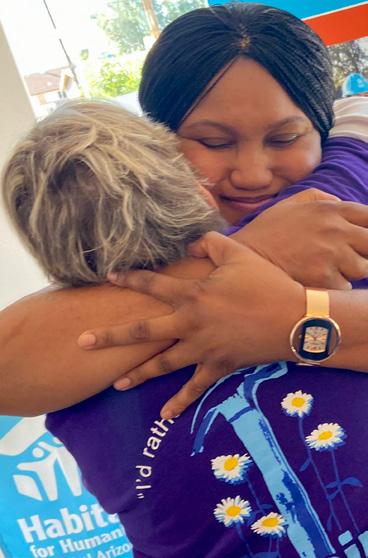


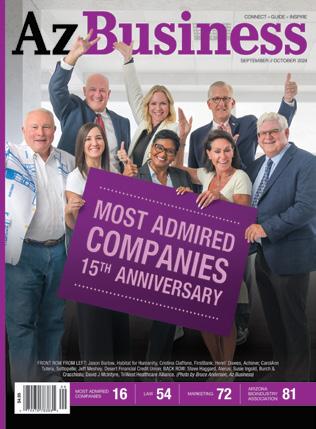
My father spent his life working for a company that, I’m sure, did a lot for the community. But we never heard about it. That’s why the most Admired Companies issue of Az Business is so important to me. It’s critical that we recognize those companies that do well — both in business and in community impact.
Honoring and recognizing the most admired companies in business is vital for several reasons. Firstly, it promotes a culture of excellence and innovation. When organizations are celebrated for their achievements, it inspires others to strive for similar success, fostering a competitive spirit that can lead to improved products, services, and customer experiences across industries.
Secondly, recognition helps to identify best practices and benchmarks for success. By highlighting what makes these companies admirable — be it their commitment to sustainability, employee welfare, or customer satisfaction — others can learn valuable lessons and implement similar strategies in their operations. This sharing of knowledge contributes to overall industry growth and development.
Moreover, recognizing admired companies boosts morale and enhances brand reputation. Employees take pride in being part of an organization that is well-regarded, which can lead to increased motivation and retention. For consumers, knowing that a company is admired can influence purchasing decisions, as they often prefer to support brands that are recognized for their ethical practices and community involvement.
Finally, by honoring leaders in the business world, we celebrate the values of integrity, innovation, and social responsibility, encouraging a positive impact on society and driving collective progress.
Enjoy learning more about Arizona’s Most Admired Companies. And to Arizona’s Most Admired Companies, we thank you.

Michael Gossie Editor in chief michael.gossie@azbigmedia.com
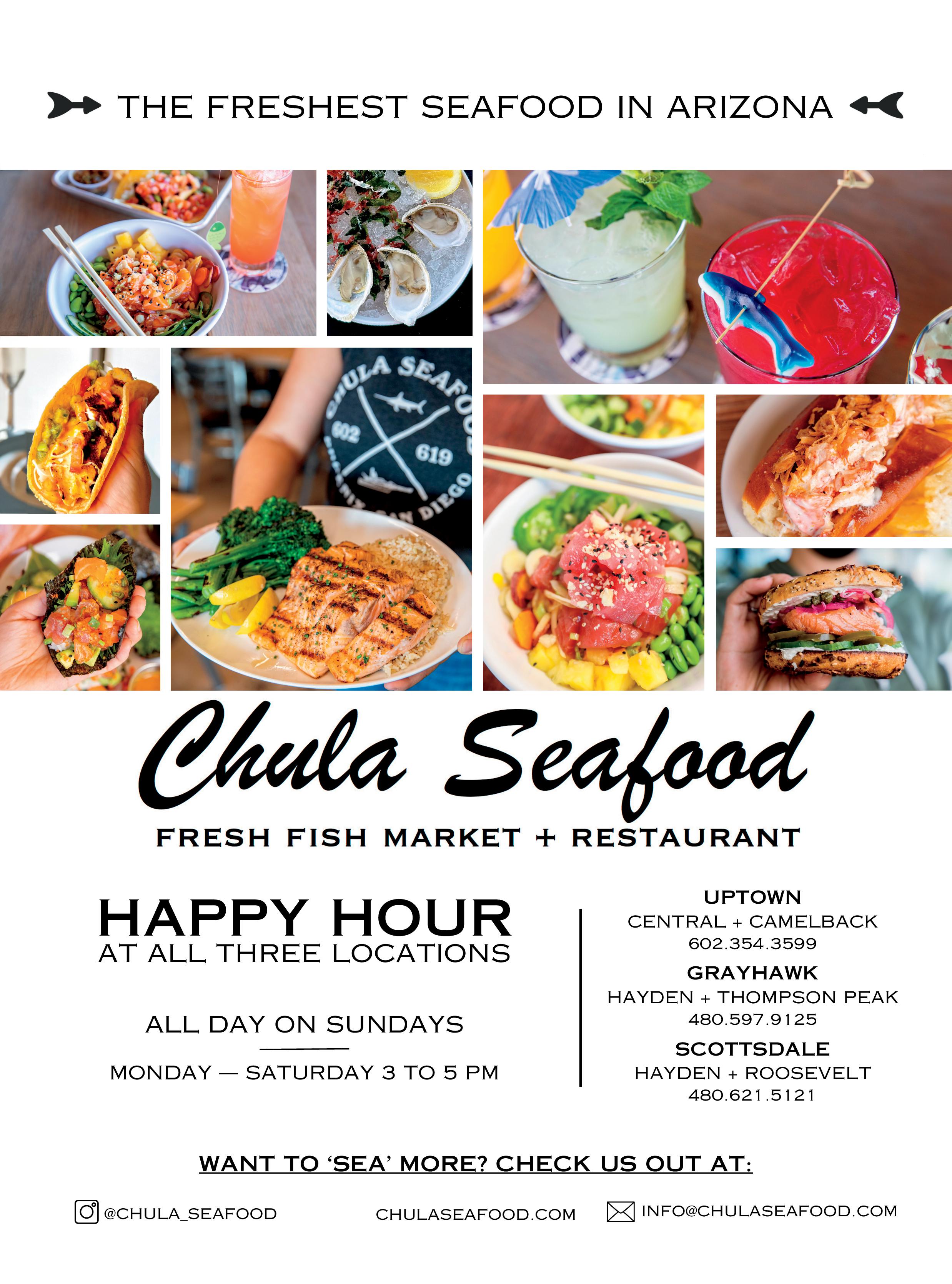

In the largest private donation in Local First Arizona’s 21-year history, The Bob & Renee Parsons Foundation has awarded the nonprofit more than $1 million to expand community gardens and entrepreneur development.
The funds will allow Local First to double the size of the Heart & Soil People’s Garden and expand programming for the surrounding central Phoenix community. The grant will also support Local First’s businesses accelerators Fuerza Local, Nivel Ejecutivo and We Rise, all of which are designed to supercharge Spanish-speaking and Black entrepreneurs’ success.
“The extraordinary generosity of The Bob & Renee Parsons Foundation will enable Local First Arizona to positively impact so many business owners and families in our community,” says Local First Arizona Founder and CEO Kimber Lanning. “These programs are truly envisioned and guided by the communities they serve to build healthy eating, economic well-being and strong neighborhoods from the ground up. Local First Arizona will continue unleashing our state’s potential with transformative gifts like this one.”
“I’d like to thank all of Arizona’s Most Admired Companies of 2024. Your leadership and best practices are paving the way for economic growth and prosperity to continue for all of Arizona.”
Amy Lindsey Publisher AZ Big Media
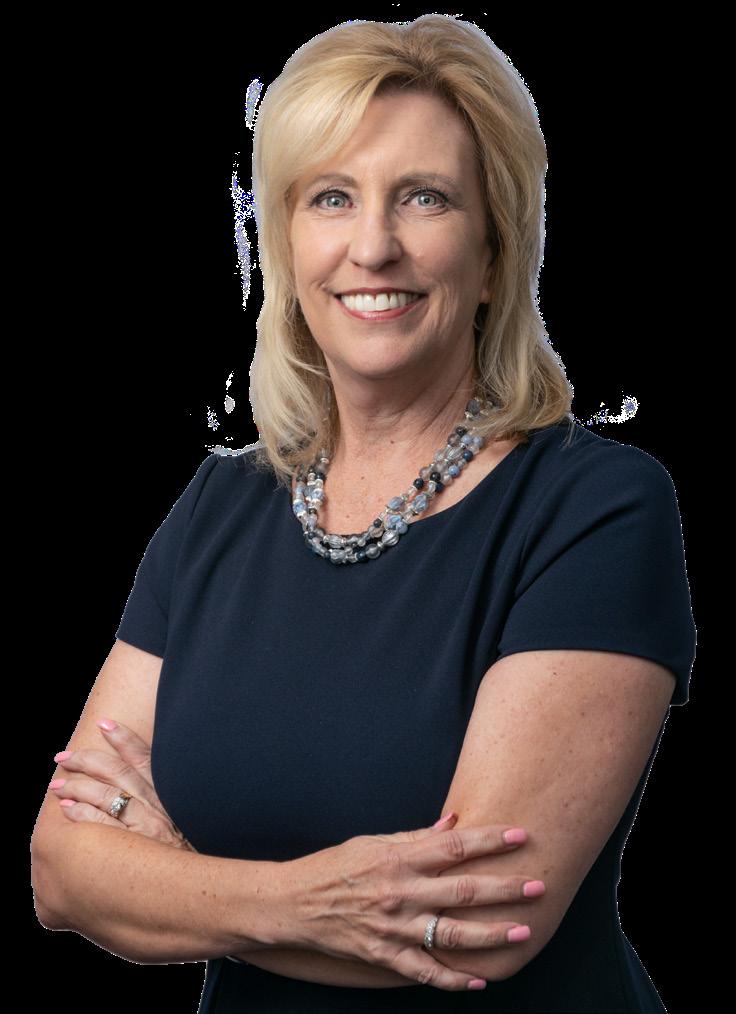
President and CEO: Michael Atkinson
Publisher: Amy Lindsey
EDITORIAL
Editor in chief: Michael Gossie
Associate editor: Kyle Backer
Contributing writers: Andrea Aker | Tyler Butler
Lindsay Leavitt | Joan Koerber-Walker
Intern: Madeline Bates
ART
Creative services manager: Bruce Andersen
Chief photographer: Mike Mertes
Graphic designer: Lauren Laird
Advertising and events coordinator: Tarina Lovegrove
OFFICE
Special projects manager: Sara Fregapane
Database solutions manager: Amanda Bruno
Operations coordinator: Michelle Zesati
AZRE | ARIZONA COMMERCIAL REAL ESTATE
Director of sales: Ann McSherry
AZ BUSINESS MAGAZINE
Senior account executive: April Rice
Account executive: Maria Hansen | Ruth Hickey
AZ BUSINESS ANGELS
AZ BUSINESS LEADERS
Director of sales: Sheri Brown
EXPERIENCE ARIZONA | PLAY BALL
Director of sales: David Harken
RANKING ARIZONA
Director of sales: Sheri King
Az Business magazine is published bi-monthly by AZ Big Media, 3101 N. Central Ave. Suite 1070, Phoenix, Arizona 85012, (602) 277-6045. The publisher accepts no responsibility for unsolicited manuscripts, photographs or artwork. Submissions will not be returned unless accompanied by a SASE. Single copy price $4.95. Bulk rates available. Copyright 2024 by AZ Big Media. All rights reserved. No part of this publication can be reproduced or transmitted in any form or by any means, electronic or mechanical, including photocopying, recording, or by any information storage and retrieval system, without permission in writing from AZ Big Media.

Arizona is home to some of the most innovative and successful publicly traded companies in the world. Here are Arizona-based public companies who recorded revenue exceeding $1 billion during their last fiscal

Avnet / $26.54 billion / Phoenix
Freeport McMoRan / $22.86 billion / Phoenix
Republic Services / $14.96 billion / Phoenix
Reliance / $14.81 billion / Scottsdale
Carvana / $10.77 billion / Tempe
Southern Copper / $9.9 billion / Phoenix
Insight Enterprises / $9.18 billion / Chandler
Onsemi / $8.25 billion / Scottsdale
Microchip Technology / $7.63 billion / Chandler
Taylor Morrison Home Corp. / $7.42 billion / Scottsdale
Knight-Swift Transportation Holdings / $7.14 billion / Phoenix
Opendoor Technologies / $6.95 billion / Tempe
Sprouts Farmers Market / $6.84 billion / Phoenix
Amkor Technology / $6.5 billion / Tempe
Resideo Technologies / $6.24 billion / Scottsdale
Meritage Homes / $6.14 billion / Scottsdale
U-Haul Holding Company / $5.63 billion / Phoenix
Pinnacle West Capital / $4.7 billion / Phoenix
Carlisle Companies / $4.59 billion / Scottsdale
GoDaddy / $4.25 billion / Tempe
Align Technology / $3.86 billion / Tempe
Gen / $3.81 billion / Tempe
First Solar / $3.32 billion / Tempe
Benchmark / $2.84 billion / Tempe
WillScot Mobile Mini / $2.36 billion / Phoenix
Western Alliance Bancorporation / $2.13 billion / Phoenix
Cavco Industries / $1.79 billion / Phoenix
Sparklight / $1.68 billion / Phoenix
Axon / $1.56 billion / Scottsdale
TPI Composites / $1.46 billion / Scottsdale
Leslie’s / $1.45 billion / Phoenix
Offerpad Solutions / $1.31 billion / Chandler
Viad Corp. / $1.24 billion / Scottsdale
Vivavi Solutions / $1.11 billion / Chandler




Here are the bigscreen masterpieces that left an impact on some of Arizona’s

2 5 1






1 Robert D. Mitchell / shareholder, Tiffany & Bosco: “It is somewhat antiquated and perhaps corny by today’s standards, but I can never watch ‘It’s a Wonderful Life’ enough, which always makes me think about the seeds we all sow everyday, and that if we do it right, we can each make a powerful impact by how we lead our lives.”
2 Michelle De Blasi / founding partner, Law Office of Michelle De Blasi: “‘Pay It Forward’ was a very impactful movie because it’s how I live my life. Often, the altruism of children teaches us to show more kindness and compassion, even in a world where selflessness can seem rare. I love its theme to ‘be the example you want to see in others.’”
3
Lisa Reilly Payton / senior partner, Frazer Ryan Goldberg & Arnold: “The movie ‘Pursuit of Happyness’ (yes, happiness is spelled incorrectly and if you watch the movie you will know why). The movie is a great lesson about perseverance. In my opinion, perseverance is the key to success.”
3

4

Jennifer Cranston / shareholder, Gallagher & Kennedy: “‘Beautiful Girls.’ Even though it’s a romantic comedy, there’s something very real and poignant about the characters and writing. It also features a barroom sing-along of ‘Sweet Caroline,’ which evokes fond memories of good times with old friends.”
5
James Goodnow / CEO, Fennemore: “‘The Firm.’ The classic Tom Cruise flick lit a fire for me to go to law school. I was initially a little disappointed when I learned that real-life lawyers don’t regularly take trips to the Cayman Islands for work or jump out of windows into the back of trucks while being chased by criminals. But it turns out that real-life lawyering is still fun — and a lot safer.”
6 Kevin M. Rowe / founding attorney, Lerner & Rowe Injury Attorneys: “‘Rocky’ resonates with me. The movie embodies perseverance, how the human spirit can triumph over adversity, how underdogs can overcome obstacles through hard work and how the power of believing in oneself can result in BIG wins that beat the odds.”

At National Bank of Arizona, we help businesses of all sizes grow with our Business Access loans*. You can get quick and simple access to funding for your business just by applying online, and can even receive a same day decision and get expedited funding if approved.
At National Bank of Arizona, you can have local decisions and the newest financial tools, because you shouldn’t have to choose.
Talk with a Business Banker today to see if a Business Access loan is right for you.


U.S. News & World Report, the global authority in hospital rankings and consumer advice, announced its 20242025 Best Hospitals list in July. Mayo Clinic-Arizona in Phoenix made U.S. News’ Best Hospitals Honor Roll, which is the 20 highest ranked hospitals in the United States. While U.S. News evaluates nearly 5,000 hospitals in more than 30 medical and surgical services to determine its national rankings, it also evaluated 115 hospitals in Arizona to determine the five best hospitals in Arizona. Here they are.
Mayo Clinic-Arizona
Mayo Clinic-Arizona in Phoenix is on the Best Hospitals Honor Roll. It is nationally ranked in 10 adult specialties and rated high performing in 18 adult procedures and conditions. It is a general medical and surgical facility. It is also a teaching hospital.
(tie) Banner Boswell Medical Center
2
Banner Boswell Medical Center in Sun City is rated high performing in 11 adult procedures and conditions. It is a general medical and surgical facility.
(tie) Banner-University Medical Center Tucson
Banner-University Medical Center Tucson in Tucson is rated high performing in one adult specialty and nine procedures and conditions. It is a general medical and surgical facility. It is a teaching hospital. The evaluation of BannerUniversity Medical Center Tucson also includes data from Diamond Children’s Hospital.
4
Banner-University Medical Center Phoenix
Banner-University Medical Center Phoenix in Phoenix is rated high performing in four adult specialties and seven procedures and conditions. It is a general medical and surgical facility. It is a teaching hospital.
Chandler Regional Medical Center
5
Chandler Regional Medical Center in Chandler is rated high performing in eight adult procedures and conditions. It is a general medical and surgical facility.


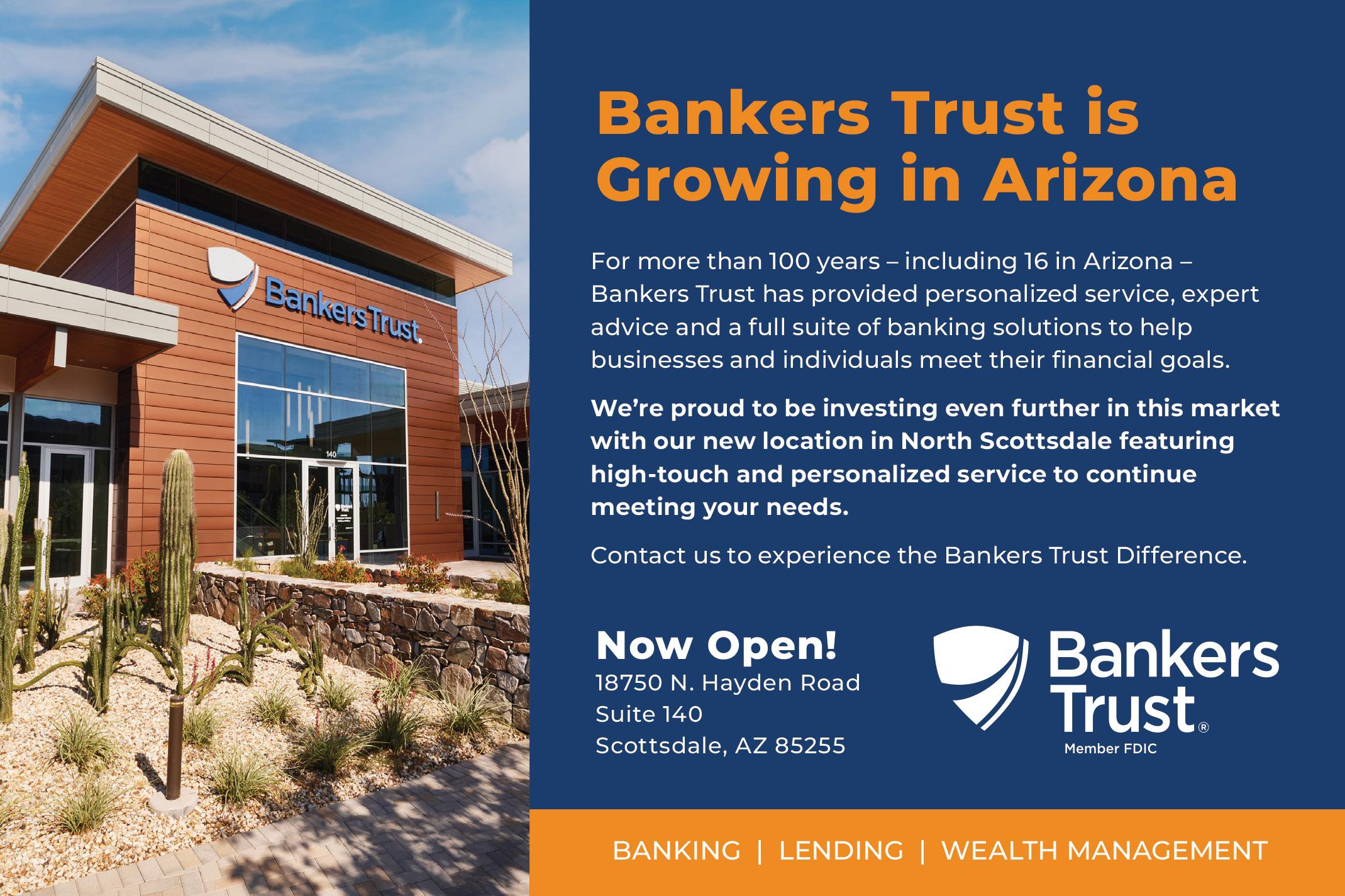
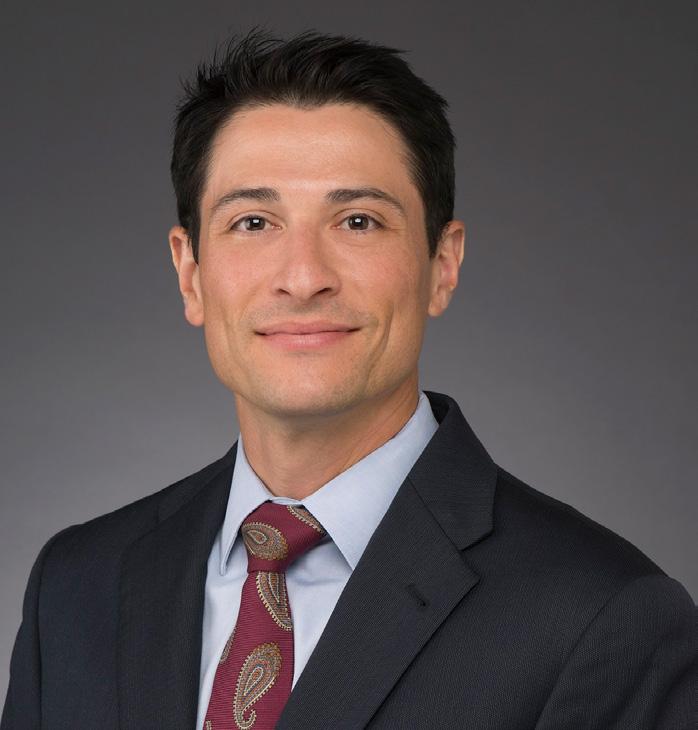
Question: What banking industry trend should business leaders be watching heading into 2025?
Answer: As the economy stabilizes and grows, rates may change. Business leaders must stay vigilant and informed. These fluctuations could impact:
• Lending: Lower interest rates encourage more people to take on debt and increase the demand for borrowing. A 1% drop in interest rates can bring millions of new buyers into the market. Whether you want to expand, upgrade your company’s equipment, or manage cash flow, selecting a reliable banking partner can help your business reach its full potential.
• Cost management: With inflation and increased operation costs, business leaders will need to ensure financial stability, make sustainable investment decisions, and manage overall costs to set your company up for future success. For instance, the U.S. Census Bureau reported that 78% of U.S. small businesses saw price increases for goods and services needed to operate in 2022.
• Business acquisition: An estimated 10,000 Baby Boomers are retiring daily, which will increase the number of people purchasing small businesses. Boomers own 2.34 million small businesses in the United States, employing more than 25 million people, according to the U.S. Census Bureau. Acquiring a business is a considerable endeavor, but with the proper resources and support, you can seize acquisition opportunities and enable long-term growth.
Jeffrey Miller
FirstBank Phoenix Executive Vice President
Jeffrey.Miller@efirstbank.com
602-954-4840
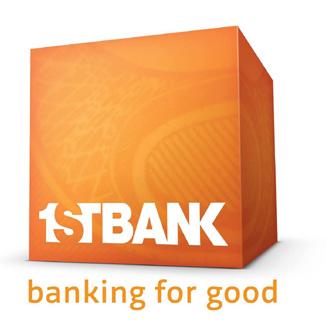

Question: What new products or services should bank customers be looking for in 2025?
Answer: As we move into 2025, customers can look forward to various innovative products and services designed to enhance their financial well-being. Here are a few services and tools that FirstBank is currently offering and what to expect:
• Seamless digital wallet integration: Customers can easily set up and manage their digital wallets through the bank’s app, which includes helpful tutorials and biometric authentication to enhance security.
• AI-powered customer support: Virtual assistants, advanced chatbots, and proactive fraud detection will offer instant, personalized support, and help prevent fraud or theft before it happens.
• Enhanced security measures: Multi-factor authentication and real-time fraud monitoring ensure robust security protocols and allow customers to receive instant alerts for suspicious activity.
Matt Marshall
FirstBank East Valley Executive Vice President
Matt.Marshall@efirstbank.com 602-508-4600
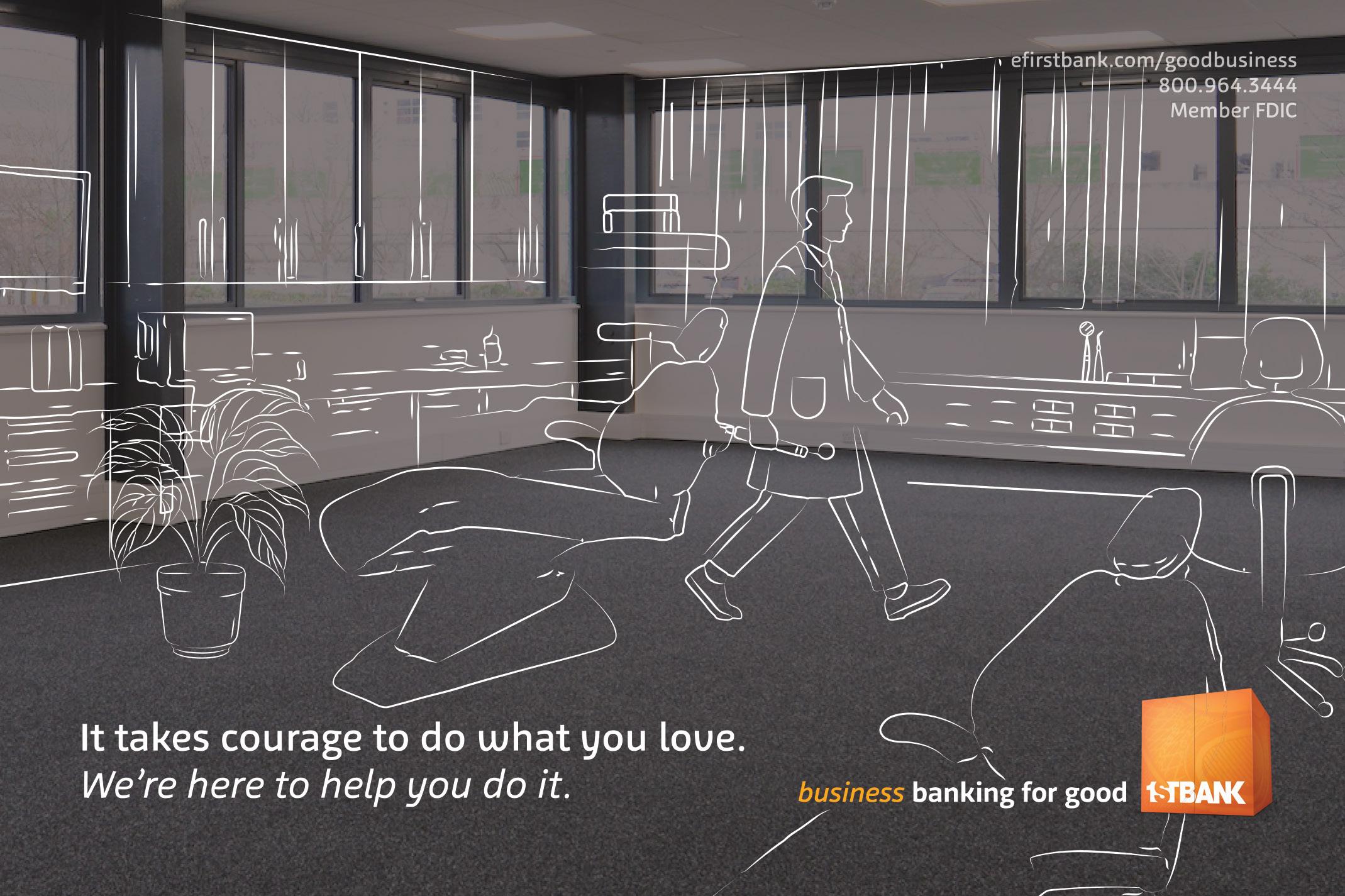


























Josh Isner helps Axon become of of Arizona’s biggest home-grown success stories
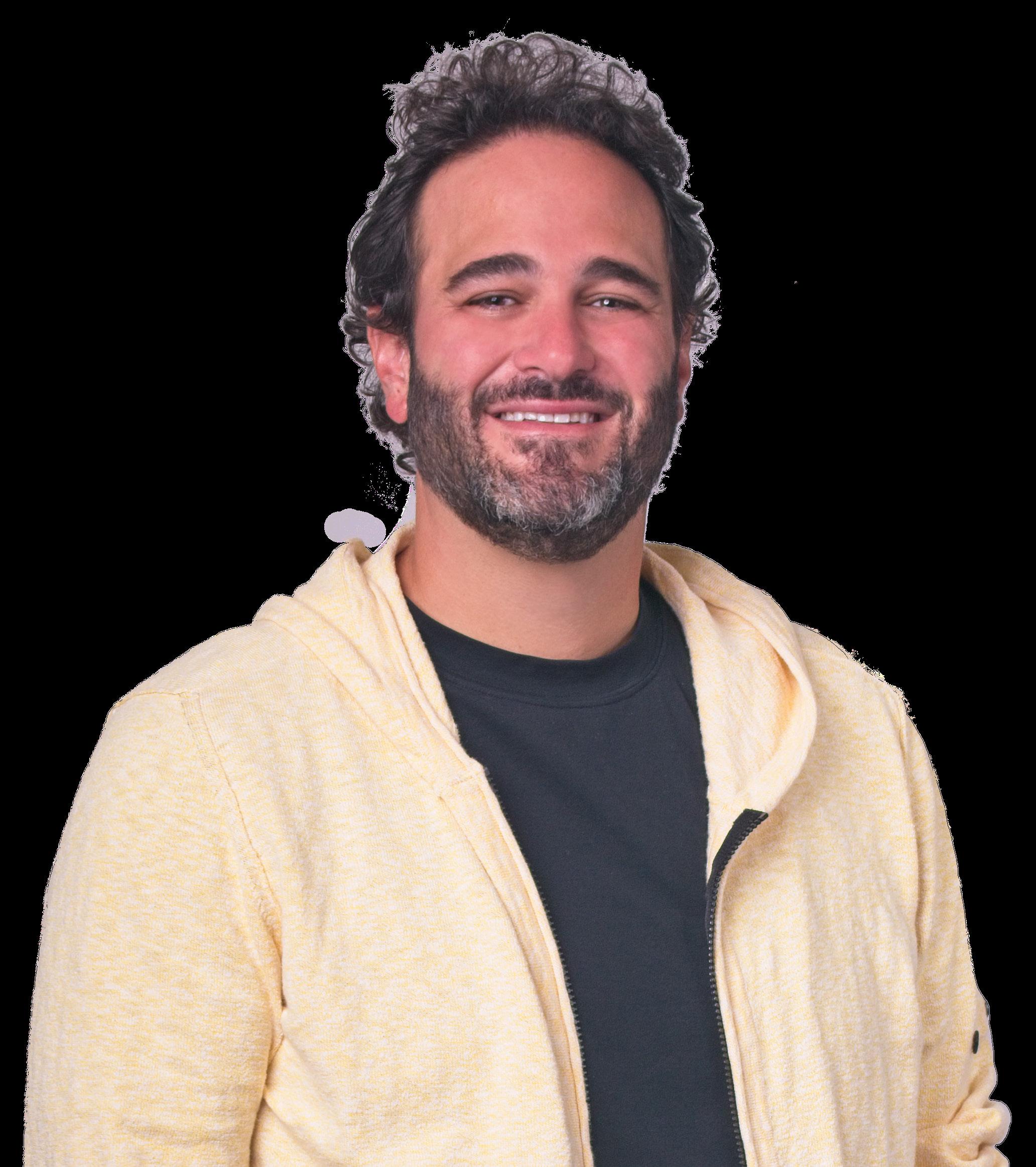
By MICHAEL GOSSIE
You wouldn’t expect a Harvard graduate to be on the receiving end of a Taser. But Josh Isner isn’t your typical Harvard grad.
“Of course I’ve been tased,” says the president of Axon, the trailblazing Scottsdalebased company that develops technology and weapons products for military and law enforcement. Axon’s initial product and former company namesake is the Taser, a line of electroshock weapons. “I’d say about half our employees opt in to getting tased.”
Az Business talked with Isner about Axon and its impact on public safety.
Az Business: What attracted you to Axon coming out of Harvard?
Josh Isner: I had a couple options out of college — big corporate companies that I thought had good training programs. But then, there was this little company called Taser that had 100 employees at the time and a founder who was a little crazy, but had a lot of conviction. I thought, “I want to see what this is all about for a couple years,” and figured I’d end up back
in business school after that. It’s now 15 years later and I’m still here at what is now Axon. And it’s been a blast.
AB: What do you enjoy the most about the job?
JI: It is really rewarding giving police officers new technologies, because traditionally it’s a market that’s been underserved by technology. So that is a lot of fun.
AB: How has Axon been able to innovate and evolve and grow like it has been able to grow over the years?
JI: I think that’s just a big part of our identity. We are really good at applying disruptive technologies to public safety. To continue to do that, we need to keep our eyes open in terms of what’s happening in consumer and enterprise and understand what types of technology trends are becoming prevalent. By doing that, we have a pretty good roadmap for how that might have a place in policing. Virtual reality is a good example of this, where you saw kids playing on virtual reality headsets and then started
Josh Isner joined Axon in 2009 as a member of Axon’s leadership development program and quickly established a strong track record of delivering results. (Provided photo)
to see people getting trained in virtual reality. You say, “This might make sense in police training.” You can simulate high-stress, very realistic scenarios and the amount of information that’s absorbed by the officer in those settings is way higher than just going through the more historical kinds of drills. That’s what we do really well — identify these emerging trends and figure out how they can add value into the public safety space.
AB: What trends should people be watching?
JI: Drones are a big part of what the future looks like in public safety. A drone can be dispatched well before a human and get situational awareness of what the scene looks like before a police officer gets there. I think a lot of lives will be saved by that because you read about these situations where there’s a call for a domestic dispute or something like that and police officers walk up to a scene and there’s an ambush waiting for them. Something like a drone with eyes on the scene beforehand can lead to a much safer outcome.
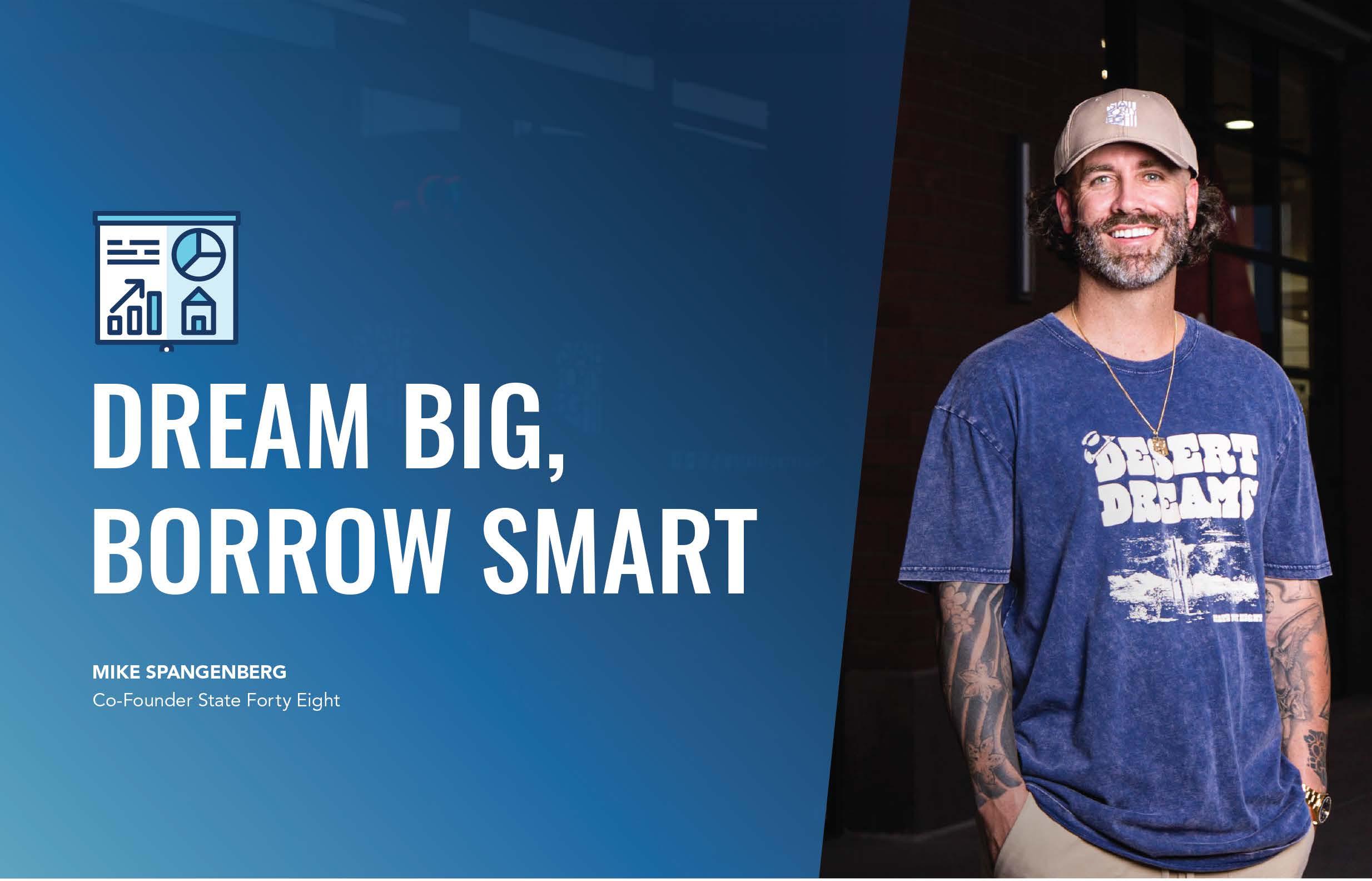
Scaling your business requires reliable access to cash. Whether you're looking to expand or purchase new equipment, our SBA loan options can help you get there. Whatever your needs are, OneAZ's business team is dedicated to ensuring you thrive.

By MICHAEL GOSSIE
In 2024, workplace culture expands beyond office walls and includes remote workers, but that is starting to revert with calls to return to the office. Social responsibility is about issues that go way deeper than holiday toy drives. And customer opinion can pivot with a single social media post. A lot has changed in the workplace during the last few years.
But through it all, 55 companies have risen from the constantly evolving and everchallenging business environment to earn the right to call themselves Arizona’s Most Admired Companies of 2024.
“The qualities recognized by Arizona’s Most Admired Companies program are the characteristics that build great companies,” says Amy Lindsey, publisher of AZ Big Media, which publishes Az Business magazine, the publication that co-founded the Most Admired Companies program with the team from BestCompaniesAZ. “The companies honored with this award truly represent the best of the best in Arizona.”
Az Business magazine and BestCompaniesAZ team up to present the Most Admired Companies program each year and the primary goal is to find and recognize those organizations that excel in these five key areas:
• Customer opinion
• Innovation
• Leadership excellence
• Social responsibility
• Workplace culture
Based on those five pillars of excellence, a selection committee comprised of Az Business magazine’s editorial board, BestCompaniesAZ’s leadership team and professionals from a wide range of industries rated and selected the most accomplished and prestigious companies in Arizona.
With hundreds of nominations representing the most innovative, impactful and successful companies in Arizona, being one of Most Admired Companies of 2024 shows that the companies profiled on the pages that follow truly represent the best in Arizona business.
Do you lead what you believe is one of Arizona’s Most Admired Companies?
Do you work for one of Arizona’s Most Admired Companies? Do you engage in business with a company that you consider one of Arizona’s Most Admired Companies? If you want to nominate a company for the 2025 Most Admired Companies awards, visit azbigmedia.com.

Achieve Air2O
Aker Ink
Alerus
APS
Arizona Diamondbacks
Axon
Blue Cross Blue
Shield of Arizona
Burch & Cracchiolo
Canyon State Electric
Clayco
Colliers
Concord General
Contracting
Copa Health
CopperPoint
Insurance Companies
Creation
Credit Union West
Cresa
Delta Dental of Arizona
Desert Financial Credit Union
Donor Network of Arizona
DP Electric
Enterprise Bank & Trust
Fennemore
FirstBank
Global Market Innovators
Goodwill of Central and Northern Arizona
Habitat for Humanity
Central Arizona
Harrah’s AkChin Casino
Haydon
Kovach
KUBRA
Lumifi
Mark-Taylor Residential
Meritage Homes
Northern Trust
OneAZ Credit Union
P.B. Bell
RPG Brands
Rafi Law Group
Ryan Companies US
Small Giants
Sonora Quest Laboratories
SottoPelle and Tutera Medical
StrataTech Education Group
Sundt Construction
Suntec Concrete
The James Agency
Total Care Connections
TriWest Healthcare Alliance
Troon
TruWest Credit Union
Valley of the Sun
United Way
Versant Capital Management
Willmeng Construction


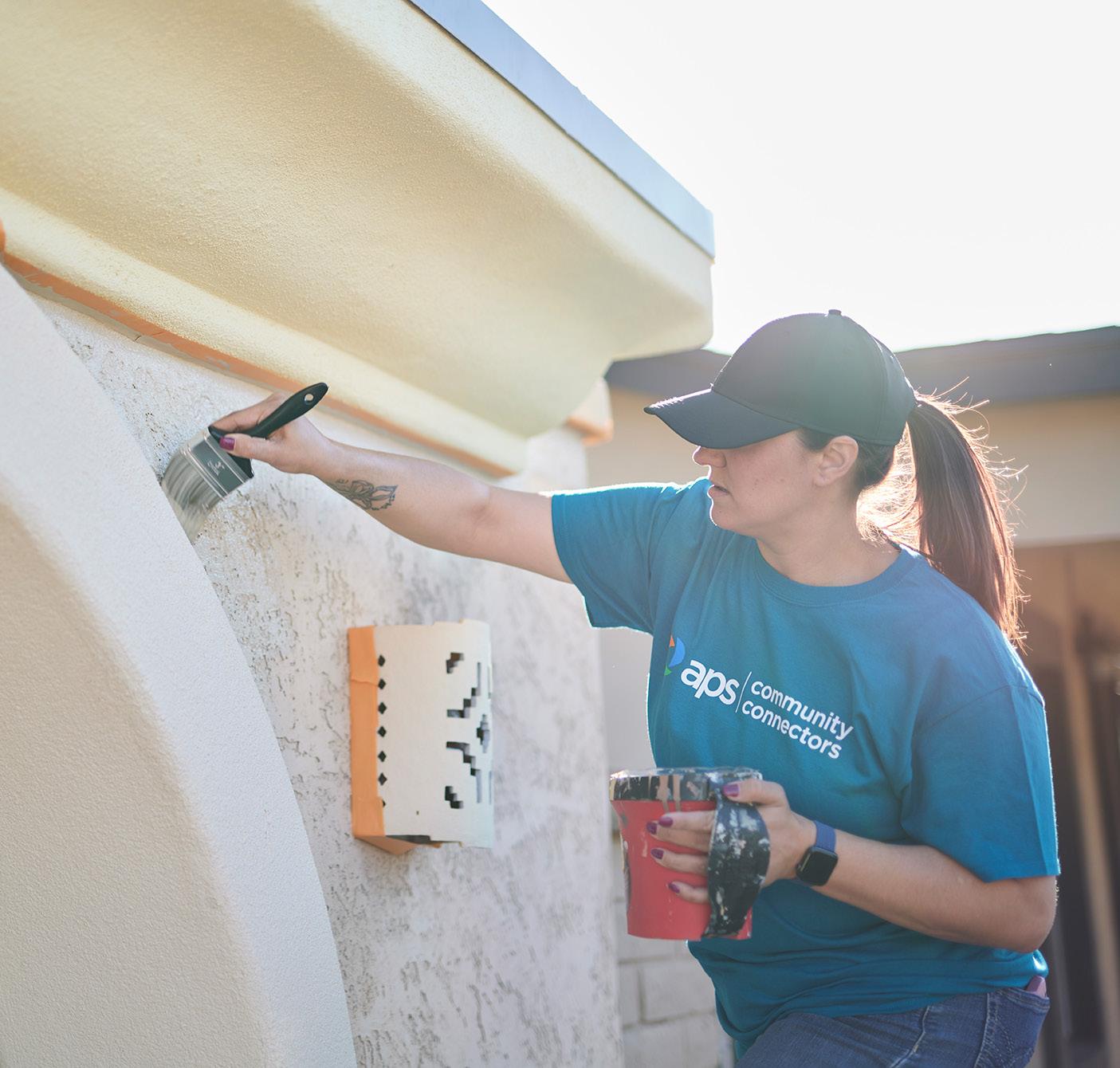
Top Arizona executive: Jeffrey B. Guldner
What it does: Arizona Public Service (APS) generates reliable, affordable, and clean energy for approximately 1.4 million customers in Arizona.
Community impact: By continually investing in the energy grid, APS ensures its customers and our state have access to reliable, affordable and clean power whenever they need it. APS also believes in doing more for the communities it serves than providing energy. Employees volunteer more than 80,000 hours in the community and the company contributes more than $10 million to charitable causes. Whether it’s helping those in need, supporting those who aid others or protecting the environment, APS seizes the opportunity each day to make Arizona a better place.
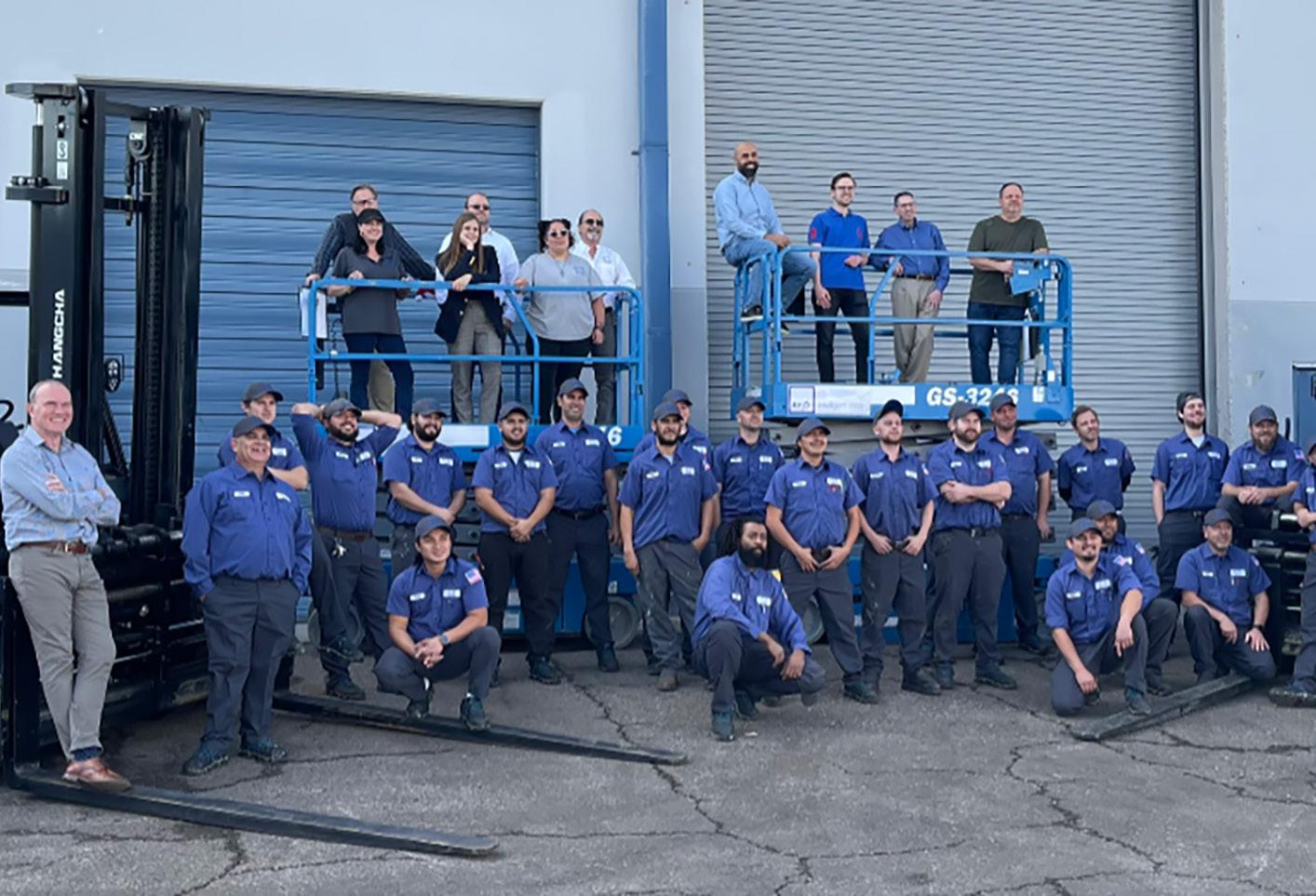
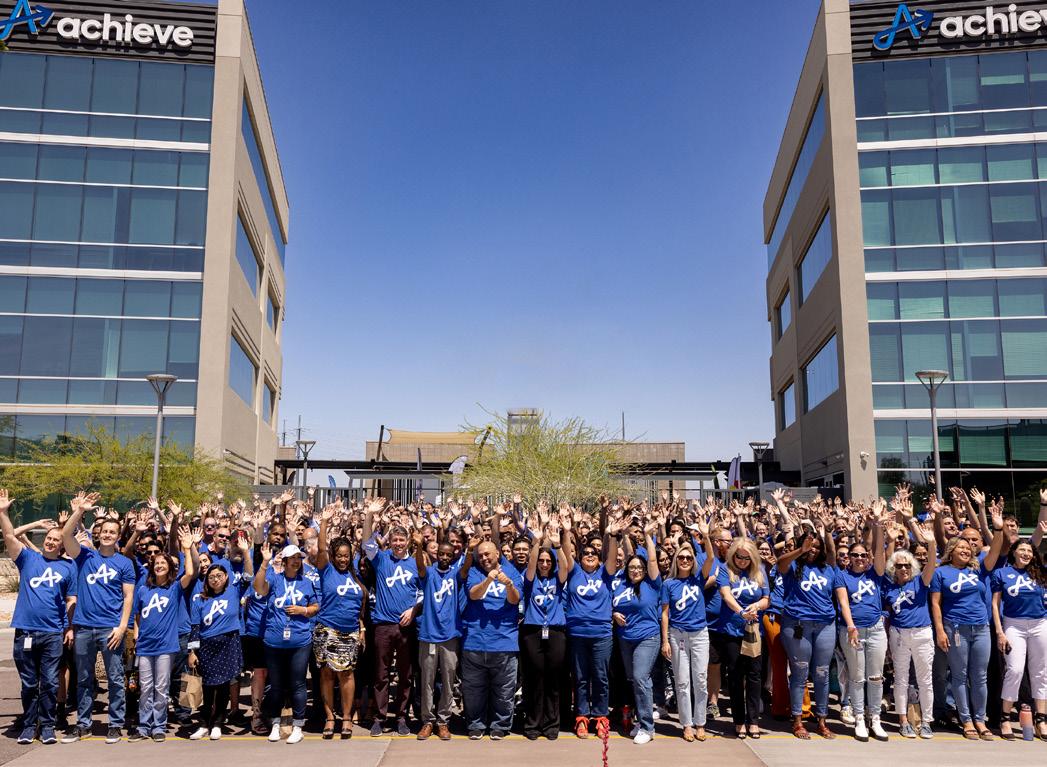
Top Arizona executive: Linda Luman
What it does: Achieve’s mission is to help everyday people get on — and stay on — the path to a better financial future by offering solutions to manage their debt.
Community impact: Achieve gives employees 16 hours of paid volunteer time, match their charitable contributions and have donated more than $80,000 annually to charities in Arizona. Along with its charitable efforts, philanthropy and diversity programs, Achieve is continuing to grow and develop talent in the Tempe market, impacting the local community and economy in a big way.
Workplace culture: Achieve helped more than 550 employees advance and grow in their careers through transfer and promotional opportunities.
Top Arizona executive: Mike Sullivan
What it does: Air20 provides custom commercial HVAC solutions to critical industries like data centers, semiconductor plants, lithium battery manufacturers and indoor agriculture.
Innovative trait: Air2O is a pioneer and leader in the development of thermal management technologies particularly suited to cooling large-scale facilities. Air2O’s units are designed for greater performance, energy efficiency and reliability using the highest quality materials and cutting-edge technology. Today, Air2O’s disruptive and sustainable cooling solutions can deliver up to 70% energy savings compared with conventional cooling technologies with a power usage effectiveness (PUE) as low as 1.08, zero global warming potential (GWP) and no chlorofluorocarbons (CFCs), while producing up to 700 kW per unit.
Help us change the financial future of millions with a career you love.
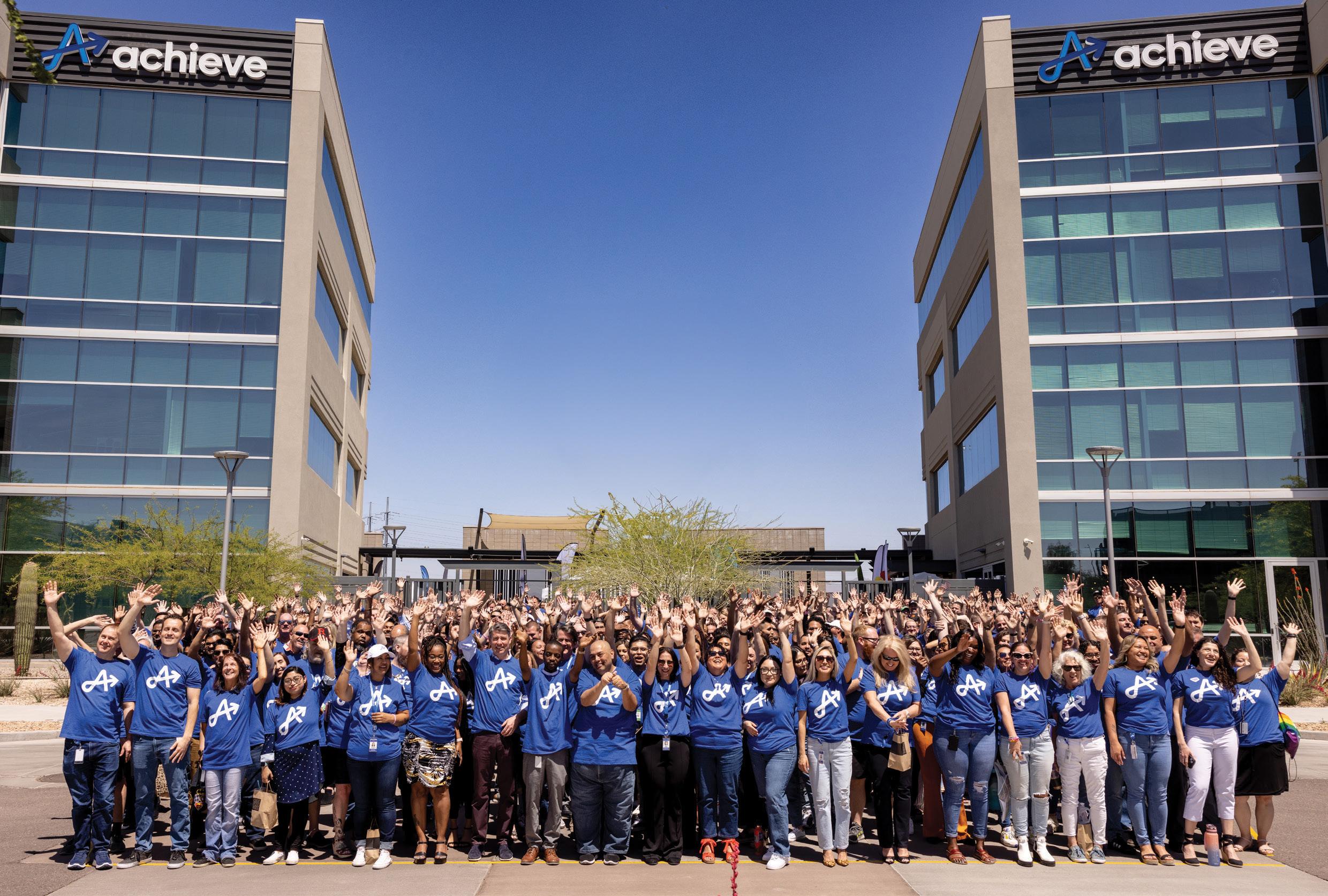

Top Arizona executive: Andrea Aker
What it does: Aker Ink is an integrated PR and marketing agency that helps growthoriented businesses break through barriers to achieve more awareness, leads and thought leadership. The team thinks creatively and
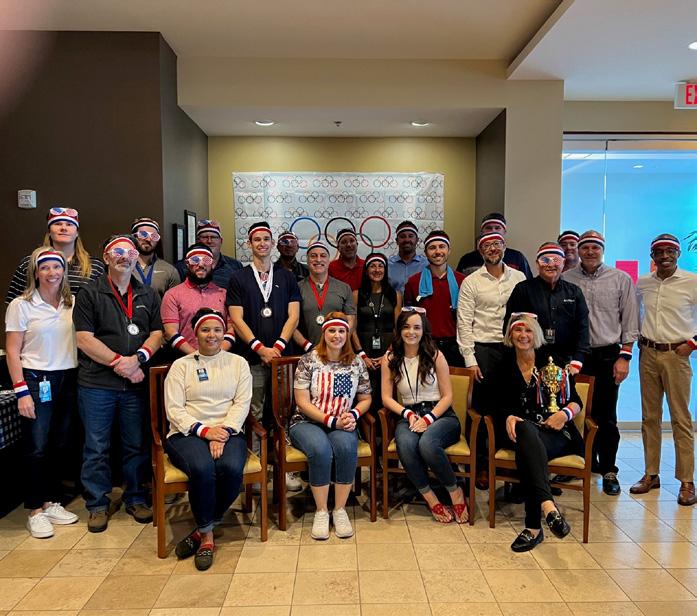

critically, developing strategies that resonate with targeted audiences and incite action.
Workplace culture: Leaders and managers at Aker Ink have an ardent and shared commitment to mentorship. There is also opportunity for growth at all levels into
Top Arizona executive: Steve Haggard
positions of leadership through formal training and continuing education courses. This is among the primary reasons the company is sought out by young professionals dedicated to their crafts. Aker Ink isn’t just a place to work; it’s an environment where people can thrive professionally and personally.
What it does: Alerus is a commercial wealth bank and national retirement provider that provides comprehensive financial solutions to clients, including business and consumer banking, private banking, mortgage, retirement and benefit services and wealth management. Community impact: Through Alerus’ Connect with the Community program, its employees embrace opportunities to do the right thing for others and give back to our communities. Alerus’ charitable giving prioritizes nonprofit organizations focused on community and economic development, affordable housing and financial literacy. In 2023, Alerus contributed more than $100,000 to nonprofit organizations in the Phoenix metro. Alerus also encourages volunteerism and provides eligible employees with unlimited paid time off to volunteer with causes and organizations that are important to them.
Top Arizona executive: Derrick Hall
What it does: Major League Baseball team with a mission to provide industry-leading entertainment.
Leadership: D-backs President, CEO and General Partner Derrick Hall introduced the Circle of Success and BUILD (Belonging, Unified, Integrity, Longevity and Development) to emphasize and support a strong corporate culture, as well as internal framework for effective workplace decision making. The D-backs put a strong emphasis on employee culture to show appreciation to all team employees, which can be seen in First Friday Luncheons, quarterly employee outings, President Roundtable Meetings, Leadership Academy and much more.
Community impact: The Diamondbacks and the Arizona Diamondbacks Foundation have raised and donated more than $85 million in charitable contributions since 1997.


Top Arizona executive: Rick Smith
What it does: Axon is a technology-driven company focused on public safety, with a mission to protect life, capture truth and accelerate justice.
Community impact: Axon has significantly impacted the economy by creating thousands of jobs and fostering a culture of innovation, while also prioritizing the well-being of its employees, offering comprehensive benefits, professional development opportunities and a commitment to diversity and inclusion. Within the community, Axon has been a force for good, as evidenced by its “Force for Good” report, which highlights initiatives like reducing police use of firearms and supporting mental health programs. Axon’s technologies have not only improved safety and accountability, but also strengthened community trust in law enforcement agencies.
Top Arizona executive: Susie Ingold
What it does: Full-service law firm of 42 attorneys founded in 1970.
Leadership: In March 2024, Ingold was tapped as president of the firm. She is the first woman to lead the firm in its 54-year history. Ingold has a keen legal mind, is strategic, charismatic, energetic and a champion for the firm in every way. An exciting new chapter is unfolding.
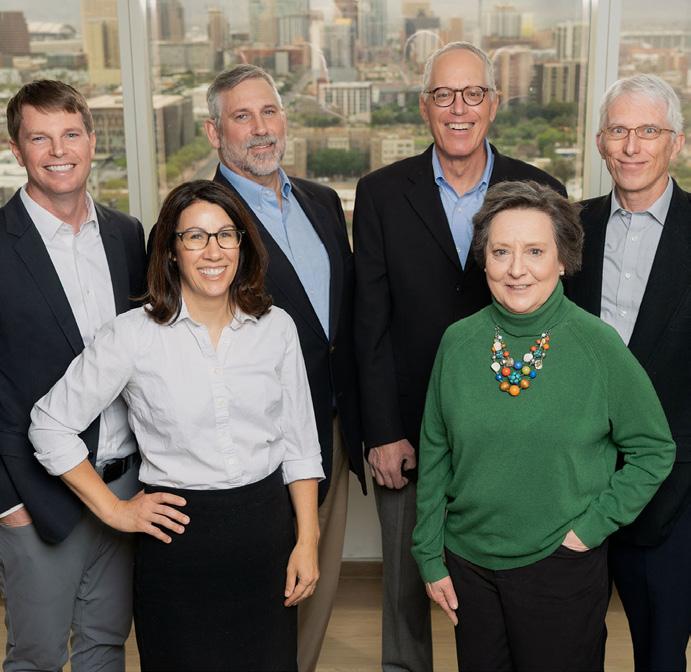
Innovative trait: In 2024, Burch & Cracchiolo made a strategic decision to create the largest liquor licensing practice group in Arizona. The firm offers all services necessary when opening or expanding a business that requires one of 23 different kinds of liquor licenses in the state of Arizona.

Top Arizona executive: Pam Kehaly
What it does: AZ Blue offers health insurance and related services to more than 2 million customers.
Leadership: AZ Blue’s executive leadership team represents both impressive depth and a diverse array of backgrounds and healthcare experience. This enables the company to find new and innovative ways to bring technology and teamwork together to transform healthcare in Arizona.
Workplace culture: AZ Blue’s peopleoriented culture fosters an environment of collaboration where employees feel connected to each other and see the difference they make in the lives of members and the community.
Approximately one-third of AZ Blue’s job openings are filled with employees, promoting career development and appreciating their knowledge.






























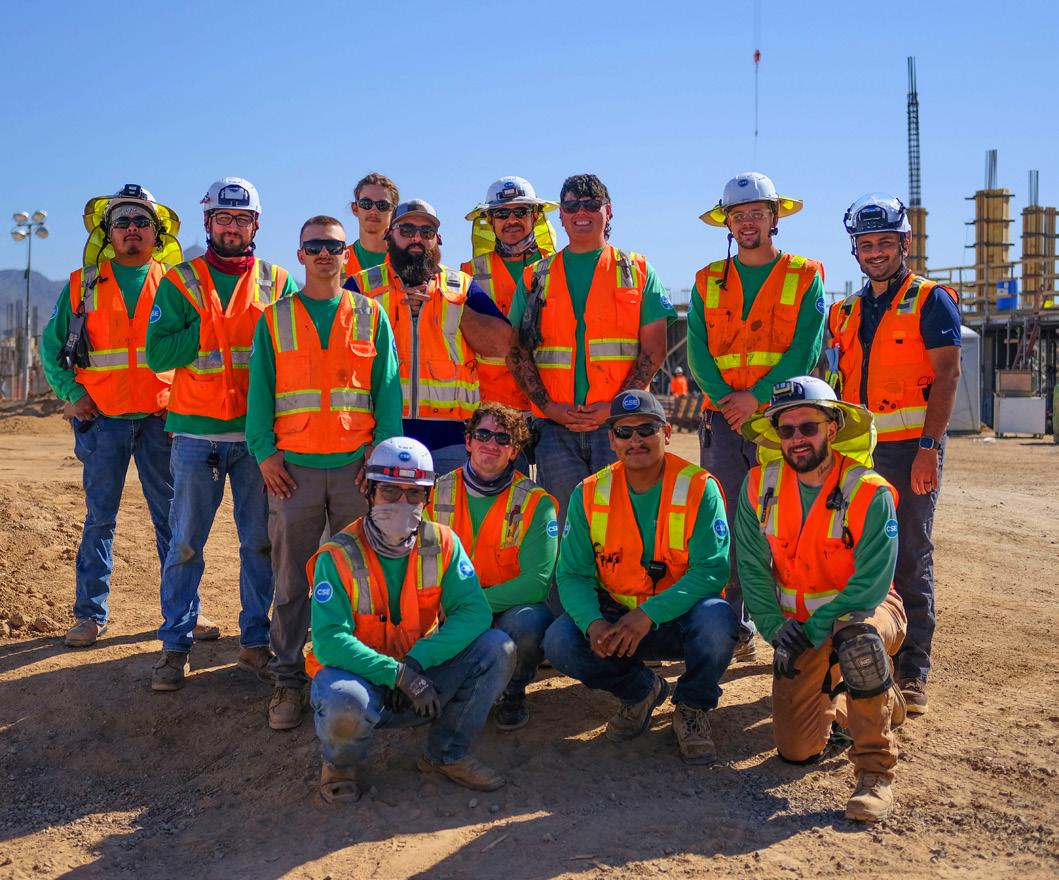
Top Arizona executive: Stephanie Maderazzo-Hughes
What it does: Electrical construction services.
Community impact: Canyon State Electric has dedicated itself to preventing death by suicide in the construction industry by starting the nonprofit 4x5 Suicide Prevention Program. Now open to tradespeople from any company, this program trains workers to identify mental health challenges in themselves and co-workers before they become unmanageable. Designed by construction professionals for the construction industry, the message is easily understood and accepted, contributing to the industry’s overall health.
Innovative trait: Using innovative virtual design and construction techniques, Canyon State Electric builds world-class electrical systems while reducing clients’ budgets and shortening project timelines.
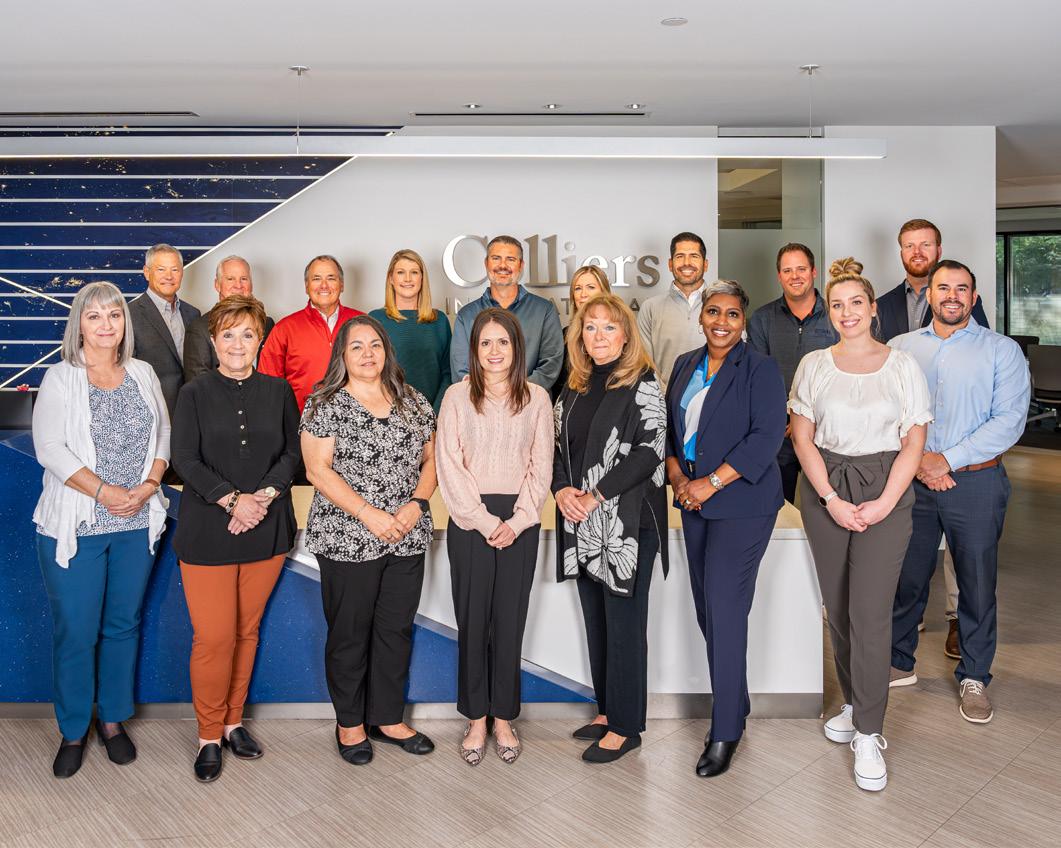
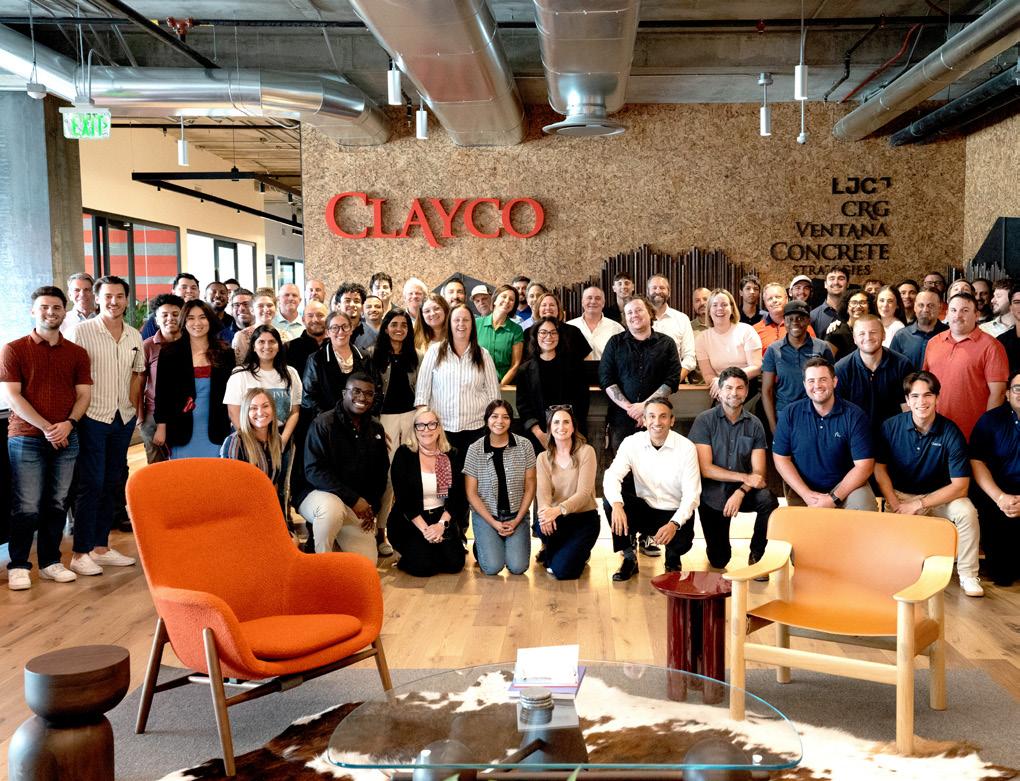
Top Arizona executive: Ryan Abbott
What it does: Full-service, turnkey real estate, architecture, engineering, design-build and construction firm.
Community impact: Clayco participates in the Construction Career Development Initiative (CCDI), a nonprofit organization that promotes diversity in the design and construction industry. In 2021, CCDI was launched in Phoenix as part of the Skye on 6th project, a collaboration between Clayco, Hubbard Street Group and Phoenix Union Bioscience High School.
Workplace culture: Clayco achieved a significant milestone in workplace safety with an Experience Modification Rate (EMR) of 0.40. This exceptional rating underscores Clayco’s unwavering commitment to maintaining the highest safety standards in the construction industry. EMR is used by insurance companies to measure how safe a company is compared with others in the same industry.
Top Arizona executive: Bob Mulhern
What it does: Full-service commercial real estate organization, providing integrated services to real estate occupiers, owners and investors and business owners.
Community impact: Colliers promotes programs to encourage everyone to practice the company’s community service values through volunteerism, active participation and charitable giving. The Colliers Arizona business has grown five-fold in the past 15 years while building a culture that continues to unleash the greatness in Colliers’ professionals and their clients.
Workplace culture: Colliers’ dynamic culture is what separates it from its competitors. Colliers believes that “culture” eats “strategy and process” for lunch. Colliers is committed to being strategic participants by assisting its clients in making very important and often complicated real estate decisions.

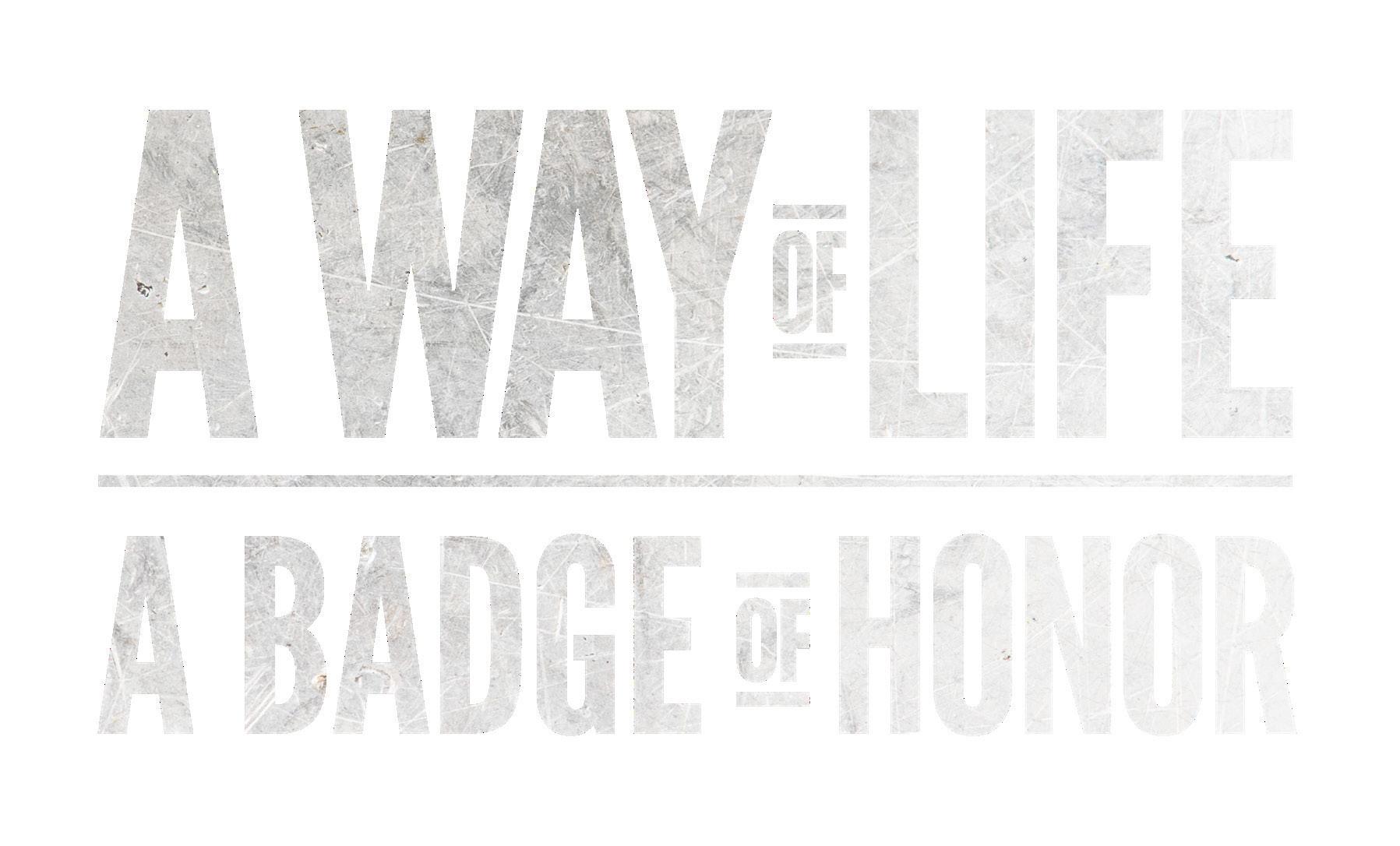
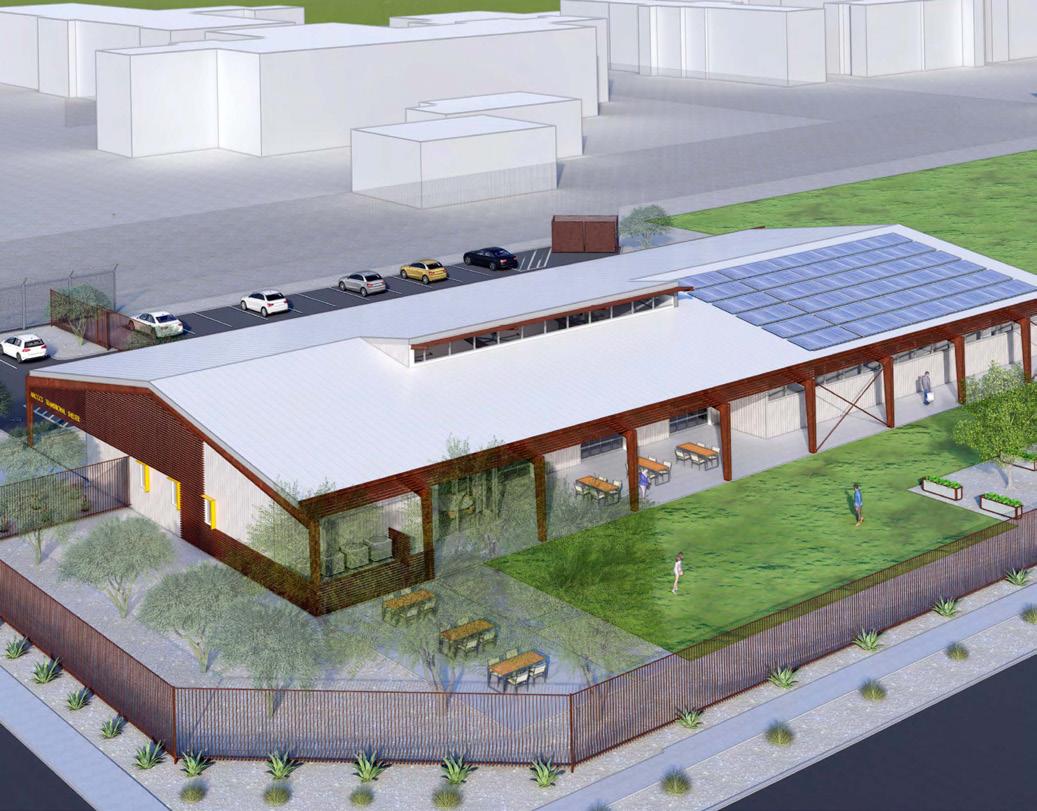
Top Arizona executive: Shar Najafi-Piper, PhD
What it does: Copa Health delivers integrated care for individuals with mental health challenges.
Community impact: With administrative offices in Mesa and clinics, group homes, employment-related services and residential options across the state, Copa Health serves all of Arizona and the Salt Lake City area. Copa has more than 100 facilities focused on serving members in the housing and healthcare realm. The first Copa school, for children with intellectual challenges, opened over 60 years ago.
Leadership: Najafi-Piper’s leadership style, wherein she uses relationship building skills to listen, motivate and empower employees to transform, shows itself in all aspects of her work. Instead of using power, she influences change through collaborative means.
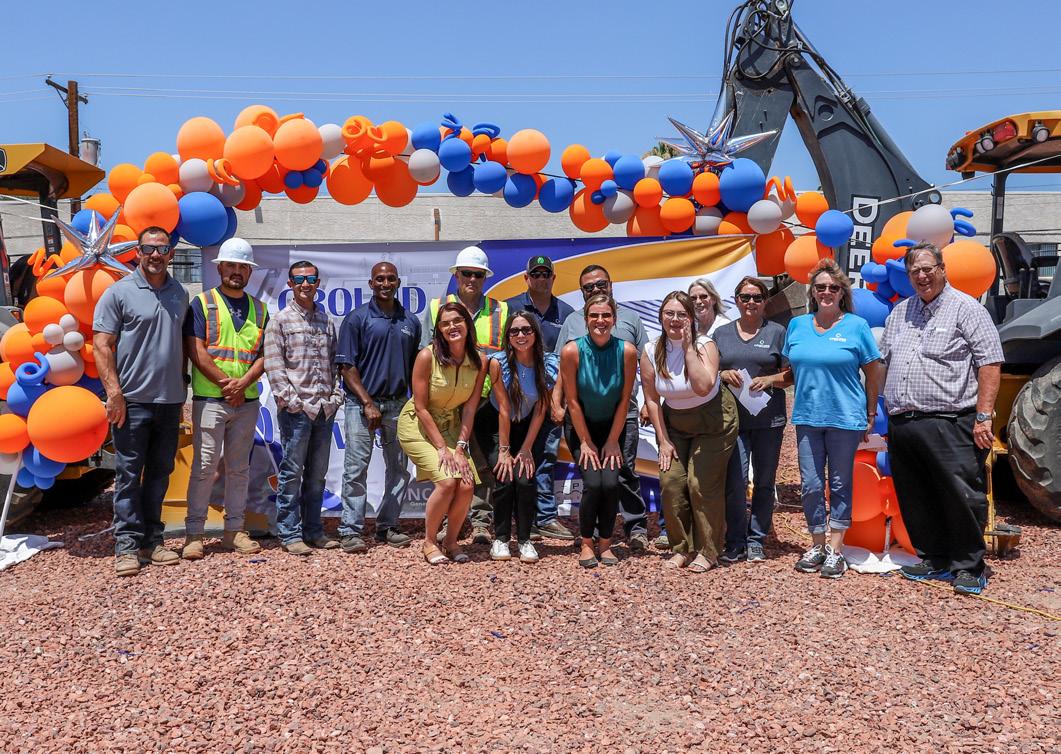
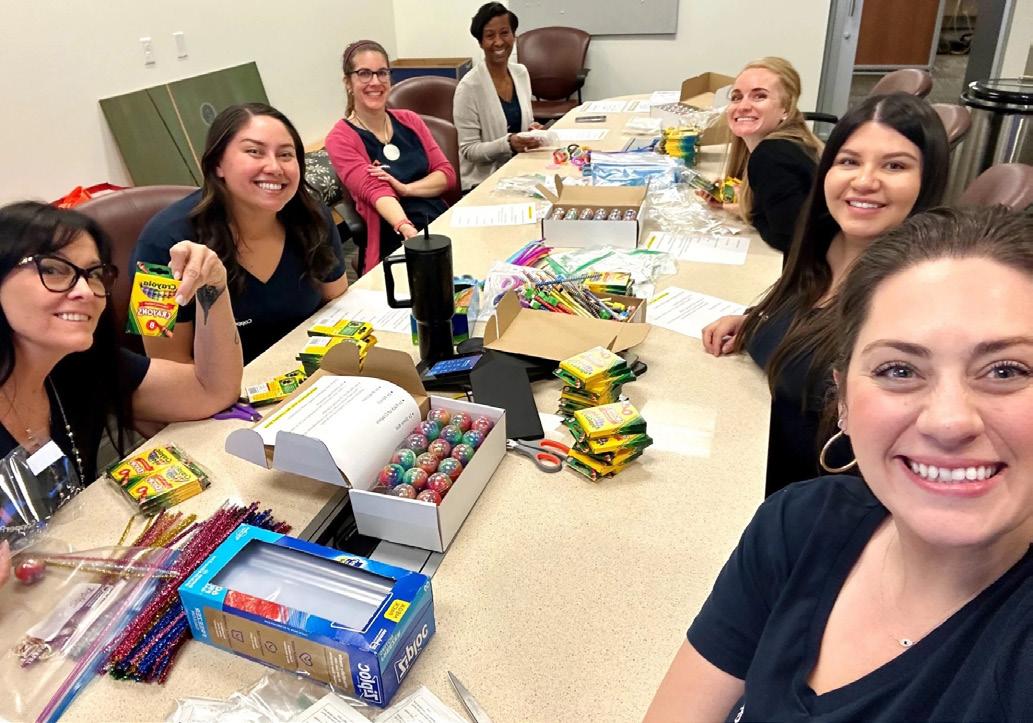
Top Arizona executive: Marc Schmittlein
What it does: Founded in 1925 as the Arizona Workers’ Compensation state fund, CopperPoint became a mutual company in 2013 and has evolved to become a leading specialty insurance carrier.
Community impact: As an inclusive organization that puts people first, CopperPoint Insurance Company is committed to expanding opportunity for everyone. The company embraces that commitment by giving back to its communities through volunteering, increasing educational accessibility and donating an annual total of more than $1.8 million across 260 organizations.
Workplace culture: CopperPoint’s award-winning culture is driven by its mission to make insurance mean more, every day. This means the company does more to care for everyone it serves, including its employees.
Top Arizona executive: Grenee Martacho
What it does: Concord has been delivering high-quality projects throughout Arizona in the commercial, education, municipal and nonprofit sectors for 52 years.
Company impact: Concord impacts the economy and the lives of employees through referral bonuses, fitness pass reimbursements, HSA and ESOP contributions, 401(k) matching, etc. Concord sees its largest impact in the community through the nonprofit work it does. Concord has built more than $300 million in nonprofit facilities that serve our communities each day.
Workplace culture: Concord is employee-owned and employeeowned companies make a huge impact on the economy by improving employee retention and averaging 6% growth annually.
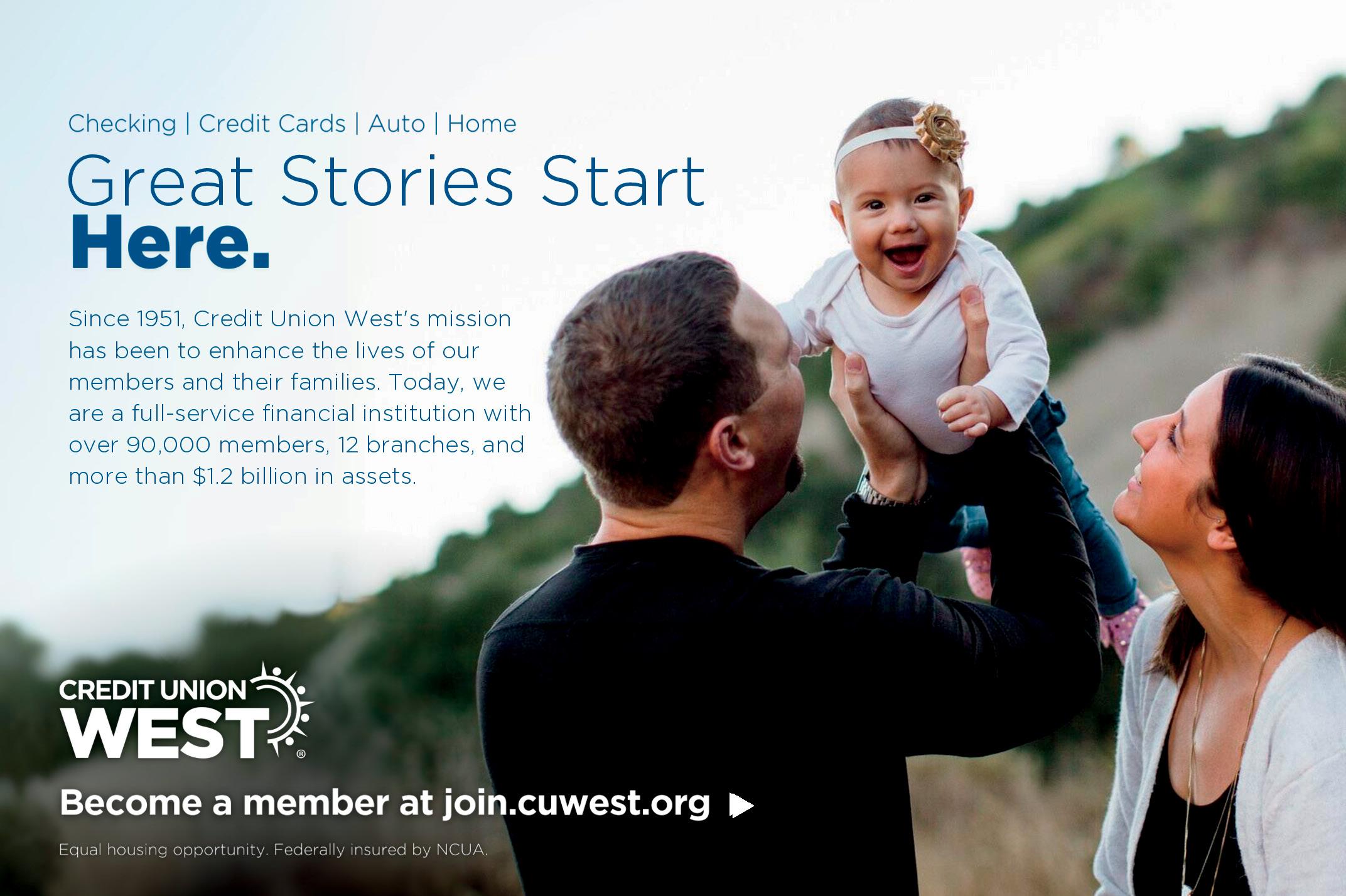

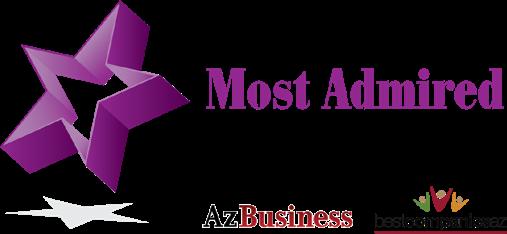

Top Arizona executive: Karen Roch
What it does: Financial services provider.
Community impact: Last year marked the official organization of the CU West CARES Foundation. Built from a passion to help the community and members achieve a brighter future, the foundation was created to act in the spirit of the credit union movement, “people helping people.”
Workplace culture: An emphasis is put on the health and well-being of Credit Union West employees. The credit union invested $1,437,686 to be able to offer all full-time employees 100% paid health, dental and vision insurance to ensure reliable and consistent access to healthcare. Along with this, all employees have access to its on-campus gym or reimbursement for outside gym memberships.
Top Arizona executive: David Sellers
What it does: Creation is a rapidly growing, versatile firm involved in real estate development, hospitality brand inceptions and alternative investments.
Industry impact: The company has a current pipeline of more than $4.5 billion of ground-up developments across six states.
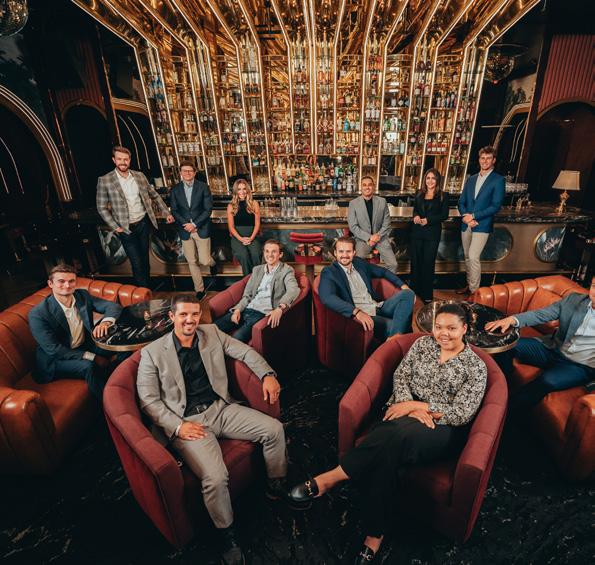
Leadership: Founded by David Sellers and Bob Agahi, Creation has been a driving force behind the development of many of the Southwest’s most exciting projects, including The Hub, AZRE’s 2020 RED Award winner for Best Industrial Project — more than 500,000 square feet; and The Collab, AZRE’s 2020 RED Award winner for Best Office Project — less than 150,000 square feet.
Workplace culture: Creation provides a state-of-the-art gym in both of its offices (Arizona and Texas).
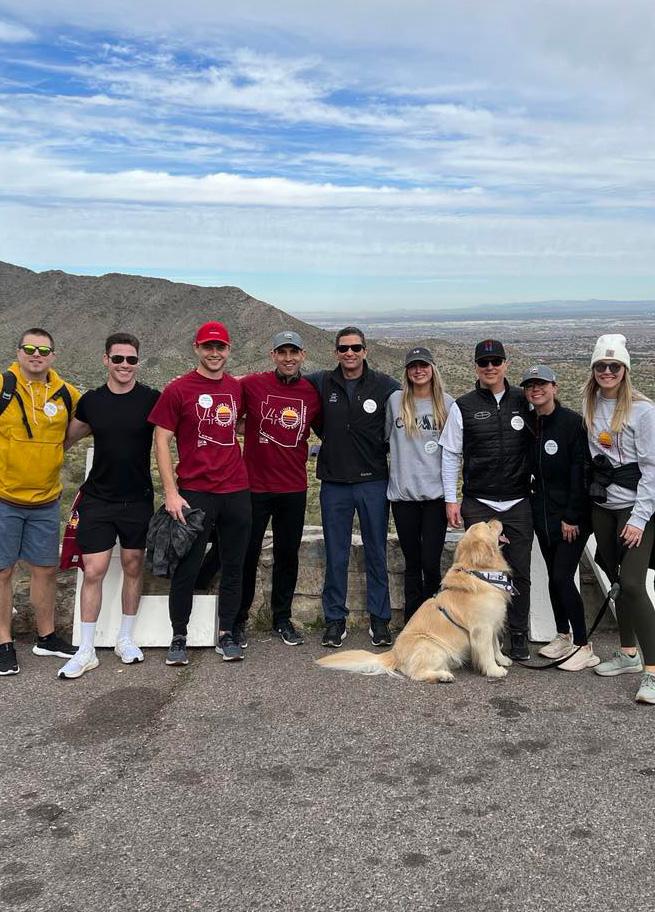
Top Arizona executive: Gary Gregg
What it does: The world’s only global commercial real estate advisory firm that exclusively represents occupiers and specializes in the delivery of fully integrated real estate solutions.
Workplace culture: Cresa fully believes in mentorship. Each of Cresa’s accounts is managed by a partner who is committed to developing new talent and sharing years of industry knowledge with them. This begins by including them on accounts and providing the opportunity to learn through real world account management, side-by-side with their senior partner. Cresa also teaches them how to make the most of client feedback, ensuring their growth and client satisfaction.
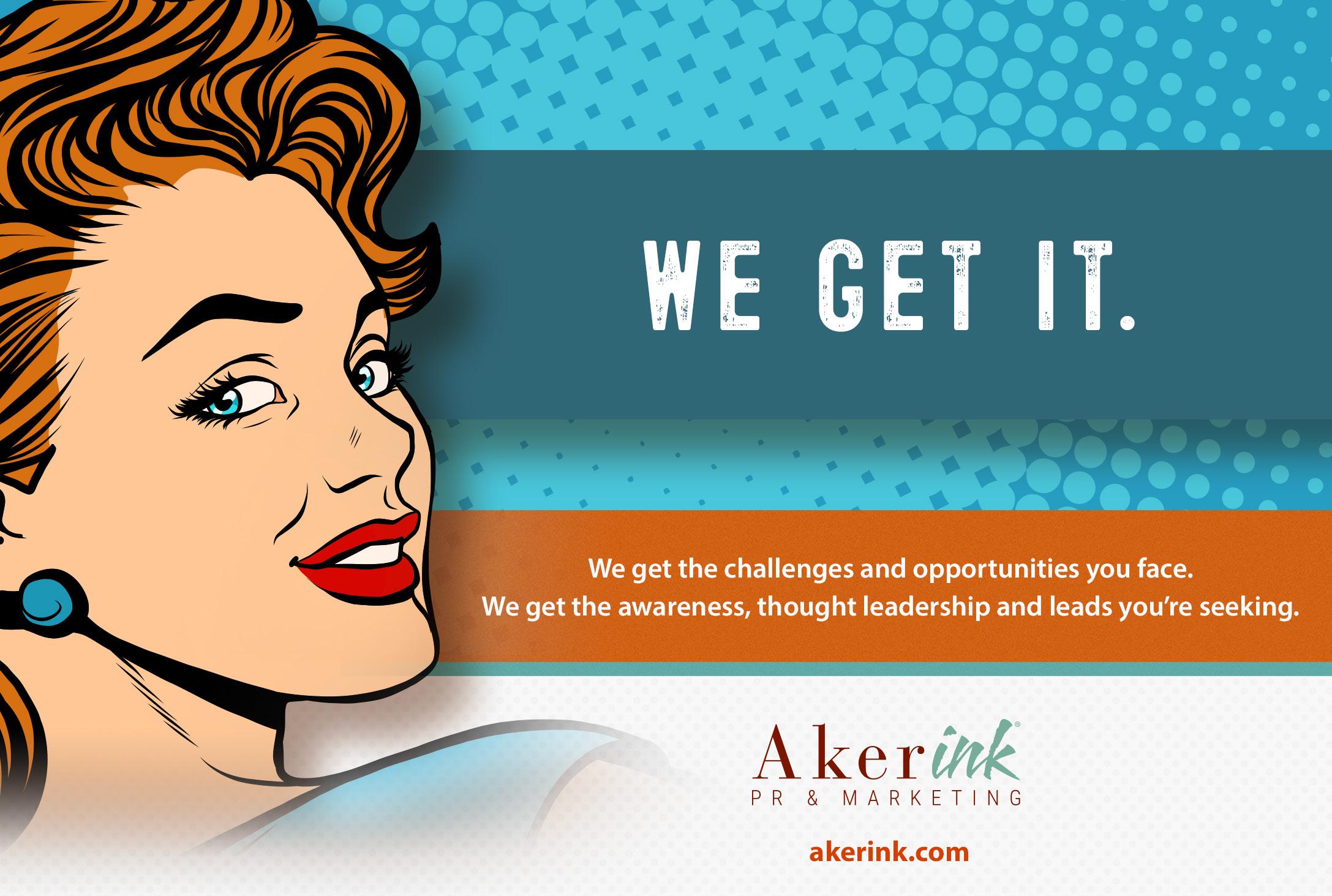
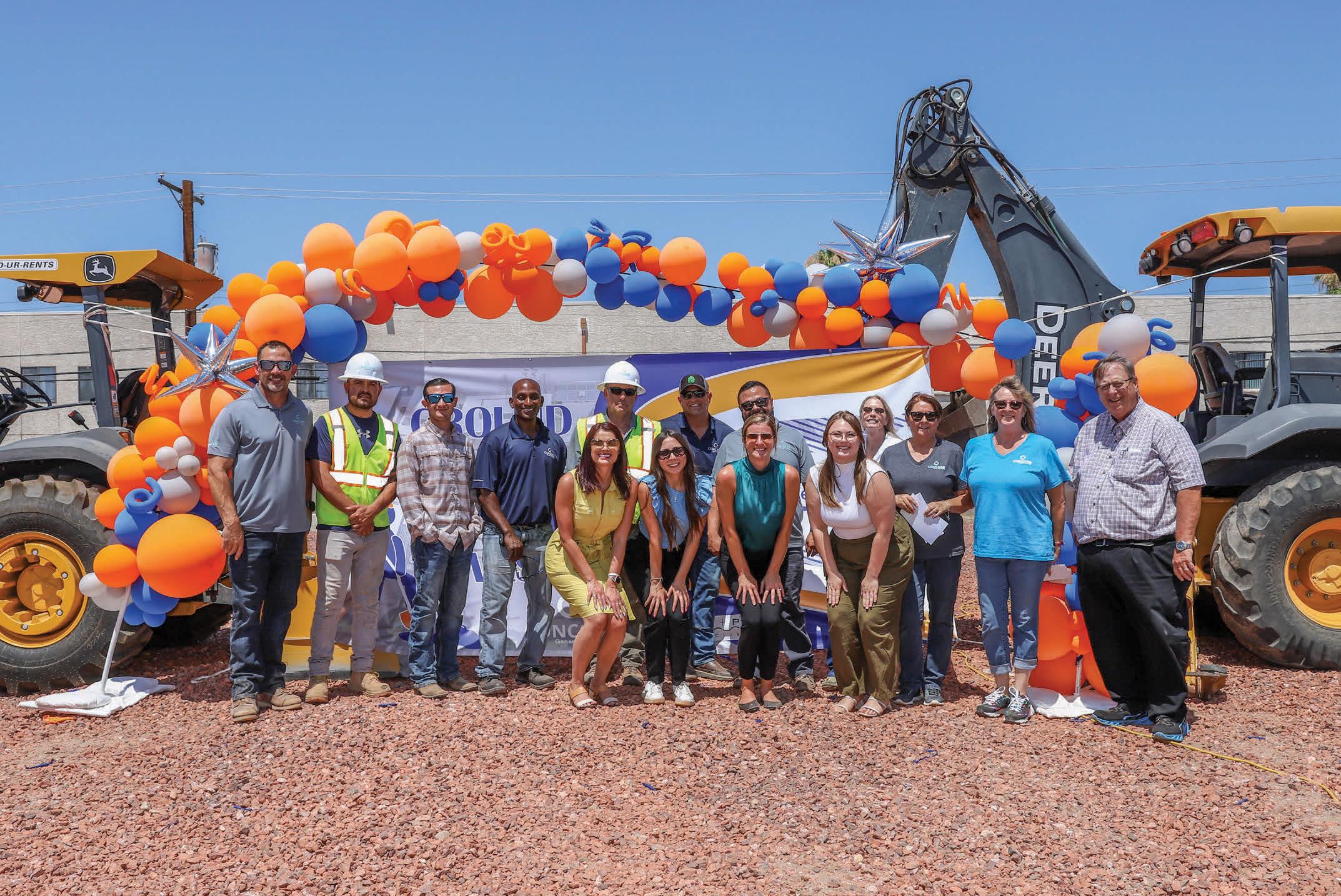
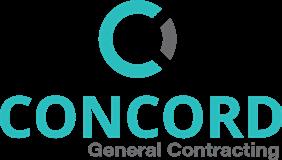
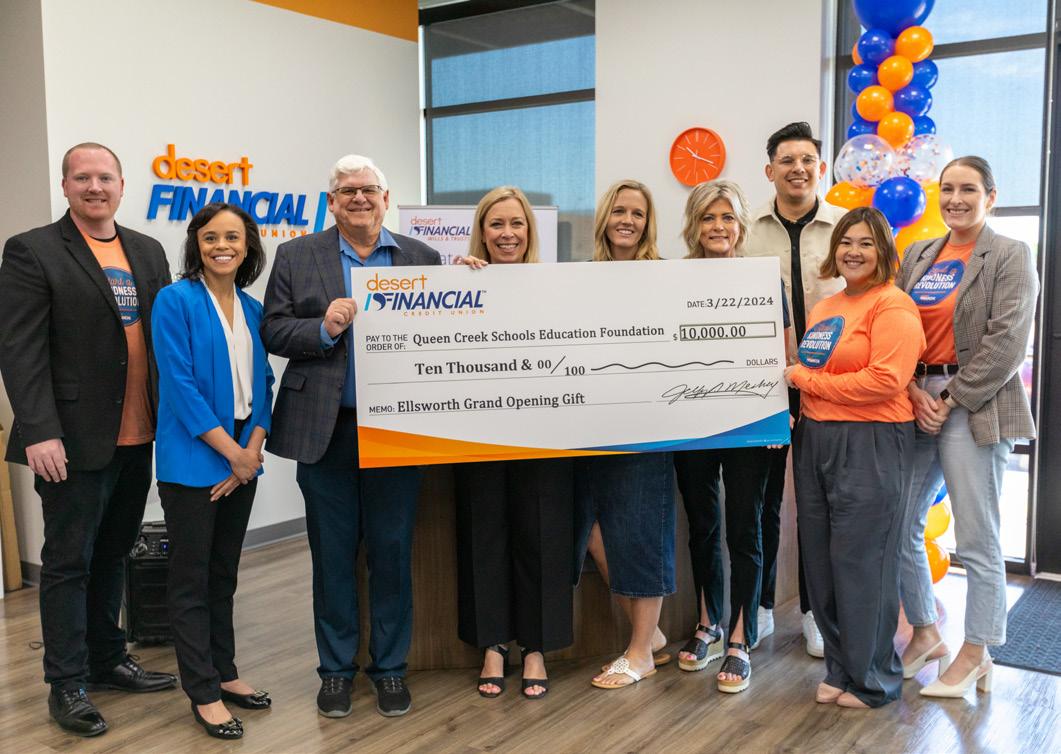
Top Arizona executive: Jeff Meshey
What it does: Financial services provider.
Community impact: In 2023, Desert Financial’s giving totaled $4.5 million through corporate, foundation and employee giving, with $1.15 million raised for the 1 Darn Cool School at Phoenix Children’s, $300,000 awarded in community grants and over 18,000 volunteer hours dedicated to community service.
Leadership: Desert Financial’s leadership team exemplifies a blend of strategic innovation and community dedication. Over the past several years, leaders have created partnerships with some of Arizona’s most beloved brands, expanded into new regions and enhanced member experiences through forward-thinking initiatives. Their efforts in customer service, marketing and community giving have positioned the organization as a dynamic and member-focused financial institution.
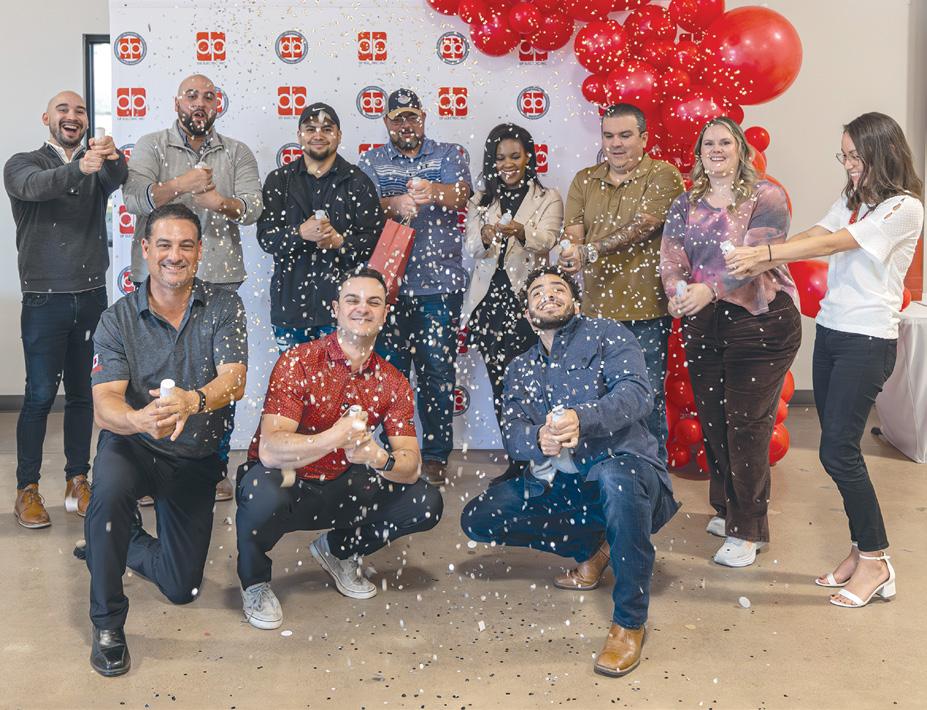
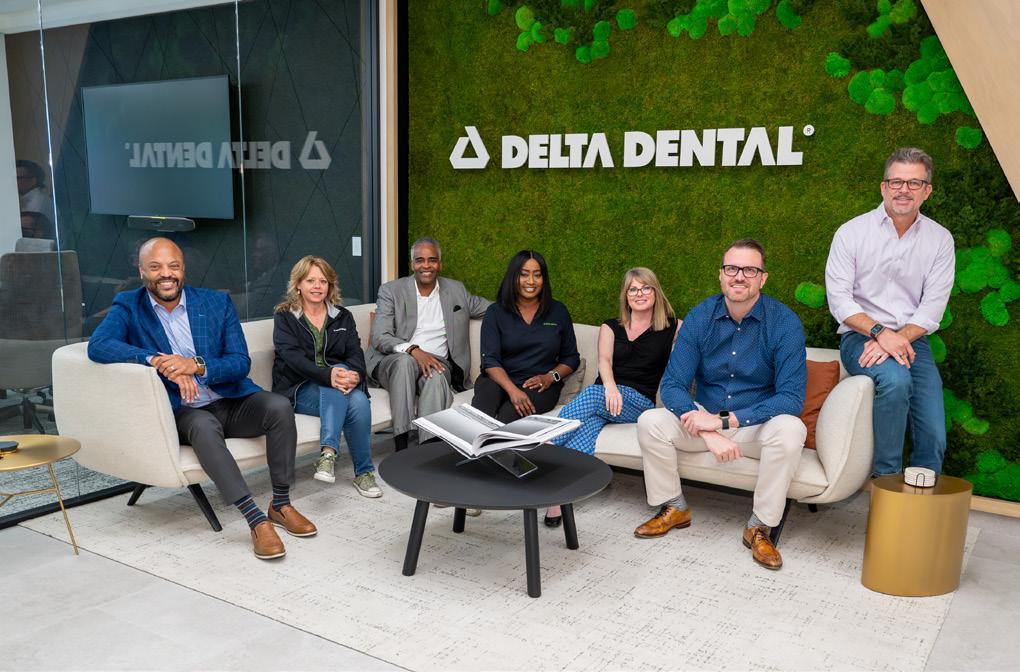
Top Arizona executive: Michael Jones
What it does: Health and wellness company providing affordable dental and vision benefits to individuals, families and businesses throughout the state.
Community impact: DDAZ stands out in the marketplace by removing the barriers that prevent patients from accessing the healthcare they need. They do this by offering their members dependable value, with trusted access to quality care providers, plans that are easy to understand and award-winning customer service. DDAZ also distinguishes itself through its steadfast support for the community. Since 2010, the Delta Dental of Arizona Foundation has given over $18 million to support oral health education, disease prevention and food assistance programs for underserved and uninsured communities across the state.
Top Arizona executive: Danielle Puente
What it does: One of the leading electrical contractors in Arizona.
Workplace culture: DP Electric’s mission is to empower its people to grow personally and professionally to create an exceptional experience for its team, partners and community. Additionally, just this year, DP Electric went 100% employee-owned, which is a true testament to its value of family culture.
Innovative trait: One of the most recent examples of this is the buildout of DP Electric’s state-of-the-art DP University building. In this building, DP Electric holds its NCCER accredited apprenticeship program, which is free to employees, as well as different leadership and safety classes for all employees.

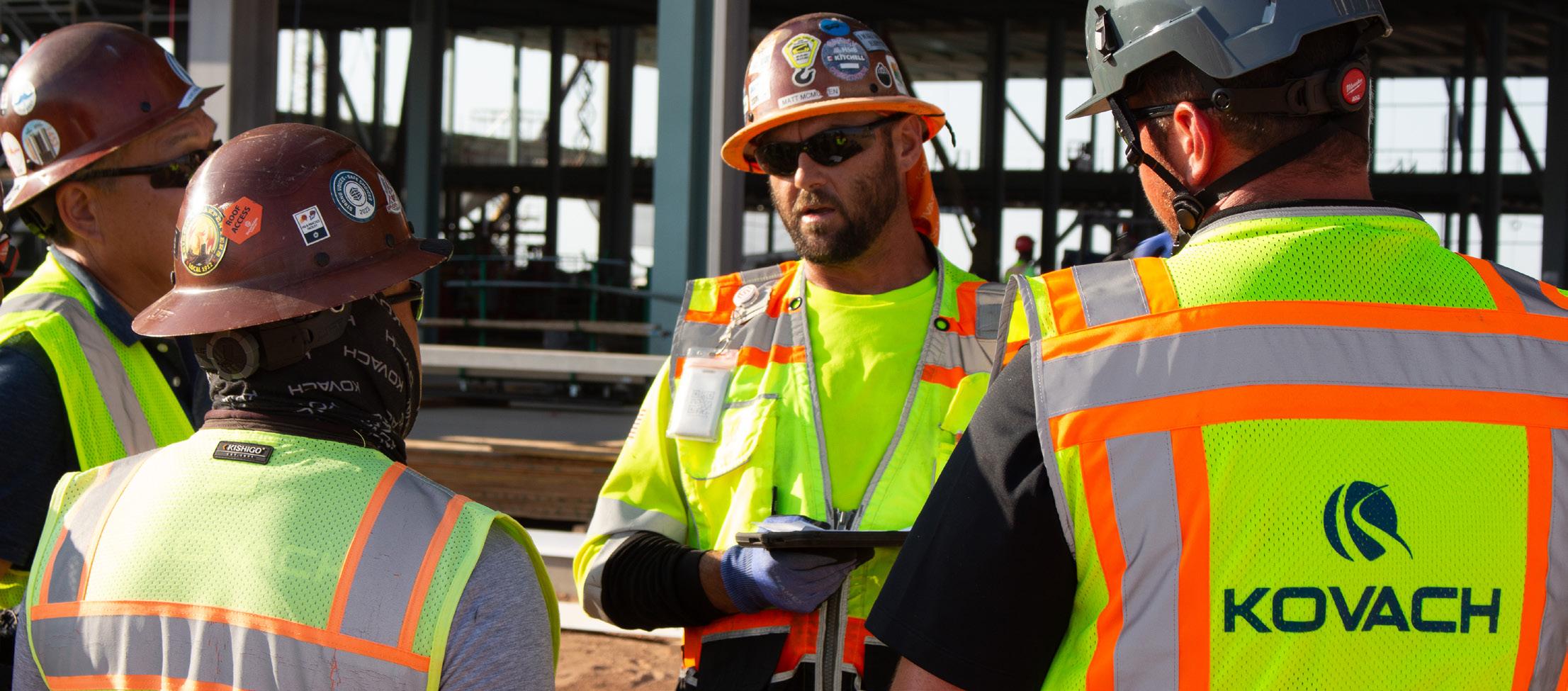
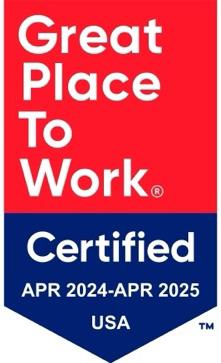

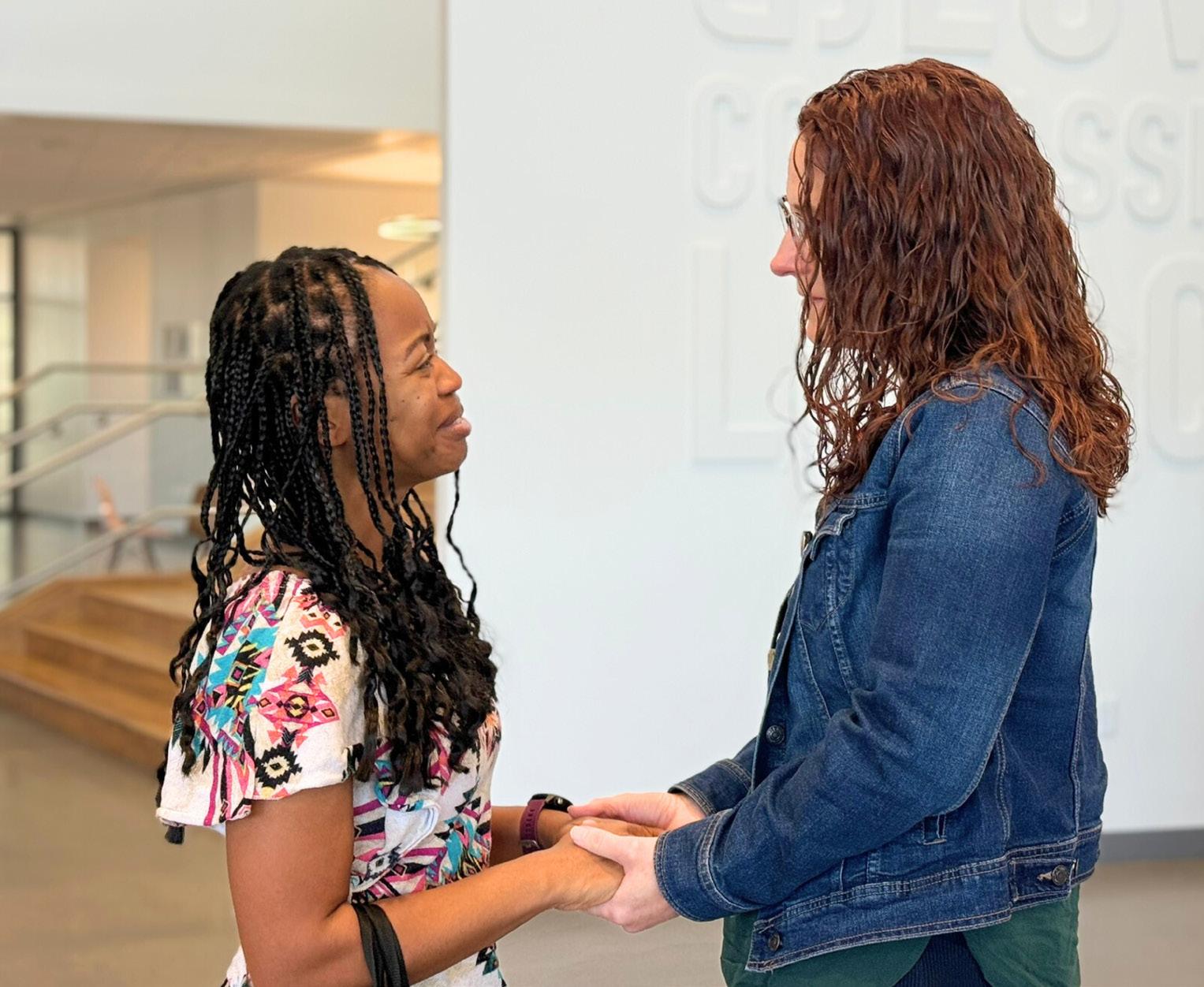
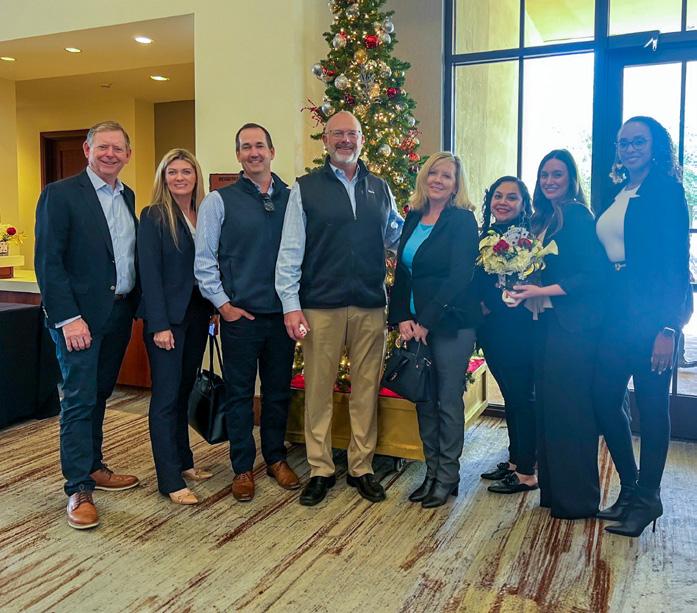
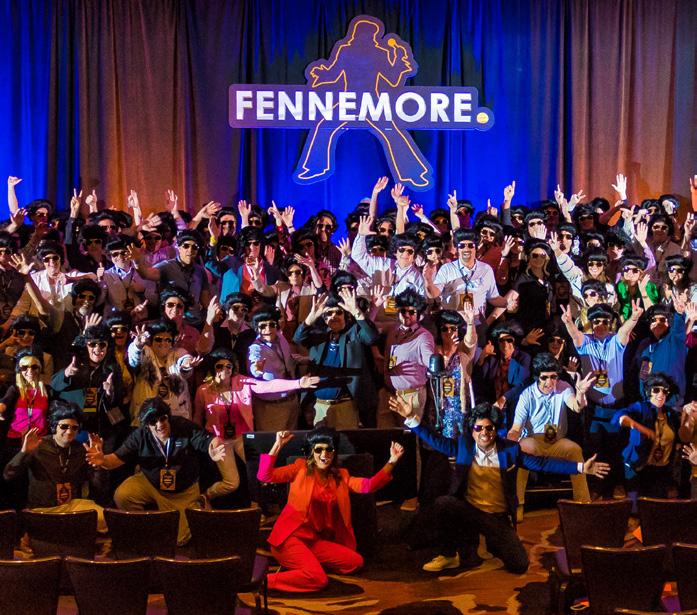
Top Arizona executive: Tim Brown
What it does: Donor Network of Arizona (DNA) makes the most of life through the gift of organ and tissue donation.
Leadership: With more than 100 years of experience combined at DNA, the executive leadership team has led DNA through eras of improvement and change with a humble and steady hand.
Workplace culture: Work-life balance and overall employee wellness is a priority with a generous PTO policy of 15 to 40 days off per year based on tenure. DNA’s office location has a gym and its health insurance plan offers monetary incentives for certain wellness tasks, such as getting an annual physical, joining fitness challenges, attending health and wellness presentations and more.
Top Arizona executive: Brian Crisp
What it does: Enterprise Bank & Trust is a growing financial services partner focused on guiding people to a lifetime of financial success.
Workplace culture: Enterprise consistently invests resources to ensure a positive economic impact on employees and the communities it serves. Many employees have held roles with Enterprise for a decade or longer, often benefitting from promotion and development opportunities as the bank has grown.
Innovative trait: Enterprise prides itself on being a reliable resource to small and midsize enterprises, startups, nonprofits and other organizations that are in need of creative and innovative financial solutions to help them thrive and expand their businesses.
Top Arizona executive: James Goodnow
What it does: Full-service Am Law 200 business law firm that embraces change and drives innovation.
Leadership: James Goodnow became the youngest known CEO of a major U.S. law firm when he took the reign at age 37 and has led the firm for six years.
Innovative trait: Fennemore Labs serves as the firm’s R&D platform to incubate ideas for new ventures, legal services or business lines and strategies for service deliveries. This hub focuses on ethical practices and social responsibilities in tandem with the rise of new technologies (such as AI’s transformative impact on the legal industry), services, pricing and value that the firm can provide to its clients.

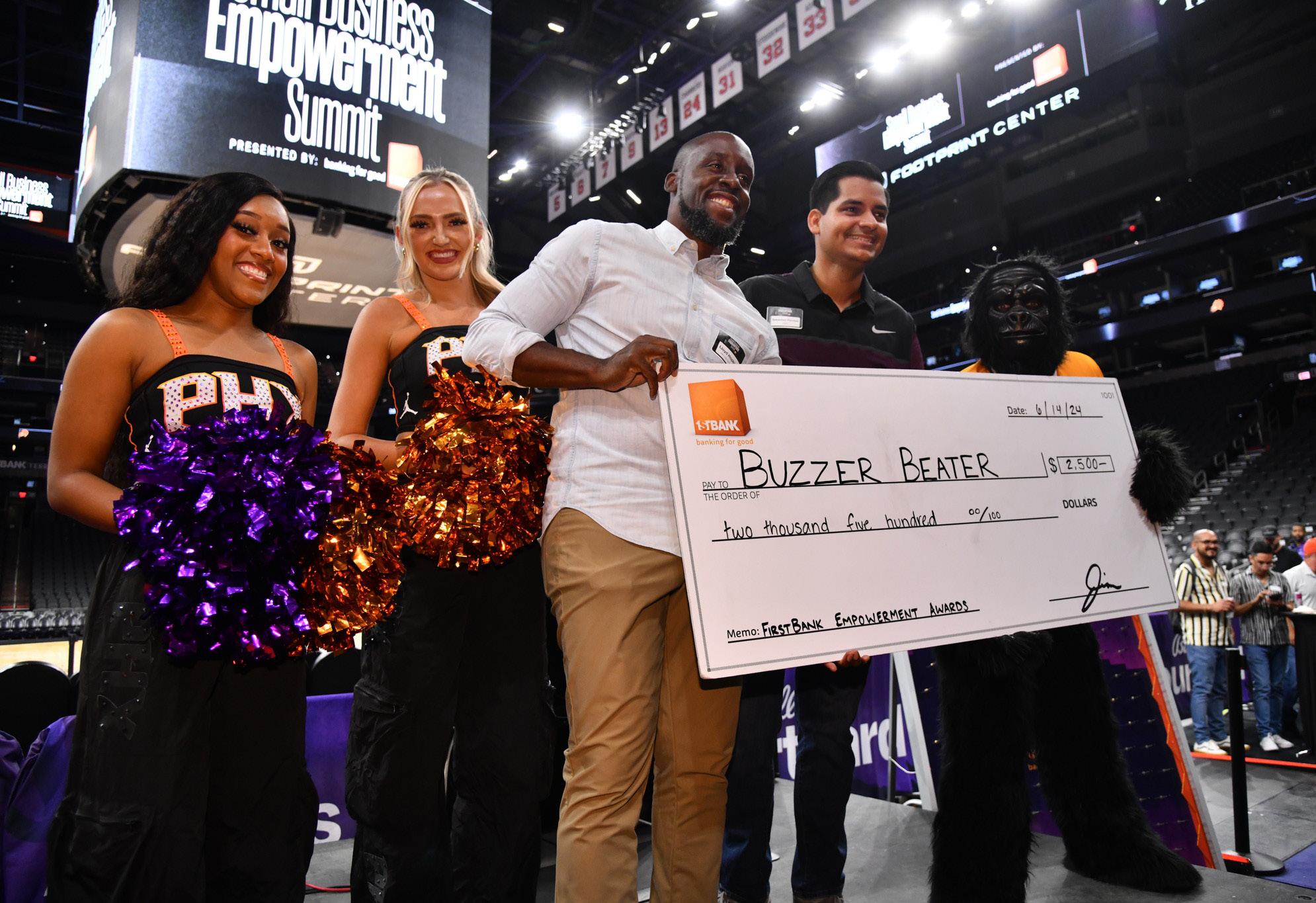
Top Arizona executive: Joel Johnson
What it does: One of the nation’s largest privately held banks with a focus on “banking for good.”
Community impact: FirstBank’s emphasis on doing what’s right for customers, communities and employees, or what it refers to as “banking for good,” has helped the bank reach record growth while making a substantial impact on the communities it serves. Since 2000, FirstBank has been recognized as a leader in corporate philanthropy, contributing more than $92 million and thousands of volunteer hours to local nonprofits. Over the past few decades, FirstBank has embraced philanthropy as a fundamental aspect of its business philosophy. The bank firmly believes in investing in local communities, nonprofits and small businesses.
Top Arizona executive: Tim O’Neal
What it does: Goodwill of Central and Northern Arizona’s mission is empowering individuals, strengthening families and building stronger communities.
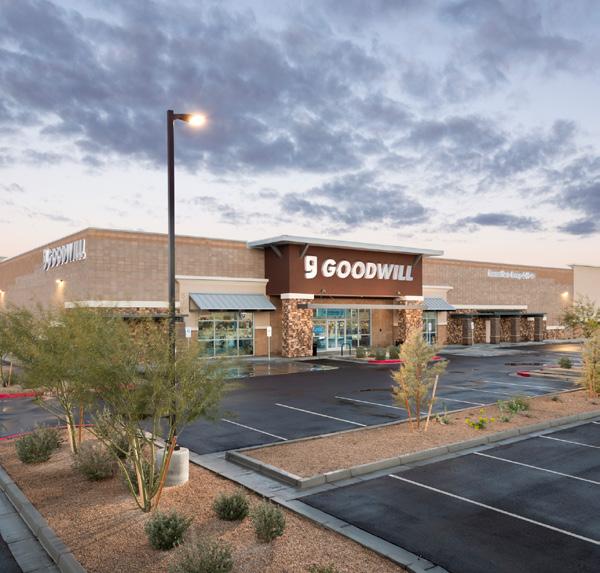
Community impact: GCNA is committed to increasing the impact of tried-and-true methods of reducing waste in landfills while driving workforce, educational and economic impact in the community. In 2023, GCNA collected and diverted more than 280 million pounds of material from going directly into Arizona landfills. There are many steps taken in order to ensure donations are handled responsibly and bring positive value to Arizona communities and the environment. GCNA’s process gives no-longer-needed items a second chance, to ensure as many items as possible are sold, or sorted and responsibly recycled.
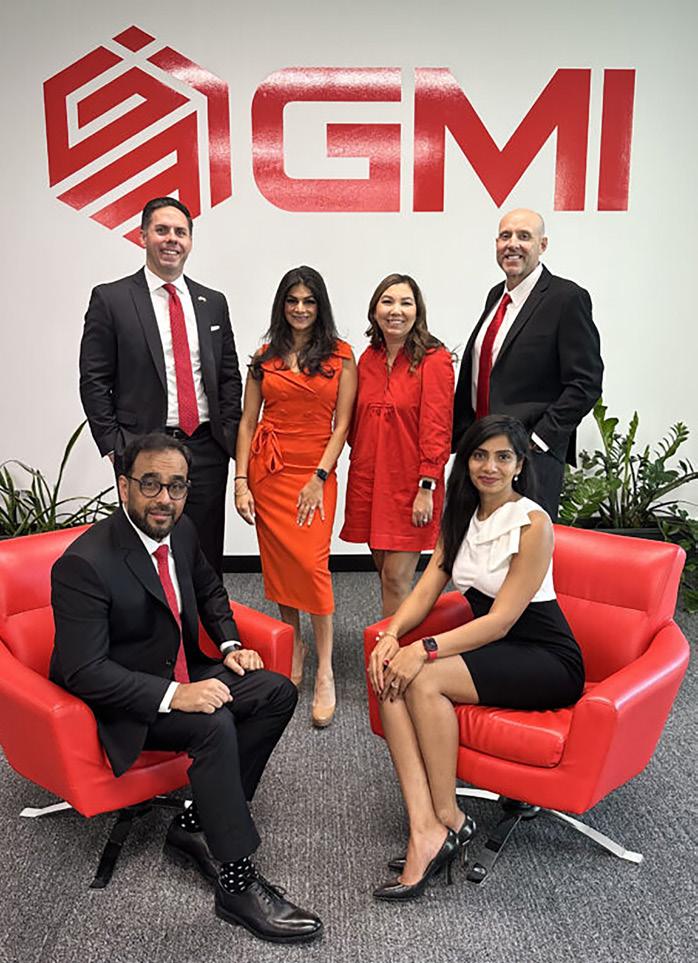
Top Arizona executive: Vicki Mayo
What it does: Comprehensive technology solutions provider, emphasizing cybersecurity.
Community impact: Through strategic acquisitions and steadfast commitment to its north star, GMI has experienced rapid growth and success. This expansion has not only bolstered the economy but has also provided numerous employment opportunities, fostering a dynamic workforce dedicated to technological innovation and security. Additionally, GMI’s community engagement initiatives further contribute to its positive impact, enhancing technological literacy and security awareness within the local community.
Innovative trait: GMI’s innovative SMSP (Secure Managed Service Provider) model revolutionized the IT industry by prioritizing cybersecurity in every aspect of its offerings. This approach not only ensures organizations’ productivity, but also shields them from evolving cyber threats.

Drive profitability. Attract the employees you need. Sharpen your competitive edge.
Business is easier when you partner with VensureHR to help you grow. From payroll and healthcare benefits to HR support and workers’ compensation, our customized approach delivers a single source solution to address your specific HR needs and help you achieve your goals.
Take the right step for your future.
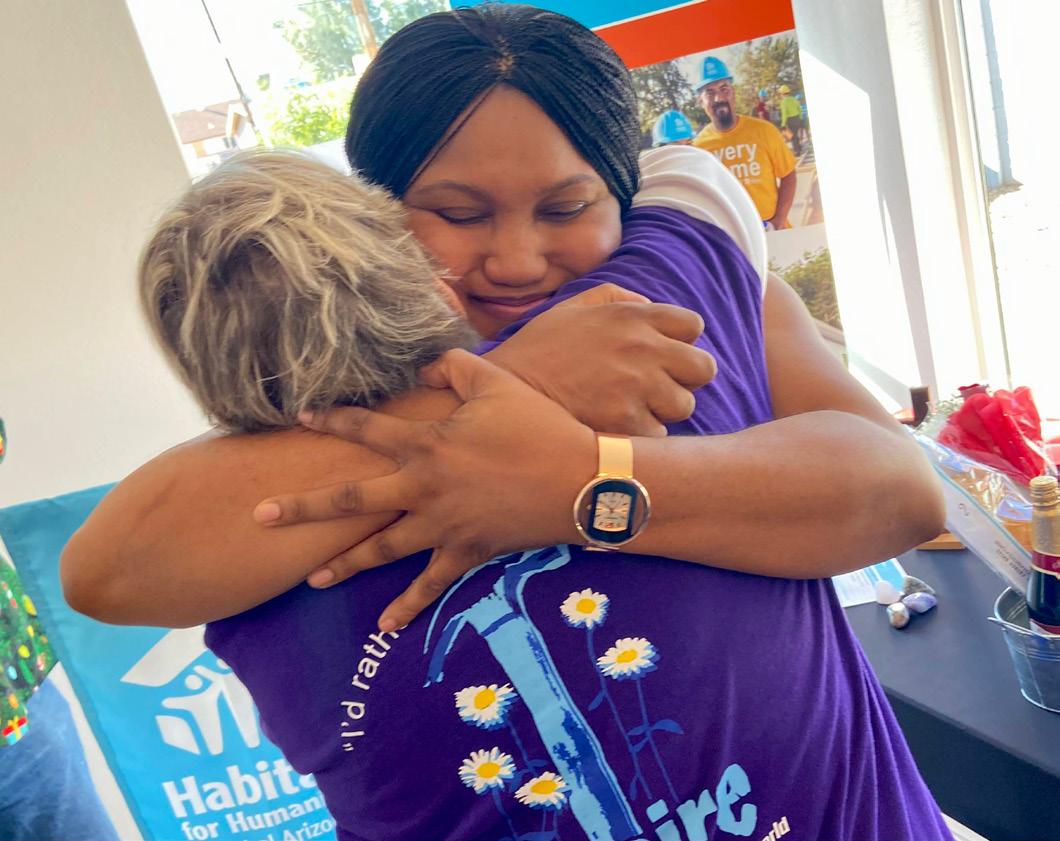
Top Arizona executive: Jason Barlow
What it does: Nonprofit organization dedicated to building affordable housing solutions in Maricopa County and parts of Pinal County.
Community impact: Over the years, Habitat for Humanity Central Arizona has made a significant impact on the local economy and the lives of its employees and volunteers.
Habitat for Humanity Central Arizona has helped build more than 1,200 homes in Maricopa and Pinal counties, providing affordable housing solutions for families in need.
Habitat for Humanity Central Arizona has also created jobs and volunteer opportunities, helping to stimulate the local economy and provide meaningful work and service opportunities for community members. The organization has also helped build stronger, more resilient communities by promoting homeownership and community development.


Top Arizona executive: Michael Kintner
What it does: Harrah’s Ak-Chin Casino has created a thriving Metro Phoenix area entertainment destination.
Community impact: The long-standing traditions and culture of the Ak-Chin Indian Community, which is steadfast in its efforts to preserve and positively impact not only the tribal community but also neighboring communities, guide every decision the property makes, constantly assessing how those decisions will impact the community. Harrah’s Ak-Chin Casino has been a continuous source of economic vitality for Pinal County, the City of Maricopa and the surrounding areas, providing hundreds of jobs for community members and everyone in and around the Ak-Chin Indian Community.
Top Arizona executive: Katie Haydon
What it does: Construction company.
Workplace culture: Haydon promotes a culture of credibility, fairness, respect, pride and teamwork. Inspired by insurance executive David J. Friedman’s book. “Fundamentally Different,” which examines the critical role culture plays in organizational success, Haydon underwent a cultural reboot. This new way of thinking gave the company 31 fundamental behaviors that are practiced by all Haydon employees. “They’re the cornerstone of who we are,” Katie Haydon explains. “We open meetings with our behaviors and provide mentoring and coaching tools based on them as well. These behaviors clearly define our expectations and enforce our commitment to delivering the best service to our clients and industry partners.”
To ease energy demand on the busiest and hottest days of the year, SRP is working with businesses like yours to find innovative ways to reduce energy consumption. One solution is to join the SRP Business Demand Response Program™
This program, administrated by our partner Enel X, can give your company:
•An opportunity to achieve sustainability goals
•The ability to earn payments for temporarily reducing energy use
•Help in developing custom energy reduction strategies
•An easy way to help the community, boost reliability and get rewarded
Visit srp.net/BDR to learn more about program benefits and incentives.
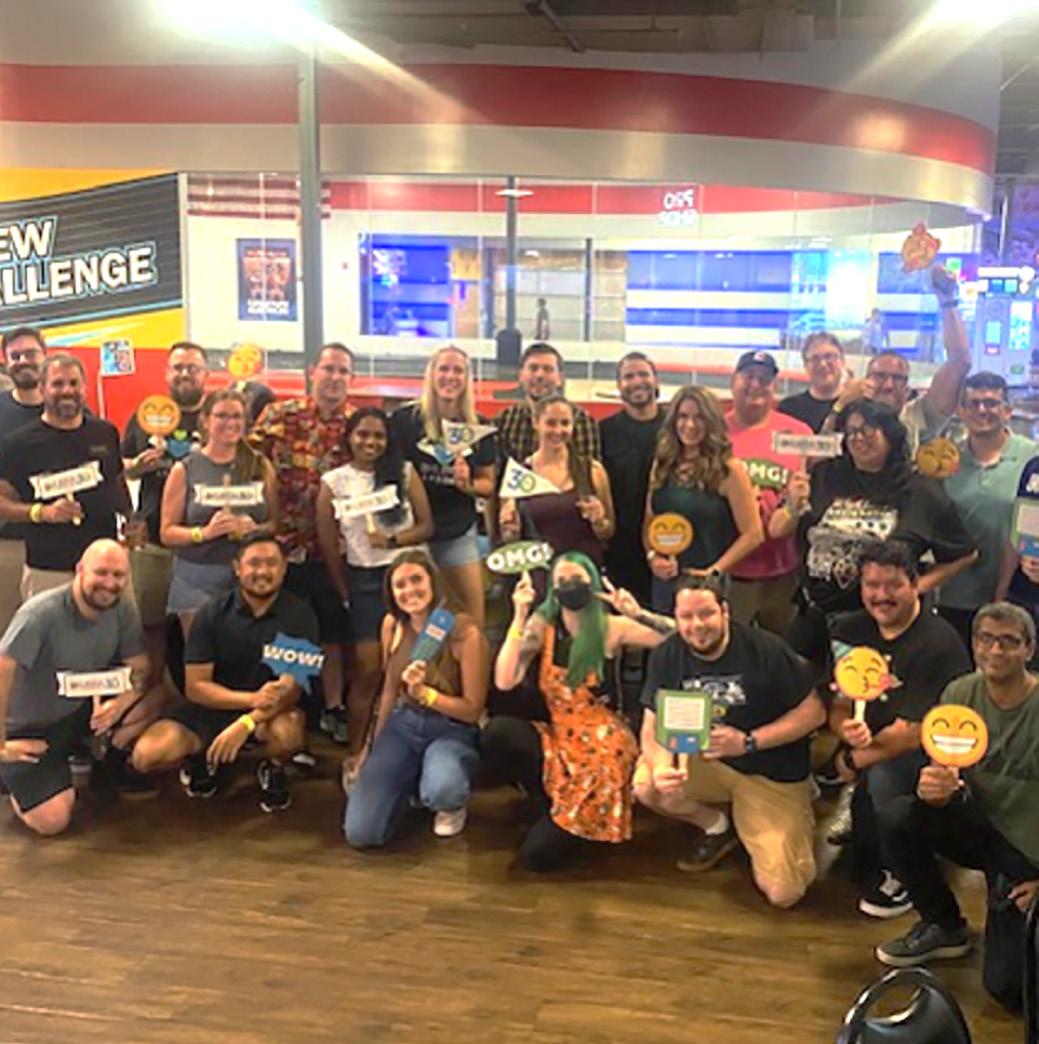
Top Arizona executive: Rick Watkin
What it does: Delivers customer communications solutions to some of the largest utility, insurance and government entities across North America.
Leadership: Staying ahead of the curve is crucial in the rapidly evolving fintech landscape. KUBRA’s leadership fosters a culture of innovation, encouraging their team to continually explore new technologies and strategies that can enhance its product offerings. KUBRA wants to leverage emerging technologies like AI and blockchain to improve payment processing and fraud detection.
Workplace culture: KUBRA provides meaningful work to all its employees across North America by developing innovative solutions using cutting-edge technology and providing extensive learning, development and career advancement opportunities.
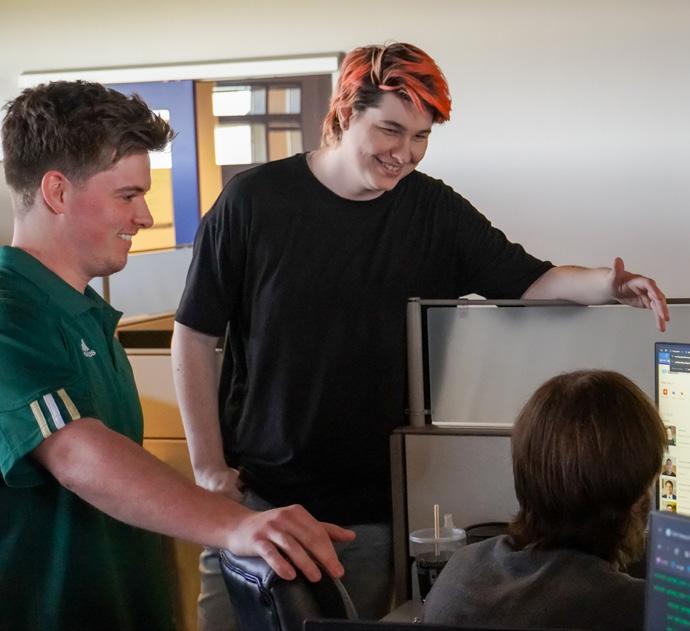

Top Arizona executive: Brad Wright
What it does: Building enclosure contractor.
Community impact: Kovach’s values, “Positivity, Own It, Expertise, and Grit,” are embodied throughout the entire company — from project teams to administrative support and all the way to the leadership level. Kovach’s mission of, “Aiming to cultivate a thriving company that stands as a beacon of opportunity by delivering an associate experience that allows individuals to flourish at all levels,” is a true testament to the importance of success at all levels within the company. In doing so, it strikes the harmony between financial growth for the company and a nurturing space for team members. This care for people translates into the company’s work on major economic driving projects like the TSMC and Intel.
Top Arizona executive: Michael Malone
What it does: Cybersecurity and Managed Detection and Response (MDR) services.
Community impact: Lumifi is committed to delivering cutting-edge MDR solutions that empower security professionals and organizations to defend against emerging threats proactively. With just over 100 employees, including veterans and former Department of Defense (DoD) security experts, Lumifi has a long-term lease through 2030 at SkySong, The ASU Scottsdale Innovation Center, occupying 8,200 square feet of space. This commitment signifies Lumifi’s belief in Scottsdale’s potential to be a global technology powerhouse. Dedicated to establishing Scottsdale as a prime location for technology companies to thrive, Lumifi offers high-paying jobs, with roughly 85% of its employees earning over $100,000.

On behalf of the 35,000 associates, 925+ locations, and hundreds of clients, thank you for honoring Troon® as one of Arizona’s Most Admired Companies
To discover the Troon Experience, visit us at Troon.com.




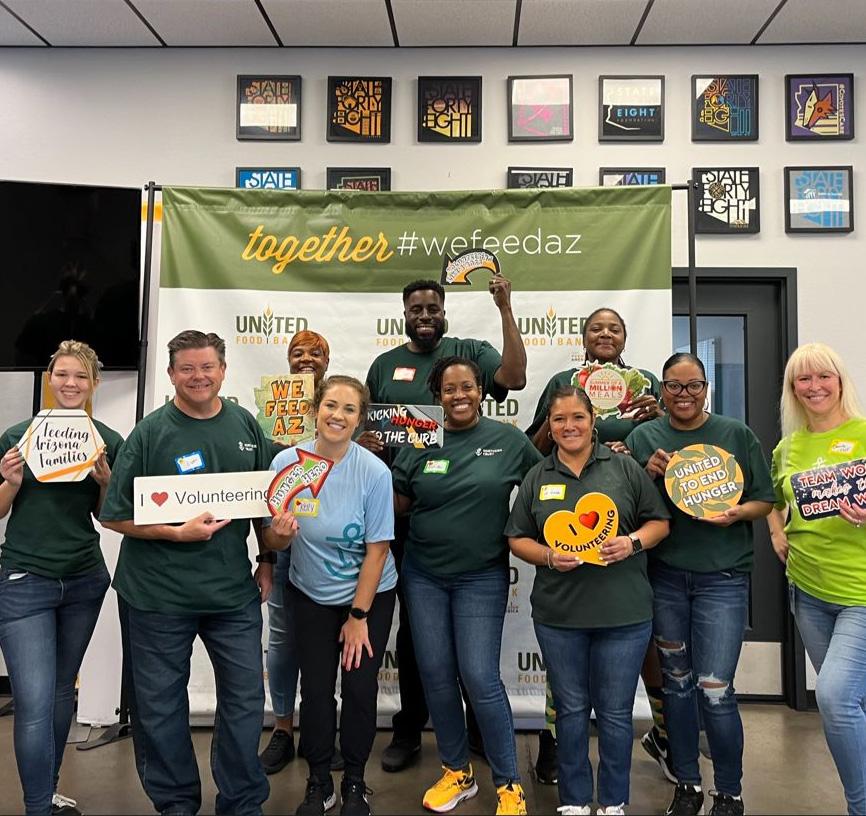
Top Arizona executive: John Carlson
Top Arizona executive: Phillippe Lord
What it does: Meritage Homes is the fifth-largest public homebuilder in the United States.
Community impact: In its 38-year history, Meritage has established a legacy for shaping stronger and more resilient communities across the country. Through its Meritage Cares Foundation, the company provides assistance to eligible nonprofits to support the wellbeing of children, families and military veterans; aid food insecurity and homelessness; and other charitable causes in the markets in which Meritage operates.
Innovative trait: Meritage is a longstanding industry leader in energy-efficient homebuilding and has been committed to building 100% Energy Star-certified homes since 2009. Every Meritage home comes with its signature energy-efficiency features standard.
Top Arizona executive: Mike O’Grady
What it does: Financial services.
Community impact: Each October, Northern Trust offices participate in Achieving Greater Together, a collaborative effort to give back to the communities in which its employees work. Northern Trust’s Tempe site logged 945 hours in October, which included participation from 33% of the site.
Innovative trait: The Tempe site has made great strides in innovation over the past year. The biggest contribution has been the formation of the Tempe Tech Innovators. This group of employees has set out to enhance operational efficiency and effectiveness through innovative process improvements. This has mainly taken place through automation (low code as well as no code), digital transformation and identifying new opportunities for improvement.
What it does: Developer, owner and operator of luxury multifamily communities.
Workplace culture: Mark-Taylor Residential’s learning management system, San Casa, provides teams with on-demand access to professional training courses that can assist in elevating
their knowledge and skillsets. Other courses include industry-specific training in digital, in-person or hybrid formats to accommodate the needs of team members’ respective roles and responsibilities.
Innovative trait: At Mark-Taylor, innovation is at its core. The company’s data-driven market expertise and investment in innovative technology enables the company to equip its people with unmatched resources to stay at the forefront of the industry.





Experience award-winning excellence rooted in our core values and commitment to our clients. Our work is focused on enhancing the lives of our employees, clients and communities we serve —always. Isn’t it nice to make life just a little bit sweeter? Experience the Difference. WILLMENG.COM | ROC #082904, Class B-01 | AZ ROC A 323741

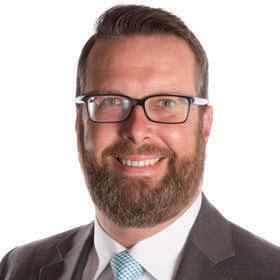


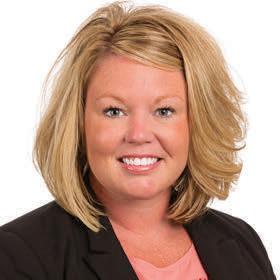
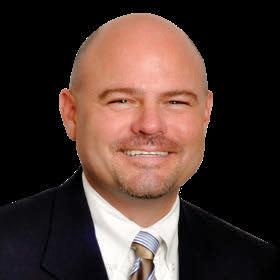
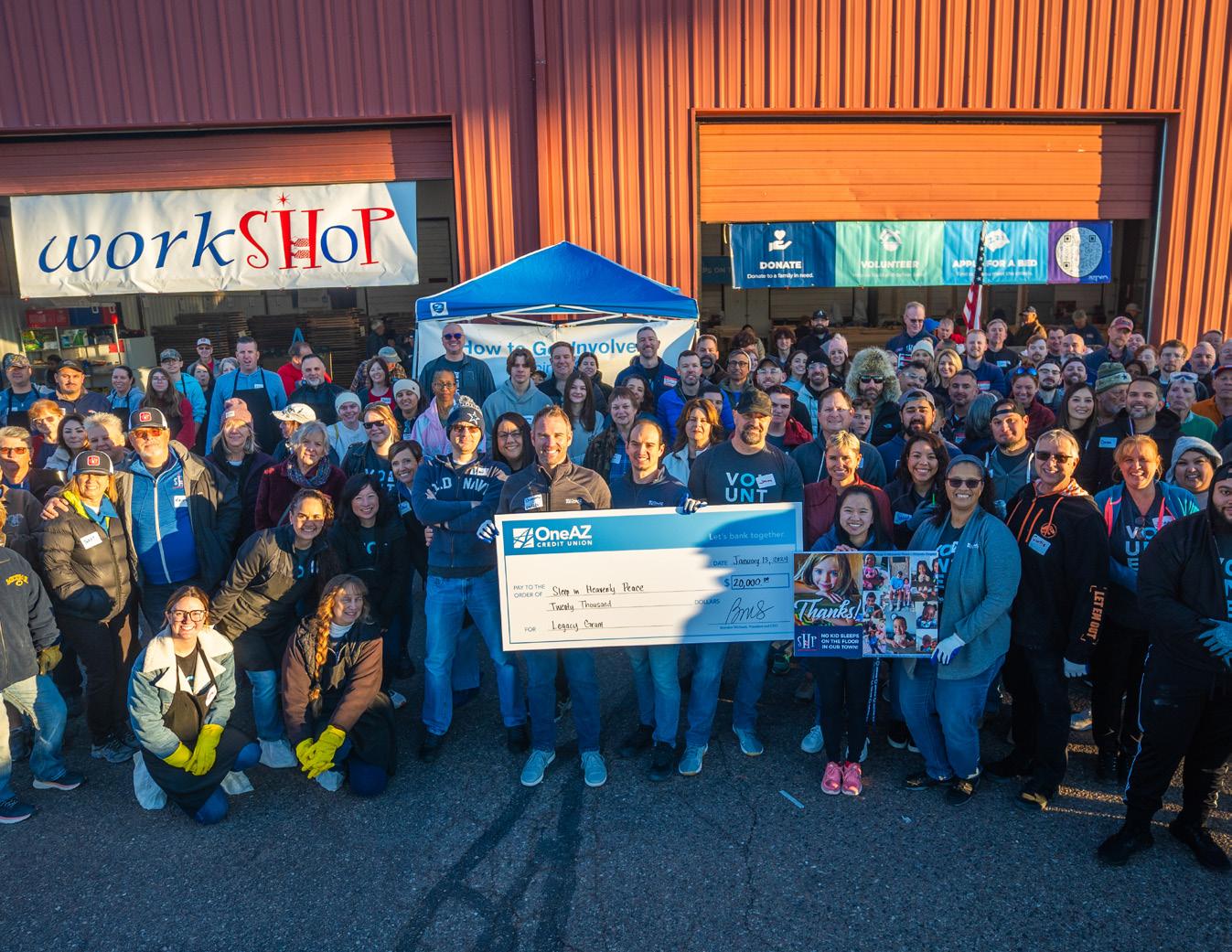
Top Arizona executive: Brandon Michaels
What it does: Financial services.
Community impact: Serving Arizona since 1951, OneAZ Credit Union is a financial powerhouse managing more than $3.4 billion in assets and serving over 185,000 member-owners and 11,000 business owners across 20 branches statewide. OneAZ Credit Union is committed to inspiring dreams and driving prosperity and community growth through innovative and high-quality personal and business banking solutions. OneAZ is a catalyst for positive change in the communities it serves. From helping businesses secure over $71 million in financing, providing over $200 million in home loans and providing grants totaling over $475,000 in 2023, OneAZ is committed to strengthening Arizona’s economy and making Arizonans’ dreams come true.
Top Arizona executive: R. Chapin Bell
What it does: Develops and manages multifamily housing in Arizona.
Community impact: Committed to quality product and service, each P.B. Bell community is unique and tailored to provide the very best, including desired amenities and superior service. P.B. Bell puts a strong focus on its people and strives to ensure every employee is valued, has the tools necessary to excel and grow and feels supported and appreciated within their role. From onsite clothing and food drives to community clean-up efforts and charitable donations, P.B. Bell is committed to making communities a better place for everyone.

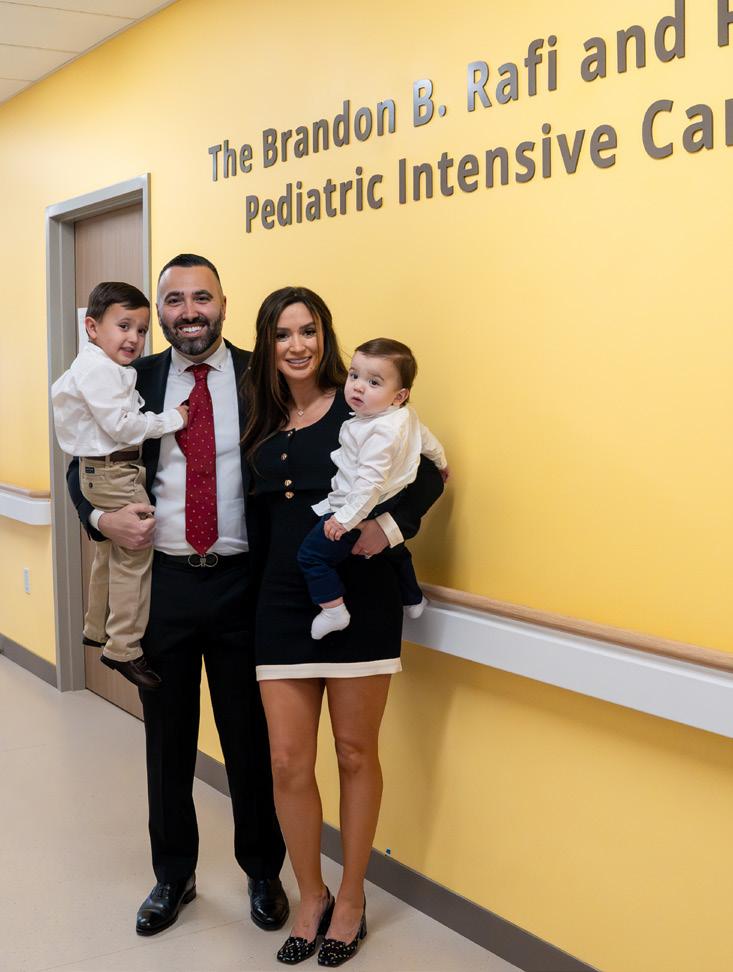
Top Arizona executive: Brandon B. Rafi
What it does: Personal injury law firm.
Community impact: Beyond legal services, Rafi Law Group actively engages in philanthropic efforts through its initiative, “Rafi’s Hope,” which drives community resource outreach and appreciation throughout Arizona. The firm’s mission is to make a meaningful difference by combining professional excellence with a heartfelt commitment to giving back.
Leadership: Brandon Rafi’s passion for his work is evident in his dedication to advocating for his clients. This passion resonates with both his clients and his team, instilling confidence and compassion throughout the legal process. His genuine care for clients’ well-being sets a benchmark for other firms, emphasizing the importance of prioritizing client satisfaction.
Burch & Cracchiolo is proud to be named a Most Admired Company in 2024 for the 4th consecutive year.

We are honored and sincerely appreciate this recognition.
Here is what some of our clients are saying:
“Mike Dulberg’s expertise in construction law has been invaluable. He has a deep understanding of the industry and consistently provides clear explanations and strategic guidance. Every matter I involved this firm in has had a successful resolution. I highly recommend Burch & Cracchiolo to any business if you are seeking a trusted firm.”
“Our group of companies have worked with Daryl Manhart for the last 15 years and-we all agree he is the most professional, competent, diligent and effective professional we have come across in our careers. Not only is his professional ability top notch, his personality and demeanor are always calming and reassuring.”
“I can’t express enough gratitude to Todd Julian, Bucky Slomski, and Cindy Messner. Their relentless efforts weren’t just about winning a case; they were about restoring my faith in the possibility of redemption. They didn’t just navigate the legal intricacies; they held my hand through every twist and turn, ensuring I never felt alone in the battle. If you ever find yourself in need of legal representation, there’s no better team to have by your side. They’re the difference between a life of struggle and a life of possibility.”



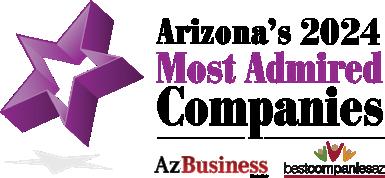


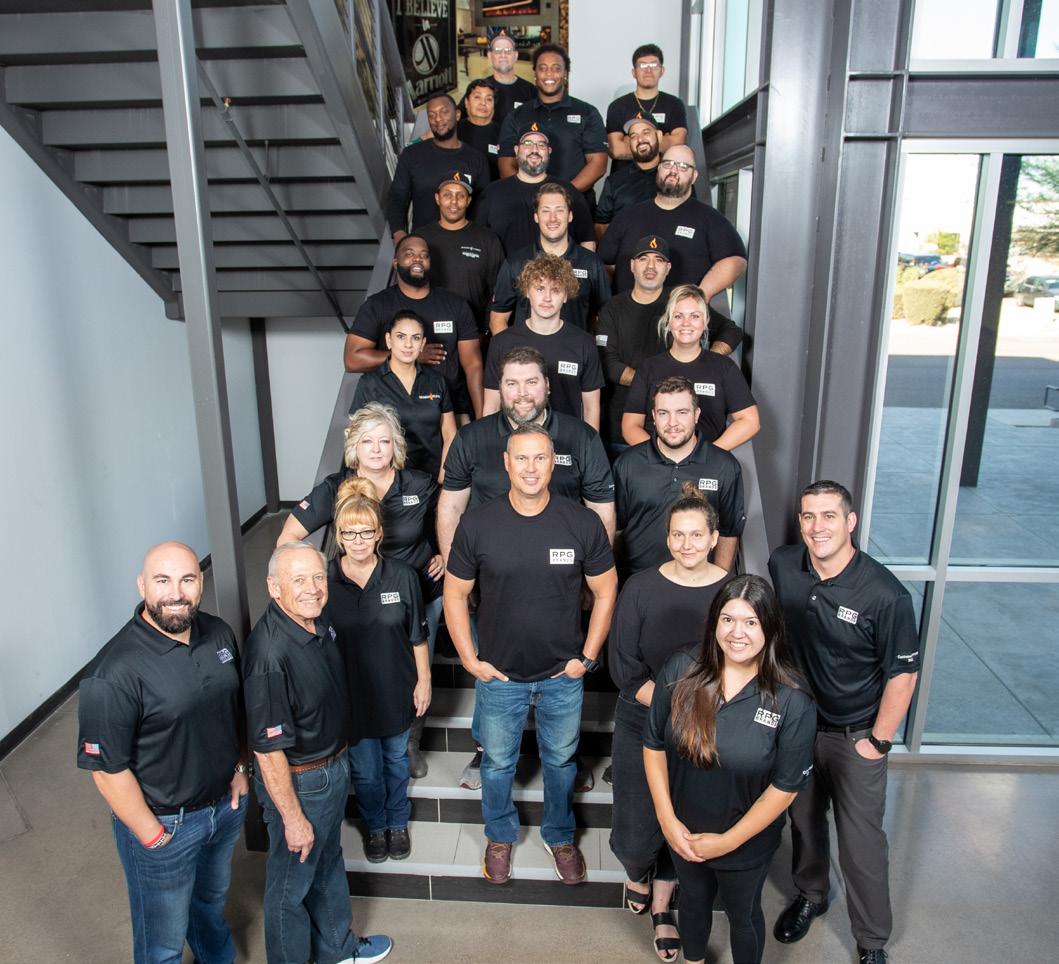
Top Arizona executive: Kris Richardson
What it does: RPG Brands is a trailblazer in the hearth and outdoor living markets.
Community impact: In 2023, RPG Brands achieved significant milestones with $30,301,925 in net revenue, reflecting substantial growth over the previous year. The company sustains 55 jobs, further contributing to Arizona’s economy. This growth supports local businesses, stimulates economic development and generates vital tax revenue for public services.
Workplace culture: RPG Brands actively recruits employees from diverse backgrounds and experiences, ensuring a variety of perspectives that drive innovation and creativity. The company values the strength of diversity and strives to create an inclusive environment where everyone feels they belong.


Top Arizona executive: Chuck Carefoot
What it does: Commercial real estate services as a national developer, designer, builder, capital markets advisor and real estate manager.
Community impact: With a legacy of 30 years in the Phoenix market, Ryan has continually pushed the boundaries of excellence in commercial real estate development. In 2023, that commitment was evident as Ryan spearheaded the development and construction of 2.8 million square feet of office and industrial projects, setting a new standard for innovation and growth in the region. Ryan’s impact goes beyond development as its employees passionately support nonprofit organizations such as Brokers for Kids, Phoenix Children’s Hospital, St. Vincent de Paul, Arizona Humane Society and many more.
Top Arizona executive: Danielle Feroleto
What it does: Full-service creative marketing agency that services the construction industry in Arizona.
Industry impact: Small Giants is a leader in the construction industry, helping clients build their brand worth. The company also invests in education and training — most recently by launching The Academy for Construction Excellence. The Academy offers high-quality training on topics ranging from technical skills, interview preparation and leadership development for companies of all sizes.
Leadership: Small Giants is a Certified Woman-Owned Business and Feroleto is heavily involved in several industry and professional organizations. She has served on the boards for the Arizona Builders Alliance and NAIOP and was recently appointed to the ASU Alumni Board of Directors.
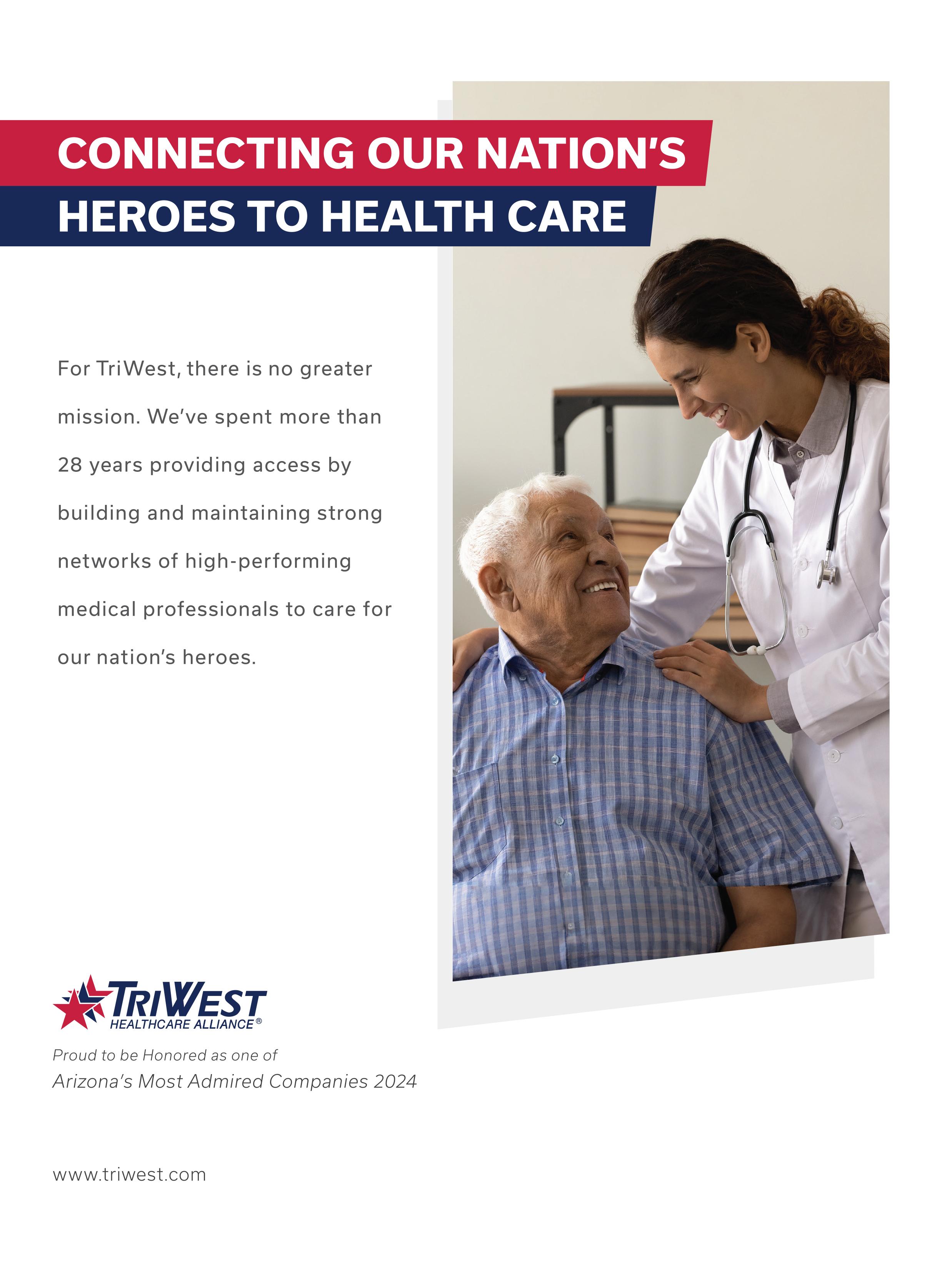



Top Arizona executive: David Dexter
What it does: Arizona’s leading provider of diagnostic testing and information.
Community impact: With more than 70 patient service centers throughout Arizona, Sonora Quest offers a local comprehensive test menu that encompasses routine, molecular, prescription drug monitoring, genetics/genomics, women’s health, pathology and direct-to-consumer testing. Sonora Quest is focused on delivering data-driven insights to support its customers by improving health outcomes, providing quality laboratory services, identifying innovative services and delivering an exceptional customer and patient experience.
Workplace culture: Sonora Quest strives to cultivate a culture of belonging for all team members. Through its peer recognition program, Sonora Quest has recognized more than 100,000 employees.
Top Arizona executive: CarolAnn Tutera
What it does: Training and education company dedicated to teaching medical providers how to use the SottoPelle Method of bioidentical hormone replacement pellet therapy.
Leadership: As co-founders and trailblazing pioneers, CarolAnn and Dr. Gino Tutera paved the way for pellet practices across America, helping thousands of patients regain their health and vitality. CarolAnn is the first woman who started the pellet industry more than 30 years ago and is the only female entrepreneur in the field. SottoPelle sets the industry gold standard for pellet therapy, with a multi-patented individualized dosing method for hormone optimization. SottoPelle aims to continue breaking new ground in brain health, mental wellness and graceful aging as the leader in this field.
Top Arizona executive: Mary Kelly
What it does: StrataTech Education Group focuses on the education, growth and development of specialized career education schools, particularly skilled-trade programs designed to address the nation’s growing infrastructure needs.
Community impact: By collaborating with industry leaders, local stakeholders and national brands, StrataTech is able to bring skills-based education to new audiences. Most recently, StrataTech partnered with fellow legacy brand Home Depot to expand its “Path to Pro”’ program curriculum with welding and HVAC/refrigeration content, part of a broader effort to address the severe shortage of welders and HVAC technicians in the U.S. Now, people can access free introductory modules online and pursue education and employment opportunities in either of these fields.
Meritage Homes® is proud to deliver on its brand promise of a Life. Built. Better.® and honored to be recognized as one of Arizona’s Most Admired Companies.


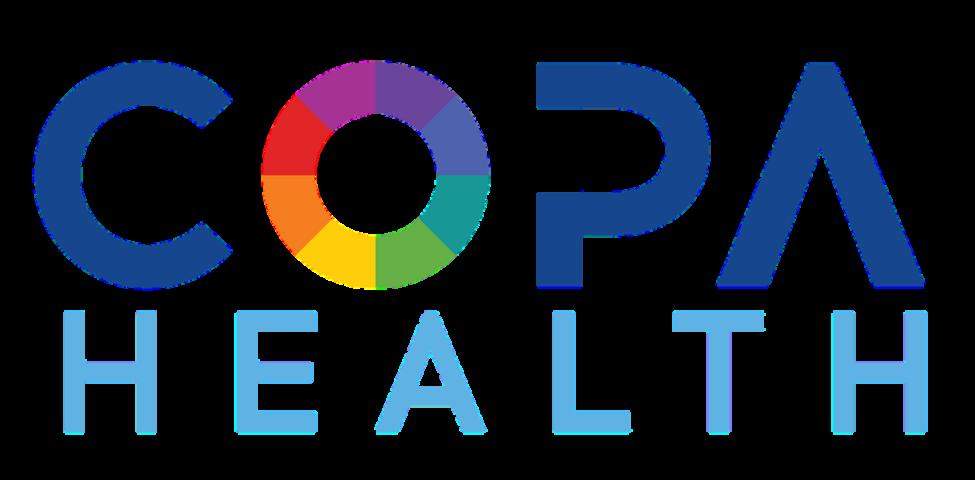



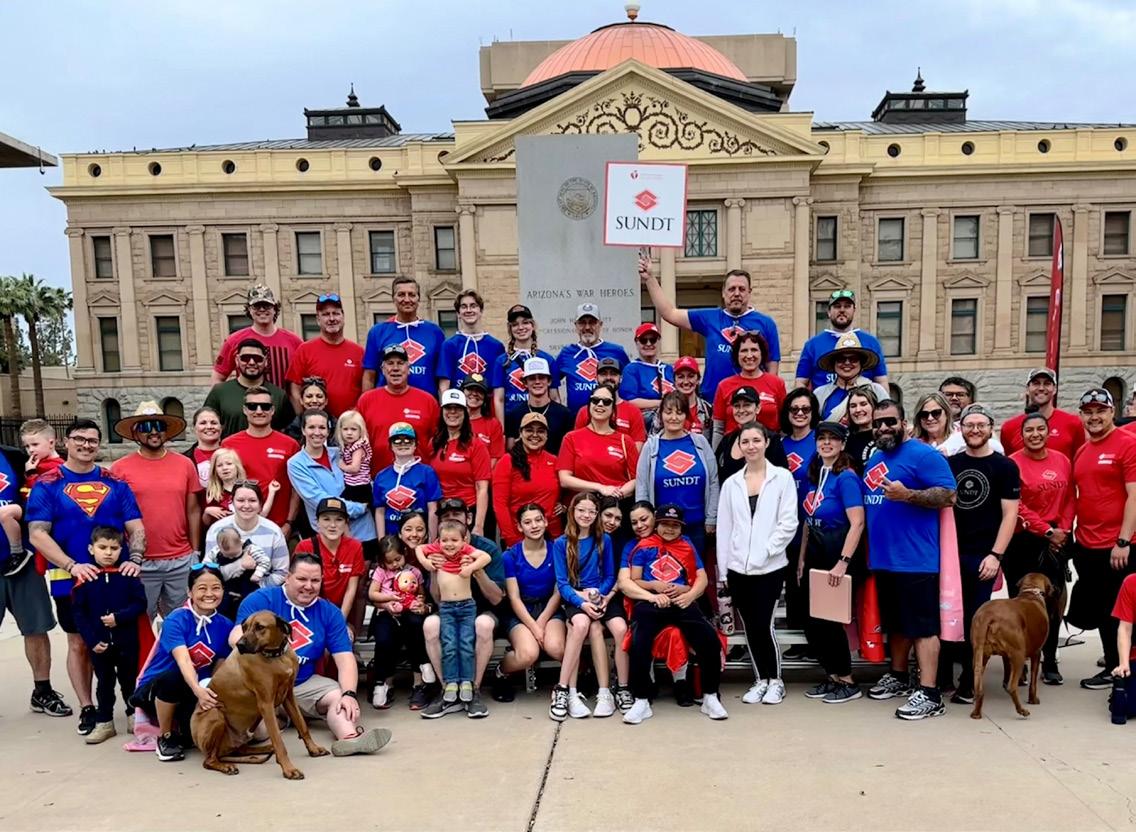
Top Arizona executive: G. Michael Hoover
What it does: General contractor.
Community impact: The firm specializes in transportation, industrial, building, concrete, and renewable energy work and is 100 percent owned by its more than 3,000 employees. The company is consistently ranked among the best places to work in multiple cities. Sundt was named the nation’s safest construction company by the Associated General Contractors of America twice in a decade — an honor received by only one other contractor in the nation. Sundt’s charitable arm, the Sundt Foundation, has provided more than $14.8 million in donations to hundreds of nonprofit organizations across the country.
Top Arizona executive: Derek Wright
What it does: Concrete subcontractor.
Community impact: Suntec has built its reputation over decades by providing outstanding solutions, the highest quality work on every project and a culture of safety. Suntec worked on 100 projects in 2023, which is an average of nearly two new projects a week, a remarkable feat considering many of those projects are multi-phase structural jobs or large-scale industrial facilities. Revenue was $909 million in 2023, Suntec’s best year in its history, and it continued to grow its workforce, surpassing 2,000 employees, all while maintaining best-in-class project execution and safety.


Top Arizona executive: Veronique James
What it does: Strategic marketing agency specializing in all facets of advertising, public relations and digital.
Workplace culture: Founded in 2005 by Veronique James, TJA has made a positive impact on the economy and the lives of its employees with unique hiring practices to find inspiring team members that are built to last, a smooth and everchanging onboarding process, employee surveys to measure happiness at the company and Monday morning “Hustles,” during which team members express gratitude for one another and collaborate before the start of the week.

Top Arizona executive: Daniel Stringer
What it does:
Home care company.
Workplace culture: Total Care Connections takes pride in its role as community stewards, actively supporting organizations like Arizona 127, fostering care initiatives and uplifting at-risk individuals. Total Care Grant Circle demonstrates its dedication to employees’ welfare, providing financial assistance during times of need through the company’s employee relief fund. By fostering a culture of support and care within its own family, Total Care Connections creates a ripple effect of positivity that extends throughout the community, making a lasting impact on the economy and the lives that the company serves.
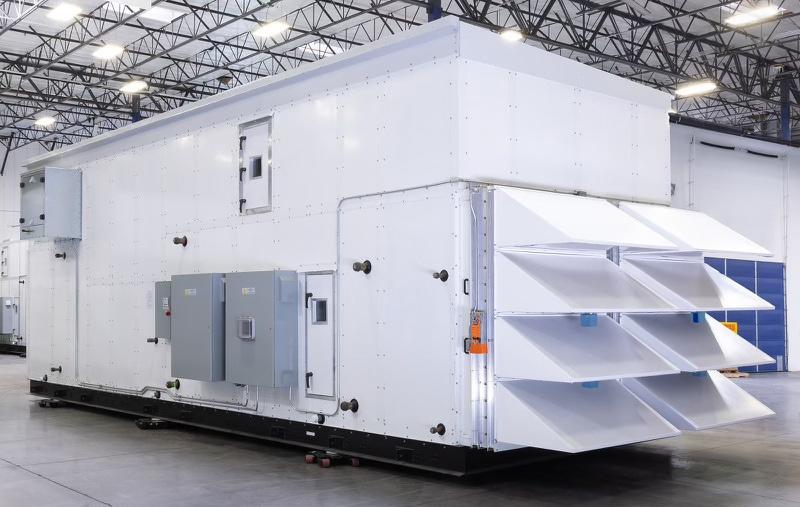
Air2O is a global leader in advanced HVACD thermal management solutions to the mission critical environments of Data Centers, Indoor Agriculture/Cultivation and large Industrial Facilities such as Lithium Battery and SemiConductor production globally. With custom build capabilities, a culture of creative engineers and an infrastructure to support the manufacture of the most innovative of solutions, Air2O aims to deliver the most efficient and optimal solutions for our clients globally.
Air2O is an Eren Groupe company, a multi billion organization based in Luxembourg whose mission is to support innovative technological solutions in the fields of renewable energy production, energy conservation and energy storage. Together, we deliver a unique solution for highly efficient, ecologically sound thermal management systems that can be deployed cost-effectively in the most demanding environments.
Our reach spans North America, EMEA, and Asia Pacific, emphasizing custom-engineered solutions prioritizing efficiency and sustainability. We stand proud as Arizona’s exclusive low dew point HVACD system manufacturer.


Top Arizona executive: Tim Schantz
What it does: Troon is the world’s largest golf and golfrelated hospitality management company providing services at more than 900 locations around the globe.
Community impact: Through company-wide and individual award recognition, Troon’s excellence in leadership continues to be acknowledged. What’s more, 75 Troon-affiliated courses managed by Troon Golf, Troon Privé, Troon International and Indigo Sports, are currently ranked on domestic and international Top 100 rankings. Troon’s club management approach is centered upon creating memorable experiences that cultivate lasting connections and unparalleled experiences fueled by a passion for enabling fun. Troon consistently outperforms the industry in all major metrics — rounds, revenue, average rate and more.
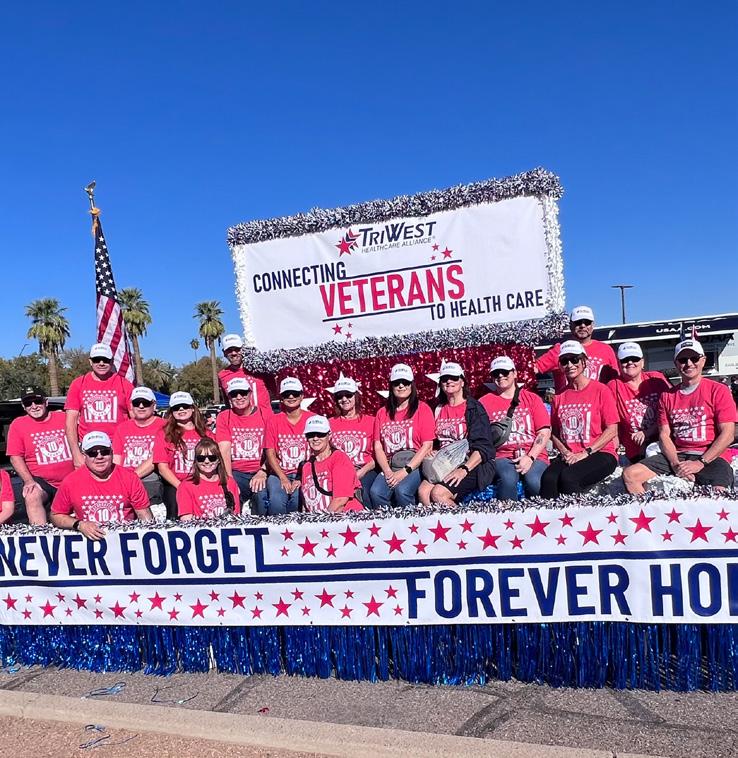

Top Arizona executive: Alan Althouse
What it does: Financial services.
Community impact: Values including passion, ownership, caring, trust and service drive the “TruDifference.” Guided by the long-standing credit union philosophy of “people helping people,” TruWest’s mission is to provide trusted financial solutions and services so members can achieve their goals. With over 93,000 members and assets exceeding $1.8 billion, TruWest is a strong and sound financial institution with 11 financial service center locations.
Leadership: TruWest is led with a “service leader” mentality, fostering a culture where leaders actively collaborate with employees. This approach offers full transparency, ensuring that every employee feels supported, valued, and well informed about the credit union’s operations.
Top Arizona executive: David J. McIntyre, Jr.
What it does: Focuses on serving the healthcare needs of the military and veteran communities.
Community impact: TriWest employs approximately 600 people in the Phoenix area, where its corporate headquarters is located. TriWest’s team members — most of whom are veterans or military family members — are fully committed to the one mission of providing superior customer service. TriWest’s sense of purpose toward serving those who served is fully embedded in its culture. TriWest delivers on its mission by embracing its core values — integrity, service, collaboration, compassion, innovation and excellence — which are the guiding principles of TriWest’s culture of empowerment and inclusivity.


At Eller Executive Education, participants join our programs. They leave leaders. We tailor our executive education to each individual or organization, transforming perspectives and potential through experiential learning that prepares your team to navigate today and tomorrow’s biggest challenges.
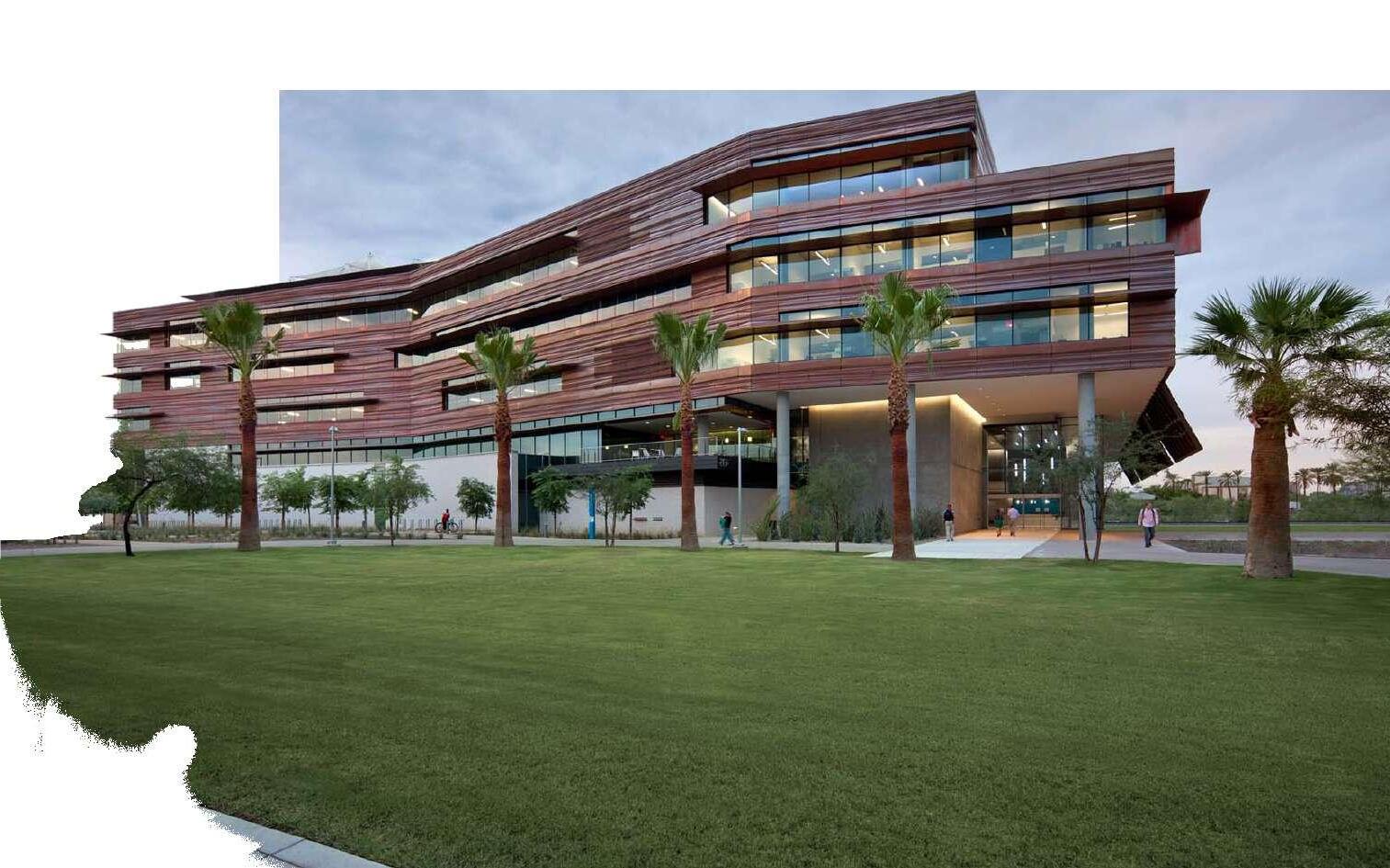
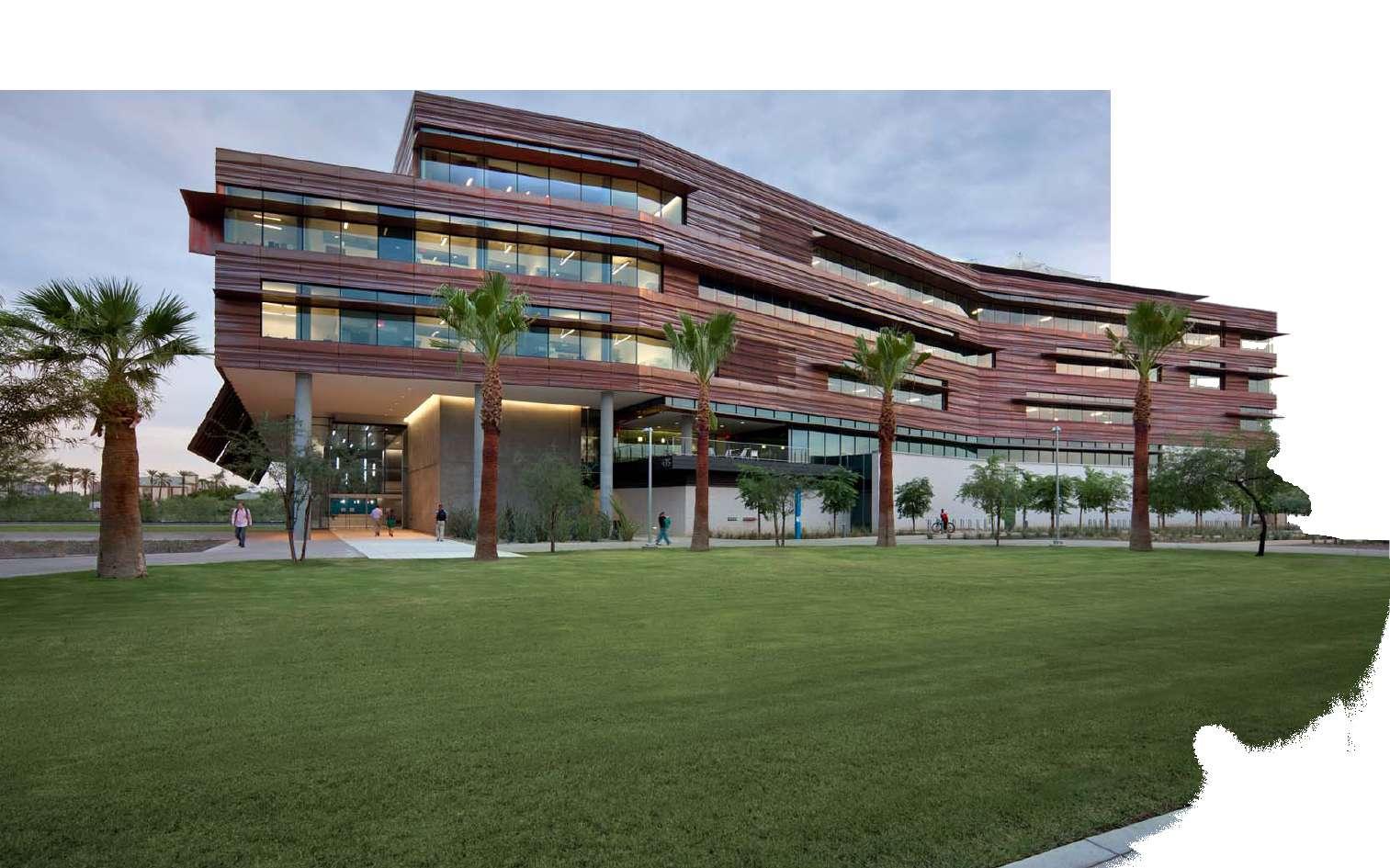










Top Arizona executive: James Murphy
What it does: General contractor.
Community impact: Willmeng is now the largest privately held local commercial general contractor in Arizona and has made a tremendous impact on not only the lives of its employees, but also the Valley’s communities with economic growth industrial, aerospace

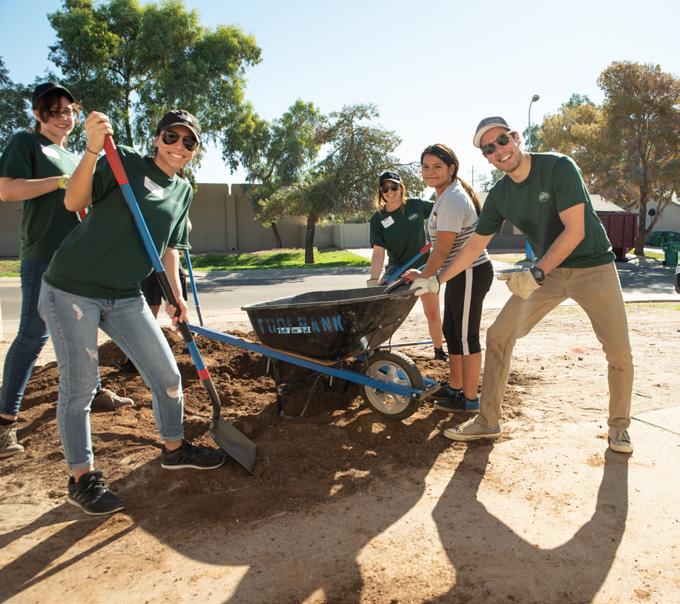
and municipal projects and capital improvements shaping our state.
Workplace culture: One of Willmeng’s most successful approaches to attracting a diverse workforce is its investment in an international student program. Currently, 27% of Willmeng’s current employees fall under the categories of international or minority employees. Presently, Willmeng is sponsoring 30 international employees with their visas.
Top Arizona executives: Elizabeth Shabaker and Royce Ramey
What it does: Assists multigenerational families, women in life transitions, executives, entrepreneurs and business owners in integrating all aspects of their financial lives to help achieve their life goals.
Workplace culture: Versant’s workplace culture thrives on collaboration, leveraging each team member’s strengths and passions to develop innovative solutions. Teamwork, trust, critical thinking and tolerance for diverse viewpoints are core values that permeate the firm. Versant’s culture is intentionally designed to reflect these values across all levels of the organization. Inclusivity and equity are the cornerstones of Versant’s workplace. Versant strives to create an environment where all employees feel engaged and valued.
Top Arizona executive: Carla Vargas Jasa
What it does: Nonprofit organization driving positive change in Maricopa County.
Community impact: Valley of the Sun United Way has positively impacted the lives of those it serves by tackling the systematic, interrelated issues that stand in the way of creating more economic opportunities. Each year, Valley of the Sun United Way reports on the community-wide progress made in each of their Mighty Chance 2026 target areas. By utilizing data, employee collaboration and community partnerships, Valley of the Sun United Way is able to change courses as needed to stay focused on reaching the bold goals to better the economy and help Arizona’s most vulnerable individuals, employees and corporate partners.




Here are 2 employment law issues that every Arizona employer should know about
Finding and keeping good employees is one of the most difficult aspects of running a successful business. When my business clients discuss their biggest challenges and frustrations, employmentrelated issues are almost always at the top of their list.
One of the most interesting things about employment law is that it is constantly evolving, largely depending on which political party controls the federal and state government agencies that set and enforce employment policies. This can be really frustrating, however, for employers who don’t have time to keep up with every new legal development.
A good portion of my workday is spent discussing employment-related legal issues with small and mid-size business owners. The purpose of this article is to summarize two of the more common employment law issues that Arizona business owners deal with.
Worker classification: W-2 v. 1099
To paraphrase a famous line from Hamlet: “To 1099, or not to 1099, that is the question.” One of the threshold decisions that every business faces when hiring a worker is whether to classify that worker as an employee (W-2) or as an independent contractor (1099-MISC). This is a very important decision, and if made incorrectly, can have severe consequences down the road.
Over the past decade, state and federal government agencies have strongly focused on rooting out worker misclassification issues. That is because an employee’s paycheck is typically subject to more state and federal withholdings than independent contractors, and employees are entitled to certain benefits and
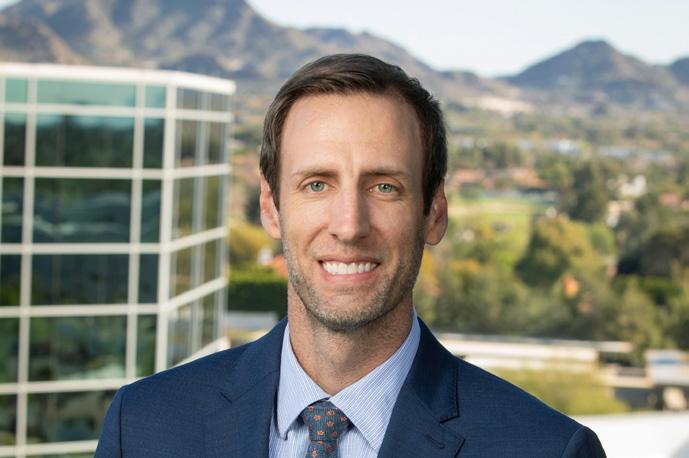
protections that independent contractors are not, including (a) unemployment benefits if their employment is terminated, (b) worker’s compensation benefits if they are injured on the job, and (c) protections under wage-and-hour laws, including guaranteed minimum and overtime wages.
Here are some real-life instances where a company was alleged to have misclassified its employees as independent contractors:
• An independent contractor filed for unemployment benefits with the Arizona Department of Economic Security after her contract was terminated by the company. The Department determined that the worker had been misclassified as an independent contractor and awarded her unemployment benefits. The company was then assessed back taxes, fines, and penalties.
• An independent contractor was injured on the job and applied for workers’ compensation benefits with the Industrial Commission of Arizona. The Commission paid the $250,000.00+ claim and then sought reimbursement directly from the company after determining that the worker should
have been classified as an employee.
• A business was sued because its independent contractor caused a serious motor vehicle accident, badly injuring a pedestrian. The employer’s CGL policy initially denied coverage because the vehicle was driven by an independent contractor, leaving the company to defend the claim out of its pocket while disputing coverage with its insurance carrier.
• Workers filed a lawsuit against a business alleging that they had worked hundreds of overtime hours for which they had not been paid because they had been misclassified as independent contractors.
• A business was subjected to multi-year audits from various state and federal agencies and was ultimately assessed hundreds of thousands of dollars in back-wages, taxes, penalties, fines, etc. With such significant consequences for misclassifying a worker, one would think that the law would be very clear when it comes to determining whether a worker is an employee or independent contractor. I’ve got bad news for you. It’s not. Nearly every government agency applies its own multifactor test when determining whether a worker has been properly classified. Some tests contain up to 20 different factors, with no one factor being dispositive.
I’ve seen instances where one government agency has determined that an independent contractor was properly classified while another government agency came to the exact opposite conclusion. So frustrating.
There isn’t enough space to outline and discuss every factor of every test applied by every government agency. Most tests, however, focus on (a) the company’s “right
to control” the work that is being performed, and (b) whether the work performed is an integral part of the company’s business.
Business owners should consult with a knowledgeable employment law attorney before classifying any worker as an independent contractor, even if the worker agrees to it. The consequences of misclassification — although not quite Shakespearian tragedy levels — can be significant and costly.
Many employers mistakenly believe that salaried employees are not entitled to overtime wages simply because they are paid a salary. Unfortunately, the analysis is more complicated than that.
Here is a quick refresher and update on a recent change in the law. The Fair Labor Standards Act (FLSA) provides that all employees are entitled to overtime wages unless they are exempt. An employee is considered exempt if (a) they are classified as an executive, administrative, or professional, and (b) they are paid on a salary basis at a rate not less than $844 per week ($43,888 annualized).
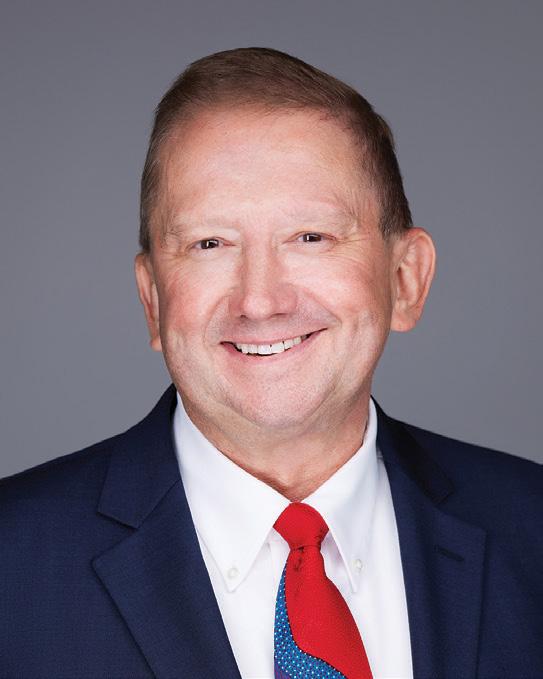
To qualify for the executive employee exemption, the employee’s primary duty must be managing the enterprise, regularly directing the work of at least two full-time employees, and they have discretion over personnel decisions in the workplace.
To qualify for the administrative employee exemption, the employee’s primary duty must be performance of office or non-manual work related to the management or general business operations and they must have discretion when it comes to matters of significance.
To qualify for the professional employee exemption, the employee’s primary duty must be performance of work requiring advanced knowledge in field of science or learning which is typically acquired through specialized intellectual instruction.
In addition, to be exempt from overtime wages, any employee falling into one of these three categories must be paid on a salary basis at a rate not less than $844 per week ($43,888/year). This salary threshold has recently been increased from the previous threshold of $684 per week ($35,568/year). This increase in the salary threshold is
estimated to affect millions of workers.
Arizona businesses should review their payroll records and ask the following two questions about their exempt employees: (1) does the employee’s job duties fit within the executive, administrative, or professional classifications? and (2) does the exempt employee’s annual salary exceed $43,888/year?
In conclusion, classifying a worker as an independent contractor is a crucial decision that should only be made after careful analysis. The same consideration is required when determining whether an employee is exempt from overtime wages. Getting those decisions wrong can set business owners on a path that can lead to significant financial liability.
Employers who have specific questions about worker classification, overtime wages, or any employment law topics should consult with an employment law attorney.
Lindsay Leavitt is a shareholder at Gallagher & Kennedy, where he represents and advises companies of all sizes in employment and business litigation matters.
We are pleased to announce that Gary L. Fletcher and Bradley Jon Nystedt have joined Frazer Ryan Goldberg & Arnold LLP.
After practicing for thirty-five years at Nystedt & Fletcher PLLC, Gary L. Fletcher has moved his practice to become a Senior Partner at Frazer Ryan, opening the firm’s Tucson office. Gary will continue to focus his practice in Tax Law, Trust and Estate Planning, Trust and Estate Controversies/Litigation, Business Formations, Sales, Mergers and Acquisitions, and Real Estate Transactions.
Bradley Jon Nystedt joined Frazer Ryan Goldberg & Arnold LLP as a Partner after thirty-five years practicing at Nystedt & Fletcher PLLC. Brad’s practice focuses on Tax Law, Trust and Estate Planning, and Business Law.

In the realm of construction, where steel and concrete converge, CHASSE Building Team, led by visionary Barry Chasse, has redefined corporate responsibility since 2007. Their motto, “Built different, on purpose,” is more than a catchphrase; it’s a mission that has transformed a small company into a catalyst for positive change.
Barry Chasse’s journey is a quintessential American success story. Starting as a project coordinator earning $6 per hour, he steadily rose through the construction industry. These early challenges instilled in him the values of teamwork, community engagement, and a commitment to making construction about more than just building structures.
CHASSE has grown from a team of ten to a robust workforce of over 230 in Phoenix and Tucson. Their growth is not only reflected in numbers but also in significant charitable contributions. Focused on child-centric philanthropy and educational initiatives, CHASSE has invested over $4.5 million in community projects. Their commitment to local charities is unwavering, supporting over one hundred nonprofits and contributing over 4,000 volunteer hours annually.
In December 2021, CHASSE made a groundbreaking move by selling the business to its employees. Through the Teammate Stock Ownership Plan (TSOP), every employee became an owner, ensuring the company’s guiding principle, “Built different, on purpose,” is lived out through individual empowerment and collective success. Philanthropy is a core value at CHASSE.

Tyler Butler Corporate responsibility
Barry Chasse emphasizes, “We empower team members to exceed expectations for the community, even outside formal volunteer activities.” This commitment is evident in the various initiatives CHASSE has spearheaded.
One notable program is their innovative approach to K-12 construction projects. Beyond building facilities, CHASSE engages students with hands-on, real-time Project-Based Learning (PBL) experiences. Collaborating with architects and school districts, students participate in designing, budgeting, and assessing construction feasibility. The construction phase becomes an interactive learning environment, providing insights into industry technologies and practical applications of math and science.
CHASSE’s partnership with Catholic Charities-MANA House, providing shelter for homeless veterans, and collaborations with ICAN charities, Boys & Girls Club,
and Sojourner Center highlight their wideranging community commitment. And the annual CHASSE-giving program during Thanksgiving highlights their dedication, with employees delivering over 1,500 food boxes to families.
As founder and president, Barry Chasse is a community advocate. His roles as an honorary trustee for the Boys & Girls Clubs of Greater Scottsdale and a leader in the Arizona Builder’s Alliance highlight his lifelong dedication to community development. Other leaders, such as Vice President Fred Bueler with the Scottsdale Charros and Business Unit Leader Matthew Wedding with the Chandler Compadres and Chandler Education Foundation Board, further exemplify the company’s community commitment.
CHASSE’s philanthropic efforts are extensive. They have formed Team CHASSEing-a-Cure to participate in the Cystic Fibrosis Foundation’s Rim to Rim Xtreme Hike Challenge, raising money and awareness for cystic fibrosis. They also host an interactive program for Teacher Appreciation Week, organizing giveaways and luncheons for local teachers.
In support of breast cancer awareness, CHASSE women cook breakfast each fall to honor breast cancer survivor Rhonda Simmons and enlist team members for the Making Strides Against Breast Cancer Walk. Additionally, they participate in Brokers for Kids and established the Keck Strong golf tournament to raise funds for Phoenix Children’s Hospital in memory of a teammate.
CHASSE empowers all team members to join causes they care about deeply. This is reflected in the diverse community roles of team members such as Leigh-Anne Harrison, who serves on boards for the Salvation Army and Boys & Girls Clubs of Tucson, and Dani Huval, a volunteer with St. Vincent De Paul. Project Director Vicente Teran is a past Nite Flite chair and member of The Saguaros, while Development Director Taylor Perkins is the 2024
School Connect Champion for her tireless volunteerism with schools Valleywide.
The CHASSE Building Team exemplifies corporate citizenship, with a journey rooted in humble beginnings that showcases the transformative power of purpose-driven leadership. Their story is not just about constructing buildings but about creating a legacy of positive change — one project, one community, one life at a time. In a world often focused on profit margins, CHASSE
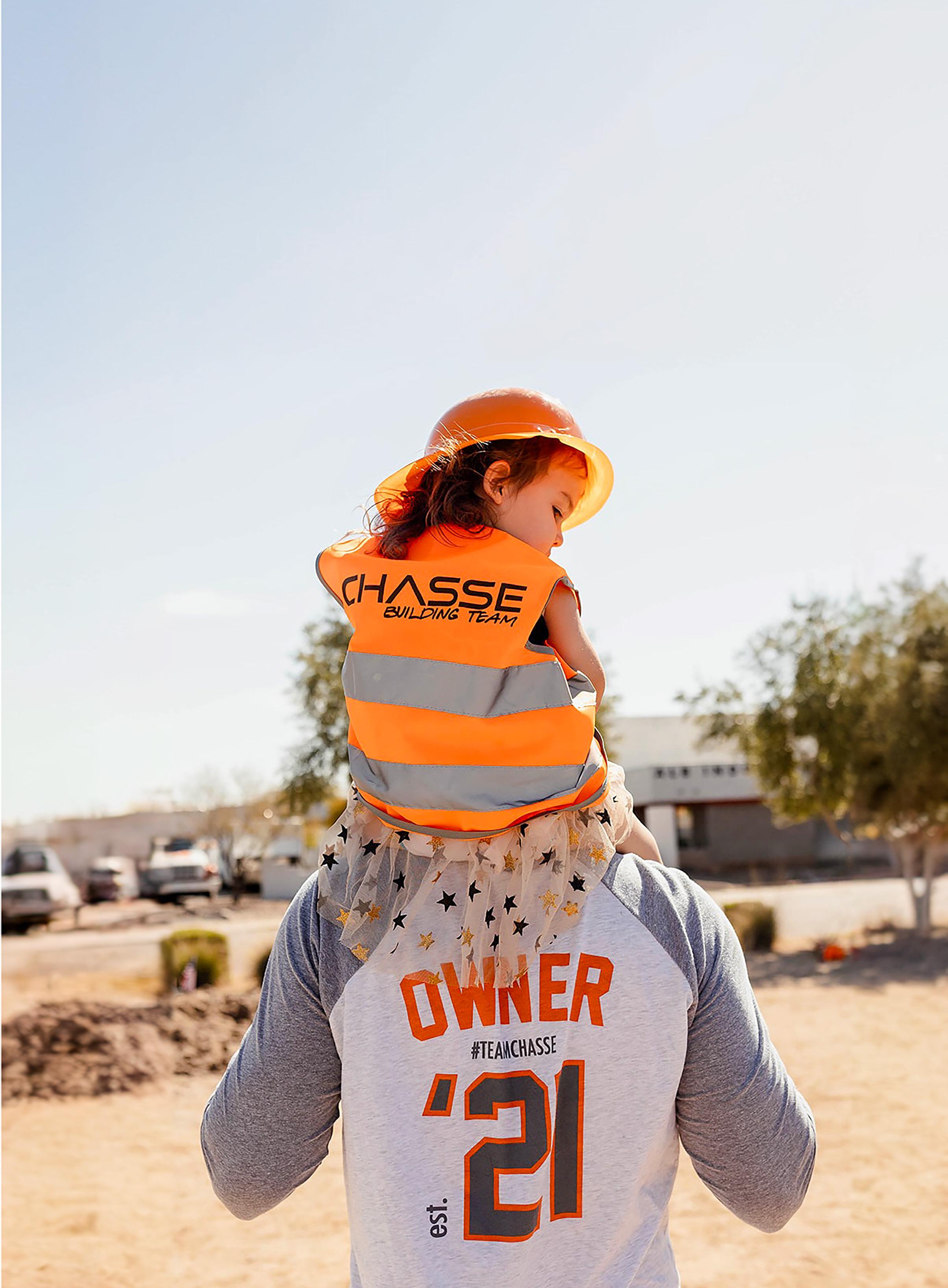
demonstrates that true success is measured by the lives touched and communities uplifted.
To learn more about how CHASSE Building Team continually makes a difference in the community, visit chasse. us/making-a-difference.
Tyler Butler is the founder of Collaboration For Good and the founder and principal of 11Eleven Consulting, which inspires companies who operate with a conscience.
By MICHAEL GOSSIE

Being creative in business means more than designing a flashy logo or having social media channels filled with entertaining videos. Being a creative business means effectively harnessing technology, innovating product offerings, and developing new processes to drive growth and differentiation. It involves more
than just creativity in design or content; it encompasses a holistic approach to integrating technology and innovation into every facet of the business. Utilizing technology is foundational. Creative businesses often adopt cuttingedge tools and platforms to enhance their capabilities. For example, a tech-savvy design firm might use augmented reality
(AR) to offer clients immersive previews of their projects, or a software company might integrate machine learning to create more intuitive and adaptive applications. Technology not only boosts efficiency but also opens up new avenues for creativity and problem-solving.
Creating new products is another vital aspect. This involves continuously ideating

and developing offerings that address emerging needs or capitalize on new trends. For instance, a fashion brand might use 3D printing to design customizable apparel, or a media company might develop interactive content that engages audiences in novel ways. Product innovation requires a deep understanding of market demands and a willingness to experiment and iterate.
Developing new processes is equally important. Creative businesses often reinvent traditional workflows to enhance productivity and adaptability. This might mean implementing agile methodologies to foster rapid development and collaboration or leveraging cloud-based platforms for seamless project management and communication.
In essence, being a creative business means integrating technology, fostering product innovation, and evolving processes to remain dynamic and competitive. This approach ensures the business is not only responsive to current trends but also a leader in shaping future developments. Meet 50 of the most creative companies on Arizona on the pages that follow.

GAME-CHANGER: Align Technology designs and manufactures the Invisalign system, the most advanced clear aligner system in the world, iTero intraoral scanners and services and exocad CAD/CAM software. (Provided photo)
Align Technology is a global medical device company with industry-leading products including the Invisalign® system, the most advanced clear aligner system in the world, and iTero™ intraoral scanners and services for orthodontic and restorative dentistry and exocad™ CAD/CAM software. Align Technology pioneered the invisible orthodontics market with the introduction of the Invisalign system by combining digital treatment planning and masscustomization, with plastic shape-engineering based on biomechanical principles. Today, Align has helped treat over 18.2 million patients with the Invisalign system and have manufactured close to two billion unique aligners. Align is driving the evolution in digital dentistry with the iTero intraoral scanner and exocad CAD/CAM software — modernizing today’s practices by enabling enhanced digital orthodontic and restorative workflows to improve patient outcomes and practice efficiencies.
Align’s products help dental professionals achieve the clinical results they expect and deliver effective, cutting-edge dental options to their patients, with the goal is to give patients of all ages access to the smiles they want and deserve. Align’s smile-changing technology and innovations are designed to meet the demands of today’s patients with treatment options that are convenient, comfortable, affordable, while helping to improve overall oral health. Align strives to help its doctor customers move their practices forward by connecting them with new patients, providing digital solutions to help increase practice efficiency and helping them deliver the best possible treatment outcomes and experiences to millions of people around the world.
Align pioneered the market for clear aligners, and today the company is the leader in the evolution of digital dentistry and developing its global footprint. Align offers a range of world-class digital treatment solutions for dental professionals, including the Invisalign system for comprehensive orthodontic treatment.
Align is dedicated to transforming lives by improving the journey to a healthy, beautiful smile. Align was founded in 1997 and is headquartered in Tempe, Arizona and has over 21,000 employees. For over 27 years, Align has been transforming smiles and changing lives.
Learn more: aligntech.com

72Sold: Since it launched in 2018, 72Sold has become one of America’s fastest growing real estate brands, because of its program for identifying the most serious buyers for any home in America in eight days or less.
Ad Chariot: Founded by local business leader and attorney Jason Prichett, Ad Chariot operates via a mobile app similar to Uber or Lyft, but because businesses/ events advertise on the 100% electric carts, rides are free.
Adobe Population Health: By combining proprietary risk stratification and health risk assessment with virtual and in-home care, Adobe gathers a complete picture of at-risk members, coordinating with primary care while addressing social determinants, improving outcomes and lowering costs.
Agua Fria Union High School District: The district’s Academies provide robust, tailored academic experiences for students to explore high-wage, in-demand careers and understand the education, training and credentials needed to meet their career and college goals.
Amkor: Amkor plans to build a $2 billion facility near Peoria. Set to be strategically positioned near TSMC’s upcoming Fab 21 complex in Arizona, Amkor’s Peoria facility will occupy 55 acres and will feature over 500,000 square feet of cleanroom space.
Arevon Energy: Headquartered in Scottsdale, Arevon Energy is a leading renewable energy company, supplying clean energy to utilities and corporations across North America and uses innovative approaches and technology to develop, build, finance, own and operate clean energy projects.
Artie: Phoenix-based Artie introduced its pre-portioned, artisan-inspired meals for dogs that can be made at home with the company’s countertop appliance. The company was selected as a winner of Purina’s Pet Care Innovation Prize in 2023.
Avnet: Avnet’s Smart Factory solution, built on the IoTConnect platform and hosted on Amazon’s AWS, is designed to transform traditional manufacturing environments into efficient, data-driven operations.
B2B CFO: B2B CFO pioneered its industry beginning in 1987. B2B CFO creates longterm, professional relationships on an affordable, as-needed basis.
Biocare Medical: Tempe-based Biocare is a global leader in solutions for cancer research and diagnostics, providing worldclass reagents, including tissue-conserving simultaneous Multiplex IHC antibody cocktails and detections and a comprehensive suite of advanced instrumentation for IHC, molecular, and histology testing.
Burch & Cracchiolo: Four years ago, B&C built out a 17,000-square-foot state-of-theart facility with the latest in technology and video capability.
Brainiest: Scottsdale-based Brainiest provides small and medium business marketers with creative, strategic, and analytic AI tools that help brands connect with target audiences. Brainiest delivers on the promise of AI for everyday businesspeople.
Choulet Performance Psychiatry: Choulet Performance Psychiatry’s mission is to revolutionize mental health care for highachieving professionals, athletes and their families by utilizing a modern concierge approach to mental health.
City of Hope: As an independent biomedical, treatment and education center, City of Hope is focused on basic and clinical research in cancer, diabetes and other chronic, life-threatening diseases.
Cordia: Phoenix-based Cordia is a leading provider of safe, reliable, and sustainable energy solutions. Cordia is committed to driving change toward a more resilient,
sustainable energy future and empowering people and communities to reach their full potential.
Cox Communications: Cox Communications’ high-speed fiber-powered broadband service has been recognized by Ookla Speedtest for offering America’s fastest download speeds achieving median speeds of 260.09 Mbps.
Desert Financial Credit Union: Desert Financial has worked to create an Intelligent Virtual Assistant (IVA) to assist members with a variety of tasks.
Everspin Technologies: Chandler-based Everspin Technologies, Inc. is the world’s leading provider of Magnetoresistive RAM. Everspin MRAM delivers the industry’s most robust, highest performance non-volatile memory for industrial IoT, data center, and other mission-critical applications.
Footprint: Gilbert-based Footprint is a materials science organization that engineers fiber-based packaging in an effort to address the environmental crisis of plastic pollution.
GlobalMed: GlobalMed has been leading the advancement of telehealth and wellness for more than 20 years. It has partnered with strategic organizations so patients across the world can benefit from increased access to the most advanced virtual healthcare in the world.
GoDaddy: GoDaddy helps millions of entrepreneurs globally start, grow, and scale their businesses. People come to GoDaddy to name their idea, build a professional website, attract customers, sell their products and services, and accept payments online and in-person.

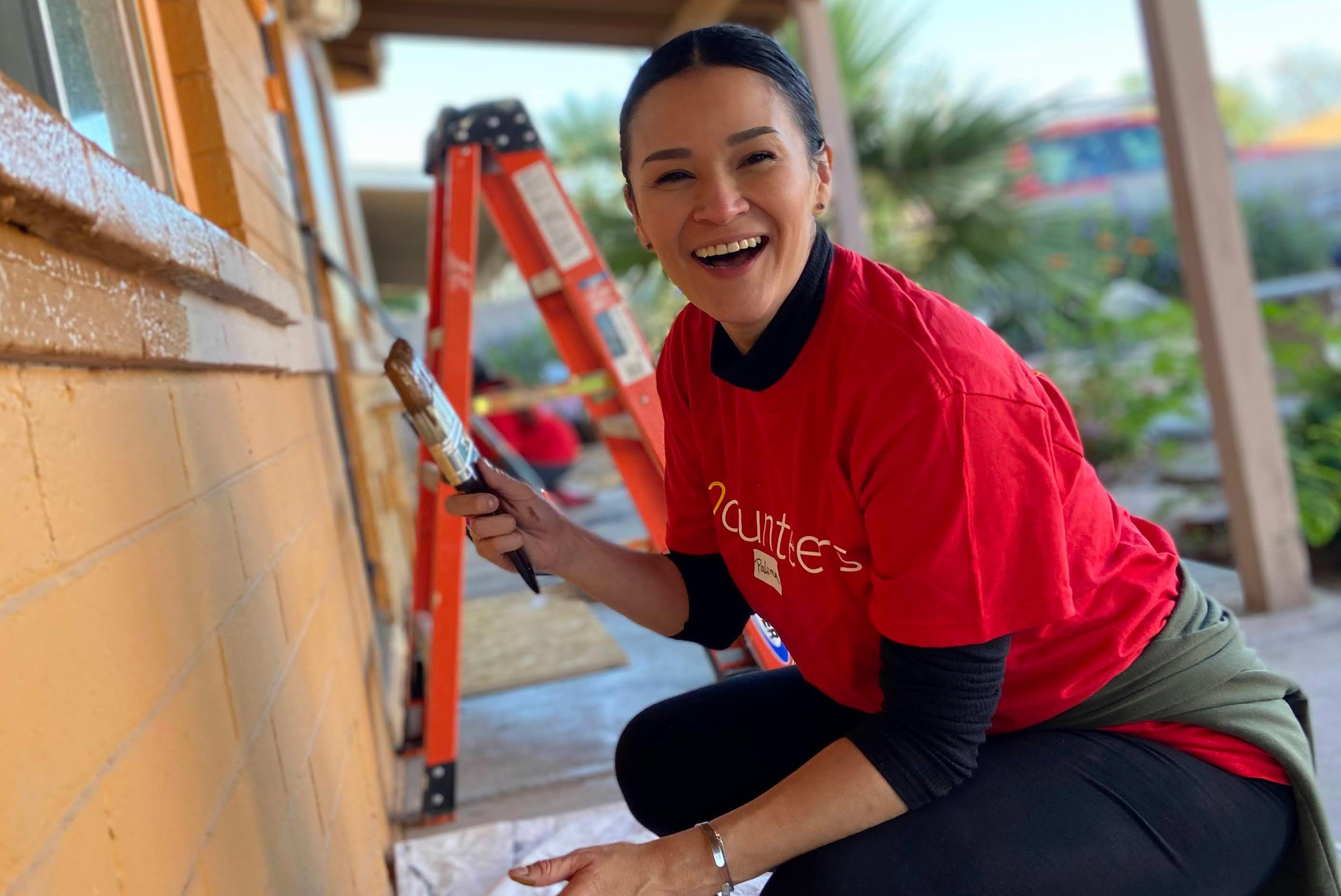
The Arizona practice is renowned for its longstanding commitment to excellence, demonstrated through high-quality work and dedicated client attention. Our professionals possess deep experience, meeting the diverse needs of both emerging and established industries in this vibrant region. We take pride in supporting companies of all sizes in achieving their goals and contributing to Arizona's story of innovation, prosperity, and perseverance.

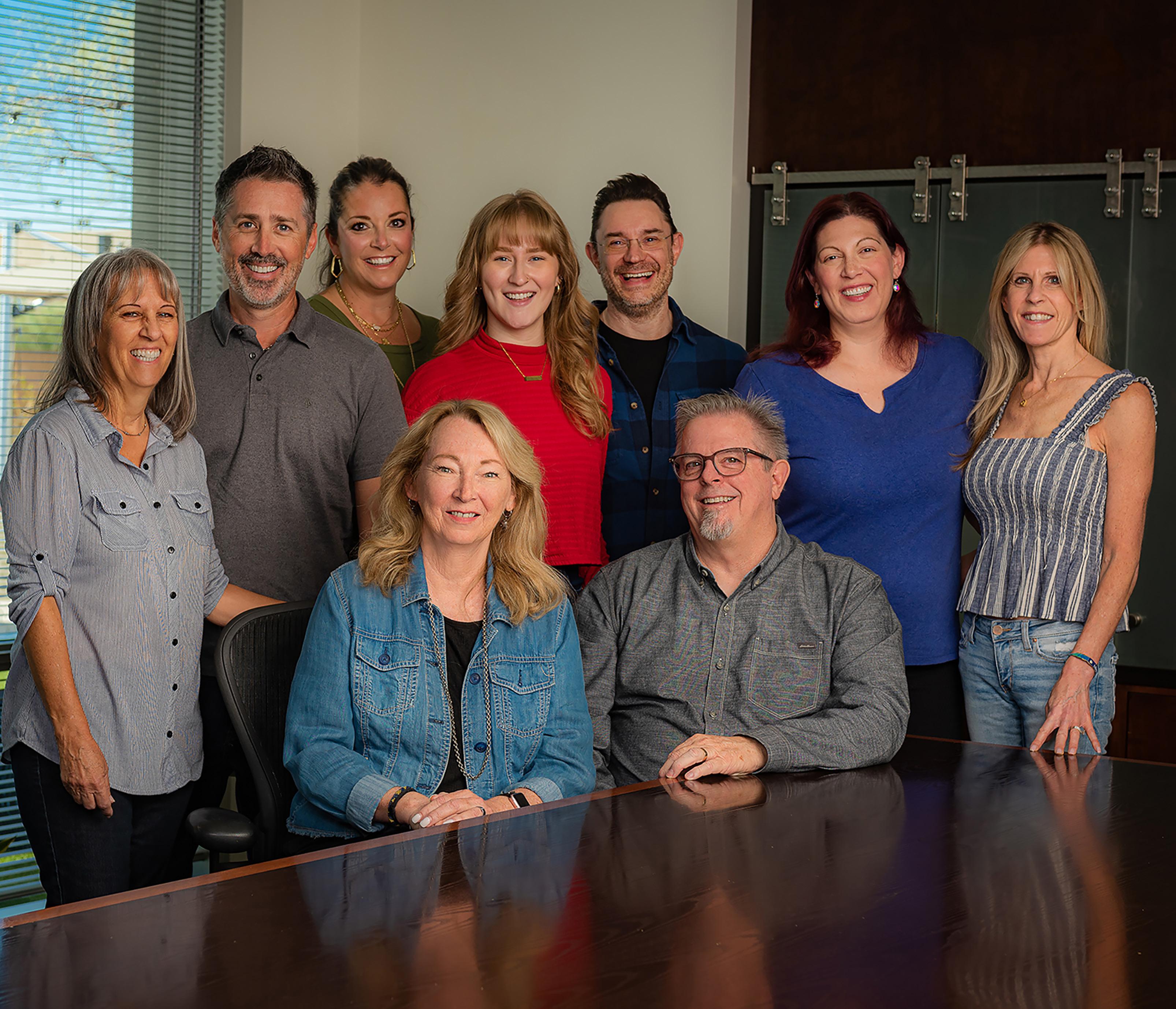
Esser Design is an award-winning branding, marketing and advertising firm providing integrated programs and services linking strategy and creative design. For over 40 years, Esser Design has been the definitive choice for education, municipalities, nonprofits and corporations looking to define their brand, increase their brand visibility and achieve their goals. The firm has been consistently recognized regionally and nationally for its branding and marketing expertise, creativity and excellence, as well as respected for its professionalism and philanthropy in the community. Esser Design employs nine full-time, senior level staff members. For 17 years, Ranking
Arizona magazine named Esser Design the No. 1 graphic design firm in Arizona.
Creative trait: “To be forward-looking, adaptable, and able to manage change, not only for our business, but for our clients’ businesses requires a focus on continuous creativity. It also requires an openness to evolve how and where we work to create a flexible workplace and creative space for all. This has led to our company’s long-term success and has provided a true competitive advantage amongst our peers.”
Fostering creativity: “Selectively building our creative and client success teams ensures culture and collaboration are at the forefront. Teams are given the autonomy to work in a positive and
supportive environment and always go the extra mile in solving creative and logistical challenges for our clients. Balanced ownership and steady leadership contributes to team tenure and client partnerships that provide a great environment for nimble innovation.”
Creativity and the bottom line: “Our firm’s reputation for innovation and creativity attracts clients and team members alike who value great creativity and its impact. Smart and strategic creative solutions have been the hallmark of Esser Design and have not only led to our success, but continue to propel our team to be known as one of the elite creative firms in the state and region.”
Learn more: esserdesign.com
Whether we’re working on print materials, executing digital marketing, or promoting brands via social media, brands of all sizes have trusted us to tell their story for four decades. If you’re ready to have yours presented in a new and effective way, we’re ready to help you make your mark.
Habitat for Humanity Central Arizona: A recent example of Habitat’s creativity is its collaboration with the Havasupai Tribe to build two new homes in Supai Village, deep within Havasu Canyon in the southwestern portion of the Grand Canyon.
Hexagon: Hexagon’s mining technologies provide surveying, design, fleet management, production optimization and collision avoidance capabilities that connects people and processes, reduces costs and improves the safety and productivity of mine sites.
HOPCo: In disrupting traditional approaches to practice management, Healthcare Outcomes Performance Company (HOPCo) has grown to more than a $1 billion enterprise since it was founded by David Jacofsky, MD, in 2005.
Isos Technology: Tempe-based Isos accelerates the innovation curve for companies that are changing the world. Since 2005, its partnered with hundreds of organizations to help them tackle tough business challenges and achieve their strategic goals.
JE Dunn: Dunn Dashboard, the JE Dunndesigned and award-winning technology, provides web-based collaboration on design documents, building information modeling, electronic bid submittals and other project documentation.
Keap: Headquartered in Chandler, Keap pioneered the sales and marketing automation software market with its Keap family of products, services to help small business owners market their businesses effectively, and expert coaching.
Mayo Clinic: In July, Mayo completed the first total larynx transplant, offering hope to thousands who have lost their ability to speak, swallow and breathe on their own due to diminished function or loss of their larynx.
Nox Innovations: The Phoenix-based company is on the leading edge of construction’s best
practices, driving innovation while leveraging the people that get the job done. The company provides virtual design and construction services for contractors nationwide.
onsemi: With a focus on automotive and industrial markets, Scottsdale’s onsemi is accelerating change in megatrends such as vehicle electrification and safety, sustainable energy grids, industrial automation, and 5G and cloud infrastructure.
Payground: Gilbert-based PayGround is a healthcare payments platform that streamlines the payment experience for providers, hospitals and patients. For individuals and families, it offers a mobile app to manage, track and pay all medical bills in one secure place.
Persefoni: Tempe-based Persefoni AI has deep expertise in carbon accounting, data management, compliance and decarbonization planning. Persefoni AI’s strong vision includes the use of AI for deeper financial modeling and incorporating broader ESG reporting.
Phoenix Children’s: Phoenix Children’s is one of the nation’s largest pediatric health systems, providing world-class inpatient, outpatient, trauma, emergency and urgent care and has been serving children and families for 40 years.
Prologis: Prologis is the global leader in logistics real estate with a focus on highbarrier, high-growth markets, including Metro Phoenix. Prologis leases modern logistics facilities to a diverse base of customers across two major categories: business-to-business and retail/online fulfillment.
Pyx Health: Tucson-based Pyx Health is a leading social health company on a mission to support individuals struggling with
loneliness. The company ranks No. 517 on the 2024 Inc. 5000 list.
Residio: Scottsdale-based Resideo is a leading global manufacturer and developer of technology-driven products and components that provide critical comfort, energy management, and safety and security solutions to over 150 million homes globally.
Rise48 Equity: Rise48 is a multifamily investment group with offices in Phoenix, Dallas, and Charlotte. Dedicated to empowering accredited and non-accredited investors, the company focuses on creating wealth-building opportunities while delivering exceptional living experiences.
Rivulet Entertainment: Gilbert-based Rivulet is engaged in producing and marketing feature-length films, television, and music production and has produced and financed such films as “John Wick,” “The Blackcoats Daughter,” “Nutcrackers” and “Drinking Buddies.”
STORE Capital: STORE Capital is one of the largest and fastest growing net-lease REITs and owns a large, well-diversified portfolio that consists of investments in more than 3,100 property locations across the U.S.
SynCardia: Nearly 20 years ago, the SynCardia Total Artificial Heart became the first total artificial heart to receive commercial approval from the FDA. Since then, it remains the world’s only commercially approved total artificial heart.
Taylor Morrison: Headquartered in Scottsdale, Taylor Morrison is one of the nation’s leading homebuilders and developers and will serve as the exclusive homebuilder for the reboot of “Extreme Makeover: Home Edition” on ABC.

•
•
•
•
•
•
•
•
•

JIMMY GAUDIANO Senior Vice President
Regional
Manager 602.212.5401 James.Gaudiano@nbarizona.com
•
•
•
In order to remain competitive, retain talent and save on healthcare costs, employers are leveling up employee mental health awareness, benefits and solutions
Mental health in the workplace has become increasingly important. Once considered a more tangential aspect of employee benefits, mental health offerings are no longer seen as just nice-to-have — they’re a priority across the entire workforce.
Interest in mental health benefits was heightened by the onset of the 2020 COVID-19 pandemic and won’t go away any time soon. According to Marsh McLennan Agency’s 2024 report on benefits trends, 61% of Gen Z employees would consider changing jobs for better mental health benefits, and 46% of all employees said mental health benefits would motivate them to apply for a job with another company.
It’s a fact: If employers want to remain competitive in today’s job market, mental health provisions should be prioritized. Not only are they beneficial to employees, but employers have seen a positive return on investment (ROI) from offering employee mental health benefits including increased productivity, improved retention rates and more.
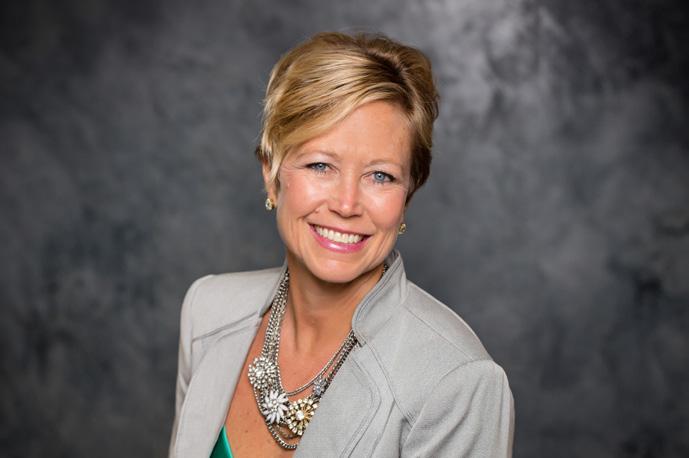
The current landscape of mental health in the workplace
According to the U.S. Department of Health and Human Services (HSA), a survey in 2021 reflected that 76% of U.S. workers reported at least one symptom of a mental health condition and 84% of respondents expressed that workplace conditions led to at least one psychological condition.
Once the proverbial doors of workplace mental health and its impact were
opened, more light has been shed on how stress and burnout are impacting the wide multigenerational workforce.
The earlier mentioned Marsh McLennan Agency report reflects that 44% of all generations (baby boomers, Gen X, millennials and Gen Z) feel constant stress, rising to 68% for Gen Z and younger millennials in particular.
The prevalence of workplace stress has also unveiled how burnout affects employees. There is a clear connection between poor employee health, decreased productivity, lower engagement, absenteeism and attrition due to burnout.
The Marsh McLennan Agency report demonstrates that 59% of workers reported feeling burned out in 2023, an increase of 9% since 2021.
In a survey conducted by the American Psychological Association, workers reported their primary workplace stressors include:
• Excessive workloads
• Scarcity of advancement opportunities
• Low salaries
• Exemption from decision-making
The role of employers in supporting mental health
Employers are not turning a blind eye to the impacts of stress, burnout and mental health issues. Close to 95% of HR professional respondents felt offering mental health resources could improve the overall health of employees, according to a Society for Human Resource Management (SHRM). Additionally, 88% of surveyed HR professionals believed mental health benefits could increase productivity and 86% thought employee retention would be improved.
Plus, employers are beginning to realize the ROI from mental health spending. Studies have shown providing high-quality mental healthcare solutions can:
• Result in savings of approximately $2,300 per person in health plan spending
• Reduce lack of productivity and poor performance by 15%-27%
• Improve employee retention (two times higher than workplaces without mental health offerings)
Effective mental and behavioral health benefits
When it comes to mental health benefits, there is no one-size-fits-all solution. The most effective way to improve workplace well-being and see ROI is by implementing a combination of strategies. To do this, employers have found it beneficial to survey employees to identify factors of poor mental health and what benefits are of most importance.
Once a company has a more thorough understanding of workplace stressors and desired solutions, it can tailor benefits and resources accordingly.
Providing comprehensive mental healthrelated benefits is high on the hierarchy of employee expectations. To satisfy this, businesses are implementing:
• Employee Assistance Programs (EAPs)
• Health plan networks that incorporate specific mental health offerings and specialty areas (ex: substance use and addiction recovery)
• Virtual mental healthcare options and computerized Cognitive Behavioral Therapy (CBT)
If employers are looking at mental health integration holistically, they may also want to consider applying preventative measures and wellness programs, such as:
• Stress management workshops that focus on recognizing workplace triggers, providing breathing techniques and demonstrating de-stress techniques such as progressive muscle relaxation
• Flexible work arrangements like hybrid work schedules as well as paid mental health and volunteer days
• Mindfulness and meditation options — for example, through applications such as Headspace, Calm and Insight Timer that offer guided meditations and mindfulness exercises
As a third tier to rounding out mental health offerings, employers can extend tools and resources to employees that support mental health, which include financial wellness programs, caregiver support, nutrition initiatives, peer-topeer support, professional training and upskilling and return-to-work programs.
Importance of training leadership about mental health issues
Establishing comprehensive mental health benefits, preventative measures and resources is part of improving stress and burnout in the workplace. Another essential piece of enhancing workplace mind and body wellness includes training and educating leadership.
Not only should managers and leaders be equipped to recognize mental health
issues and provide support as needed, but they should also be taught how to prevent mental health-related issues in the workplace. As an example, in addition to offering Mental Health First Aid to managers and leaders, businesses are finding it helpful to incorporate strategies centering on empathy and encourage supportive conversations.
The cost of ignoring workplace mental health is palpable. A Gallup survey found that missed work linked to poor mental health equated to close to 12 days, resulting in an estimated annual cost of $47.6 billion in lost productivity.
Additionally, the previously mentioned HSA survey revealed 84% of respondents reported their workplace conditions had contributed to at least one mental health challenge and 81% of workers said they would consider finding workplaces that support mental health in the future.
If employers want to remain competitive, retain employees, reduce absenteeism and lower healthcare premiums, they must consider implementing mental health benefits and resources.
Thankfully, because of increased awareness around mental health in the workplace, there are more resources available to employers and employees to help educate and provide support.
Elise Thorpe is a principal at Marsh McLennan Agency in the firm’s Scottsdale office (known previously as Lovitt & Touché). With more than two decades of experience in health and welfare, she helps companies of varied sizes and industries to develop and implement long-term strategic plans for their employee benefits programs.












Join AZ Big Media publisher Amy Lindsey and editor in chief Michael Gossie on the AZ BIG Podcast.
Each week, an intriguing guest lends their expertise and industry knowledge to our listeners, providing thought-provoking and insightful conversations on a wide variety of timely business and industry topics.



Amy and Michael craft their guest conversations to extract all the compelling business information that conveniently fi ts into a 15-minute podcast!
The AZ BIG Podcast is sponsored by Burch & Cracchiolo and available anywhere you listen to podcasts.













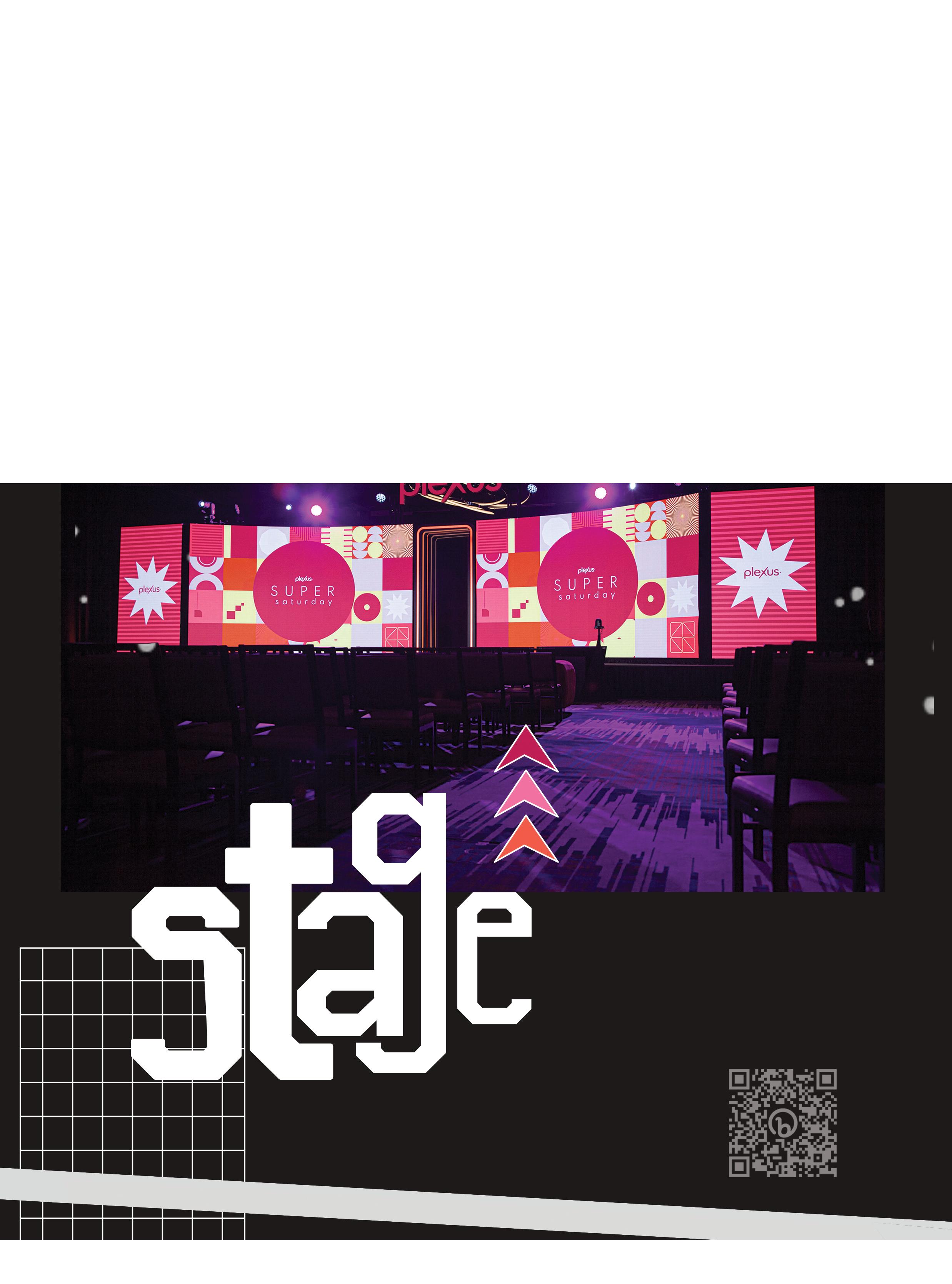


earch engine optimization (SEO) is widely misunderstood and there are many SEO misconceptions in the general business community. Companies of all types and sizes know they need to rank as high as possible in Google, but the path to page one is long with many nuances, twists and turns. A handful of blogs and keywords won’t get you far.
Yet, for all that SEO is talked about and pushed, relatively few companies are realizing their search engine ranking potential. Considering that less than less than 1% of searchers click on the second page of Google, according to Backlinko

Andrea Aker Marketing
(2023), a targeted and consistent strategy is essential for any company relying on search engine traffic to fuel or support their businesses (which is most companies these days).
What is “SEO” anyways?
SEO is a process for improving a website’s visibility in search engines. Seeing as how Google is the most popular site in the world, most SEO strategies are attuned to Google’s algorithms. SEO also encompasses “organic search” strategies, which means generating traffic for free from searches. The listings at the very top of search engine

pages marked as “sponsored” are not considered “SEO.” Those listings are part of advertising campaigns. These two strategies can play off of one another, but they aren’t the same.
Keyword confusion: Keywords alone don’t yield optimal results
It’s often assumed SEO is defined by having the right “keywords” or “keyphrases” on a webpage. After all, these embedded terms within website content are intended to meet people’s search inquiries, based on how often they’re searched. Ex: “best pizza near me.”
While keywords do improve rankings, there are also additional elements that work together to get the most bang for your searchability buck:
• On-page: Broadly, this includes keywords, meta descriptions, meta titles, header hierarchy, images, alt tags, URLs and overall content quality.
• Off-page: This includes backlinking (other sites linking to yours), guest posting and exposure through social media and all other media channels — all tying into your greater public relations strategy.
• Technical: Critical elements like your website load time, accessibility, mobile-
friendliness and more could makeor-break an interested searcher into a passerby within seconds.
Sometimes metadata — descriptive information about page content on the backend of a website — is considered a lessimportant SEO component, but a company seeking to strategically rise the ranks shouldn’t ignore it. Metadata incorporates both meta titles and meta descriptions, which will appear on Google searches.
Meta titles should be short, snappy headlines leveraging a top keyword — this doesn’t necessarily need to align exactly with the blog title.
Meta descriptions are a concise summary of your post or page, containing one or more top keywords.
These two components serve as the “preview” visitors see before clicking on a search link. In the early days of SEO, metadata reigned supreme for determining rankings. Now, Google focuses more on the quality of the page and how effectively it answers users’ questions. However, incorporating metadata continues to be a best practice that shouldn’t be skipped.
Length of content is one of the most debatable areas of SEO. Some say write a book, others instruct the opposite. What’s the truth? According to HubSpot’s “Ultimate Guide to SEO in 2024,” while pages with more content tend to keep the reader on the page longer, which is optimal for SEO, quality content will always win.
misnomer of all: You can optimize a site once, then you’re done!
So, you’ve set up your site with all the above. Now what? It’s important to note SEO results don’t happen overnight, and frequent fresh content is crucial for improving rankings. Google’s algorithms, user behaviors and competitor strategies are ever-evolving. It’s important to assess on-page, off-page and technical SEO on an ongoing basis and adapt your approach based on ranking data. SEO is an ongoing process without a completion date.
Andrea Aker is CEO of Aker Ink PR & Marketing, a full-service agency that helps companies increase brand awareness, thought leadership, leads and revenue.
O.H.S.O. Brewery offers great food, incredible local beers and an amazing atmosphere

By MICHAEL GOSSIE
When you enter O.H.S.O. Brewery in Paradise Valley, you walk under a sign that reads “Outrageous Homebrewers Social Outpost” — O.H.S.O. And with a jovial happy hour crowd and friendly staff filling the innovative venue, there is no arguing that O.H.S.O. has the social part down.
O.H.S.O. Brewery — which has seven locations in the Valley — is an excellent choice for happy hour due to its vibrant atmosphere and wide variety of craft beers.
O.H.S.O. offers amazing assortment of craft beers with a vibrant tapestry of flavors, from crisp and hoppy IPAs to rich malty porters. Expect complex profiles, ranging from fruity and zesty to earthy and roasted, each brew expertly crafted to deliver unique, refreshing and satisfying experiences with every sip. With an extensive selection of rotating unique brews, guests can enjoy something different every visit.
Beyond the amazing beers, O.H.S.O. offers a lively setting, perfect for relaxing with friends or co-workers after a long day. Happy hour specials often include discounted pints and appetizers, making it budget-friendly. The friendly staff enhances the experience with their knowledge of
the beers and warm service. Additionally, O.H.S.O. provides a welcoming outdoor space, ideal for socializing and enjoying great weather. It’s a spot where good times and great brews come together. And it’s dog-friendly, too.
But beyond the great beers — O.H.S.O. has more than 36 beers on tap — and happy hours, O.H.S.O. Brewery also delivers an incredible array of delicious dining options. Some of our favorites include:
• The Artichoke Dip ($15) — served with baby kale, cheese blend, sweet bacon relish, onion, bread crumbs, tortilla chips and pita bread — and O.H.S.O. Buffalo Chicken Dip ($16) — served with shredded chicken, cream cheese, buffalo sauce, bleu cheese crumbles, green onion and tortilla chips. Both are perfect companions to O.H.S.O.’s incredible craft beers.
• Others starters that quickly became favorites are the Monster Pretzel and Dips ($15), Buffalo Cauliflower ($14) and the Steak and Fries ($18), which are all incredible and infinitely shareable.
• You cannot go to O.H.S.O. without trying
the burgers, which are among the best in the state. Some fun favorites include the AZ Burger ($18), served with jalapeño cream cheese, poblano aioli and crispy onion strings; the Green Chile Burger ($17), served with hatch chiles, lettuce, tomato, jack cheese and chipotle ketchup; and The Gobbler ($16), a turkey burger served with pear compote, bacon, spring mix and tomato.
• Some other main dishes that are sure to delight are the O.H.S.O. Beer Braised Shortribs ($24), Chicken & Waffles ($18) and the Green Chile Pork ($17).
O.H.S.O. Brewery’s seven locations throughout the Valley are the places to be, any time of the day. If you’re looking for great food, an amazing atmosphere and a wide variety of local beers, O.H.S.O. is the place to be. Bring your friends, co-workers and your four-legged friend, too.
To learn more about O.H.S.O. Brewery and to discover all the locations, visit ohsobrewery.com.








Since 1931, Financial Executives International has been recognized globally as the leading organization for senior-level financial executives. FEI AZ is proud to present the 2024 CFO of the Year Awards. This event is the most prestigious financial executive awards in Arizona and the one not to miss!







Olive & Ivy offers flavorful perfection with atmosphere and service that will keep you coming back
By MICHAEL GOSSIE
Olive & Ivy is one of those restaurants that delivers everything that defines a perfect dining experience.

Olive & Ivy, located near the Waterfront in Scottsdale, stands out as a superb dining destination thanks to its inviting atmosphere, diverse menu and exceptional service. The restaurant’s ambiance strikes a perfect balance between elegance and comfort, with its Mediterranean-inspired decor and cozy seating arrangements creating a warm, welcoming environment.
The menu is a highlight, offering a wide range of flavorful options that cater to various tastes and dietary preferences. From fresh salads and artisanal pizzas to succulent steaks and seafood, Olive & Ivy showcases a commitment to high-quality ingredients and creative preparation. Signature dishes, such as the lemon rosemary chicken and the truffle mac ‘n’ cheese, exemplify the restaurant’s dedication to delivering both delicious and visually appealing meals.
In addition to its impressive food offerings, Olive & Ivy excels in service. The staff is known for their attentiveness and genuine friendliness, ensuring that each dining experience is personalized and enjoyable. Whether you’re there for a casual lunch or a special dinner, the
service contributes significantly to a positive and personable experience.
Moreover, Olive & Ivy’s location in Scottsdale offers a picturesque setting, with its outdoor patio providing a delightful spot to enjoy meals while soaking in the local atmosphere. The combination of a refined menu, excellent service and charming setting makes Olive & Ivy a perfect choice for both locals and visitors looking for a memorable dining experience in Scottsdale.
As an added side dish for those who enjoy people watching with their starters and main courses, Olive & Ivy is a gathering place for beautiful people of all ages who want to see and seen.
But the food is the true star of the show at Olive & Ivy. Whether it’s a business lunch, dinner with friends of a date night with someone special, Olive & Ivy delivers. Some cannot miss dinner items:
• Scrumptious starters include the Shrimp & Calamari Fritto ($17), served with zucchini, onion, shishito pepper and Calabrian chili aioli; bruschetta (one for $6 or three for $17); and Bacon-Wrapped Dates ($14), served with Italian sausage and piquillo pepper. All are amazing.
• A few of the main dishes that will make
MUST-TRY
DINING: Under the Fox Restaurant Concepts umbrella, French Rivierainspired Olive & Ivy serves its elevated cuisine in Scottsdale and at Phoenix Sky Harbor International Airport. (Photo courtesy of Olive & Ivy)
you want to come back for more include the Sweet Potato Cannelloni ($20), served with roasted mushrooms and toasted almonds; the Sea Scallops ($33), with wild mushrooms, black truffle polenta, pumpkin seed granola and bacon gastrique; and Filet of Beef ($42), perfectly prepared with horseradish dauphinoise and red wine shallot.
Olive & Ivy should be a must-go-to destination for anyone who loves elevated cuisine served in an amazing atmosphere with impeccable service. It’s incredible on all counts. No wonder all the cool kids go there.
Olive & Ivy locations:
» 7135 E. Camelback Rd., #195, Scottsdale
» 3400 E. Sky Harbor Blvd., Terminal 4, #3300, Phoenix
Learn more: oliveandivyrestaurant.com




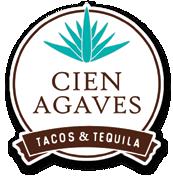


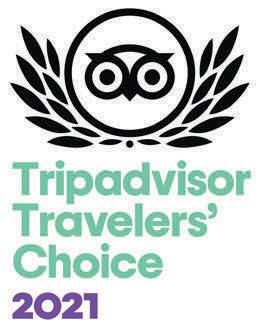








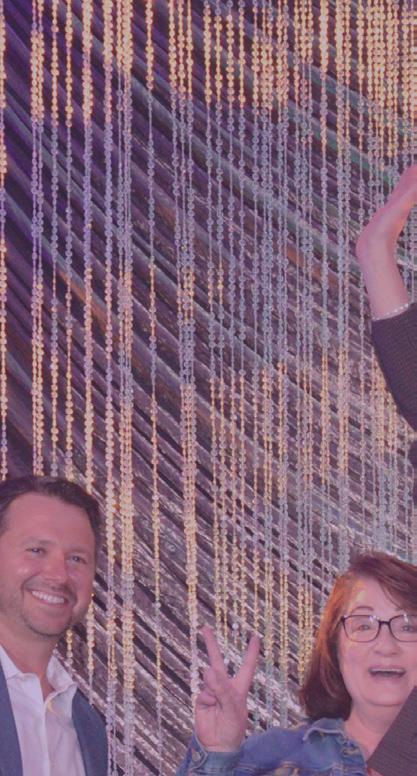

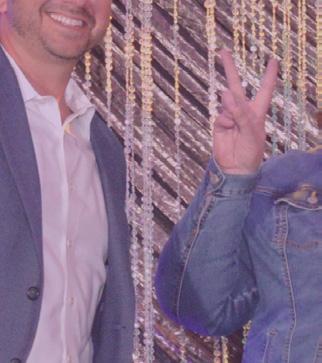






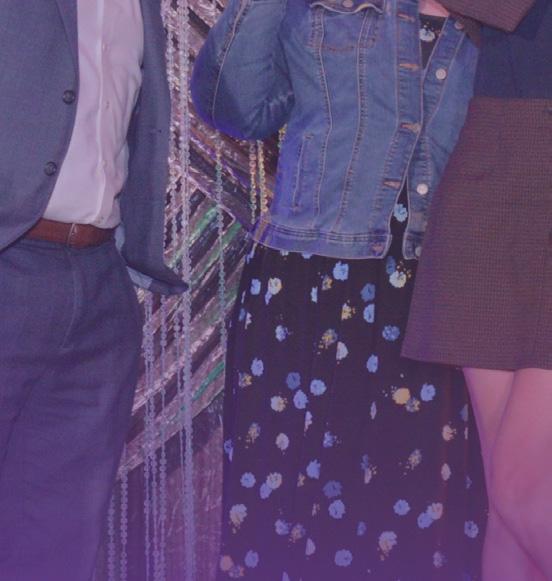



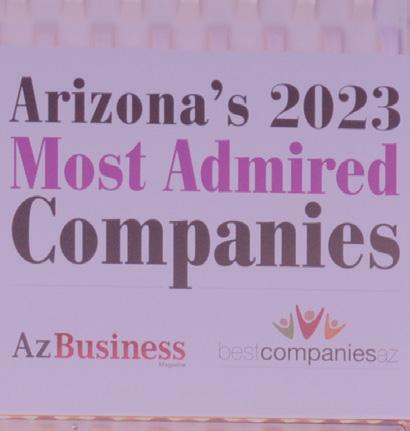



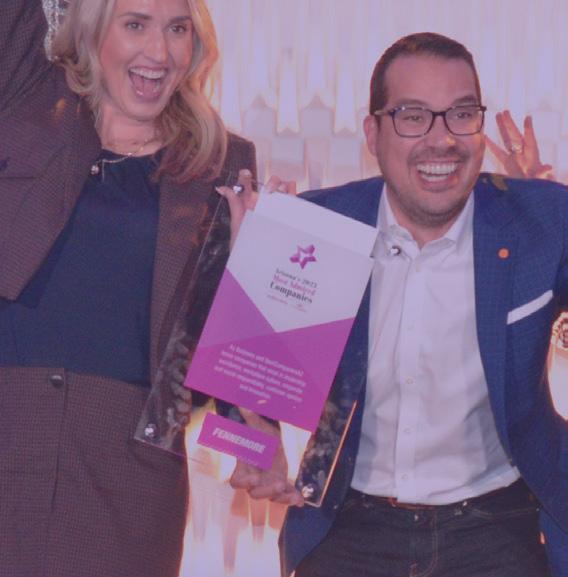

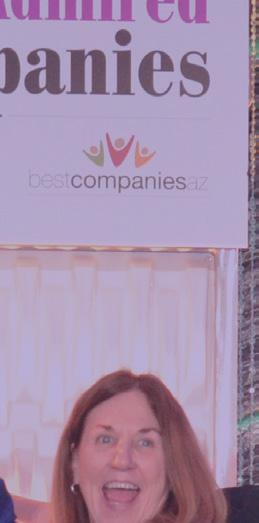


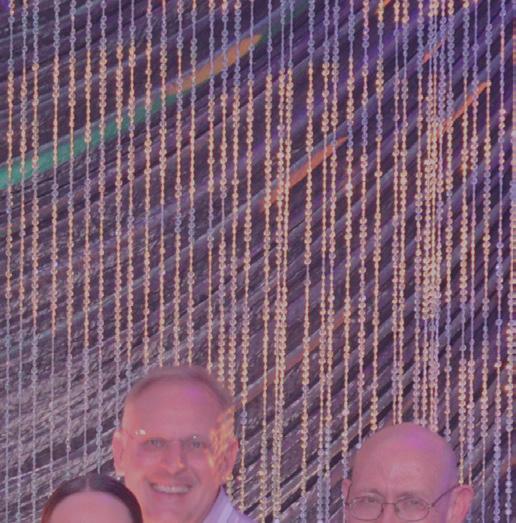
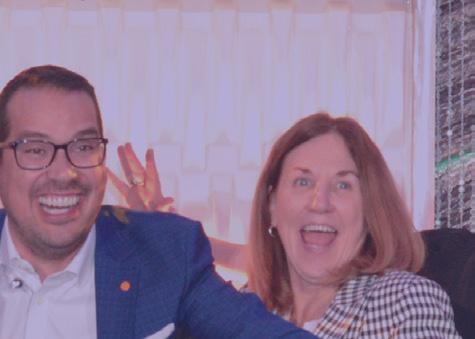






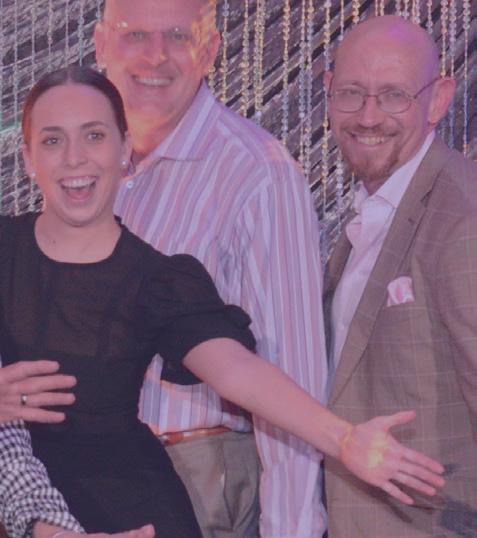




















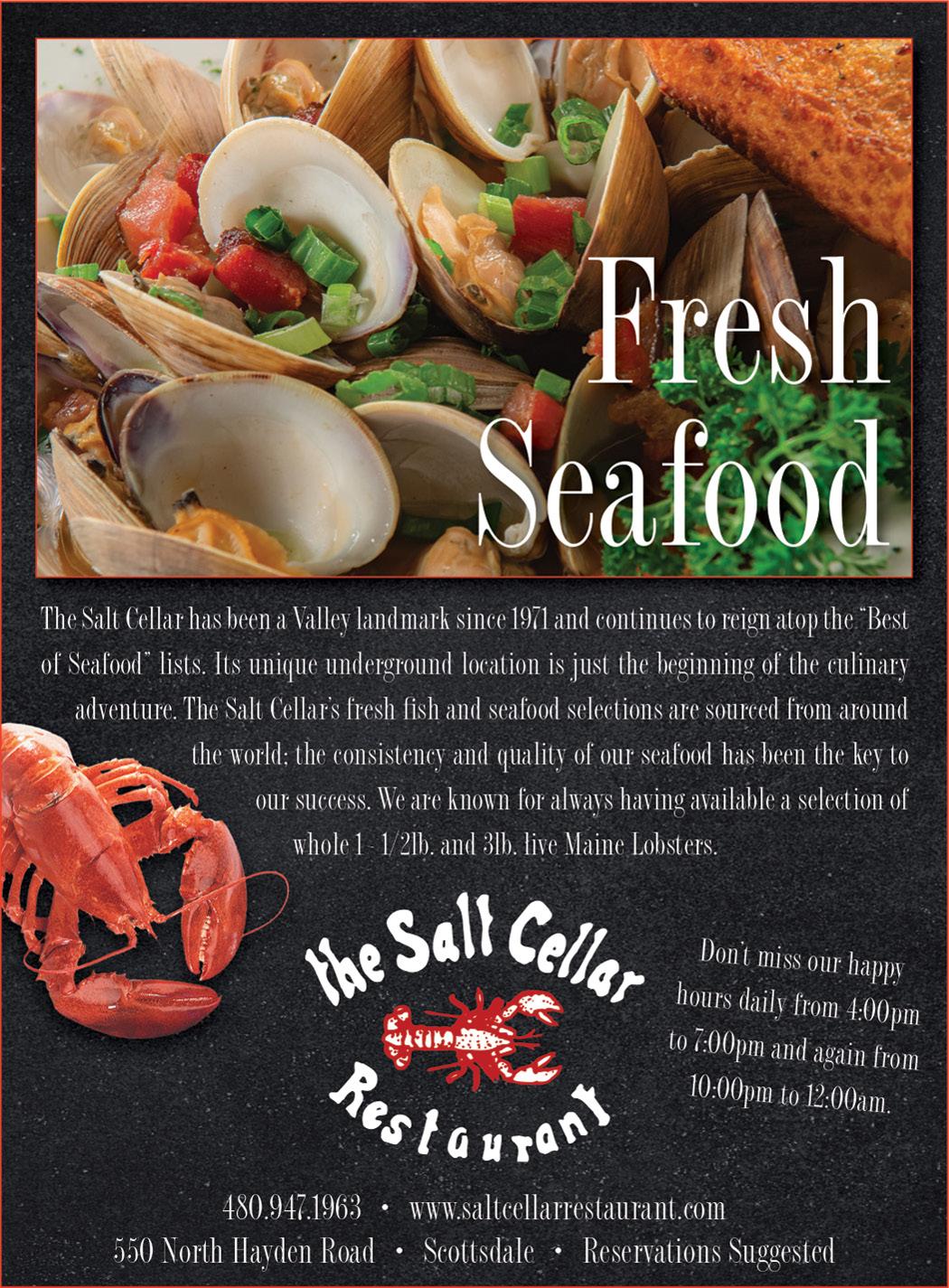






























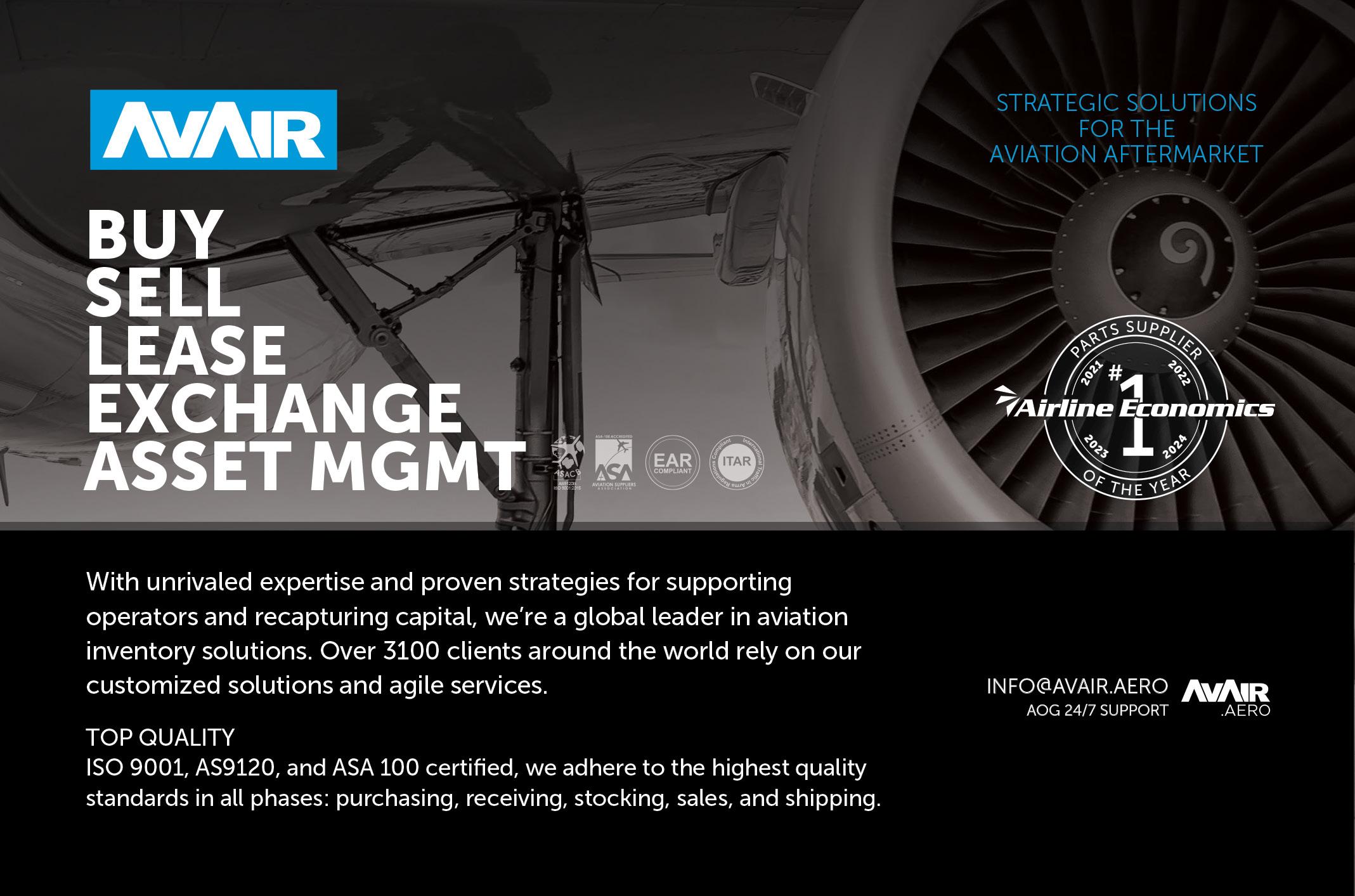


















































Welcome to the 2024 AZBio magazine, highlighting Arizona’s life sciences community. In the pages that follow, we give you a front-row seat to the remarkable progress and vibrant future of the bioindustry in Arizona. Our state has emerged as a powerhouse of innovation and collaboration, driven by the collective efforts of industry leaders, academic institutions, government agencies, and community organizations. Together, we are building a thriving ecosystem that is making a significant impact on global health and our state’s economic development. We are excited to share this with you.
Inside, we tell the story of this year’s AZBio awards winners and their incredible contributions to our community. We also spotlight the remarkable winners of the AZBio awards over our 20-year history, highlighting the important contributions of companies, leaders, and researchers who have grown the life sciences in Arizona. And we feature health innovations and innovators, focusing on the educators, researchers, healthcare professionals, business leaders, and community leaders who champion the discovery, development, and delivery of treatments and cures.
The Arizona Bioindustry Association (AZBio) plays a pivotal role in this growth. As the state’s leading advocate for the life
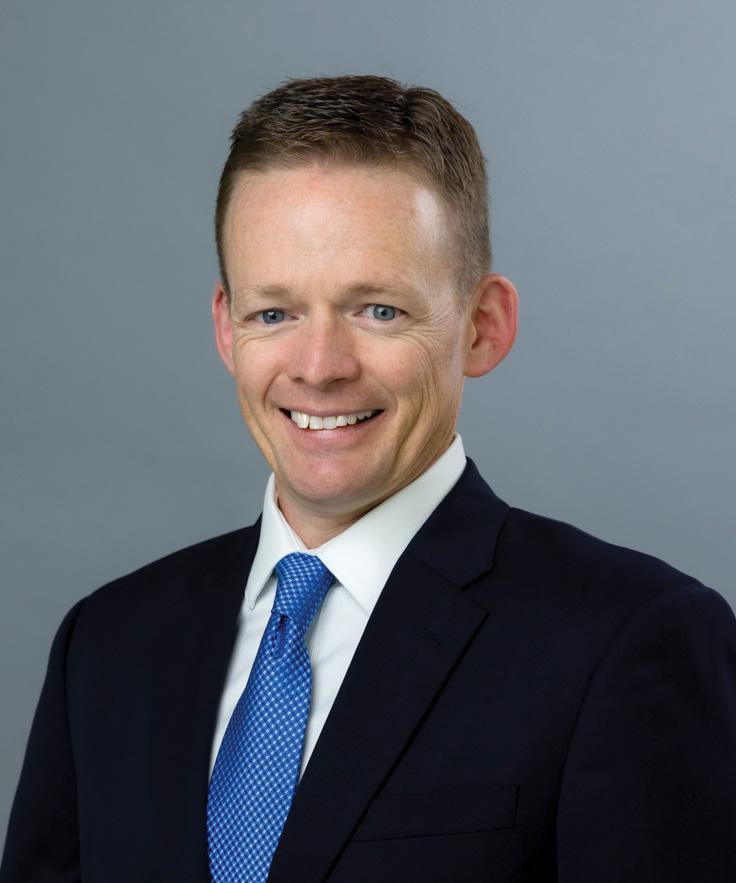
Kevin Parker Chairman of the board of directors Arizona Bioindustry Association
sciences, AZBio is dedicated to advancing the bioindustry through advocacy, education, and collaboration. Our mission is to support the development of lifesaving and life-enhancing innovations by providing our members with the resources, connections, and opportunities they need to succeed.
Our industry is not only advancing scientific discovery but also driving substantial job growth. Over the past
decade, we have witnessed a significant increase in employment opportunities within our sector. This trend is expected to continue as we attract more companies and investment to our state. The diverse range of careers available, from research and development to manufacturing and clinical trials, ensures that Arizonans have access to fulfilling and well-paying jobs.
We are proud of how far our life science community has come and are inspired by the future. We eagerly look forward to the Flinn Foundation’s renewal of the Arizona Bioscience Roadmap, set to be released in mid-2025. This roadmap will be a crucial guide for our future efforts, helping us to build on our successes and navigate new challenges.
Finally, I would like to extend my heartfelt congratulations to this year’s AZBio awards winners. Your achievements exemplify the excellence and innovation that define our community. Your dedication and hard work inspire us all, and we are proud to celebrate your success.
Thank you for your dedication and commitment to the Arizona bioindustry. Together, we are making a difference in the lives of the patients we all serve. We hope you enjoy reading more about our bioindustry.


By JOAN KOERBER-WALKER
For more than two decades, the Arizona Bioindustry Association, Inc. (AZBio), has been championing health innovation and health innovators in Arizona. AZBio is more than a nonprofit organization, it is a community of over 300 organizations that together employ over 350,000 Arizonans. AZBio’s community includes educators, researchers, health innovators, healthcare professionals, business leaders, and community leaders who champion the discovery, development, and delivery of treatments and cures.
Health innovations are being created at a faster pace than ever before. But so much more is needed. The more we learn about disease, the more complex the solutions
get. It has been reported that there are over 20,000 health disorders and many of them have no effective treatments. This is especially problematic in the case of rare diseases where over 90% have no effective treatment. The FDA defines a rare disease as a disease that affects fewer than 200,000 people in the United States. It is estimated that 1 in 10 Americans or around 30 million people in the U.S. have a rare disease.
Cures are extremely rare. A cure occurs when a medical condition is completely gone and will never come back. The first hepatitis C treatment was approved in 1991, but it had a cure rate of only about 6%. Today, treatments have improved dramatically, with today’s treatments
having a success rate of more than 95%.
The CDC estimates that 2.7 million people in the U.S. have chronic hepatitis C. This is the only chronic viral disease that can be completely cured. Hepatitis B does not have a cure. Instead, health professionals recommend a vaccine to help prevent the disease from occurring.
Tuberculosis (TB), contagious bacterial infection that can affect the lungs and other parts of the body, is an example of a bacterial based disease that can be cured permanently if treated properly with antibiotics.
SMA, Spinal Muscular Atrophy, is a rare disease caused by genetic mutations in the SMN1 gene. Zolgensma is a gene therapy that can stop the progression of SMA. It

works by replacing a nonworking or missing SMN1 gene with a normal one. It is not considered a cure because it can’t reverse damage caused by SMA before treatment.
Diabetes is a metabolic disease that disrupts the body’s ability to convert food into energy. Insulin was discovered in 1921 and was first mass produced by Eli Lilly in 1923 with Novo Nordisk following soon after. In the last 100 years, we’ve made great strides forward in our ability to treat type 1 and type 2 diabetes, facilitated by an improved understanding of the pathophysiology of the disease and improvements in insulin formulation and delivery. We have yet to develop a cure or a treatment that can stop or prevent the disease.
Eradicating a disease means permanently reducing the number of cases to zero through deliberate measures, such as vaccines. Once a disease has been eradicated, intervention measures are no longer needed. The world has only eradicated two diseases. Smallpox was the first disease to be declared eradicated worldwide in 1980. Rinderpest, a disease that affected cattle, was declared eradicated in 2011.
Eliminating a disease means there are no instances spreading within the
country and new cases are only found when someone contracts the disease abroad and returns to the country. Measles was officially eliminated from the United States in 2000. Measles is highly contagious and still occurs in other parts of the world. Travelers have brought measles back to the U.S. resulting in outbreaks. This year (as of July 25, 2024), a total of 188 measles cases were reported across the country including in Arizona. For this reason, it is still important that all people who can be vaccinated for the measles do so.
Colds account for more visits to the doctor in the United States than any other condition. In most cases, a cold may last for about a week, but some colds last longer, especially in children, the elderly and those in poor health. These minor infections of the nose and throat are not one disease. Colds are highly contagious and can be caused by more than 200 different viruses. There is no cure for the common cold. Medicines may help alleviate symptoms and promote healing, but it is your immune system that defeats the infection and allows you to recover.
Treatments include medicines, medical devices, procedures, medical interventions, and therapies designed to improve your health and quality of life. The Food & Drug Administration (FDA) has approved over 20,000 drugs and biologic medicines as well as over 6,500 medical devices. FDA approval designates that these treatments are safe and effective. Nutraceuticals including vitamins, minerals, amino acids, herbs, and botanicals are not FDA approved or evaluated for effectiveness by FDA. Federal law requires manufacturers to ensure nutraceuticals are safe before they are marketed. If it is determined a nutraceutical product is unsafe after it is marketed, the FDA can act.
Medicines, including pharmaceutical drugs, biologics, and vaccines are used to diagnose, cure, treat, or prevent disease. Here in Arizona, Bristol Myers Squibb manufactures Abraxane® a chemotherapy that is FDA approved for the treatment of advanced breast cancer, non-small cell lung cancer, and pancreas cancer. Primus Pharmaceuticals offers four prescription products including a topical product for the treatment of atopic dermatitis and food grade pharmaceutical products that help patients with conditions including osteopenia and osteoporosis, chronic venous disease, and the metabolic effects of methotrexate therapy. Arizona’s drug development pipeline includes AZBio Members Aqualung Therapeutics, Avery Therapeutics, Micro Vascular Therapeutics, NuvOx Therapeutics, PriZm Therapeutics, SLAM Bio, Sonoran Biosciences, and more.
Vaccines have saved an estimated 154 million lives in the past 50 years based on a 2024 report published in the Lancet. The study looked at 14 different diseases. Children under 5 years of age have benefited most. These medicines protect the body’s immune system against specific diseases, such as measles, influenza, or whooping cough. Vaccines can be administered by injection, orally, or as a
nasal spray. New work in vaccines includes the rapid development of vaccines used during the COVID-19 pandemic. Other vaccines like the Shingles vaccines that help protect against painful viral skin infections, the new RSV vaccine that is recommended for pregnant women, babies and seniors, and HPV vaccines that protect against a viral infection that is linked to 6 different cancers.
Here in Arizona, extensive vaccine research has been done at the Biodesign Institute at ASU, at TGen, and at University of Arizona Health Sciences.
AZBio Members CSL, Johnson & Johnson, Merck, and Novartis are some of the leading vaccine producers in the world. Calviri, the 2024 Arizona Bioscience Company of the Year, has recently completed the largest cancer vaccine trial ever completed with dogs and is working on both diagnostics and a vaccine that may help prevent cancers in our fourlegged friends and save people’s lives in the future.
Regenerative medicine includes gene therapies, cell therapies, and tissueengineered products intended to augment, repair, replace, or regenerate organs, tissues, cells, genes, and metabolic processes in the body.
Regenerative medicine aims to alter the current practice of medicine by treating the root causes of disease and disorders.
To date, the FDA has authorized 36 cell and gene therapies. More than 15 new cell and gene therapies are predicted to come to market in 2024, and by 2030, 54 approved cell and gene therapies are expected in the FDA pipeline.
What: The Meeting on the Mesa will bring together leaders in the exciting field of regenerative medicine, which includes gene therapies, cell therapies, and tissue-engineered products.
When: October 7-9, 2024, in Phoenix.
Learn more: meetingonthemesa.com
Here in Arizona, the Meeting on the Mesa will bring leaders in this exciting field to Arizona on October 7-9, 2024.
AZBio Members Amgen, Bristol Myers Squibb, City of Hope, CSL Behring, Gilead, Mayo Clinic, Novartis, Roche, Sarepta Therapeutics, Translational Genomics Research Institute (TGen), Vertex Pharmaceuticals have all been involved in this exciting innovation area.
Medical technology includes items, instruments, apparatuses, or machines that are used in the prevention, diagnosis or treatment of illness or disease, or for detecting, measuring, restoring, correcting, or modifying the structure or function of the body for some health purpose. This broad category ranges from simple bandages to extraordinarily complex devices.
Here in Arizona, medical device manufacturing is one of our largest employment sectors and includes Anuncia Medical, Becton Dickinson Peripheral Interventions, GE Healthcare, Medtronic, Regenesis Medical, Stryker, SynCardia Systems, W.L. Gore and more.
Diagnostics are tests used by health professionals to diagnose disease or monitor disease states. Other tests are screening tests that detect irregularities or potential issues, they may not provide answers. Colorectal screening can take the form of colonoscopies, stool tests, and blood tests. Colorectal cancer is the second leading cancer killer in the U.S.
The MalaCards database includes:
• 22,960 Total disorders
Global categories include:
• 3,932 cancer diseases
• 9,390 genetic diseases
• 2,821 metabolic diseases
Source: malacards.org (March 2024)
among cancers that affect both men and women. In 2024, there will be an estimated 152,810 new cases of colorectal cancer diagnosed in the U.S. and 53,010 people will die from the disease. Colorectal cancer is treatable in about 90% of people when caught early. Based on medical literature, the majority of screenings have normal results. If something is not normal, further diagnostic tests are performed to determine why. The FDA classifies most diagnostics as medical technologies.
Here in Arizona, we are a diagnostics powerhouse. Sonora Quest Laboratories is one of the nation’s largest integrated laboratory systems and performs more than 97 million diagnostic tests per year. TGen, the Translational Genomics Research Institute, is a world leader in exploring new ways to innovate with omics data and Arizona health innovators Accelerate Diagnostics, Inc., Castle Biosciences, CND Life Sciences, Exact Sciences, and Roche Tissue Diagnostics are ensuring that medical professionals have the information they need to diagnose and treat disease.
Arizona is the place where health innovators are developing and delivering innovations that improve the lives of people in Arizona, across the country, and around the world.
On September 18, 2024, our community will come together at the 20th annual AZBio Awards to celebrate the people and the companies that make our community so special.
• 15,278 Gene-related Disorders
• 5,883 fetal diseases
• 1,023 infectious diseases
• 14,942 rare diseases
Each day we have with the people we love is precious, and there are never enough.
When someone we love lives with disease, we do what we can to help; and feel like it is never enough.
Every time as researchers, innovators, and healthcare teams we are not able to conquer a disease in time, we know that for all that we do, until we succeed, it is never enough.
So we keep loving, keep helping, keep working to find answers. For when we do, someday, it will be enough.

Thank you to all of the family members, friends, caregivers, researchers, innovators, investors, philanthropists, healthcare teams, and, most of all, to the patients who work together to get us to someday.



By JOAN KOERBER-WALKER
The 20th annual AZBio Awards ceremony on September 18, 2024, shines a spotlight on Arizona life science companies and leaders. Here is a highlight from each year leading up to this milestone.
2005: Nanobiomics is the Bioscience Company of the Year. The company merged with the Molecular Profiling Institute which was acquired by Caris Diagnostics in 2008. Today Caris Life Sciences provides cancer patients and oncologists with reliable, high-quality, comprehensive molecular information to deliver on the promise of precision medicine from its our state-of-the-art laboratory and R&D facilities located in Phoenix, Arizona.
2006: Ventana Medical Systems, Inc. is Medical Device Company of the Year. In 2008, Roche acquired Ventana for $3.4 billion. Today Roche Tissue Diagnostics is the largest life science employer in Southern Arizona and has revolutionized cancer diagnostics worldwide through state-of-the-art testing automation. The company offers more than 250 cancer tests and associated instruments and is the leading global supplier of cancer diagnostic systems to the pathology market.
2007: Dr. Jeffrey Trent is honored as Bioscience Executive of the Year for his work
creating and leading the Translational Genomics Research Institute (TGen). Today, TGen conducts groundbreaking research with life-changing results. TGen is part of City of Hope, a world-renowned independent research and treatment center for cancer, diabetes, and other lifethreatening diseases.
2008: Michael Cusanovich, PhD, is honored with the Jon W. McGarity Leadership Award for his work in bringing together Arizona’s statewide bioscience cluster. Dr. Cusanovich died unexpectedly on April 12, 2010. Today, AZBio honors exemplary educators each year with the Michael A. Cusanovich Bioscience Educator of the Year award.
2009: Bruce Rittman, PhD, is honored with the Award for Research Excellence. Dr. Rittmann is Director, Center for Environmental Biotechnology at the ASU Biodesign Institute and develops microbiological systems that capture renewable resources and minimize environmental pollution.
2010: Abraxis BioScience is Bioscience Company of the Year. Abraxis created the cancer treatment Abraxane®. In June of 2010, Abraxis was acquired by Celgene for $2.9 billion. Celgene was later acquired by Bristol Myers Squibb (BMS) in 2019. Abraxane is manufactured at the BMS Phoenix facility and is used by oncologists to help patients with advanced breast cancer, pancreatic cancer, or non-small cell lung cancer.
2011: SynCardia Systems, Inc. is named the Arizona Bioscience Company of the Year. The SynCardia Total Artificial Heart is the first and only commercially available FDA and Health Canada approved total artificial heart. The SynCardia Total Artificial Heart has been implanted in over 2,000 patients across 20 countries and has provided 293,997 days of life to patients with heart failure.
2012: Dr. Jennifer Kahlet Barton of the University of Arizona is named the Michael A. Cusanovich Educator of the Year. Today, Dr. Barton is Director of the BIO5 Institute at U of A where hundreds
of researchers are solving the world’s most complex biology-based challenges.
2013: W.L. Gore and Associates is Bioscience Company of the Year. Today, Gore continues its commitment to improve lives through innovative medical products. In Arizona, Gore manufactures vascular grafts, endovascular and interventional devices, and catheters used by health care professionals to improve the lives of patients worldwide, resulting in 55 million medical devices implanted to date. Since 2013, Gore’s Associate population in Arizona has grown from 2,500 to near 4,000 Associates.
2014: Charles Arntzen, PhD, of the Biodesign Institute at ASU is the Arizona Bioscience Researcher of the Year. His research received global attention when it was applied to a treatment used to treat U.S. aid workers infected with Ebola. “Charlie Arntzen has been one of the most important faculty members in the history of this university. He’s a person who can think, connect, drive, create and link ... do all of that in the spirit of a scientist in either a corporate or university setting,” according to ASU President Michael Crow. Today, Dr. Arntzen is enjoying a welldeserved retirement.
2015: Gordon Steere, who led the Medtronic Tempe Campus from 19972008 is honored with the AZBio Pioneer Award for Lifetime Achievement. Today over 1,000 Medtronic employees in Arizona design, develop, manufacture and test microelectronics solutions used in Medtronic implantable devices, such as cardiac pacemakers and defibrillators, devices that help patients with diabetes manage their insulin levels safely and effectively, spinal cord stimulators for pain
management and deep brain stimulators that address movement disorders.
2016: Stephen Albert Johnston, PhD is the Arizona Bioscience Researcher of the Year for his groundbreaking work in diagnostics and vaccine development. Today, Johnston leads Calviri, the 2024 Arizona Bioscience Company of the Year.
2017: Marvin J. Slepian, MD of the U of A is honored with the AZBio Pioneer Award for Lifetime Achievement. He continues to work to develop novel solutions to the broad range of continuously emerging unsolved problems and unmet needs in health care, well care and overall individual well-being, as Director of the Arizona Center for Accelerated Biomedical Innovation (ACABI).
2018: Heather Bimonte-Nelson, PhD, of ASU is the Michael A. Cusanovich Bioscience Educator of the Year. Today, Dr. Bimonte Nelson is an ASU President’s Professor in the Department of Psychology. An expert in cognitive function and aging, especially as it relates to menopause and hormones, she directs the Behavioral Neuroscience of Memory and Aging Lab, which investigates the roles that sex, hormones and brain chemistry play in brain function and cognition.
2019: Regenesis Biomedical, Inc. is the Arizona Bioscience Company of the Year. Regenesis is a device company dedicated to improving human welfare through the research, design, manufacture, and sale of energy-based medical products and services that alleviate pain to improve quality of life. In 2023 the FDA cleared Regenesis Medical’s Reprieve system to
help patients living with Diabetic Foot. The product is currently cleared to treat the pain associated with diabetic neuropathy.
2020 : Joshua LaBaer, MD, PhD, is named the Jon W. McGarity Bioscience Leader of the Year. He continues to lead the Biodesign Institute at Arizona State University and its team of researchers from a variety of disciplines who come together to tackle some of humanity’s most complex challenges. Scientists at Biodesign are undertaking research in over 300 active research projects.
2021: BioLab Sciences is the Arizona Bioscience Company of the Year. In 2024, BioLab celebrated its 6th anniversary and cut the ribbon on its new expanded manufacturing facility in Mesa, Arizona.
2022: Caris Life Sciences is the Arizona Bioscience Company of the Year. Caris provides cancer patients and oncologists with reliable, high-quality, comprehensive molecular information to deliver on the promise of precision medicine. Its state-ofthe-art laboratory and R&D facilities are primarily located in Phoenix, Arizona.
2023: John N. Galgiani, MD, director of the Valley Fever Center for Excellence at the University of Arizona is honored with the AZBio Pioneer Award for Lifetime Achievement. Since Arizona is the epicenter of this disease, it is quite appropriate that Arizona leads in solving this problem.


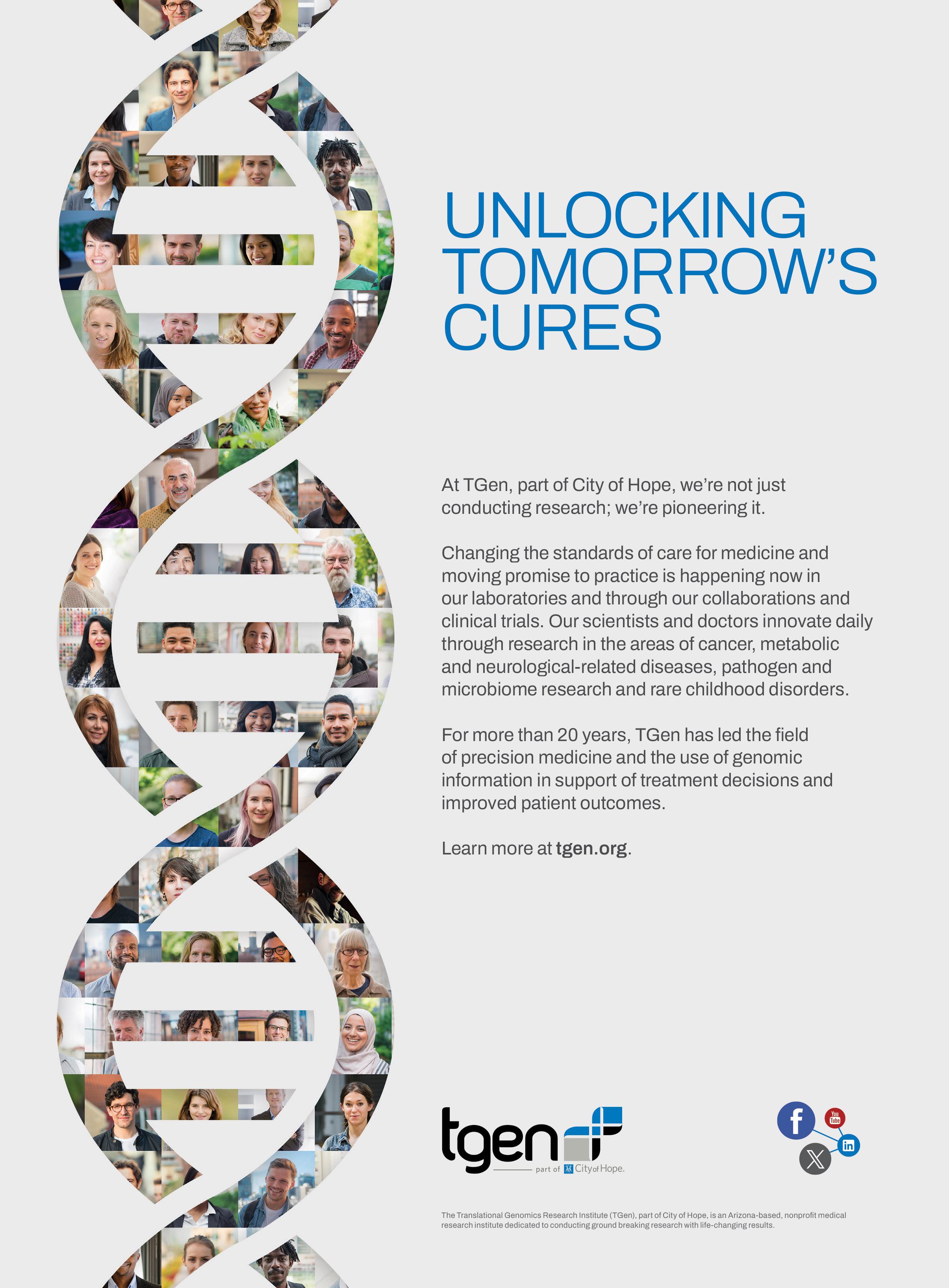
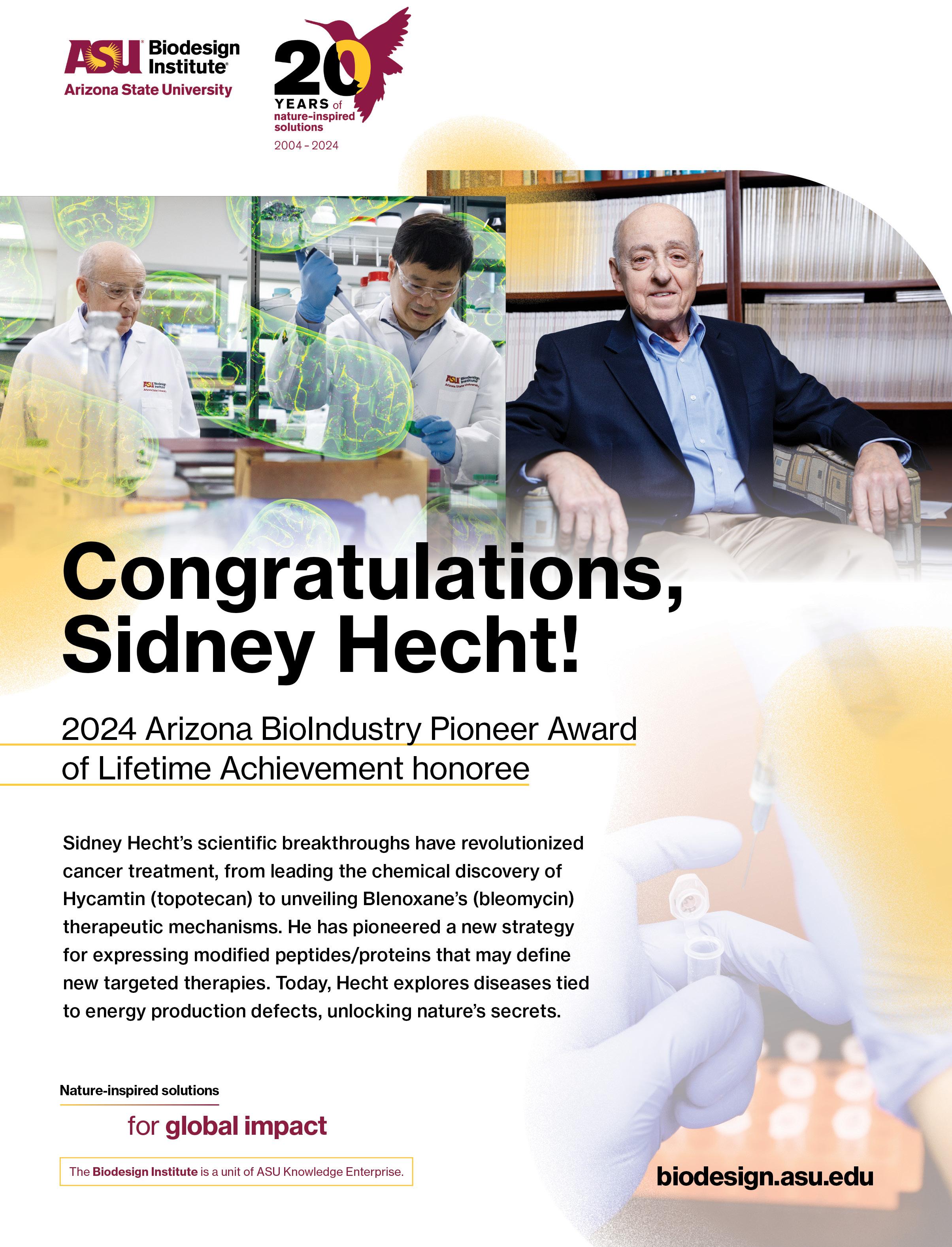
2024
Sidney Hecht is a key figure who has helped bridge the gap between chemistry and biology. His pioneering work has inspired new ways of studying and improving human wellbeing by exploring molecules and their essential roles in health and disease.
Among his many notable achievements is the development of Hycamtin, a drug used to treat cancers such as small cell lung cancer, cervical cancer, and metastatic ovarian cancer. An earlier approach, using a natural antibiotic, showed promise in lab studies but failed in clinical trials. After exploring the chemical and biological properties of the earlier drug, Hecht and his research team developed a more effective version that has since become a key option for treatment, used in cases where other therapies have been ineffective.
Hecht and his team also conducted important research on bleomycin, a drug used to treat squamous cell carcinoma, Hodgkin’s lymphoma and testicular cancer. Their work improves the clinical ability to target tumors, making bleomycin one of the most well-understood and valuable anticancer drugs in use today.
As director of the Biodesign Center for Bioenergetics at Arizona State University, Hecht currently focuses on disorders that affect mitochondria. Contained in nearly every human cell, mitochondria provide most of the energy our bodies use and
play a key role in metabolism, growth and muscle function. Mitochondrial diseases are usually degenerative and affect children and young adults.
Early in his career, Hecht pioneered a technique that allowed scientists to create proteins with unique structures and properties, opening the door to new research and potential treatments for rare disorders. Today, his team continues to explore how biological mechanisms can be harnessed to develop innovative therapies.
Early in his career, Hecht developed a technique that allowed scientists to create proteins with unique structures and properties, opening the door to new research and potential treatments for rare disorders. Today, his center continues to study biological mechanisms that can lead to new research strategies and potential new treatments. For example, he and his team are studying special RNAs that can alter proteins, which may help correct defects linked to rare disorders.
Hecht is dedicated to translating scientific discoveries into practical applications. He is named an inventor
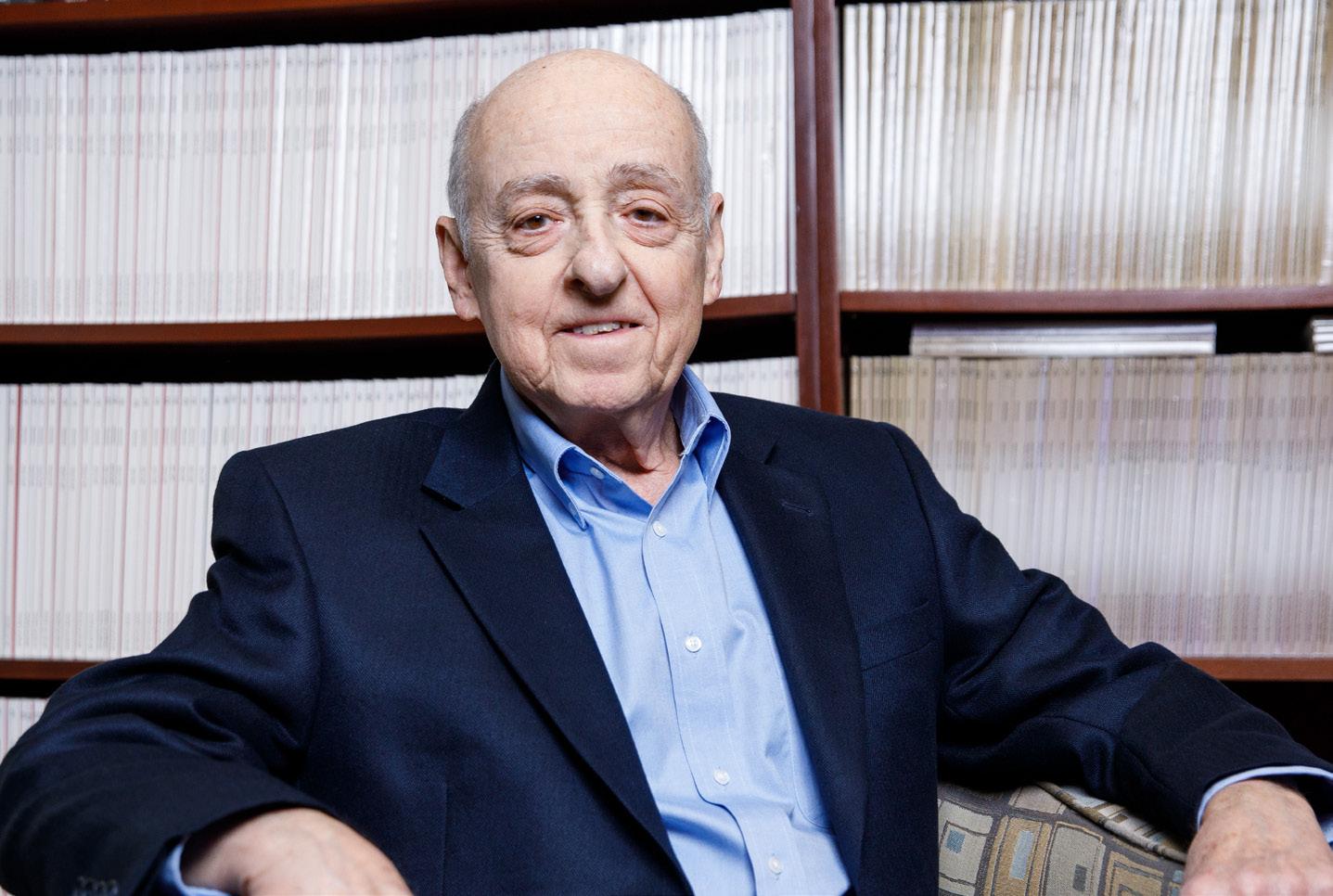
on 45 U.S. patents and co-founded a company, Edison Pharmaceuticals, to advance treatments for inherited mitochondrial disorders. A compound identified by the company has conducted advanced clinical trials as a treatment for Friedreich’s ataxia, a rare, inherited disorder that causes progressive damage to the nervous system, often beginning in childhood. A second set of compounds developed at ASU has garnered interest from another pharmaceutical company for treatment of neurodegenerative diseases.
Hecht joined ASU from the University of Virginia, where he was a professor of chemistry and biology. From 1981 to 1987, he also held leadership positions in research and development for Smith Kline and French Laboratories. Prior to his 28 years at the University of Virginia, he was a faculty member at MIT.
Throughout his career, he has published more than 480 papers, delivered more than 400 invited lectures, and taught and mentored countless undergraduate and graduate students.
LIFETIME OF LEADERSHIP:
Arizona’s life science community is honoring Professor Sidney Hecht, director of the Biodesign Center for Bioenergetics at Arizona State University with the AZBio Pioneer Award for Lifetime Achievement at the 20th annual AZBio Awards on September 18, 2024, at the Phoenix Convention Center. (Image Courtesy ASU Biodesign Institute)
According to the National Cancer Institute, 2,001,140 new cases of cancer are estimated to be diagnosed in the United States in 2024, which is about 5,480 new cases per day. An estimated 611,720 people are also expected to die from cancer in 2024.
The American Association for Cancer Research projects that annual cancer care costs in the US will exceed $245 billion by 2030.
The Veterinary Cancer Society reports that cancer is the leading cause of death in 47% of dogs, especially dogs over age ten. Dogs get cancer at about the same rate as humans.
Globally, it is estimated that the total economic cost of cancer will reach over $25 trillion by 2030.
These numbers are scary, but they cannot compare to sitting in a doctor’s office and hearing “You have cancer.”
Today, we treat cancer and measure success in 5-year survival rates. Cancer treatment can be brutal and often financially toxic. Even then, we are not always successful in halting the progression of this dreadful disease. Imagine, if in our lifetime, we could say, “People used to get cancer.”
Calviri is a small, Phoenix, Arizona
based company with a big mission. Calviri’s team is on a mission to end cancer worldwide — with affordable products. The company is developing a diagnostic for the early detection of cancer in dogs and people, as well as off the shelf therapeutic and preventative cancer vaccines. Calviri is a spinout of Arizona State University and headquartered in the Phoenix Bioscience Core.
Calviri announced the successful conclusion of its Vaccine Against Canine Cancer Study (VACCS) on May 4, 2024. This five-year clinical trial investigated a novel preventative cancer vaccine in dogs. This multi-center, double-blind, placebo-controlled study, the largest of its kind in veterinary oncology, represents a significant milestone in the fight against canine cancer.
For many years, attempts at developing cancer vaccines have been unsuccessful. However, the realization of the importance of neoantigens for generating immune responses against tumors has led to recent reports of successful vaccines in humans. Neoantigens are irregular peptides from mutations in tumor DNA. Unfortunately, these mutations are unique to each patient,
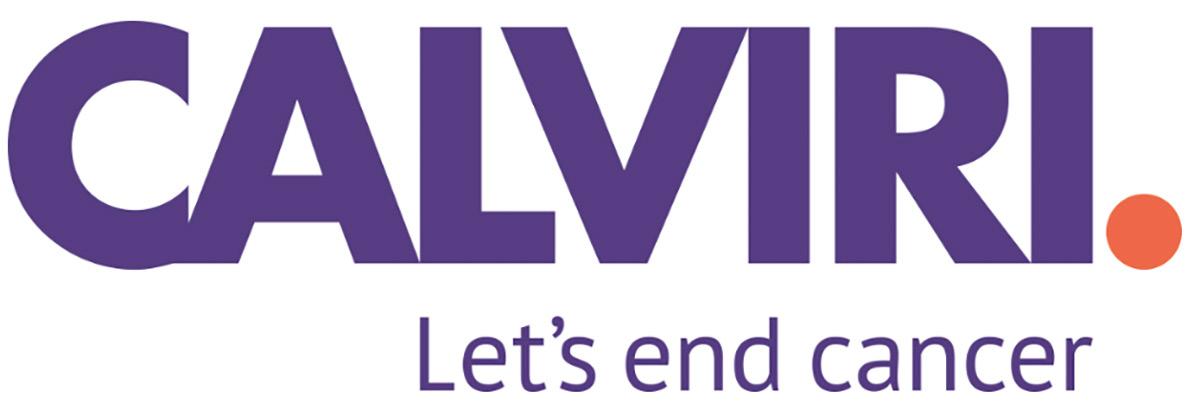
requiring personal vaccines.
Calviri’s VACCS trial marks a paradigm shift by leveraging what we now know are shared neoantigens. Stephen Albert Johnston, CEO of Calviri and former Professor at Arizona State University, discovered these unique protein fragments that arise from errors during tumor RNA processing, and that they are present across multiple cancer types. The VACCS vaccine consisted of 31 of these shared neoantigens, allowing for a broadspectrum approach to cancer prevention. This strategy has the potential to revolutionize canine cancer prevention by offering a single vaccine to protect against a wide range of cancers and may provide critical proof-of-concept to initiate similar efforts for human cancer.
The VACCS trial was made possible thanks to grant funding from Open Philanthropy and stands as a significant advancement in the field of canine cancer prevention. This trial has the potential to pave the way for a future where canine cancer is not a constant threat, but a preventable disease.
“The VACCs team has done an amazing job” says Heather Youngs, senior program officer at Open Philanthropy. “We are so pleased with the progress on this trial and the potential of this technology to save many animal (and potentially human) lives in the future.”
For its team’s commitment to ending cancer by developing a diagnostic for the early detection of cancer in dogs and people, as well as off the shelf therapeutic and preventative cancer vaccines, Calviri is being honored as the 2024 Arizona Bioscience Company of the Year.
Learn more about this exciting Arizonabased company at calviri.com.
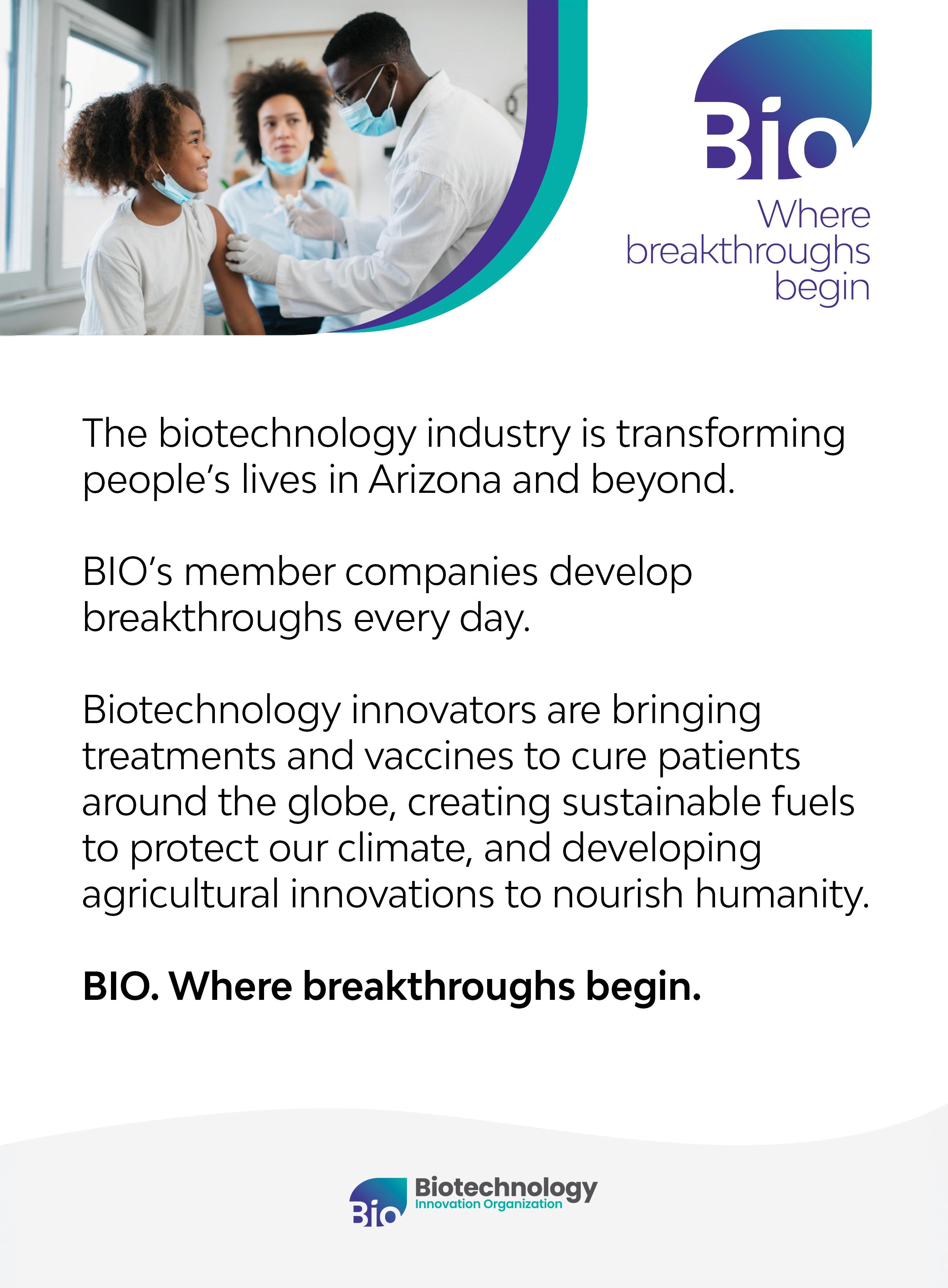
At the Castle Biosciences lab in Downtown Phoenix, team members use complex science to give patients and their healthcare teams information that helps patients receive the best care possible. Castle’s founding team believed that the traditional methods to determine cancer patients’ prognoses could be improved by harnessing the biology of their tumors. Today, the company is improving health through innovative tests that guide patient care.
In 2008, Kristen Oelschlager and co-founders Derek Maetzold and Toby Juvenal launched an entrepreneurial endeavor, Castle Biosciences, to develop and deliver innovative testing solutions to guide treatment decisions for patients impacted by cancers. With a diverse background spanning more than 15 years in clinical nursing, operations services and research, Oelschlager brings a unique perspective that has been instrumental in the Company’s ongoing growth and success.
“Kristen’s tenacity, thoughtful leadership and passion for people have had an immeasurable influence on Castle’s growth trajectory, our strong workplace culture and the legacy of improved patient care that we are working to build as a company,” says Maetzold, president and chief executive officer of Castle. “It has been an honor to work alongside her for the better part of two decades, and I can think of no person more deserving of this honor.”
Castle Biosciences began operations in 2008 and an early success was the licensing of DecisionDx®-UM, which the
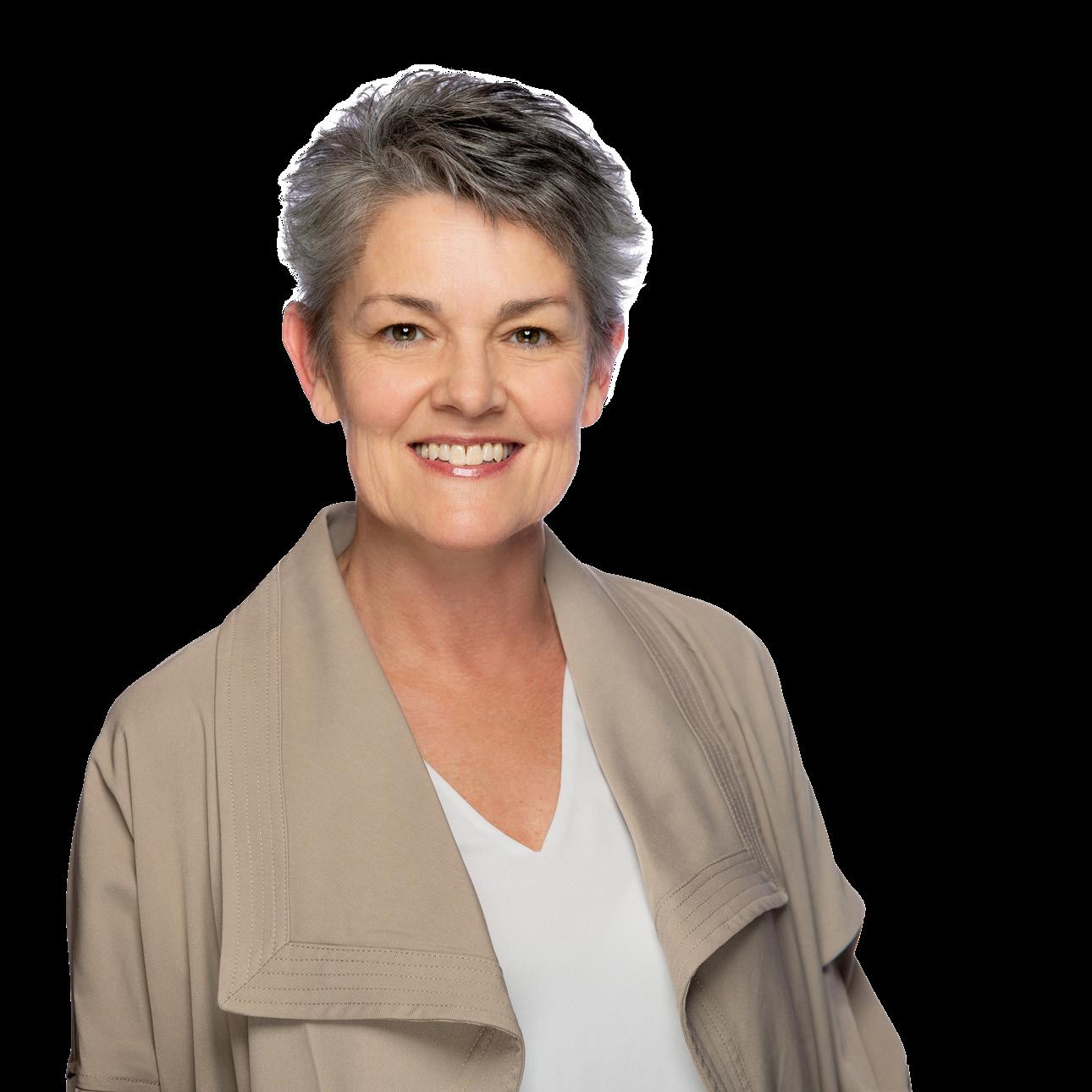
company still offers. The test identifies which patients with uveal melanoma, a rare type of cancer that occurs in the tissues of the eyes, are at low or high risk for disease progression. This information helps patients and their care teams determine a risk-appropriate treatment plan to manage their disease.
Today, Castle’s portfolio consists of additional tests for skin cancers, Barrett’s esophagus and mental health conditions. Additionally, the company has active research and development programs for tests in other diseases with high clinical need, including its test in development to help guide systemic therapy selection for patients with moderate-to-severe atopic dermatitis, psoriasis and related conditions.
Leading the operations of a rapidly growing company while maintaining focus on its mission and workplace culture is not an easy task. Oelschlager and her co-founders have successfully navigated product line expansions, research programs that have resulted in new, best-in-class diagnostic tests,
GROUNDBREAKER:
Castle Biosciences’ Chief Operating Officer Kristen Oelschlager was selected among the Top 25 Women Leaders in Biotechnology by The Healthcare Technology Report. (Provided photo)
an IPO in 2019, three acquisitions, expansion of the company’s facilities in Texas and Pennsylvania, and more than quadrupling the size of the company’s original laboratory in Phoenix.
The validity and utility of Castle’s innovative tests has been demonstrated in more than 140 peer-reviewed publications, and more than 200,000 test reports have been delivered to clinicians since 2008 to guide improved disease management decisions for patients.
“The entirety of Kristen’s professional career has been dedicated to positively impacting the care of patients, first at the bedside as a nurse and now more broadly through her work at Castle Biosciences,” says Joan Koerber-Walker, president and chief executive officer of AZBio. “Kristen’s contributions to the advancement of patient care are helping to re-shape disease management paradigms in Arizona and beyond, and we are pleased to honor her as the 2024 Arizona Bioscience Leader of the Year.”
DecisionDx-UM is a trademark of Castle Biosciences, Inc.
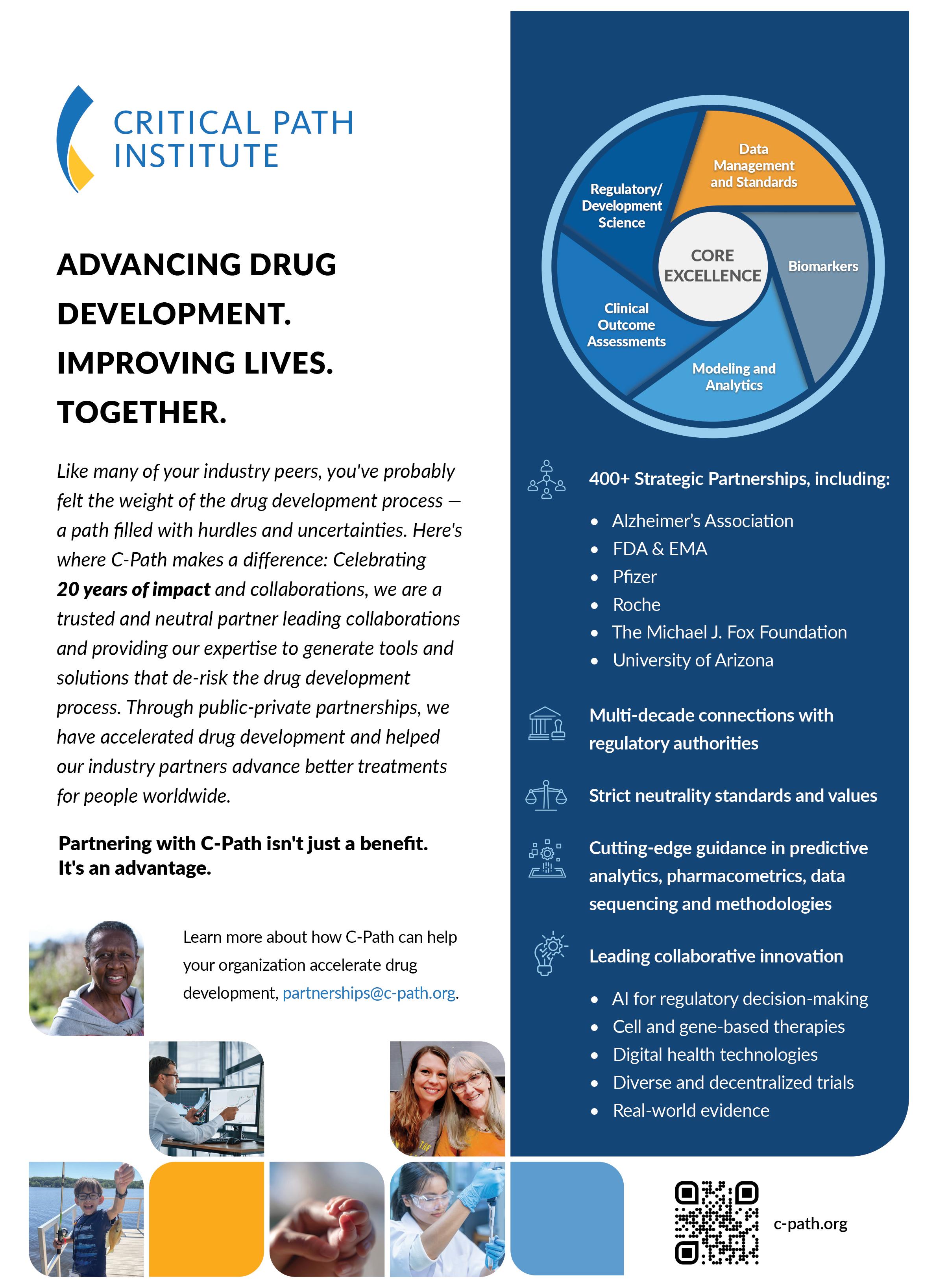
Glioblastoma is one of the deadliest, most complex and treatmentresistant cancers. It is currently incurable. Survival rates haven’t risen in decades and a new FDA-approved therapy hasn’t been introduced in as long. Federal funding for brain tumor research lags well behind other cancer research and this margin continues to widen.
Patients are left with few options and dire odds. But there are always exceptions, says Dr. Nader Sanai, the 2024 Arizona Bioscience Researcher of the Year, and he’s committed to making each patient an exception.
To see this mission to completion and find a cure for this devastating disease, Dr. Sanai founded the Ivy Brain Tumor Center at Barrow Neurological Institute. With large-scale funding from the Ben & Catherine Ivy Foundation and the Barrow Neurological Foundation, the Ivy Center was established in 2018. In assembling the world’s largest Phase 0 clinical trials program, the Ivy Center offers state-of-theart clinical trials never attempted in the field of neuro-oncology. As a neurosurgeon and principal investigator, Dr. Sanai oversees these impactful early-phase studies in the operating room and then moves to the lab to determine whether the experimental therapy is having an effect in his patient’s tumor. Promising therapies are accelerated in their development, while

unpromising ones are shut down rapidly.
“Our clinical trials preserve the one commodity all brain cancer patients have in short supply — time,” Dr. Sanai says.
The success of the Phase 0 program has prompted acceleration of new drugs to the
“Our clinical trials preserve the one commodity all brain cancer patients have in short supply — time.”
Dr. Sanai
worldwide patient population. In 2024, the Ivy Center partnered with GSK to sponsor the Gliofocus Study, a global, randomized, controlled Phase 3 clinical trial that will enroll 450 patients in over 120 clinical sites across 11 countries. The results of the study will form the basis for potential worldwide approval of a new standardof-care therapy in newly diagnosed glioblastoma patients.
“The pivotal Phase 3 Gliofocus Study represents a crucial step forward to transform outcomes for glioblastoma patients worldwide,” says Dr. Sanai. “At the Ivy Center, we are committed to pioneering new standards of care that redefine possibilities in brain cancer treatment.”
Having completed over 4,500 brain tumor operations since 2011, Dr. Sanai is one of the country’s busiest brain tumor neurosurgeons. He has authored over 300 peer-reviewed research manuscripts and delivered more than 200 national and international lectures. His groundbreaking work is supported by leading granting agencies, including the NIH and the NCI.
Dr. Sanai leads a dynamic, multidisciplinary team of more than 50 physicians, scientists, nurses and staff from around the world, all driven by an ambition and dedication to changing the face of brain cancer care. As a mentor, he guides aspiring investigators and clinicians, as well as oversees one of the nation’s only neurosurgical oncology fellowships.
Through his relentless pursuit of a cure for brain cancer, Dr. Sanai inspires new generations of clinicians and researchers, united in a mission to change the realities for patients facing the fight of their lives.
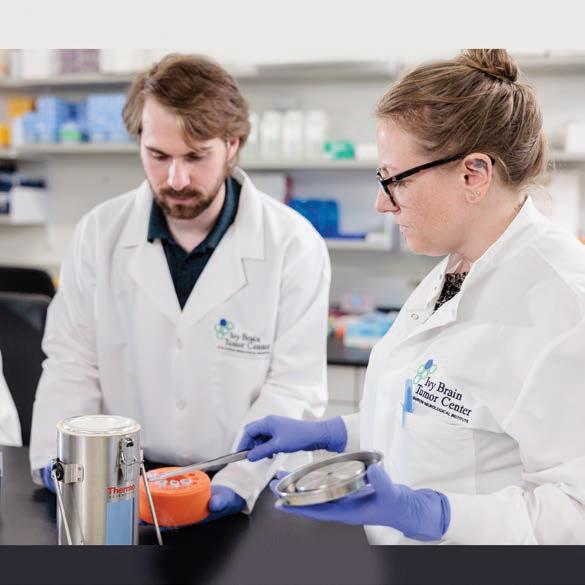


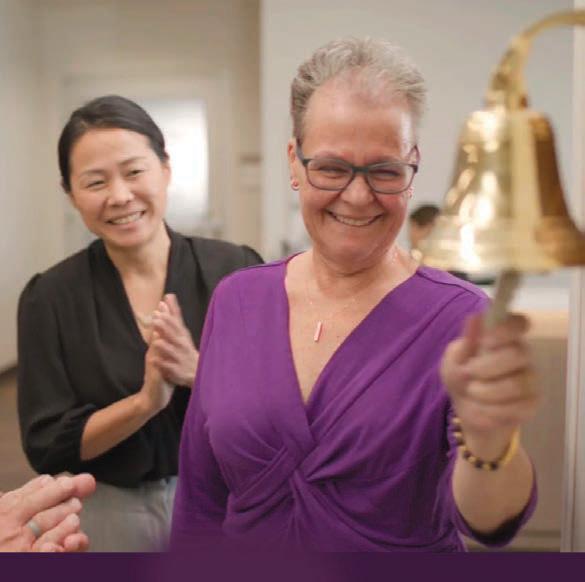
The Ivy Brain Tumor Center at Barrow Neurological Institute is dedicated to finding a cure for glioblastoma and other aggressive brain tumors through a broad portfolio of Phase 0 clinical trials, combining industry-partnered drug development with the nation’s largest operative brain tumor volume.
The Ivy Center’s central strategy is to introduce patients to first-in-class therapies, develop combined-agent strategies that overcome tumor resistance, and validate the effectiveness of promising new regimens through randomized controlled clinical trials. Together, these efforts position the Ivy Center at the forefront of redefining brain tumor treatment and offering new hope to patients.
CONGRATULATIONS TO DR. NADER SANAI, 2024 ARIZONA BIOSCIENCE RESEARCHER OF THE YEAR

Michael A. Cusanovich Arizona Bioscience Educator of the Year: Kelle Hyland
One of the most impactful student programs hosted by the University of Arizona’s BIO5 Institute is the Keeping Youth Engaged in Science (KEYS) research internship. KEYS recruits and attracts the best and the brightest from the state’s many diverse communities to the university for the experience of a lifetime. Through KEYS, interns learn and grow, while gaining the experience, skills, and conviction that will allow them to thrive in a rapidly changing world. KEYS provides many incentives for these promising students to stay in Arizona for college, and beyond.
Kelle Hyland serves as Program Manager, Outreach & Engagement for the BIO5 KEYS Research Internship Program and is being honored as the 2024 Michael A. Cusanovich Bioscience Educator of the Year by AZBio.
Since joining the KEYS program in 2016, Hyland has shown exceptional leadership, expanding the program’s reach and impact, especially during challenging times like the COVID-19 pandemic. Under her guidance, KEYS has grown in diversity and inclusivity, providing invaluable research opportunities to underserved students.
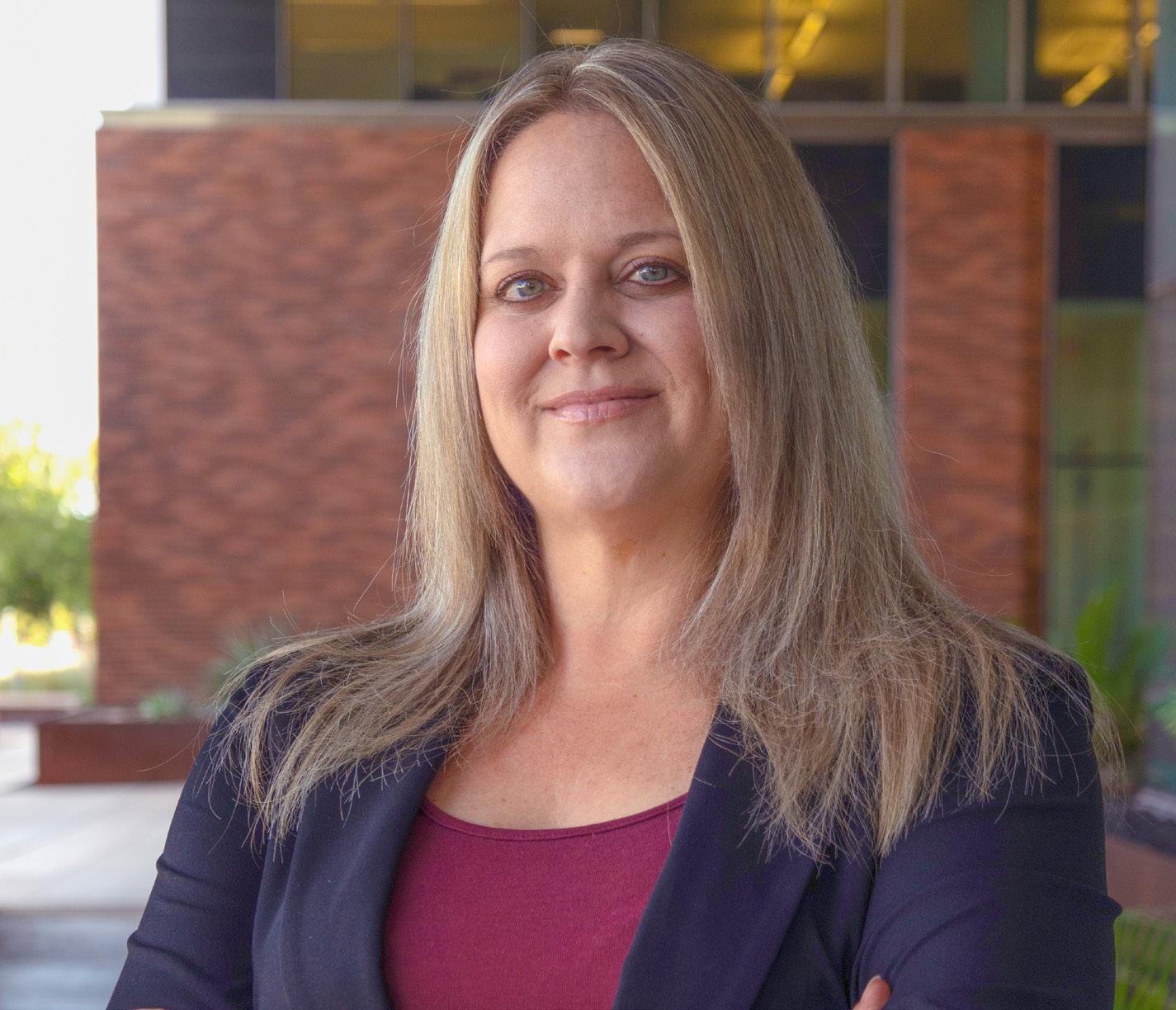
Her innovative approach to education, including transitioning to a virtual format and securing vital funding, has ensured the program’s continuity and success.
KEYS interns not only gain experience in interdisciplinary bioscience, biomedical science, biostatistics, biomedical engineering, data science, or environmental health research, among other STEM areas, but also train in biotechnology skills, science literacy, ethics, and communications that they typically would not learn in the classroom.
To become our leaders of tomorrow, today’s students need determination, curiosity, and a mindset that embraces teamwork, creativity, problem solving, and emotional competence. These are all capabilities reinforced through the KEYS experience.
“Each year, AZBio honors an educator who, as a member of the faculty or administration of an educational institution, demonstrated the greatest leadership, creativity and/or actions to inspire students and encourage them in the biosciences,” shares AZBio president and CEO Joan Koeber-Walker. “On behalf of Arizona’s health innovation community, we congratulate Kelle Hyland for this wellearned recognition.”
“Kelle’s dedication, mentorship, and ability to inspire students to pursue STEM careers makes her truly deserving of this prestigious award,” shares Dr. Jennifer Barton, director of the BIO5 Institute at the University of Arizona.
The next cohort of KEYS student interns will start this valuable learning experience in June of 2025. Applications open in the fall of 2024. You can learn more at keys. arizona.edu.
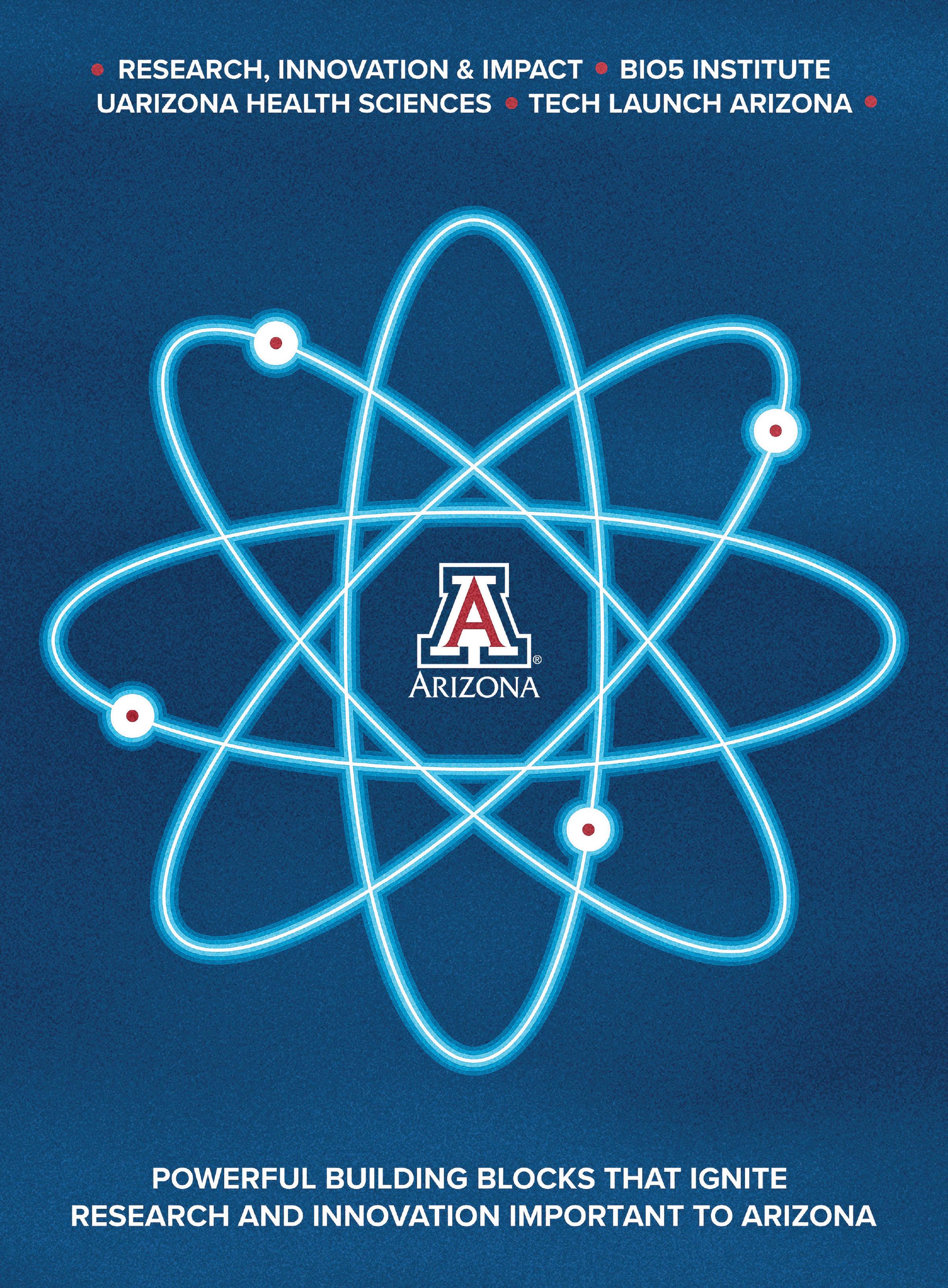
Every year, about 200,000 people in the U.S. are diagnosed with an abdominal aortic aneurysm (AAA), according to the Society for Vascular Surgery. A ruptured AAA is the 15th leading cause of death in the United States, and the 10th leading cause of death in men older than 55. In many cases, having an AAA is usually not a serious health threat, but a ruptured AAA can be life-threatening. When an AAA ruptures, it can cause massive internal bleeding, which is often fatal. Only about 1 in 5 people survive a ruptured AAA.
Nectero Medical is a clinical-stage biotechnology company pioneering novel therapies to treat aneurysmal disease based in Tempe, Arizona.
The company is developing the Nectero EAST® System. This investigational, single-use, endovascular system delivers pentagalloyl glucose (PGG) locally into the aneurysmal wall, where it binds to elastin and collagen to potentially strengthen the aortic vessel wall and possibly reduce further degradation. The procedure is typically performed under conscious sedation and takes less than an hour to complete, leaving no permanent implant behind.
“Each year a select group of Arizona based life science companies are recognized for the progress they are making to develop and deliver health innovations,” says Joan KoerberWalker, president & CEO of the Arizona Bioindustry Association. “Nectero Medical’s journey began here in 2017, and they have made significant progress. We are pleased to recognize the
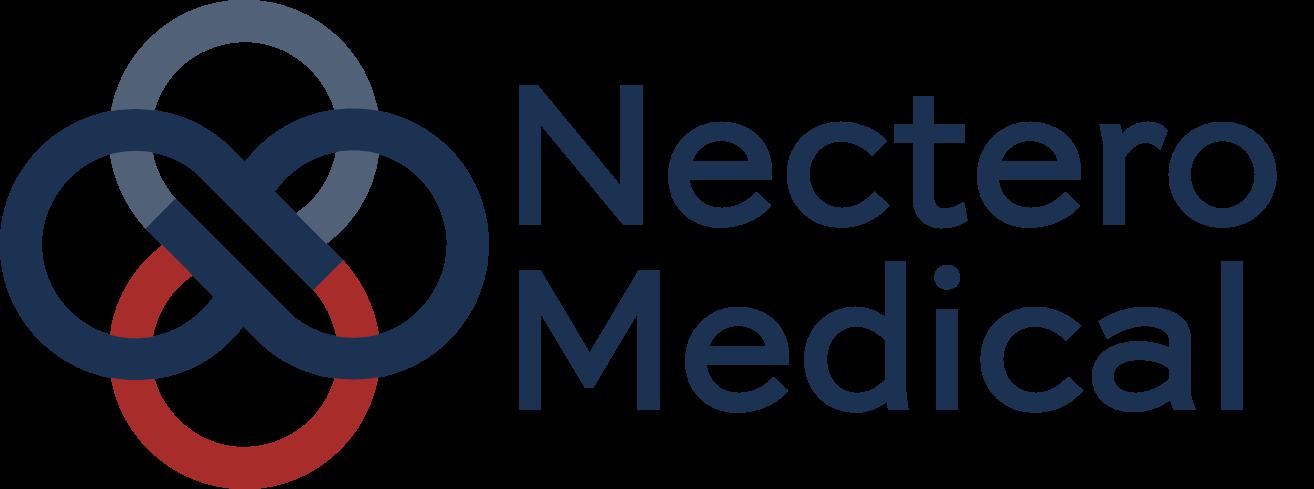
Nectero Medical team with a 2024 AZBio Fast Lane Award.”
In 2023, the Food and Drug Administration (FDA) granted Fast Track and Breakthrough Therapy designations to the Nectero EAST System for treatment of infrarenal AAAs with a maximum diameter 3.5 – 5.0cm. These designations reflect the FDA’s recognition of a therapy’s potential to treat a serious condition and address an unmet medical need; while affording intensive FDA guidance and support through the development process.
In January of 2024, Nectero Medical completed a $96 million Series D financing round. Financing was led by Norwest Venture Partners, with large investments from Boston Scientific Corporation, BioStar Capital, Cadence Healthcare Ventures, Aphelion Capital and other firms.
“We are honored and excited to be the lead investor in the Series D financing to fund the efforts necessary to bring the Nectero EAST System to market,” says Dr. Zack Scott, General Partner, Norwest Venture Partners. “The Nectero EAST System has the potential to have a profound impact on the hundreds of thousands of patients living with aneurysmal disease and would represent the most significant advancement in the treatment of AAA in over 25 years.”
In January 2024, Nectero Medical initiated a Phase II/III clinical trial (stAAAble) to investigate the safety and efficacy of the Nectero EAST System in patients with infrarenal AAAs, maximum diameter 3.5 – 5.0cm.
Dr. Zack Scott, of Norwest Venture Partners, and Dr. Alan Davis, of BioStar Capital, have joined the Nectero Medical Board of Directors.
“We are pleased to have raised the funds required to complete the necessary work to bring our potentially transformative technology to market,” says Jack Springer, President & CEO, Nectero Medical. “In addition, we are fortunate to add two highly knowledgeable and extremely insightful members to our already strong and accomplished Board of Directors.”
Learn more about this great Arizona life science company at necteromedical.com
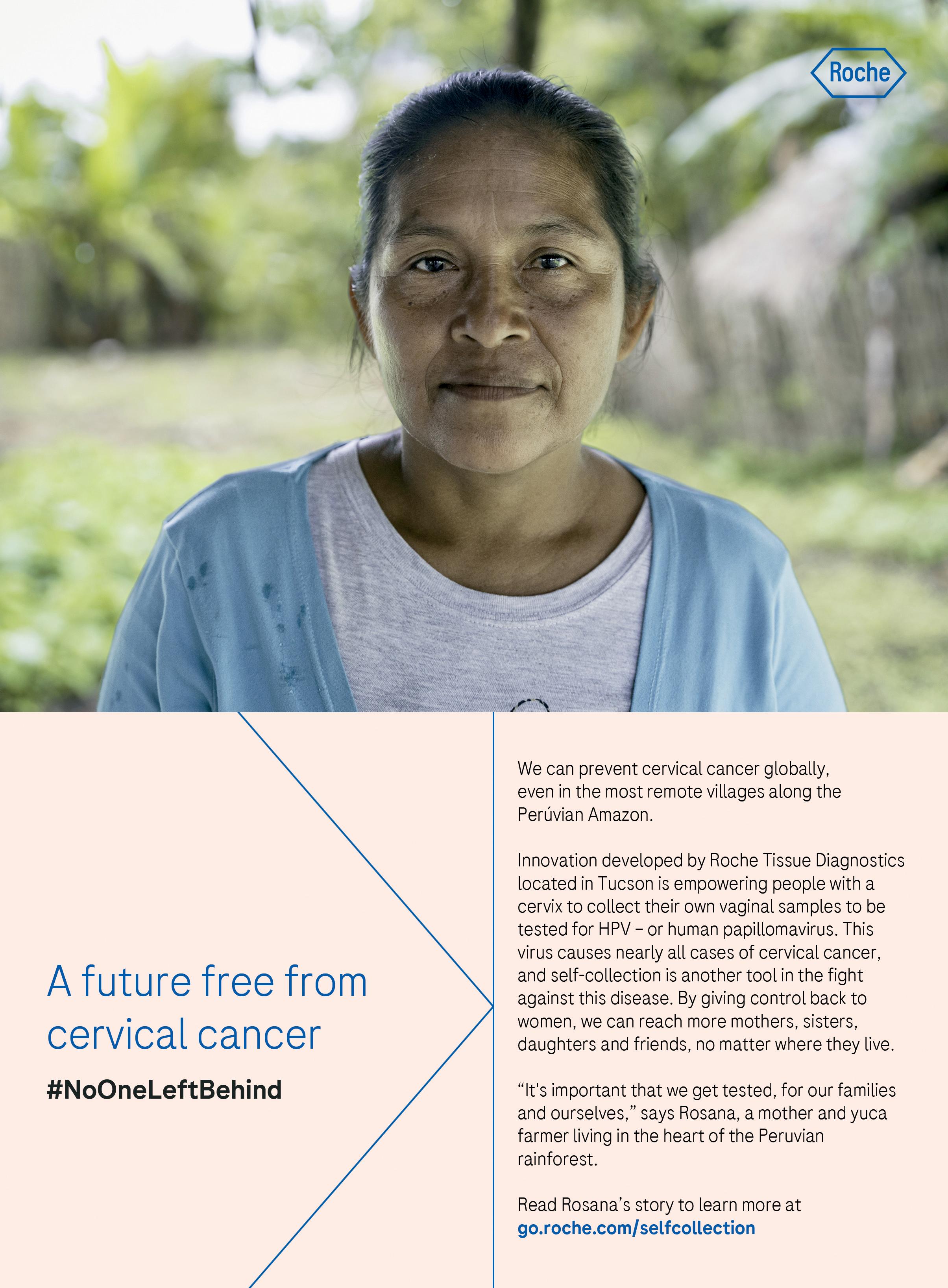
Sometimes, something that seems simple can present a significant healthcare challenge. The process of moving a patient from a hospital bed is one of these “simple” processes.
A lateral transfer is when a patient is moved from one surface to another, such as a bed to a hospital cart or a bed to a gurney. Patients are frequently moved from one surface to another during their stay, for many clinical reasons. Unfortunately, this highly manual task is known to cause injury to both patients and staff.
Lateral patient transfers results in nearly 20,000 injuries to healthcare workers nationally per year.
To address this challenge, The Patient Company created SimPull, the first automated lateral transfer device. This innovative medical device allows for safe and effective movement of patients from one flat surface to another by just one caregiver, using zero work force. Not only is this new process using SimPull safer and more efficient for the caregiver, but it also makes the process easier and safer for the patient.
The Patient Company is being honored with a 2024 AZBio Fast Lane Award on September 18, 2024, at the Phoenix Convention Center for having achieved outstanding milestones in the past 18 months.
Through the development and commercialization of new medical devices and products, The Patient Company aims to redefine what a medical device/product provider should be. The Patient Company is dedicated and focused on improving quality, clinical safety, and employee satisfaction, understanding that these goals are all centered around one clear task: providing clinical staff members with superior tools to better take care of their patients.
Over the last year, The Patient Company has completed two clinical studies with major partners and listed SimPull with the FDA, allowing for commercial activities. The company published

2 patents, and further developed SimPull for other patient movements such as supporting patients being moved from a lying to seated position.
The Patient Company began initial deliveries to commercial accounts in 2024. Over the next 12 months, their goal is to increase awareness of SimPull, complete their first full year of sales and increase headcount for expanding operations.
While SimPull is the first automated lateral transfer product, there are further functions in the works. Specifically, SimPull is already able to move patients from a supine (lying on their back) to seated position, as well as boost patients in bed. These two patient movements are also well known for causing injury to caregivers. In addition, SimPull is being developed to rotate patients; supporting turning and proning patient movements and to provide insights through data capture on all of the patient movements SimPull supports.
“The Patient Company is changing the medical landscape with the SimPull,” shares Andrew Heuerman, CEO of The Patient Company. “We are poised to not only disrupt the patient transfer market, but to create tangible positive impact for our incredible healthcare workers and the patients they care for.”
Learn more about this exciting Arizona-based company at thepatientcompany.com


2024 AZBio Fast Lane Honoree: PriZm Therapeutics
According to the National Institutes of Health (NIH), there are more than 7,000 rare diseases. Allan-Herndon-Dudley syndrome (AHDS), also known as MCT8 deficiency, is a rare genetic disorder that affects a child’s cognition, mobility, and overall health. In individuals with AHDS, thyroid hormone is unable to enter cells in the brain because of a defect in a thyroid hormone transporter called MCT8. Thyroid hormones are particularly important for proper brain development during pregnancy and early childhood.
This devastating and rare disease affects infants and young children. The effects continue into adulthood leaving patients to live with severe neurocognitive disability including the inability to walk, talk and care for themselves.
PriZm Therapeutics is a late-stage clinical biotech company developing therapies for ultra-rare pediatric orphan diseases based in Chandler, Arizona. The PriZm team is currently focused on developing a cure for MCT8 deficiency.
PriZm’s lead asset SRW101, is a small molecule, oral thyroid hormone analog that is in clinical trials to (1) Treat pregnant mothers who are known carriers of male MCT8 deficient fetus (2) Treat affected boys between the ages of <1 year to 17 years.
SRW101 is unique as it crosses the blood-brain barrier through alternate transporters and is MCT8 independent. Hence it produces a Thyroid Hormone response in the brain and inhibits the intracellular production of T3 in peripheral organs. SRW101 also crosses the pla-cental barrier and has received a pre-natal
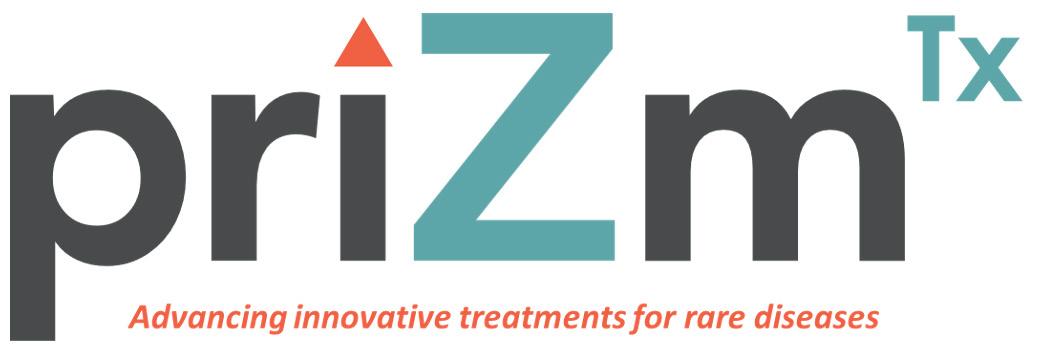
Investigational New Drug (IND) Authorization from the U.S. Food & Drug Administration to treat a male affected fetus by the mother taking the oral drug during pregnancy.
AHDS is an X-linked genetic disorder with a 50% chance that male babies will have the disorder if their mother is a carrier of the abnormal gene that codes for the MCT8 thyroid hormone transporter protein. While the disorder may develop spontaneously during fetal development, where the baby is the first person in the family to have AHDS, it is more common for family history to be an indicator that doctors look for when working with expectant mothers.
PriZm is advancing its lead program, SRW101, for the treatment of AHDS/MCT8 Deficiency. The Company has an ongoing clinical trial for SRW101 via a pre-natal track in the near-term and a longer-term goal to continue to advance towards a Phase 3 trial for a post-natal track for SRW101, thus providing a comprehensive therapeutic solution to meet this unmet medical need.
PriZm Therapeutics is being honored with a 2024 AZBio Fast Lane Award on September 18, 2024, at the Phoenix Convention Center for having achieved outstanding milestones in the past 18 months and, more importantly, for the impact the company is already making as SRW101 moves through the clinical trials process.
“Prizm Therapeutics is focused on advancing innovation that improves human health and well-being. We have assembled a team of world class experts in the study and treatment of AHDS, drug development leaders, and business executives to advance SRW101 for AHDS,” states Dr. Kiran Avancha, CEO & CoFounder of PriZm Therapeutics. “Our team is driven by science, knowledge, and compassion to provide a first-in-class solution for patients and their families who are impacted by AHDS.”
Learn more about this exciting Arizona-based company at prizmtx.com

Jack and Barbara Kavanagh, founders of the Arizona Myeloma Network and Cancer Caregivers of America, will be honored with the AZBio Service Award at the 20th annual AZBio Awards on September 18, 2024, at the Phoenix Convention Center.
In June of 2024, Jack Kavanagh’s 33-year journey with Multiple Myeloma ended. His experience living with cancer, and his wife Barbara Kavanagh’s journey by his side as a cancer caregiver formed the basis of their mission to provide education and support to others who are on their own cancer journeys.
Jack and Barbara Kavanagh had each other and the support of some of the leading cancer researchers and care teams in the country, but they also saw so many others around them who were struggling.
A person is considered a cancer survivor from the time of diagnosis through the balance of life, according to the National Cancer Institute. NIH data reports that in 2022 there were over 18.1 million cancer survivors in the United States. This represents approximately 5.4% of the population. The number of cancer survivors is projected to grow to 26.0 million by 2040.
With 53 million adults serving as unpaid caregivers in the United States, the importance of examining the challenges caregivers face is essential. Caregivers of people diagnosed with cancer, estimated to be more than 6 million, have additional economic and well-being risks relative to caregivers of other adult patients.
Based on their experience and with the encouragement of leading cancer experts, Jack and Barbara embarked on a mission beginning 25 years ago.
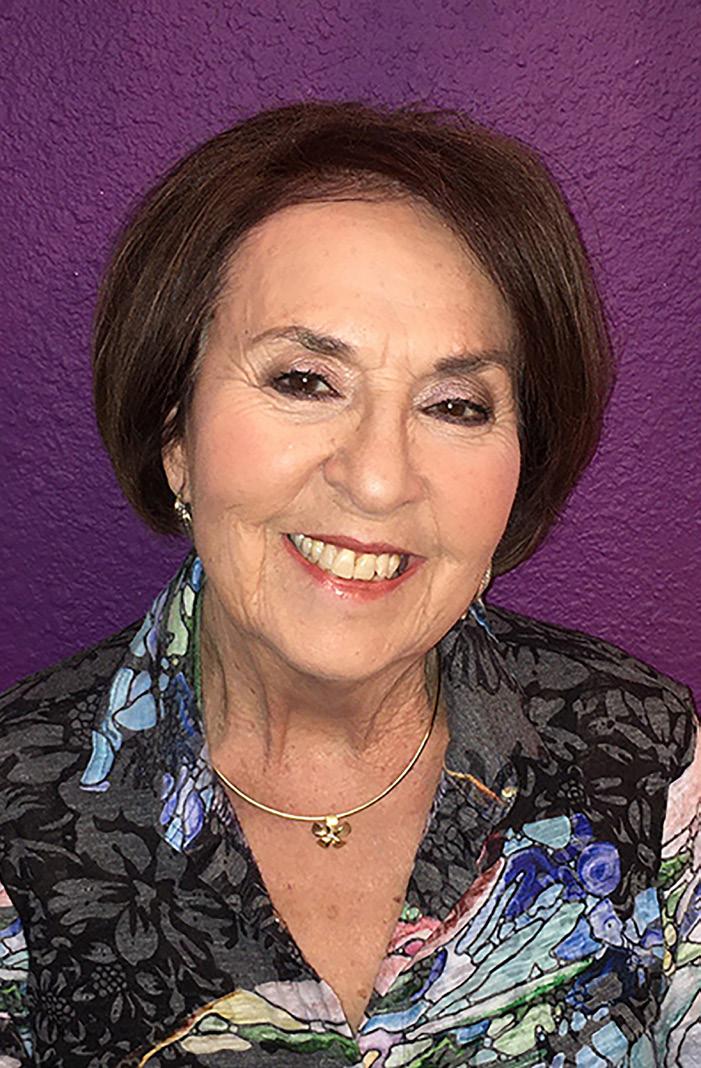
SERVANT LEADER: Barbara B. Kavanagh is the founder and CEO of Arizona Myeloma Network (AzMN). (Provided photo)
They co-founded the Arizona Myeloma Network to provide patients and caregivers with education and support that can help to navigate a cancer diagnosis and its effects on the patient, caregiver, family and community.
In 2023, the Online Cancer Caregivers Education Program launched. CCEP© has received praise from City of Hope, Pfizer, Users, and others who recognize the impact the education, access to resources, and support provided in the program can have on patients and caregivers.
Developed with leading professionals in the oncology space along with patients and cancer caregivers, the CCEP has three primary functions all housed on a platform
designed for the caregivers AND patients including:
1. Interactive and engaging education modules that focus on skill development.
2. Access to a repository of resources housed in the Cancer Care Resource Library.
3. Access to a national Cancer Care Community where patients and caregivers find support.
Jack and Barbara developed the program to help millions of patients and families, including and especially those in the underserved populations such as Native Americans and others in rural areas of the country. They worked together on it every day up until the day that an aneurism brought Jack’s cancer journey to a close.
Shortly before his death, Jack Kavanagh wrote: “Our goal is to provide knowledge and skills for the caregiver and patient so that the gaps between research and development, the administration of treatment therapies by healthcare professionals, and the impact to patients once they are home is closed. Only then we will have a complete understanding of how best to treat, heal, and cure cancer.”
Today, Barbara Kavanagh, through Cancer Caregivers of America, is continuing the mission and Jack’s legacy.
“The education and support provided by the healthcare professionals delivering treatment therapies to cancer patients are exceptional. Unfortunately, education and support for the cancer caregivers who are providing critical care at home are virtually nonexistent. While we as a nation have come a long way over the past few years regarding providing information and access to resources for our caregivers, we still have a long way to go,” she says. “And we know we can help.”
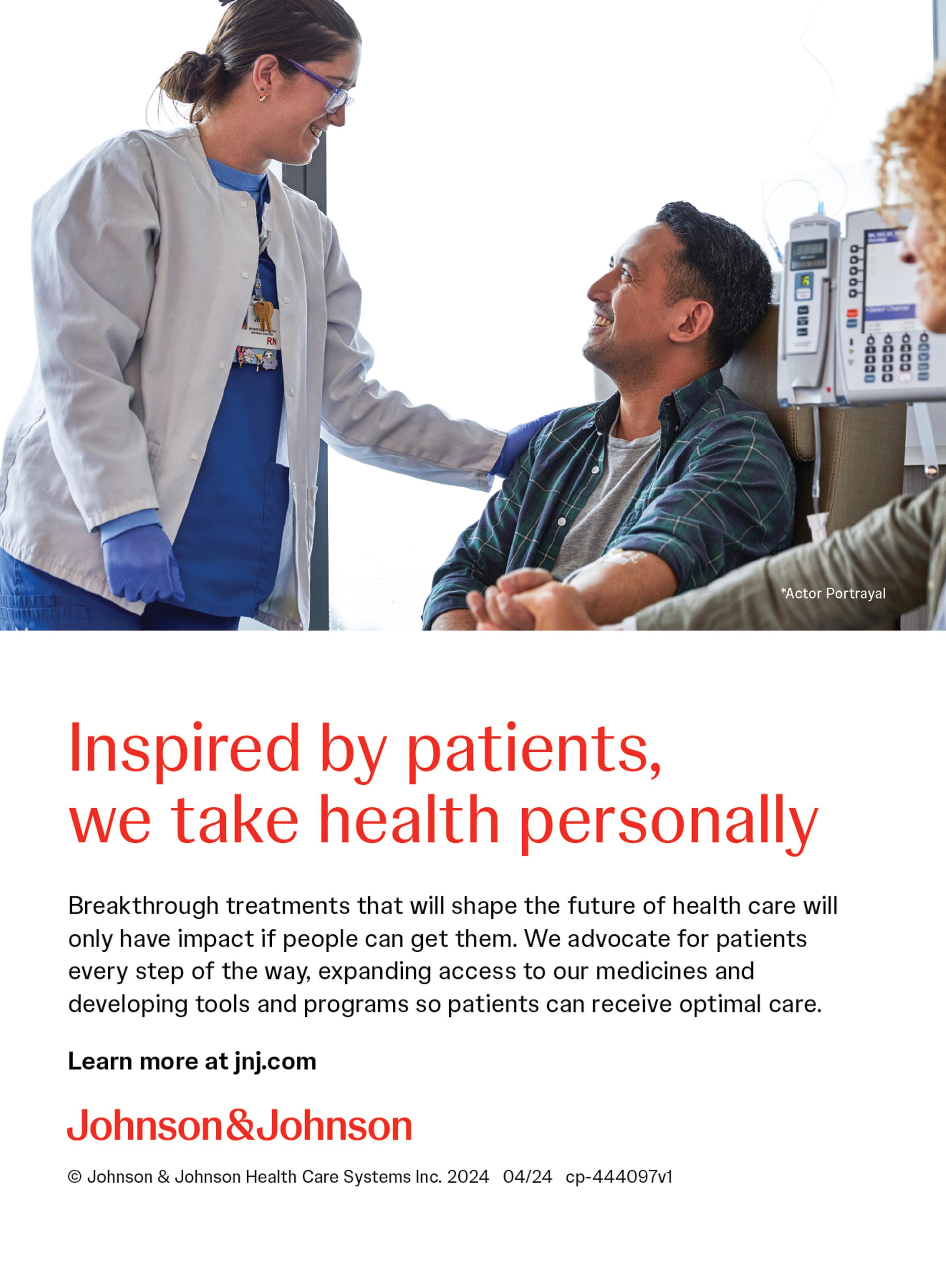

By JOAN KOERBER-WALKER
As the Arizona Bioindustry Association (AZBio) celebrated 20 years of impact and growth in Arizona’s life science sector in 2023, it also called on the community to embrace a new and bigger goal — to double its economic impact metric by 2033.
Economic impact is one of the most encompassing metrics. It includes the direct impacts of employment and wages within the industry, the indirect impacts generated by supply chain partners and supporting industries, and the induced impacts created when the direct and indirect workforce has more personal income to spend.
Arizona’s Life Science Industry, not
including our hospitals, generated $38.54 billion of economic impact in 2021. This includes $3.63 billion in direct employment impacts and $34.9 billion in indirect and induced impacts. Nationally, Arizona ranked 22nd for economic impact in 2021 as compared across the U.S. States plus Puerto Rico and Washington, D.C. Updated data, reflecting the results for 2023, will be released by AZBio before the end of 2024. Industry focused construction and real estate development significantly contributes to driving the growth of indirect impacts. With over 6 million square feet of life science facilities in place or planned on the 30-acre Phoenix
Bioscience Core (PBC), an ever-expanding health innovation ecosystem on the 100-acre Phoenix Medical Quarter in Midtown, and Mayo Clinic’s expansive 120-acre Discovery Oasis development in North Phoenix, Phoenix is at the heart of a statewide life science ecosystem that stretches from Flagstaff to Tucson.
Achieving the goal of doubling by 2033 is doable if Arizona continues to act strategically and invests in the key resources life science companies need to grow.
Growing Arizona companies, including companies that started here or come here to leverage Arizona’s advantages, grow best when they are well capitalized.
Arizona offers significant cost advantages as compared to other major life science markets. This allows companies to better deploy precious capital resources.
Life science companies require innovative ideas, talented people to move the ideas forward, and capital to take the ideas and convert them into products and services that create both economic and societal impact.
Arizona is home to several angel investment groups and investment firms that focus on the life sciences but does not have enough to fuel the anticipated growth. Increasing access to capital is a strategic imperative as we work to double our impact by 2033.
In 2022, the State of Arizona created the foundation for the Arizona Health Innovation Trust Fund (AHIT). Designed to accept monies from private interests and public funds, AHIT is designed to function as a permanent endowment with the Arizona State Treasurer serving as trustee and the Arizona State Treasurer’s Office as the investment manager for AHIT. The goal is to build the endowment to $200 million through donations and appropriations and then have it grow organically from that point forward. Each year, AHIT will distribute 4% of AHIT’s 5-year average balance to an Arizona-based 501c3 nonprofit organization that will execute three
key components of Arizona’s health innovation growth strategy.
The Opportunity Through Entrepreneurship Foundation (OTEF) was selected by the State of Arizona to do this work. AZAdvances, an initiative created within OTEF and supported by AZBio, is structured to educate, and support life science entrepreneurs, make mission related investments, and develop the workforce Arizona will need as the life science ecosystem grows. Arizona ranked 25th nationally for venture capital investment in 2021. Increasing the level of life science investment requires increasing the number of Investable Companies in Arizona.
Investors evaluate companies based on their potential return on investment. For early-stage companies, the science behind the product or service and the potential market for what they are creating is important. Having a qualified team that can execute the business plan is essential. Investors need to believe that the team can get the job done and that their investment will pay off. Investable companies demonstrate this by achieving key milestones in the business plan and progressing in the commercialization process. AZAdvances programs are designed to help more early-stage Arizona life science companies become investable so they can grow faster.
Growing companies create more jobs. This means that Arizona needs to develop its workforce. The AZAdvances Talent program is designed to help develop our workforce and provide Arizona students the opportunity to make connections and gain real-world experience inside the growing entrepreneurial companies AZBio and AZAdvances support.
Doubling the economic impact of Arizona’s Life Science Sector matters.
Arizona’s research centers are focused on discoveries. Societal impact is the effect of research on the world outside of academia.
Entrepreneurs build on these discoveries to develop and deliver the products and services that can make a positive impact on people’s lives.
This societal impact can be measured:
• Better health outcomes for patients
• Healthier communities that deliver increased overall workforce productivity
• Lower healthcare costs through improvements in healthcare processes
• More rewarding, high quality jobs
• Increased direct and indirect economic impacts through increased employment.
• Growing our tax base to support education, public safety, community programs, infrastructure, and capacity building.
Societal impacts make life better for people across Arizona, not just for a single company or industry. They matter. That is why we are committed to achieving our goal. We invite you to join us in making it happen.
Arizona’s life science cluster is on a mission to be a Top 10 life science state and to double its economic impact by 2033
Editor’s note: 2033
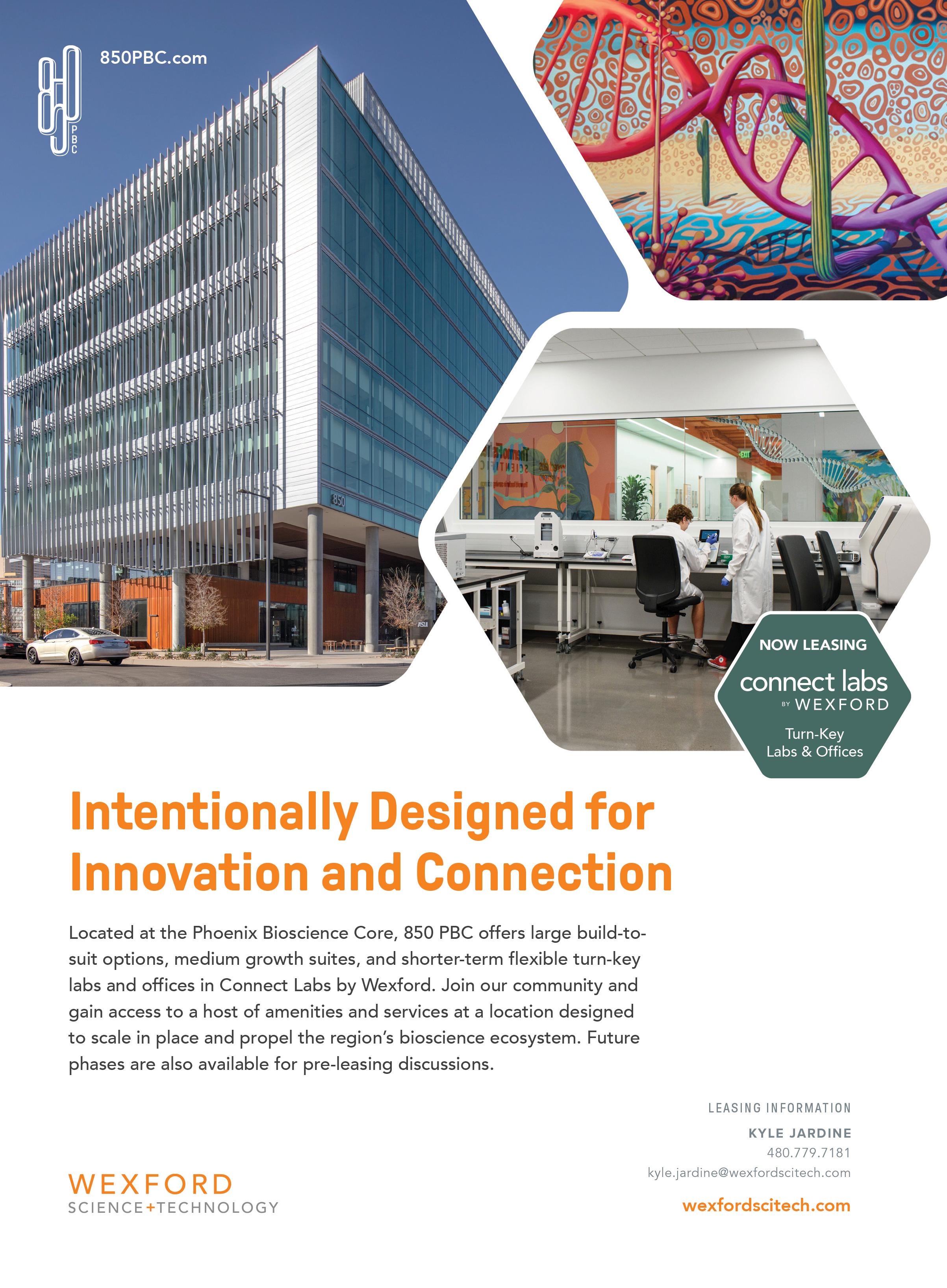
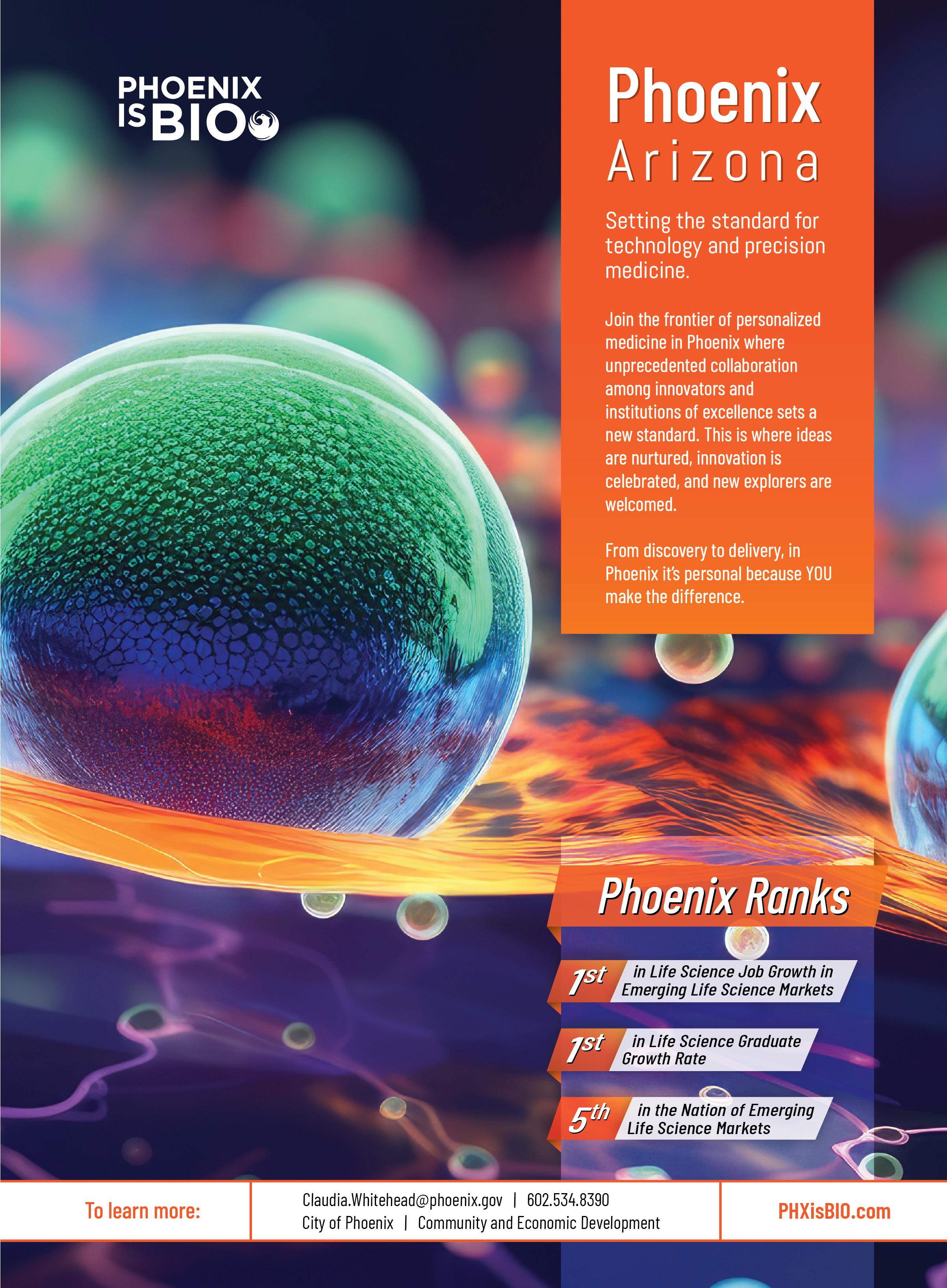
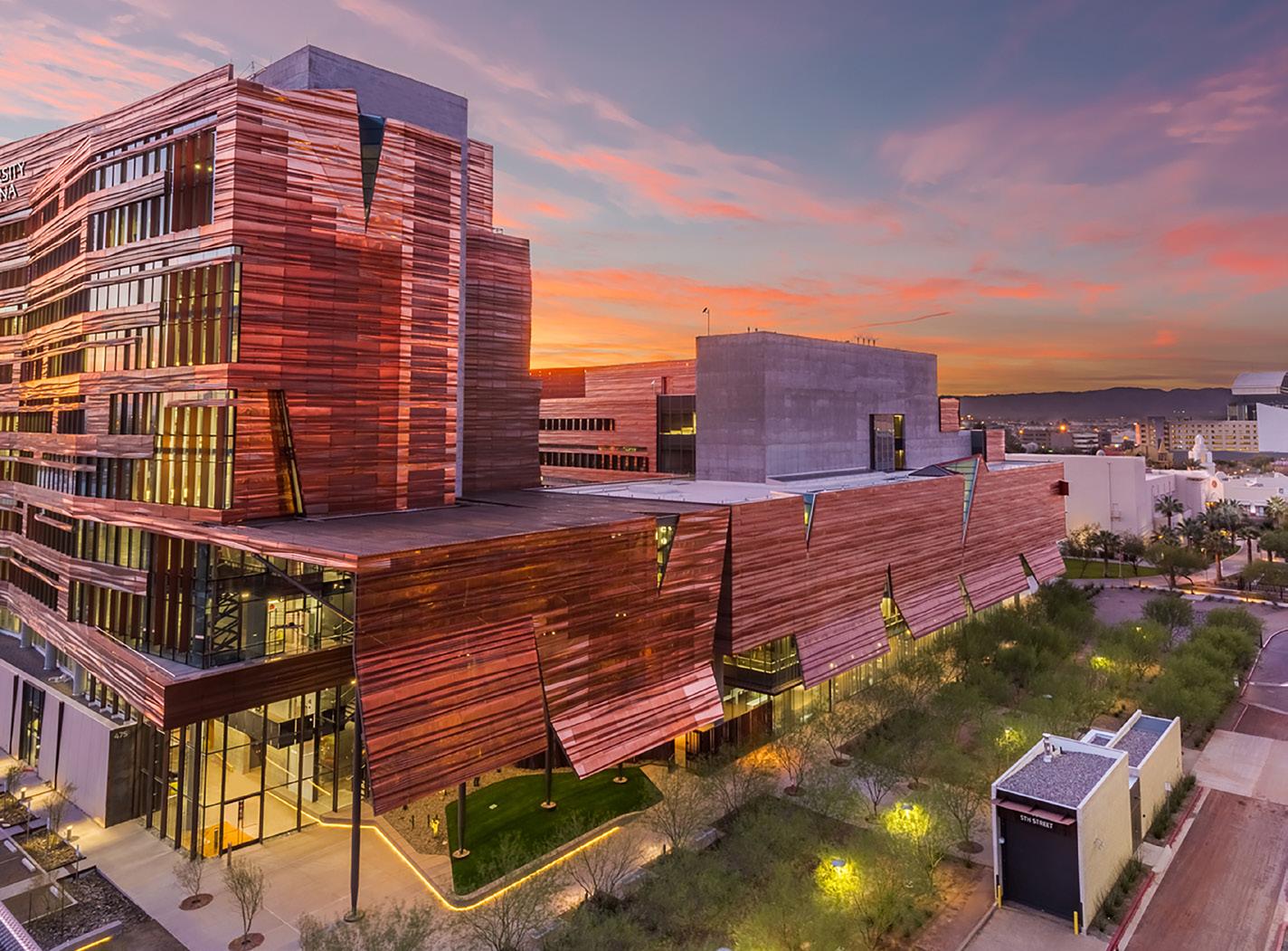
INNOVATION HUB: The 30-acre Phoenix Bioscience Core includes over 2 million square feet of life science facilities and is planned to grow to over 6-millon square feet. (Photo courtesy of Phoenix Bioscience Core)
Arizona’s Life Science Sector is growing rapidly and reached more than 39,118 jobs spanning 3,350 business establishments in 2022. Bioscience industry jobs increased by 14.8% between 202022 compared to the U.S. average of 11.1% growth according to data reported by the Flinn Foundation in 2024. This continued the trend reported by the Kem C. Gardner Policy Institute at the University of Utah that showed that Arizona ranked No. 2 in the nation for 10-year average job growth (2012 to 2021). Only Massachusetts consistently grew more.
Arizona is also seeing rapid growth in the amount of life science infrastructure under construction and development. AZBio’s Infrastructure Council is comprised of leaders from across Arizona’s life science ecosystem with a shared goal to raise awareness of Arizona’s Advantages among life science companies and site selectors nationally and internationally.
Arizona Advantages
• Reach 65% of the U.S. population by air within two hours and by land within 24 hours
• No natural disasters to disrupt your supply chain
• Business-friendly policies and support
infrastructure
• 100 Years of Water thanks to Proactive Management, Planning and Policies
• Research 1 universities and the largest community college district in the U.S.
• Respected clinical partners: Banner Health, City of Hope, Dignity Health, HonorHealth, and Mayo Clinic
• World-class research partners: Arizona Alzheimer’s Consortium, Arizona Heart Hospital, ASU Biodesign, Barrow Neurological Institute, Norton Thoracic Institute, UArizona BIO5, Critical Path Institute, Phoenix Children’s Hospital, TGen, UArizona Health Sciences
• Medical schools: Creighton University, Mayo Clinic Alix School of Medicine, Midwestern University, University of Arizona College of Medicine Phoenix, University of Arizona College of Medicine Tucson
• Veterinary schools: Midwestern University and University of Arizona Infrastructure council members are also expert at helping companies assess the operating cost advantages of locating and growing life science businesses in Arizona and identifying state incentive programs that support that growth including Arizona’s: Quality Jobs Tax Credit program which provides up to $9,000 of income

or premium tax credits over a threeyear period for each net new job to the state and concurrent qualifying capital expenditures.
Research & Development Tax Credit program which provides an Arizona income tax credit for increased research and development activities conducted in this state.
Additional Depreciation program that accelerates depreciation to substantially reduce business personal property taxes.
Qualified Facility Tax Credit program that offers a refundable income tax credit for companies making capital investments to establish or expand facilities.
Angel Tax Credit program that provides tax credits to investors who make capital investments in small businesses certified by the ACA.

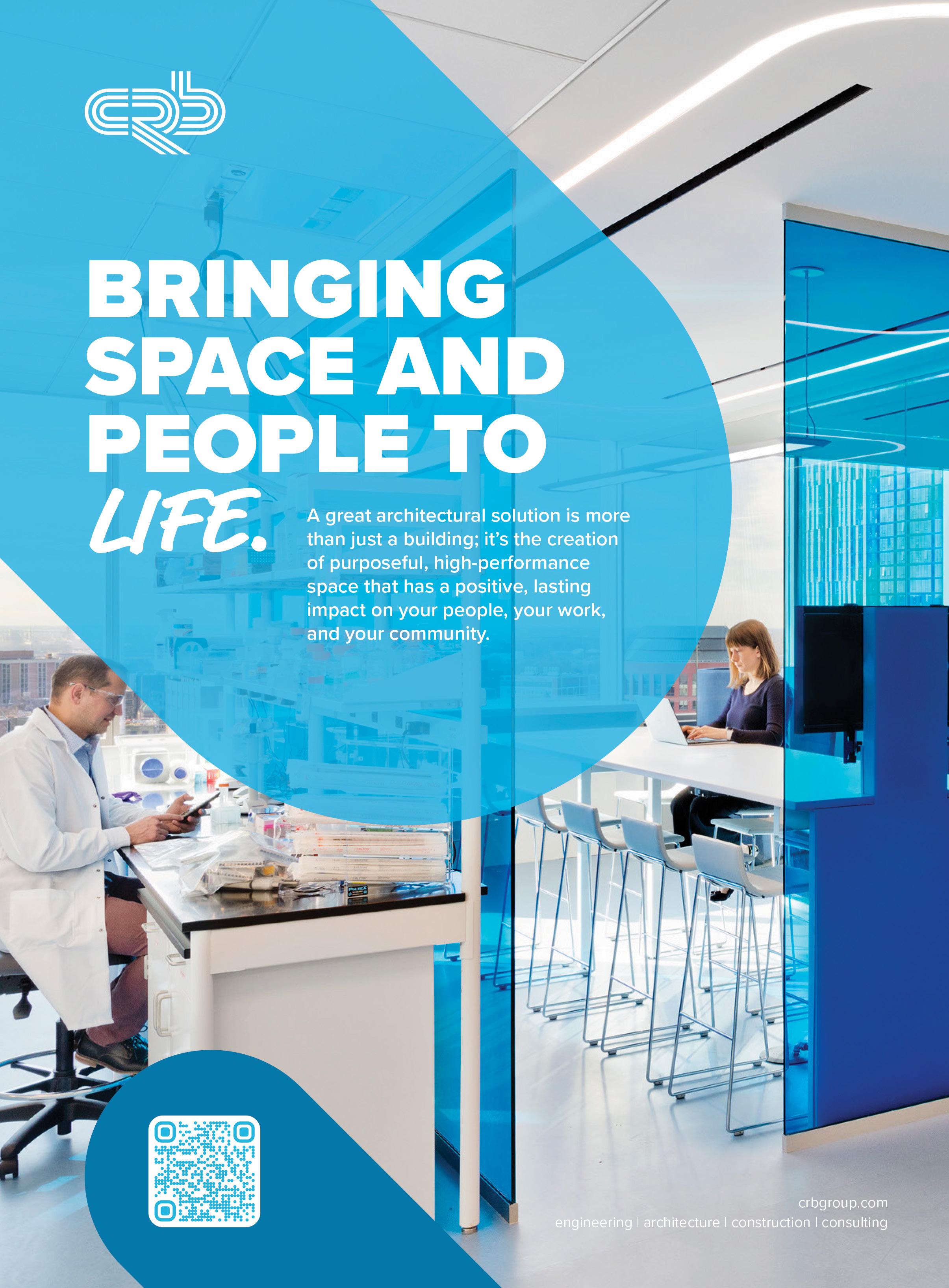
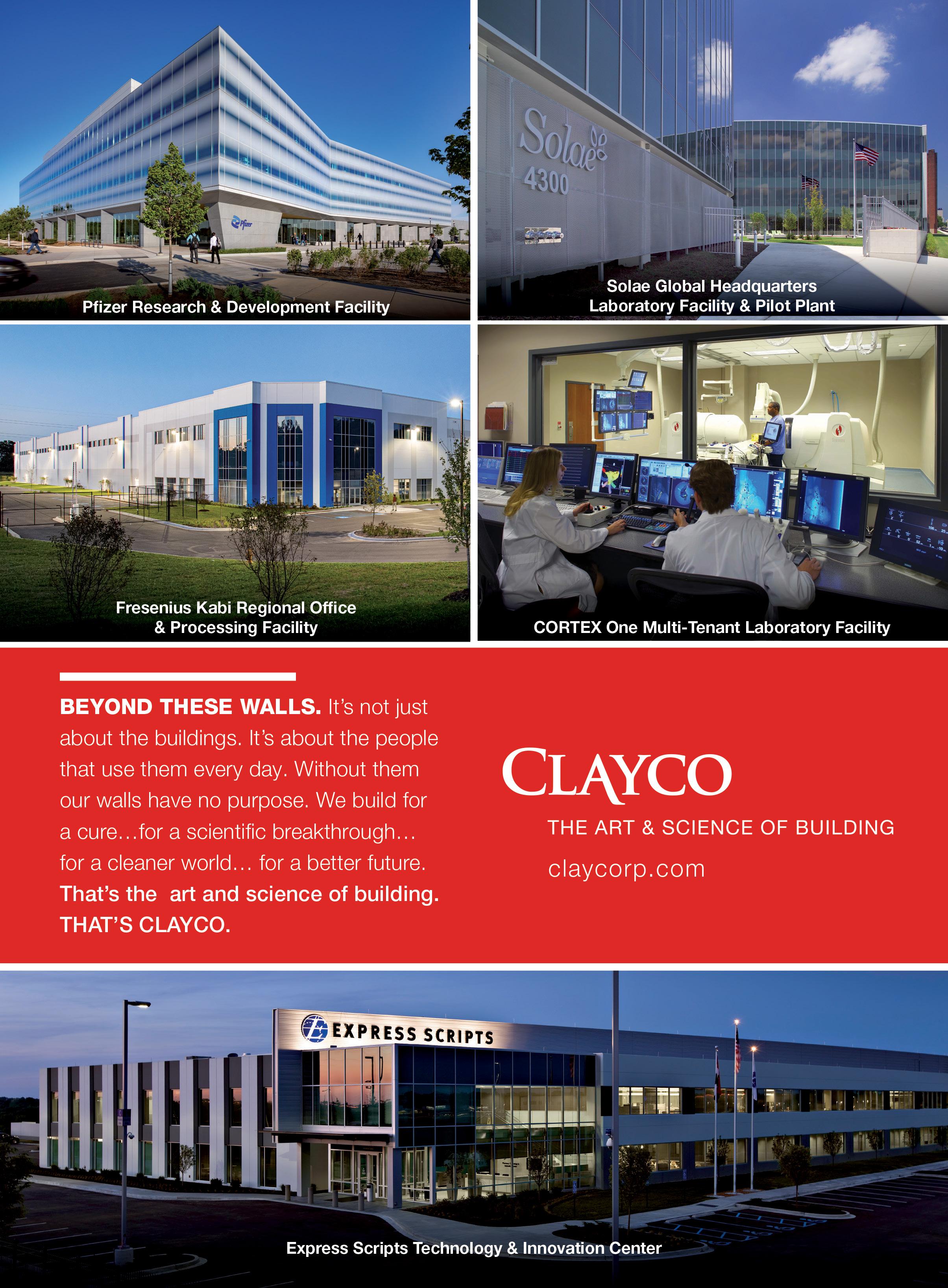

rizona leaders began to focus on developing Arizona’s bioscience cluster in 1997, and the growth since then is significant. Thanks to a series of strategic decisions and investments, Arizona is home to one of the fastest growing health innovation ecosystems in the country on a percentage basis. Today, Arizona’s Bioscience Roadmap is the longest running, continuously managed strategic plan to grow a bioscience sector in the country. Launched in 2002 and stewarded by the Flinn Foundation, the Roadmap, like all good plans, has regularly reported results, and engages stakeholders to take the actions that drive results.
Arizona ranks No. 2 in the nation for Life Sciences Job Growth based on the 10-year average (2012-2022) calculated by the Kem C. Gardner Policy Institute, part of the David Eccles School of Business at the University of Utah. Only Massachusetts ranked higher.
Since the cluster was formed 27 years ago, over $29 billion in public and private funds have supported the creation of life science infrastructure, launched new medical schools and educational programs, fostered the growth of talented students and entrepreneurs, contributed over $1.7 billion to university research under TRIF, and expanded our healthcare delivery systems to meet the needs of Arizona’s growing population.
Arizona’s life science sector delivered $38.54 billion in Economic Impact in 2021. That’s impressive. We won’t stop there. The goal is to double this impact to $77 billion by 2033. Leaders across Arizona are putting on the pin to show their commitment to achieving this goal and encouraged to share with others what their role is in making it happen.
Moving up
Being ranked No. 2 in the nation for Life Sciences Job Growth is something to be proud of, but metrics like this look at percentage growth rather than the real number of net new jobs.
It helps to look at the real numbers on a comparative basis. The chart below compares Arizona and Massachusetts. The states have similar populations. Massachusetts is home to a mature life science ecosystem and Arizona is home to an emerging ecosystem. Both states made significant life science investments of $1.5 billion between 2003-2017. Arizona invested in university research infrastructure. Massachusetts, already mature in 2003 and home to 24 Research 1 universities, put their funds into the Massachusetts Life Science Center initiative and spread their investment across research, workforce, and investment programs to drive the growth of their companies.
Without a doubt, Massachusetts has some distinct advantages as a mature market. Thanks to strategic investment into its early-stage companies over the last decade, the state has a strong pipeline of investable companies. Venture Capital invested into Massachusetts life science companies (2018-2021) was $3.2 billion compared to $565 million for the same period in Arizona.
For Arizona to rise to be a top-10 life science sector and reach mature market status, we need to continue to make strategic investments that are balanced across the spectrum from the discovery phase and on to the development phase where products and services can be created by local companies and ultimately improve the lives of people in Arizona and around the world. The work has begun with initiatives like the Arizona Health Innovation Trust Fund and AZAdvances. As we prepare for Arizona’s next stage of life science growth, it’s time to turn the page.
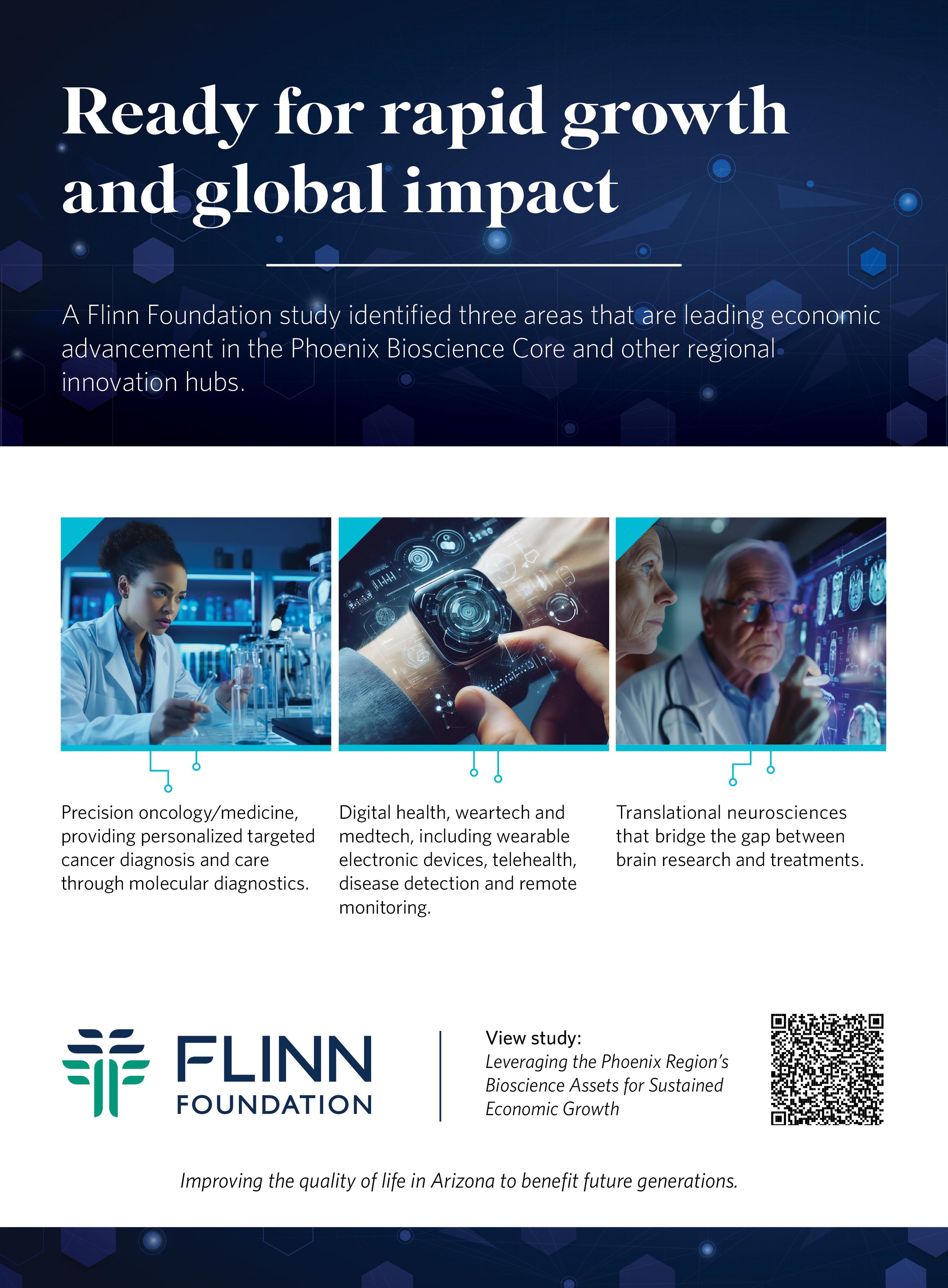

The Arizona Health Innovation Trust Fund (AHIT) is designed to be a growth engine driving Arizona’s life science sector as it progresses from an emerging ecosystem to a mature ecosystem. AHIT was created by statute in 2022 and established under the Arizona State Treasurer’s Office (ASTO) with the State Treasurer as trustee.
The purpose of the Arizona Health Innovation Trust Fund is to help small, Arizona-based life science companies grow here and to provide more training programs to support their growing workforce needs. With this support, the companies will create high quality jobs, drive economic growth, and, most importantly, support the development of Arizona discoveries that can become life-enhancing treatments and possibly lifesaving cures.
This all starts with capitalization of the Arizona Health Innovation Trust Fund.
Arizona’s health innovation sector is the beneficiary of over $29 billion in public and private investments in its discovery and healthcare delivery infrastructure over the last 20 years. The result, in the year 2021 alone, was over $38 billion in economic impact.
The process of creating health innovations has three parts: discovery, development, and delivery. This middle component, development, is the bridge that
discoveries originating at our universities, hospitals, and small businesses must cross before they can create a benefit for the people who need them. Arizona’s development infrastructure also must be supported. That is what AHIT is designed to support.
Arizona leaders have embraced a goal to make Arizona home to a top-ten life science sector. The impact of reaching top-ten status will be significant. In 2021, the No. 10 state had an economic impact of over $78 billion. Arizona’s life science community is working to double the economic impact generated by Arizona’s life science sector by 2033, moving our state towards a place in the top-ten ranks nationally.
The intention is for AHIT’s balance to grow to not less than $200 million through funding from a mix of public and private sources including, but not limited to, state or federal funds as well as donations from private individuals and organizations. Arizona’s AHIT investments are managed by ASTO. Beginning in FY27, the Arizona State Treasurer’s Office (ASTO) will make distributions of 4% of the 5-year average balance on an annual basis to an Arizona 501c3 public charity to fulfill the statutory requirements and will:
• Provide entrepreneurial education, mentoring and support to persons in the health innovation and health care delivery sectors.
• Provide programs that support
workforce development.
• Provides programs that support the development and commercialization of health innovation.
The non-profit entity must annually submit a report, as prescribed by the Treasurer, to the Governor, the President of the Senate, the Speaker of the House of Representatives, and the Treasurer by each December 31.
The current estimate of the funds needed to bridge Arizona’s health innovation development gap is $10 million per year. As the sector grows, the need will grow. Under AHIT’s endowment model, the core investment capital will grow to meet this need. Like the trusts established under ASTO that are managed for Arizona’s cities and towns, investment returns on the core capital continue to grow and replenish the trust.
The Opportunity Through Entrepreneurship Foundation (OTEF) is contracted with ASTO to be the nonprofit that will deliver these services as programs under the AZAdvances initiative.
No funding was appropriated by the state in FY 24 or FY25 due to budget challenges. Capitalizing the Arizona Health Innovation Trust Fund is an investment in Arizona’s future that will yield both economic and health impacts that benefit Arizona and for Arizonans today and for generations to come.
In 2025, Arizona’s elected leaders will have the opportunity to support AHIT as part of the FY26 budget process. This investment in Arizona’s future continues the process that the Senate, House, and Governor began in 2022.
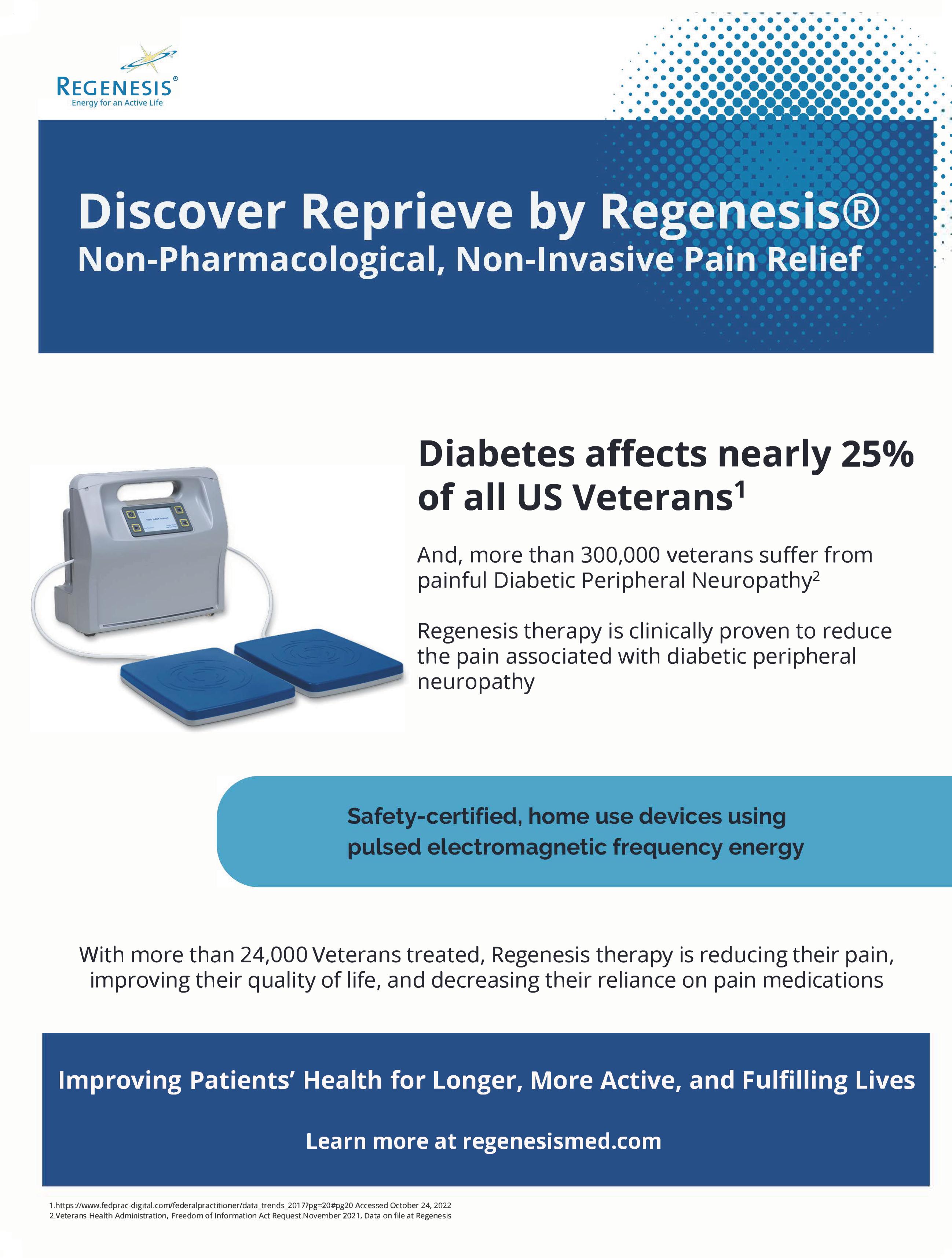
AZBio began working with the Opportunity Through Entrepreneurship Foundation (OTEF) in 2014 when the organizations came together to create the Student Discovery Zone at the AZBio Awards. Since 2014, over 1400 students have had the opportunity to showcase their research projects, make industry connections, and compete for merit-based scholarship awards.
In 2019, the collaboration expanded to include three focus areas: Talent, Entrepreneurial Support, and Missionrelated investments so that Arizona startups reach key milestones and can attract the levels of capital they need to grow.
The Arizona Health Innovation Trust Fund (AHIT) is designed to be a growth engine driving Arizona’s life science sector as it progresses from an emerging ecosystem to a mature ecosystem. AZAdvances is the

vehicle that will move us forward as we progress into the top-10 life science rankings nationally.
AHIT’s first distributions to OTEF for AZAdvances do not begin until 2027, and based on the current AHIT levels, this means that all progress to date is thanks to donations from the community to OTEF. This has allowed AZAdvances to:
• Host six Student Discovery Zone. Programs benefiting hundreds of students.
• Award 36 merit-based scholarships.
• Employ 5 student interns and deploy them at small Arizona life science companies so that the students gain the experience of being part of an entrepreneurial venture.
• Gather the community for education and inspiration at the AZAdvances
Innovation Showcase at the ASU Health Futures Center.
• Make our first 3 mission-related investments into local life science startups.
• Use these pilot programs to establish the processes needed to scale the program as soon as more funding is available from charitable donors, grant making organizations, or AHIT.
Community support in 2024 guides the level of program impact that can be delivered in 2025. During Arizona Bioscience Week, two great Ponte Cura events support AZAdvances. In addition, donations are always welcomed at AZAdvances.org/donate. Be sure to check out the donor wall to see community members who are coming together to help drive health innovations forward in Arizona.
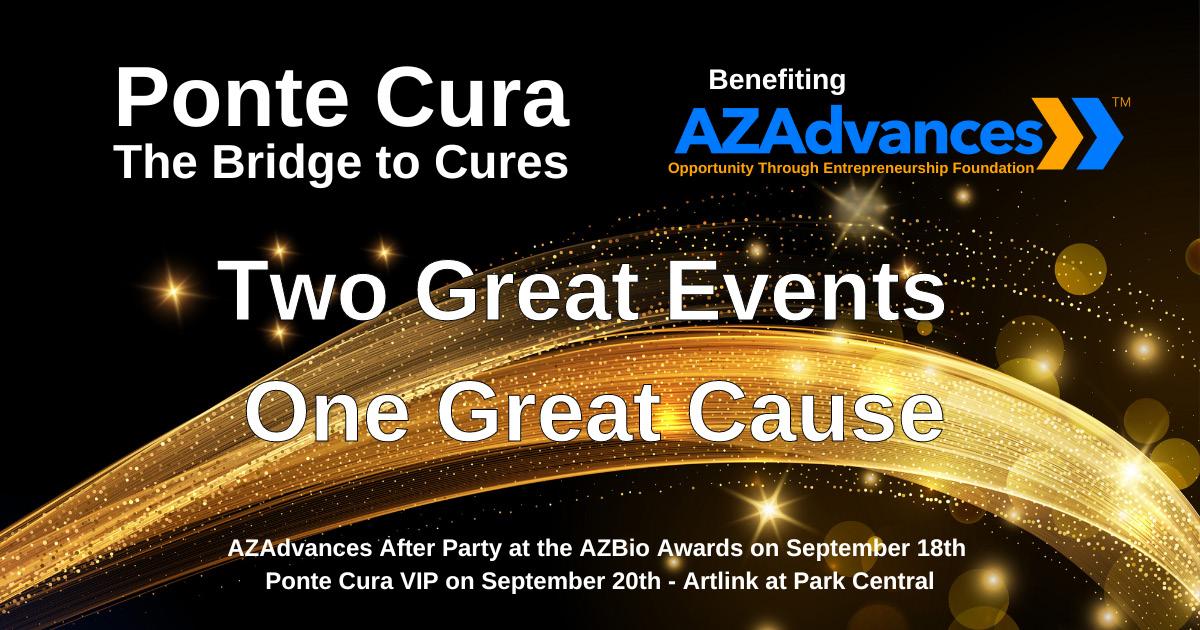
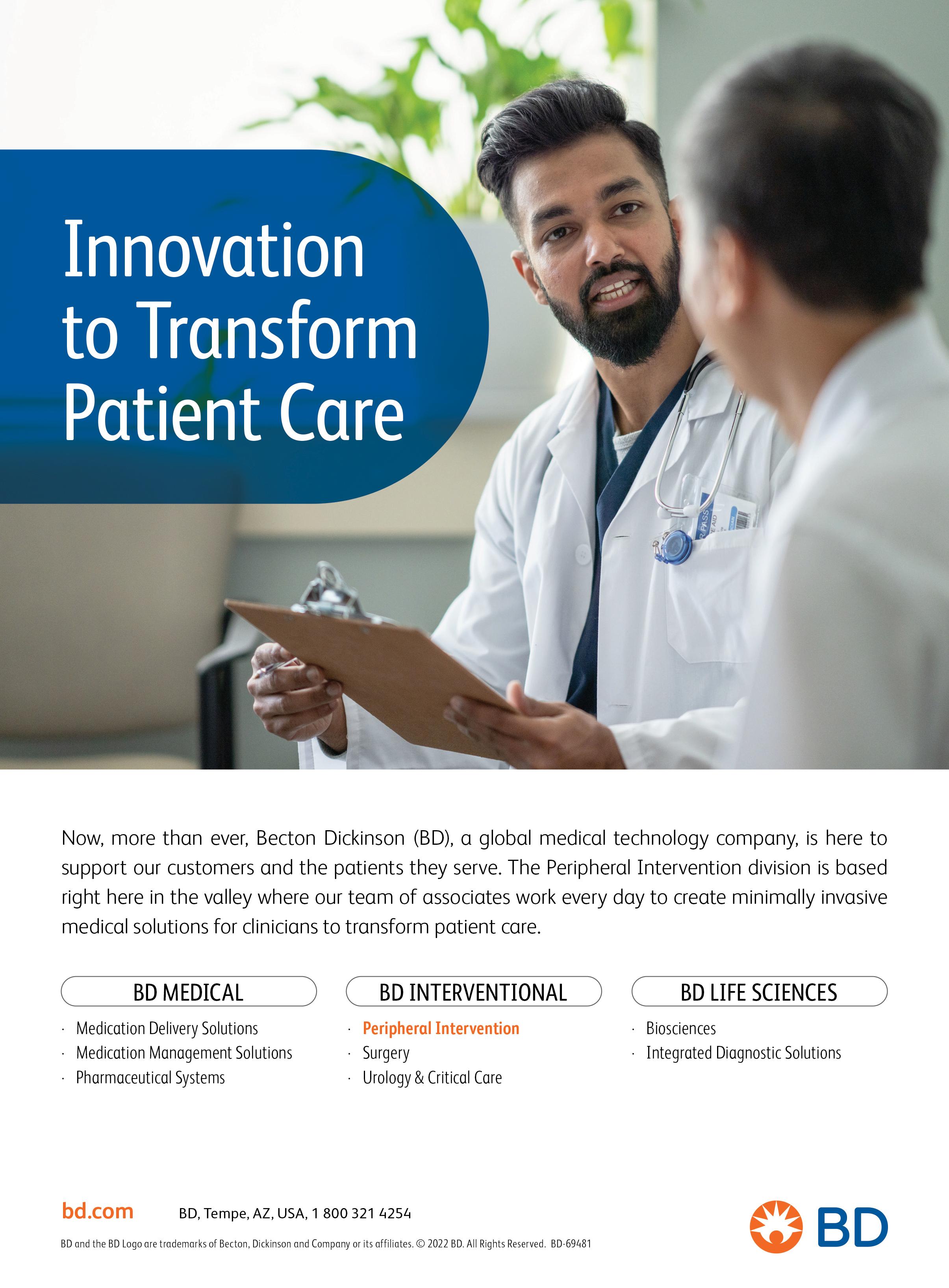

In June of 2024, J.P. Morgan Life Sciences Private Capital closed its inaugural biotechnology venture capital fund with over $500 million in commitments. This is no small feat, even if you are J.P. Morgan.
Dr. Stephen Squinto, Chief Investment Officer and Managing Partner of J.P. Morgan Life Sciences Private Capital shared the following. “As investors and company builders, we are strongly positioned at J.P. Morgan Private Capital to identify and support highly innovative companies that can shape the future of how patients are treated. Our mission is not only to capitalize companies, but also to utilize our collective experience to guide them towards successful outcomes, and to mentor a new generation of biotechnology founders and executives.”
Building a successful life science company is also no small feat. Life science entrepreneurs need to figure out how to build a business, usually on a very tight budget, move the science forward, choose the right partners and experts, manage supplier and investor relationships, and a multitude of other tasks. These things
all take money and lots of it. Since most company founders are not independently wealthy, and the odds are not good that a lottery ticket will save the day, they must convince potential investors that they have an “investable” company.
Much has been said and written about what makes a company investable. In reality, every investor is different. There is no magic formula or calculation that you can plug into a system and receive a golden ticket to investor success. Even the most successful health innovators will tell you to be prepared for rejection. Just getting an investor to agree to a meeting can be difficult and it’s not unusual to have 100 meetings before you get to a yes.
AZBio created the White Hat Life Science Investor Conference in 2014 to bring together high potential companies with investors. Across 5 conferences and after interacting with hundreds of investors, many who have returned for every conference, we have gained deep insights on the factors that impact an investor’s decision process. Here are some of the most common questions investors ask themselves:
People, people, people
Especially in the early-stages, people are a key decision factor.
• Can the team work together?
• Are they able to listen and willing to work with the investor?
• Does the team include people with the needed skill sets?
• Does their past experience or track record instill confidence?
A plan and the ability to execute
Peter F. Drucker’s teachings have a significant place in modern management theory. Drucker taught that “Strategy is a commodity, execution is an art.” Great, exciting, and often audacious business plans are presented to investors on a regular basis. It is up to the company seeking investment to convince the investor that the plan is reasonable and that the team is able to do what they say they can do. There are no guarantees of success with any startup but the ability to execute is essential.
The life science startup space is extremely unpredictable. Even the “best”

FDA approval process, to obtaining reimbursement from government and private payors, to gaining adoption from both the prescriber and patient communities, and maintaining manufacturing, quality, and delivery systems, investors must assess how confident they are that this company, with this team, can go the distance.
• Can the company raise the capital it will need to travel this journey?
• Does the team have the business experience needed to scale?
• Are budgets and projections realistic? What are the contingency plans?
• Will the company use the investment in the most efficient and impactful way?
• Does the company have a strong intellectual property portfolio — and — what will it cost to maintain it?
Investors need to make a return on their investment and often within a set time. That means there must be exit potential.
• Is the market big enough to generate a return on investment that matches my investment needs?
is the potential to make an investment. If not, they will pass.
Large venture capital firms, family offices that focus on the life sciences, and institutional investors have teams of business leaders and scientific experts who focus heavily on due diligence. Other investors may decide to follow as part of a round led by these investors. Syndicated investments like this normally have a lead investor combined with the investments of others to reach the round’s targeted level of investment. This is both a way to share due diligence and a way to spread the investment risk across the syndicate.
Individual investors, often called angels, may band together in organized groups to share due diligence on the companies they have an interest in. In most cases, the individual angels then make their own decisions and their own investments. The Desert Angels in Tucson and ATI (Arizona Tech Investors) in Phoenix are examples of Arizona based angel groups that have developed a track record for life science investment.
science does not always pan out the way a team thinks it will. What looks good in pre-clinical work may turn out differently in later stages as human trials begin or progress. If this happens, and it often does, can the team pivot and still move forward? Even when the science is working in a company’s favor, other factors related budgeting, availability of key resources or components, available talent and workforce, and other operational factors are common challenges.
• Does the team have the ability to adapt and to overcome these challenges?
• When the plan changes, which it almost always does, will leadership be transparent, communicative, and open to suggestions from advisers and investors?
• Does the company have good governance policies in place?
Beyond the business basics, does the team have the expertise to navigate the parts of the journey that are unique to life science companies? As the development process moves from navigating the
• Will an exit event, when the investor realizes their return, have a high potential to occur when it is needed?
• Are there potential buyers for the company or potential strategic investors who might buy out our investment?
The due diligence process
Investors ask these questions and more as part of what is called a due diligence process. After they get the answers, they compare what they have learned to their own internal guidelines for investment. If the calculation of investment reward less the investment risk is positive, there
Looking back up at the list of questions that are common as part of the due diligence process, it is easier to understand why many young companies will have so many meetings to raise their initial investments. Until they do, it is extremely difficult to reach the milestones that will make them “investable.”
Here in Arizona, organizations including the Arizona Commerce Authority, our universities, the Flinn Foundation, incubators and accelerators, AZBio, and now AZAdvances work together to help support the companies on their journey to become investable and continue to support them as they grow.
$2.4 billion:
The amount invested into White Hat presenting companies since presenting at White Hat in 2014, 2016, 2018, 2020 and 2022.
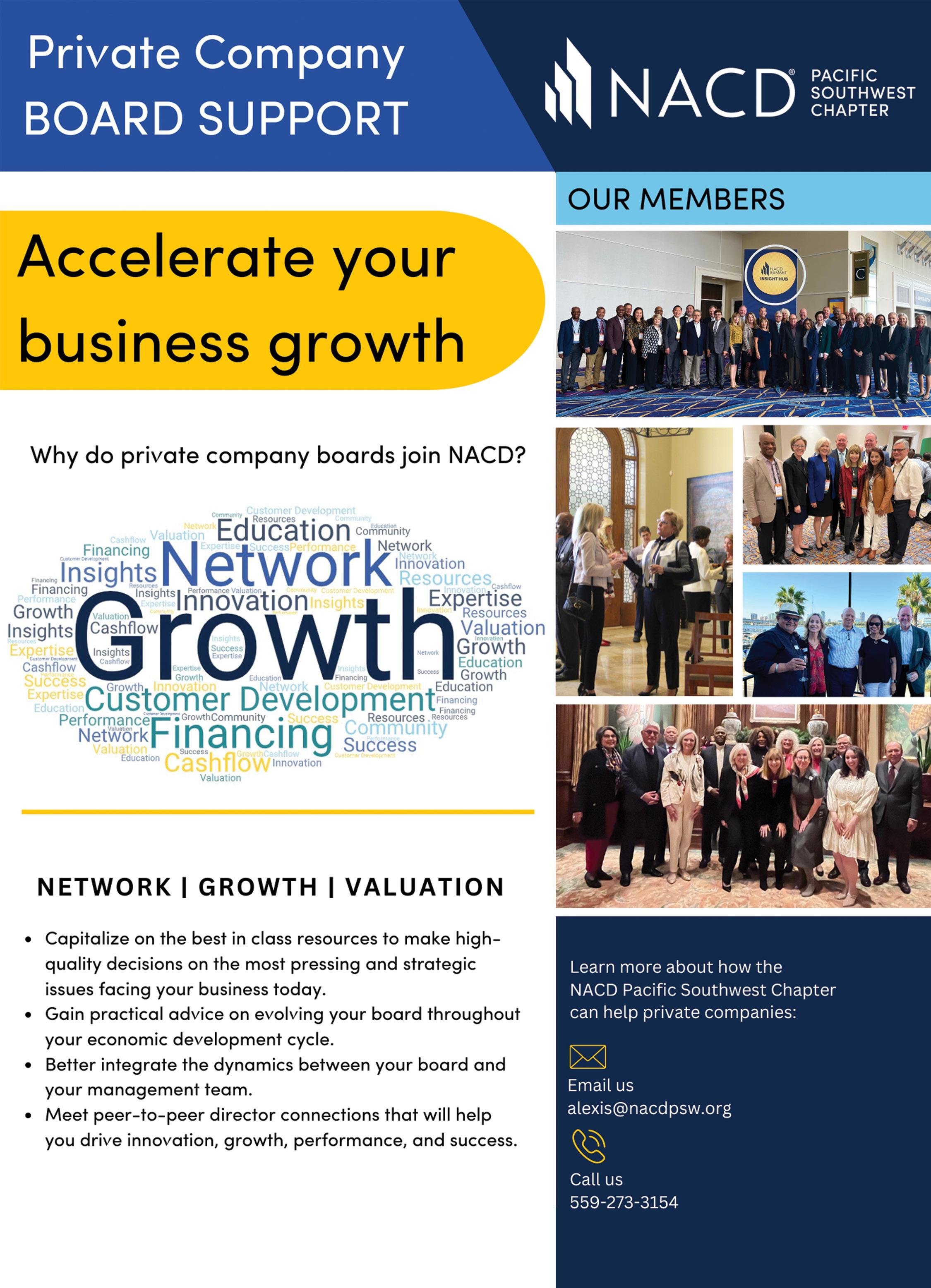


State ranks 9th in the U.S. and No. 3 in western states
Clinical trials are research studies that are central to medical advances and are the primary way researchers determine if new treatments are safe and effective. They can help improve the health of current and future generations by looking for new ways to: prevent disease, detect disease, treat disease, and improve quality of life.
Clinical trials can test a variety of interventions, including:
• New drugs or combinations of drugs
• New surgical procedures or devices
• New ways to use existing treatments
• New ways to change behaviors to improve health
These studies can help researchers determine if a new treatment is more effective or has fewer side effects than existing treatments. They can also help researchers learn how to safely use a treatment in populations where it hasn’t been tested on before, such as children. Clinical trials are always voluntary, and
participants can stop at any time if they feel uncomfortable. Before participating, participants receive an informed consent document from an institutional review board (IRB) that explains the trial’s safety, risks, benefits, and other important information. Not everyone in a clinical trial has an illness or condition. Many clinical trials also include healthy subjects. This is where people volunteer to be part of the trial and can be compared to people with health challenges. This is especially common in vaccine trials where researchers are looking to see if the vaccine prevents you from getting sick. For example, across all the manufactures of Covid-19 vaccines, over 1 million healthy subjects from around the world volunteered and participated in one or more trial phases.
Without clinical trials, the treatments people are waiting for will not get to them.
Arizona’s diverse population, deep base of clinical expertise, and thriving health innovation ecosystem combine to make our
state a leader in clinical trials.
Analysis of clinical trials economic impact data published by the Biotechnology Innovation Organization (BIO) reveals that Arizona ranks ninth in the United States for economic impact generated by clinical trials activity, 3rd in states West of the Mississippi, and 1st in the Rocky Mountain Southwest. We use economic impact as a key indicator to compare from state to state as it includes the number of people participating in the trials and the cost to run them.
Here in Arizona, some of our leading clinical trial sites include Banner Health, Dignity Health, HonorHealth, Mayo Clinic, and Phoenix Children’s Hospital. Dignity Health St. Joseph’s Hospital and Medical Center is part of CommonSpirit Health, the 5th largest health system in the United States. More clinical trials are hosted at St. Joseph’s than any other hospital in the CommonSpirit network.
The All of Us Research Program is a historic effort to collect and study data from one million or more people living in the United States. The goal of the program is better health for all of us.
The program includes racial and ethnic minorities as well as sexual and gender minorities, people with low income or limited education, and other groups. According to NIH, the demographics include ~45% racial and ethnic minorities; +80% underrepresented in Biomedical Research
As of May 2024, Arizona has fully enrolled over 71,540 people in the program, second only to California with 75,100. That’s impressive since California’s population is five times that of Arizona.
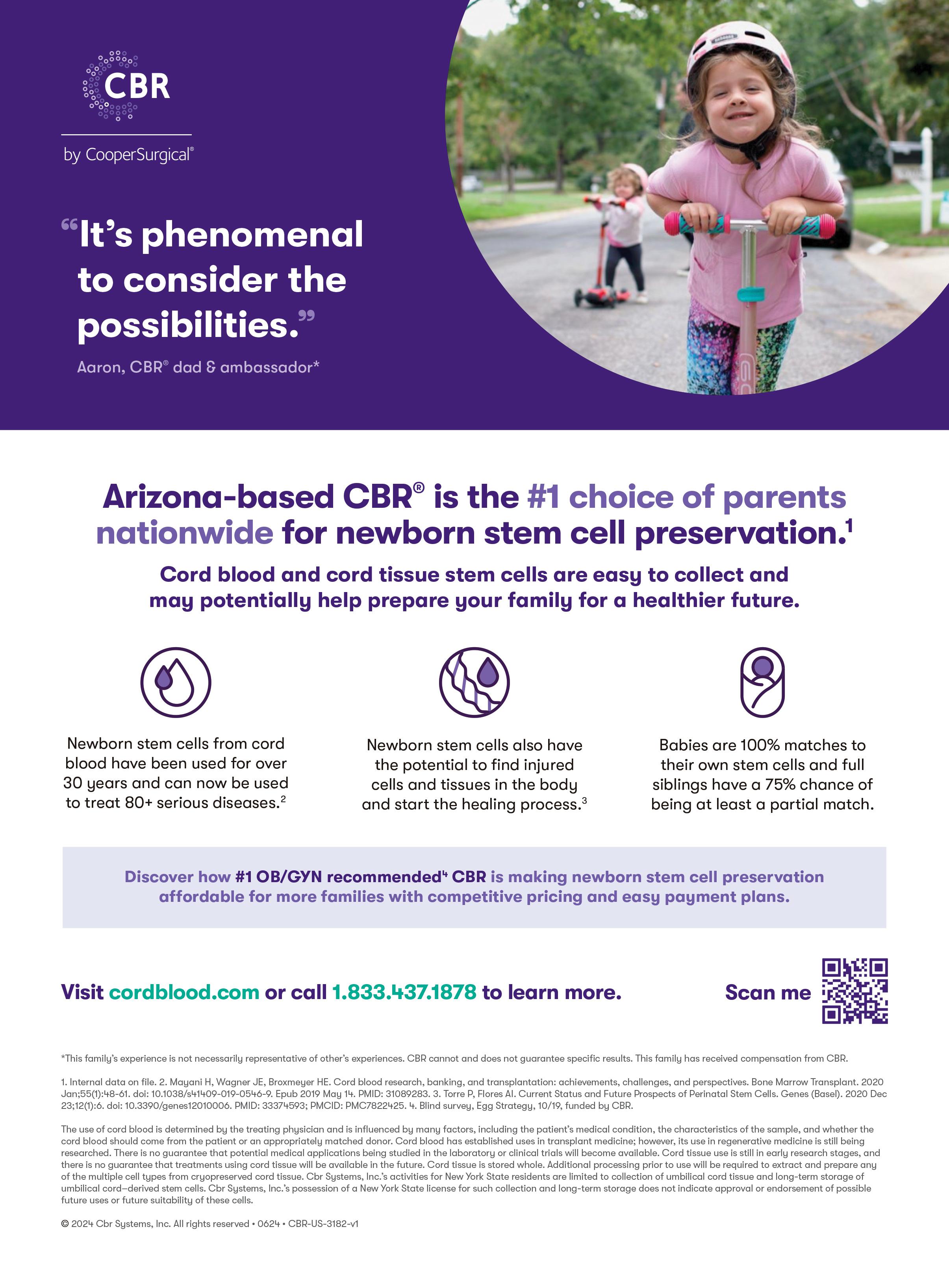

n the 2024 legislative session almost 1,500 bills were introduced in the Arizona House of Representatives and in the Arizona Senate. Bills in Arizona must progress in a single session which lasts approximately 100 days. In 2024, the Arizona Legislature passed 330 bills. Of these, 258 were signed into law and 73 were vetoed by Governor Hobbs.
In Washington, bills are introduced and can be passed during a two-year Congress. In the 118th Congress (20232024), over 15,000 bills have been introduced and as of September2024, 270 have been passed. President Biden vetoed 12 of them.
After a bill becomes law at the state or federal level, it goes to the relevant agency for the rules and regulations to be written and implemented.
With this volume of legislation and regulation, it is not reasonable to expect that all of them are perfect. In fact, many well intended laws can come with significant unintended consequences.
AZBio works to serve as a reliable and trusted resource to our elected and appointed leaders on issues and opportunities that affect our bioscience industry, our communities, and our state.
AZBio Members include patient advocacy groups, educators, economic developers, health innovators, and our healthcare systems.
AZBio’s leaders look at public policy through three lenses: 1) is the policy good for patients; 2) does it support improve the quality and reduce the cost of healthcare delivery; and 3) does it support the growth of our industry.
The IRA is an example of intended and unintended consequences.
August 16, 2024 marked the two-year anniversary of the Inflation Reduction Act (IRA). One of the most talked about and written about policies of the current administration, the IRA has far reaching impacts. Whether they are positive or negative is a matter of perspective.
Like many complex pieces of public policy, there are some things that are very good and others that may have unintended consequences that keep the policy from having its intended benefit.
The health provisions of the Inflation Reduction Act were intended to lower healthcare spending by patients and by the largest healthcare payer, the U.S. Government.
The IRA put a much-needed cap on
senior’s out-of-pocket costs, it also contained some very damaging provisions that are slowing down the development of newer and better medicines that can improve quality of life and potentially reduce healthcare costs overall.
Medicine development is a long and complex process. The IRA fundamentally alters the incentives for medicine development and the negative implications of these changes are beginning to be felt today. It will be decades before the full damage can be measured.
Companies are already changing their research programs due to the law and noticeable shifts have occurred in the types of new products investors are investing in.
Experts predict this will result in fewer treatments for cancer, mental health, rare diseases, chronic diseases, and other conditions that are the main drivers of healthcare spending.
Just as laws are written and passed, they can also be improved upon over time. AZBio and AZBio Members gather the evidence of what is working, and what is not. We share this data with our elected leaders so that they can improve on current public policy and can create better policies that benefit all of us in the future.
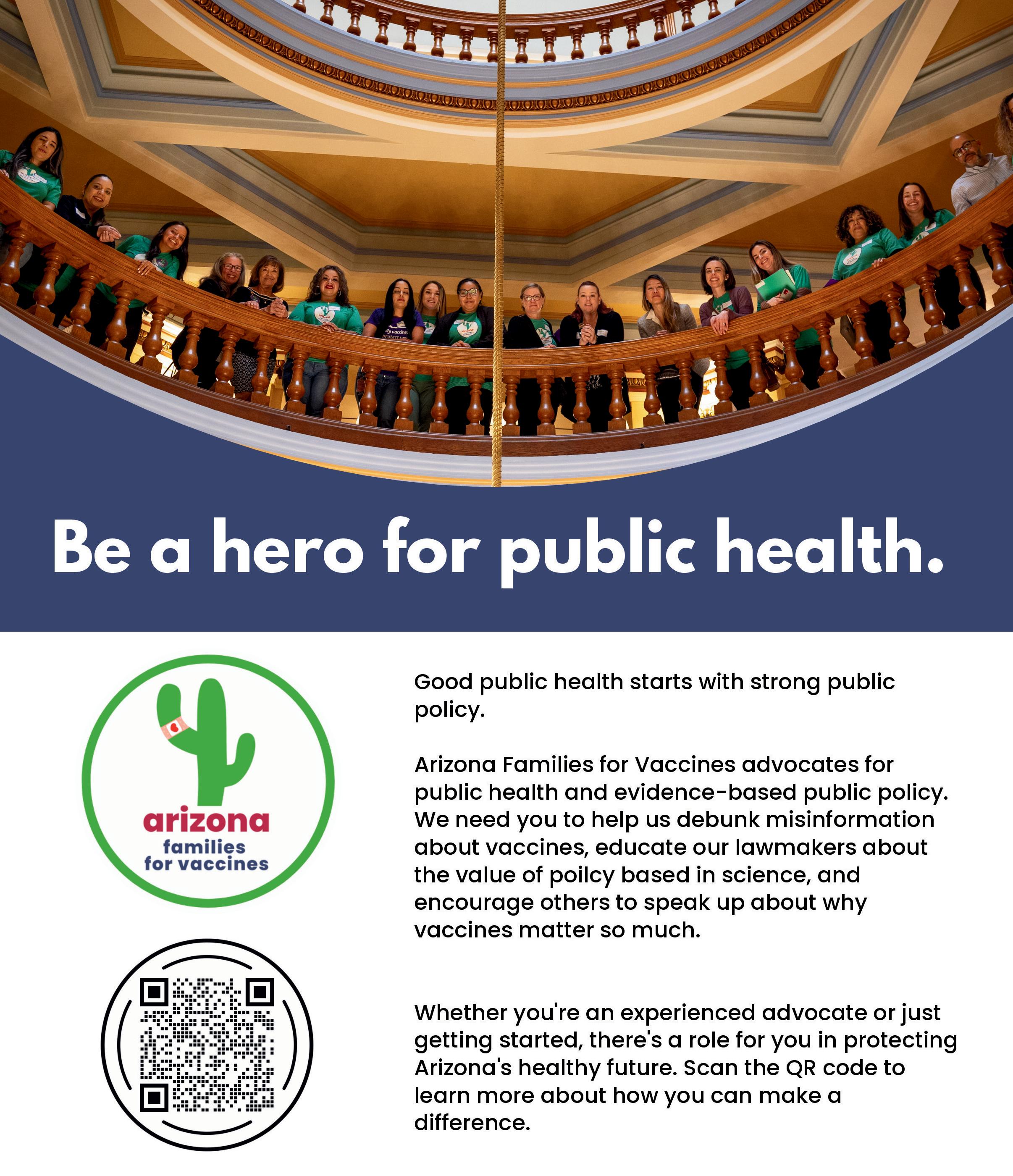

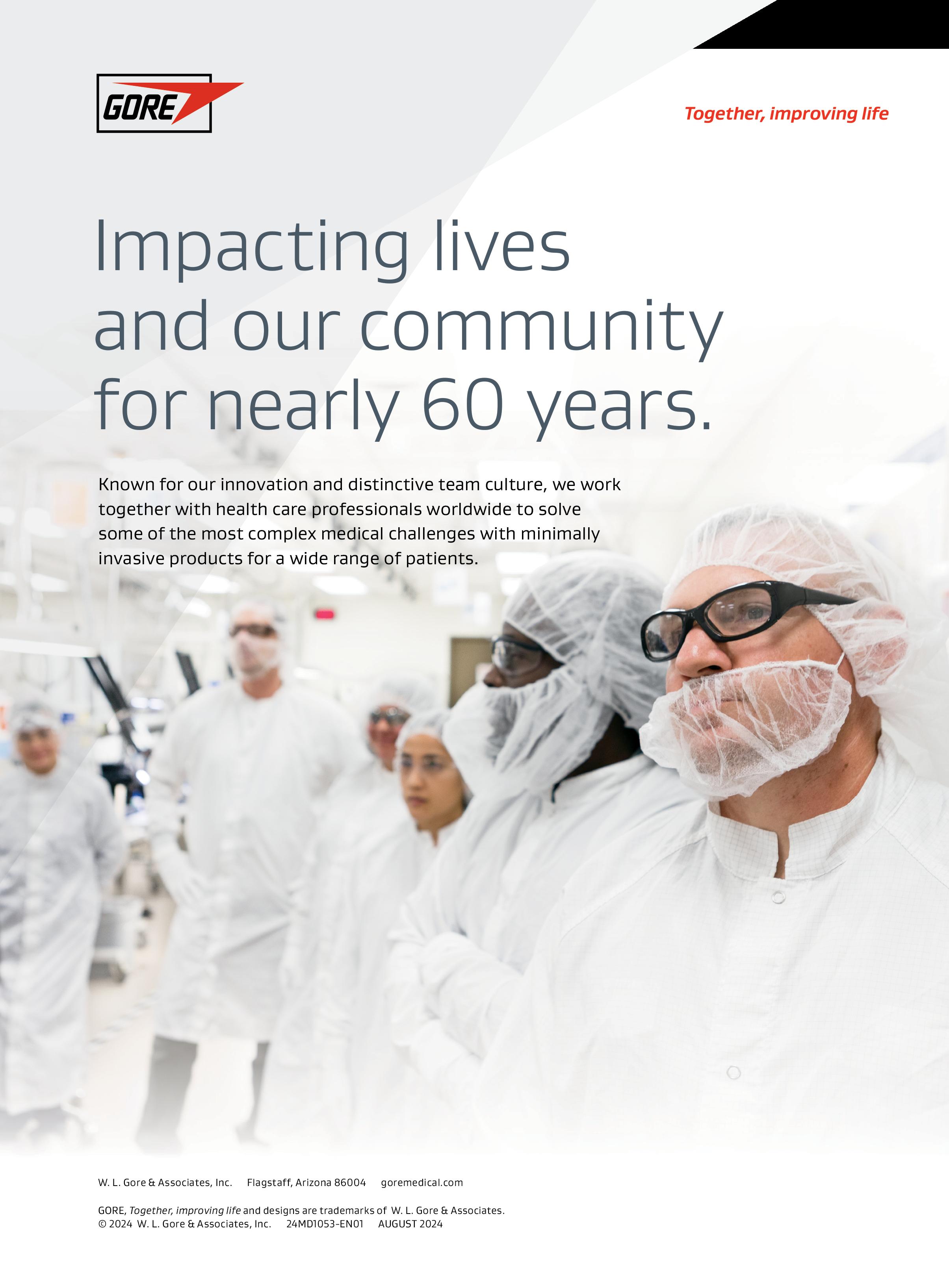
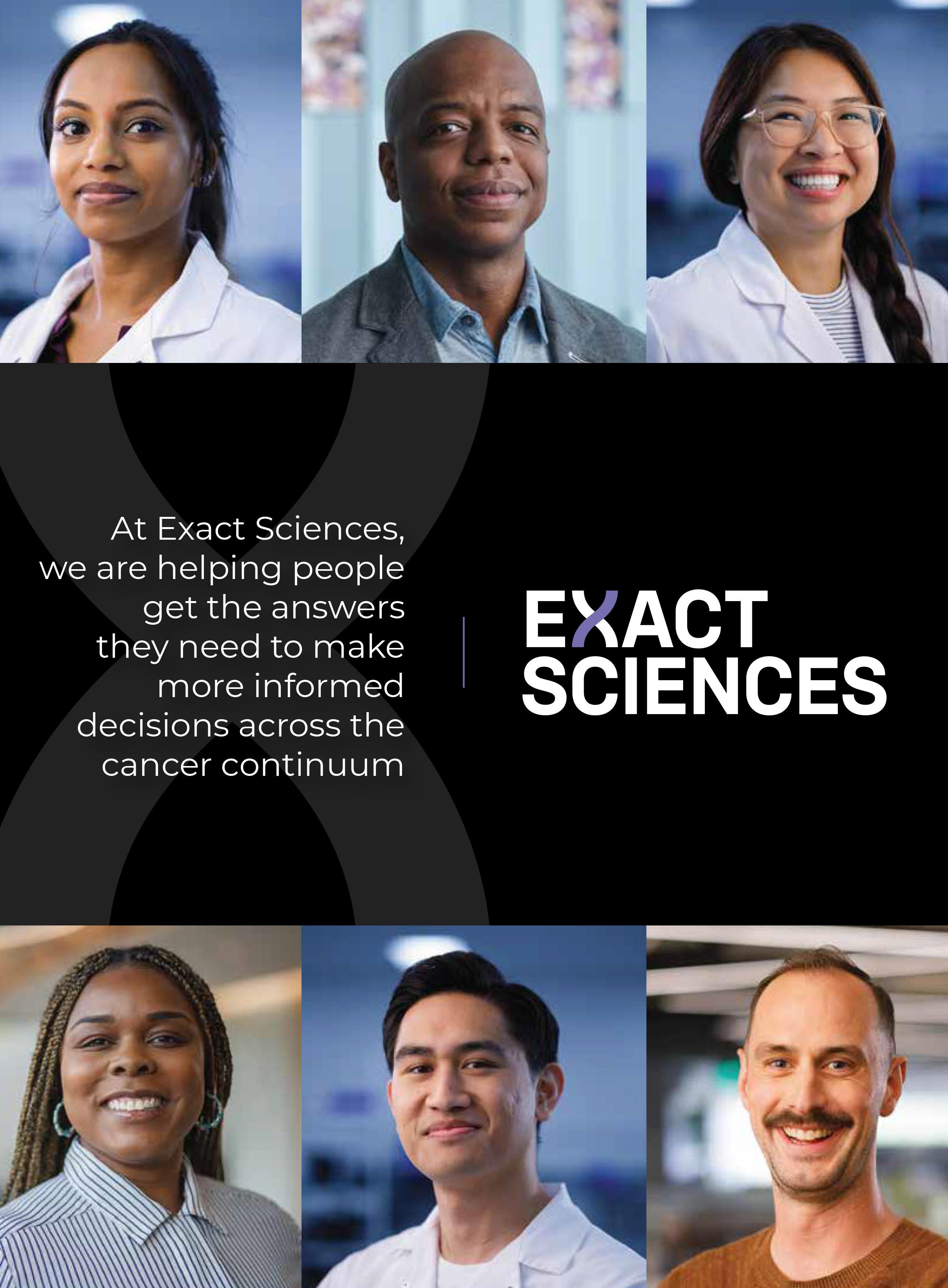
This year’s special section in Az Business magazine provides a glimpse of what is happening in Arizona’s health innovation sector today.
As AZBio’s president and CEO, I have the enormous privilege of working with Arizonans as they strive to make the world better by creating innovations that are improving animal and human health and can do even more in the future. As I meet with people to share what’s happening in Arizona, in meeting after meeting and from conversation to conversation a theme emerges — what’s happening in Arizona is amazing.
Arizona health innovators are working to create treatments and cures that can improve our quality of life, create better health outcomes, and support a thriving life science ecosystem.
Arizona educators are helping our future researchers, innovators, and leaders develop the knowledge and skills that they will need to make a difference during their careers. Arizona leaders are working to double
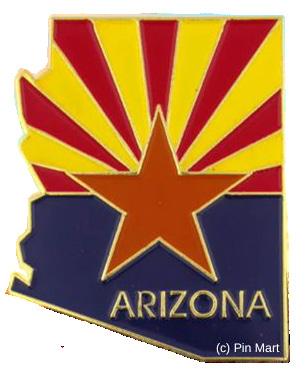
PUT A PIN ON IT: Arizona pins are available at all AZBio events. Get yours during Arizona Bioscience Week. (Provided photo)
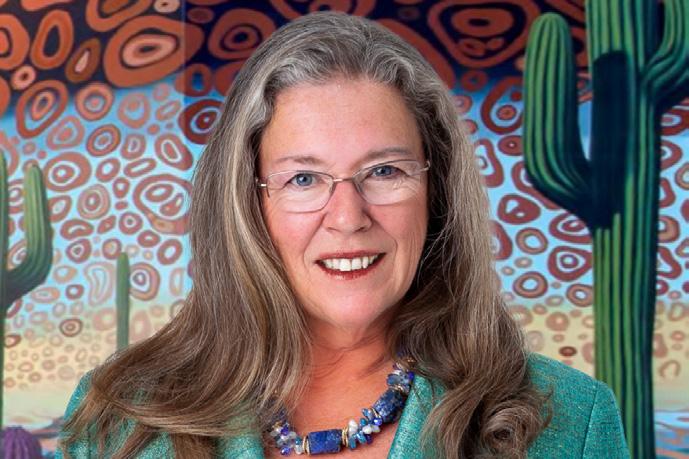
the economic impact of our life science sector by 2033 and with it the high paying jobs that today’s students hope to work in.
Arizona patient advocates keep us grounded and focused on our industry’s most important mission, to make life better for people everywhere.
We don’t have a time machine to take us forward but based on what Arizonans are working on here’s the future I see…
• A world where we can say, “People used to get cancer.”
• Golden years where people keep their memories and don’t live with the fear of Alzheimer’s Disease.
• Medical devices that improve the lives of people with neurological conditions the way they help people with heart conditions today.
• Therapies that can repair damaged organs, so we don’t have to replace them.
• Gene and cell therapies that can treat diseases or better yet, cure them.
• Arizona is home to the largest health innovation trust fund in the United States and continues to drive health innovation forward as AZ advances.
AZBio embraces its vision of Arizona as a top-10 ranked life science state and works with its members to make this vision a reality.
Join us as we move into the future. Get engaged. Put on the Pin. Spread the Word. Start investing. Keep Innovating! Arizona’s life science sector is amazing, and we are just getting started!
• $29 billion-plus invested into building the Arizona life science sector over 20 years — 2002-2022
• $38.54 billion in economic impact in one year (2021)
• No. 2 nationally in life science job growth based on a 10-year percentage
• No. 9 in clinical trials nationally
• The Ivy Brain Tumor Center is home to the largest Phase 0 clinical trials program in the world
• Home to five medical schools and two vet schools. (20 years ago there was only one medical school in Arizona)
• ASU ranked No. 1 for innovation every year since the innovation rankings began
• Arizona’s Bioscience Roadmap is the longest running, continuously managed, strategic plan to build a bioeconomy
